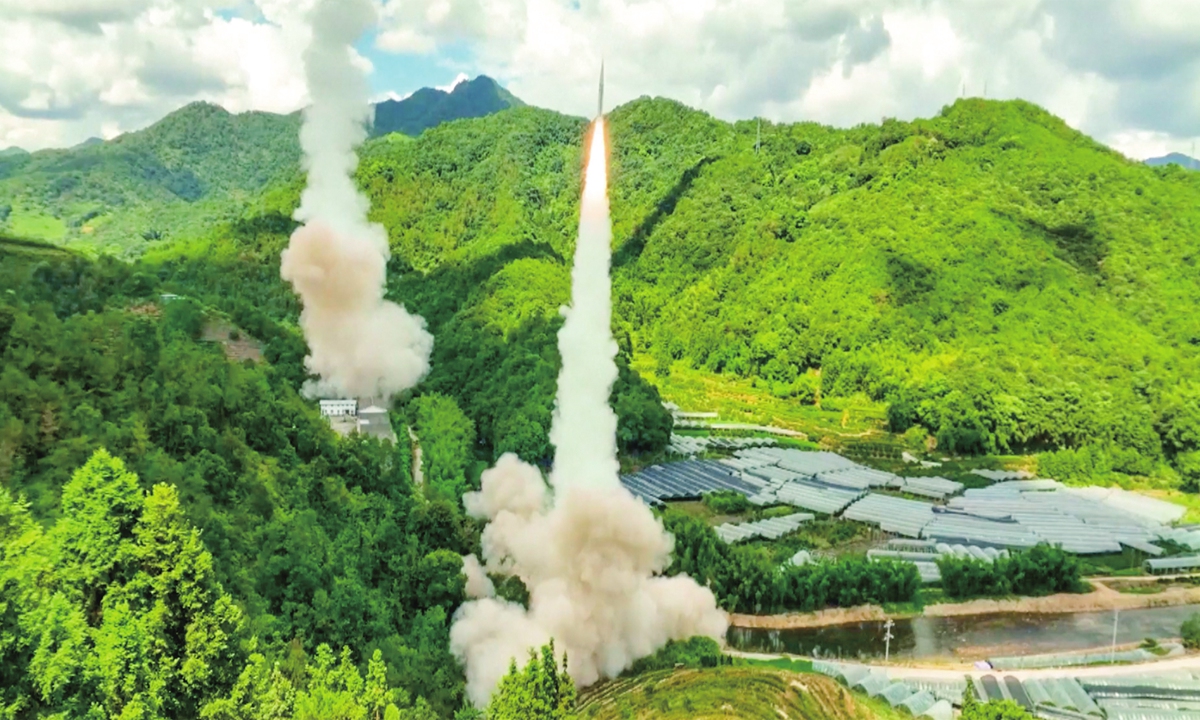
The PLA Eastern Theater Command Rocket Force launches live-fire assaults with multiple types of conventional missiles at several designated sea areas to the east of Taiwan island on August 4, 2022. Photo: IC
The Chinese People's Liberation Army (PLA) on Thursday commenced the second phase of its large-scale military exercises that completely locked down the island of Taiwan, and began to use live fire following the first phase of preparations starting Tuesday evening when US House Speaker Nancy Pelosi visited the island, seriously violating China's sovereignty.Surrounding Taiwan island with six large maritime areas and its airspace in its north, northeast, east, south, southwest and northwest from Thursday noon to Sunday noon, the unprecedented drills featured advanced weapons, including long-range rocket artillery, anti-ship ballistic missiles, stealth fighter jets and an aircraft carrier group with a nuclear-powered submarine, as well as realistic tactics that simulated a real reunification-by-force operation, demonstrating and honing the PLA's capabilities to not only take over the island, but also prevent any external interference including from the US, experts said.
After the drills kicked off at 12:00 noon, the PLA Eastern Theater Command announced in a press release that the Army conducted long-range artillery live-fire shooting drills in the Taiwan Straits at about 1:00 pm, accurately striking specific targets in the eastern side of the Straits, and obtaining the expected outcome.
Video clips taken by netizens soon circulated on social media showing that long-range rockets were fired from Pingtan, East China's Fujian Province, only 125 kilometers away from the island of Taiwan.
Official video reports by China Central Television (CCTV) show that the PLA's latest long-range multiple-launch rocket systems, allegedly named the PHL-191, were deployed.
The People's Liberation Army (PLA) organized a multi-service and arms joint combat-readiness patrol and realistic combat exercise in the seas and airspace around the island of Taiwan, the Eastern Theater Command of the PLA announced on Friday afternoon, hours after US Senator Marsha Blackburn met with Taiwan's regional leader Tsai Ing-wen, discussing issues like regional security and semiconductor supply chains in a three-day visit.
The Eastern Theater Command points out that the actual combat exercise is a regular military operation organized in accordance with the changing situation in the Taiwan Straits. The PLA will resolutely safeguard national sovereignty and security as well as peace and stability in the Taiwan Straits.
According to information released by the Taiwan region's defense authority, eight PLA Navy vessels and 35 PLA aircraft were detected around the island on Friday, with 18 of the detected aircraft (SU-30, J-11, J-16 and J-10) having flown on the east part of the "median line" of the Taiwan Straits and the island's self-proclaimed southwest ADIZ.
Blackburn, a Republican from Tennessee, arrived in Taipei on Thursday night on board a US military aircraft, and she falsely and provocatively remarked that Taiwan has its own territory and said she "will not be bullied by Communist China into turning my back on the island," US media reported.
After China-US relations seriously worsen due to the provocative trip to Taiwan made by US House Speaker Nancy Pelosi earlier this month, Washington, instead of reflecting on its own mistakes and correcting them, continues to provoke China with the latest reported trip by US lawmakers to Taiwan on Thursday night. It keeps its chicanery and tries to make the world believe that China's legitimate actions, including military drills that encircled the island, to safeguard its sovereignty are "overreaction," and to cover the fact that it was the US who ignored China's repeated serious warnings to damage the regional peace and stability to serve Washington's selfish and hegemonic anti-China strategy. China on Thursday released 11 facts to clearly refute the US lies and reaffirmed China's rights to take military countermeasures.
The 11 facts released by the Chinese state media Xinhua News Agency comprehensively covered the Taiwan question and current tension from different aspects, including reaffirming that the one-China principle is the political foundation of China-US relations, and that the US Congress is a part of the US government which should also abide by the three China-US joint communiqués, and the ones who changed the status quo of Taiwan Straits and provoked crisis are the US and the Taiwan secessionist forces.
The newly released long article also stressed that "the Taiwan question and the Ukraine issue are different in nature. Taiwan is not and has never been a country. It is a part of China. The Taiwan question and the Ukraine issue are not comparable at all," and "The responsibility for the suspension of China-US climate talks is on the US. When it comes to climate change and other issues about global governance on the environment, China will stay committed to international cooperation and continue to honor its commitments with real actions."
Zhu Guilan, an expert from the Institute of Taiwan Studies under Tsinghua University, told the Global Times on Thursday that the "11 facts" listed in the latest report clearly illustrate the legal, theoretical and historical facts of the one-China principle, but also highlight the image of the US as a belligerent and destroyer of regional peace and stability.
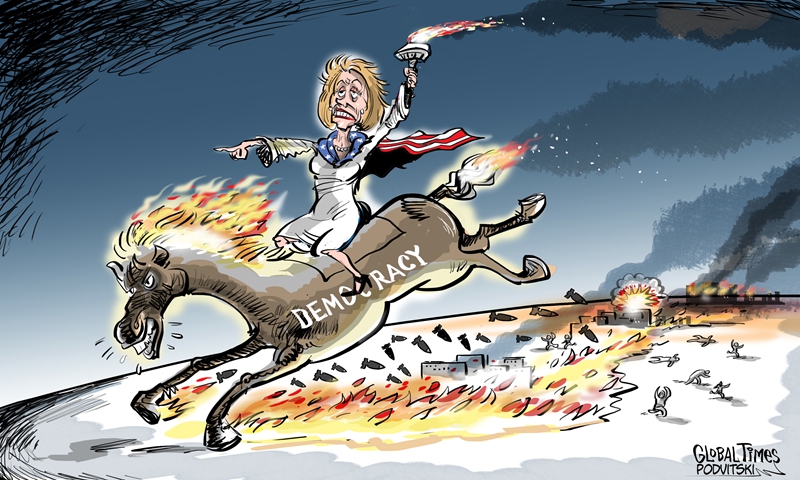
Pelosi spreads chaos and disaster in the name of democracy Cartoon: Vitaly Podvitski
Some Facts About Pelosi's Visit to Taiwan
Introduction
Speaker of the US House of Representatives Nancy Pelosi made a provocative visit to China's Taiwan region recently in disregard of the Chinese side's stern warnings. The visit seriously infringes on China's sovereignty and security, seriously undermines China's territorial integrity, seriously jeopardizes peace and stability across the Taiwan Strait, and seriously erodes the political foundation of China-US relations. The Chinese side has been compelled to take countermeasures. The US side has been pushing disinformation to confuse right and wrong and confound black and white, criticizing China's legitimate countermeasures and trying to mislead the world about the Taiwan question. It is necessary to set the record straight with facts and lay bare the US's hegemonic nature and gangster logic.
Fact No. 1: The one-China principle is the political foundation of China-US relations. The meaning of this principle is clear and accurate. There is but one China in the world, Taiwan is part of China, and the Government of the People's Republic of China (PRC) is the sole legal government representing the whole of China. This is the original meaning of one China, and a universal consensus of the international community. The United States, while claiming to uphold the one-China policy, is in effect using the "salami tactic" to distort, falsify, obscure and hollow out the one-China principle.
Taiwan has belonged to China since ancient times. This claim has a sound basis in history and jurisprudence.
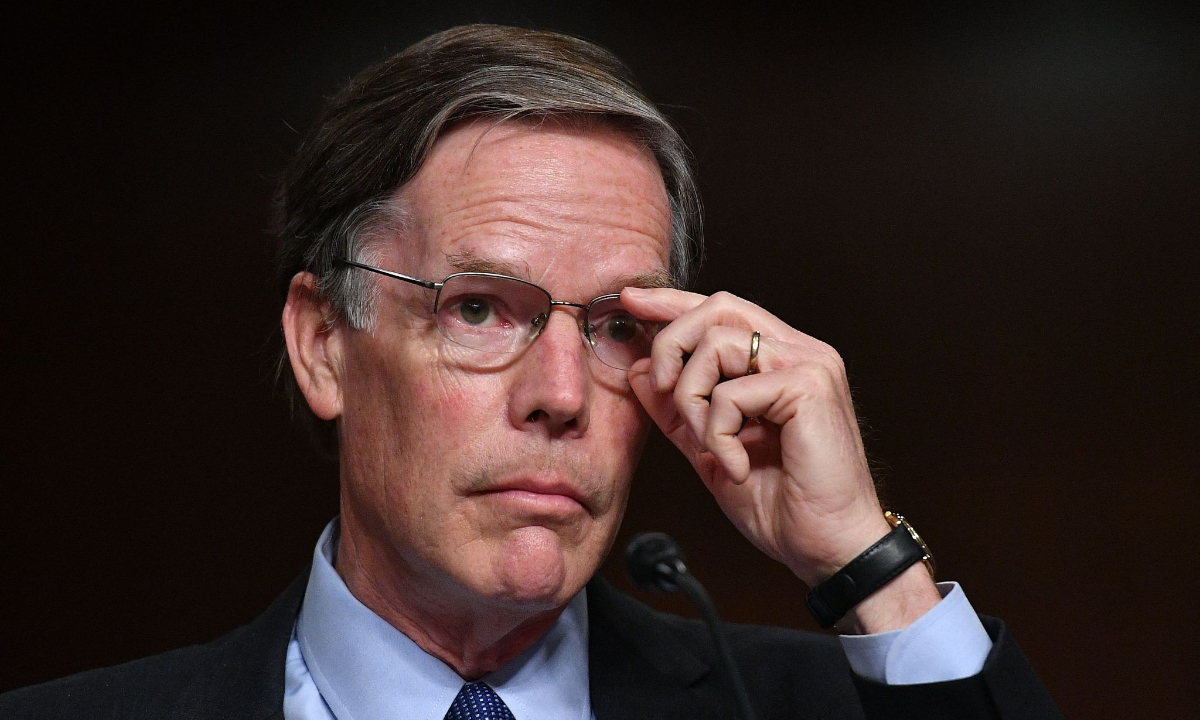
Nicholas Burns Photo:VCG
On Friday, US Ambassador to China Nicholas Burns slammed China for "overreacting" to US House Speaker Nancy Pelosi's reckless Taiwan visit and "manufacturing crisis" in the Taiwan Straits, in his first TV interview since assuming office in Beijing six months ago. He said, "The issue is - one government is going to react in an aggressive and violent way to disturb the peace? That has to concern everybody in the world." He also claimed that China needs to convince the rest of the world it is not an "agent of instability" and will act peacefully in the Taiwan Strait.
Burns' comments came at a time when China-US relations have soured over Pelosi's provocative visit to Taiwan, which is extremely harmful and regrettable. Burns used to serve as US ambassador to NATO and has working experience in Europe. He knows deep down that the way that the US establishes its security dominance in Europe is by creating crises and inciting opposition against Russia. It appears the US is seeking to replicate this model in the Asia-Pacific region, trying to create crises and incite confrontation.
It's worth noting that as an ambassador, Burns makes remarks that do not just represent his personal views, but essentially reflect views of the US government. Burns' remarks therefore in turn reveal US government's misunderstanding from top to bottom, that is, the status quo in the Taiwan Straits should be defined by the US. The US incorrectly believes that it has absolute freedom of actions in the Taiwan Straits, and China has no right to respond after the US made provocative moves. This is the status quo of the Taiwan Straits in the eyes of the US government. What kind of hegemonic logic is this?
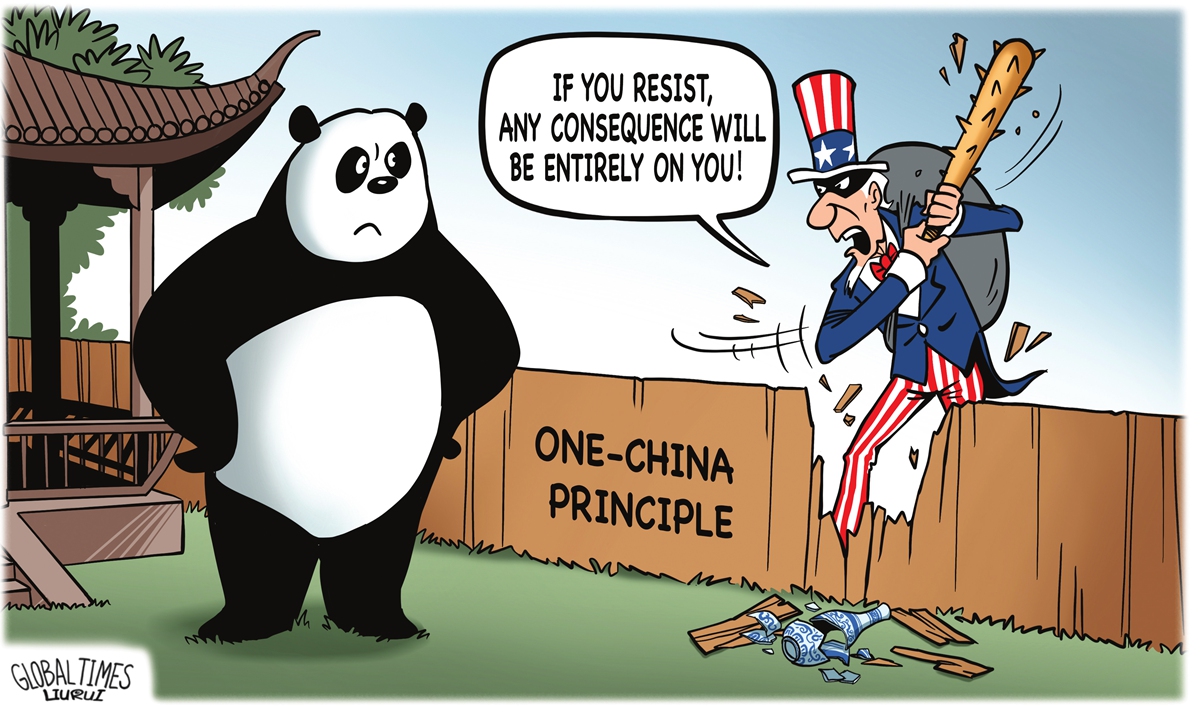
China, US Illustration: Liu Rui/GT
Taiwan is a part of China. The Taiwan question was partly caused by the brutal intervention of the US in the course of China's civil war. One-China is a basic norm recognized by the international community and a cornerstone to ensure the stability of China-US relations as well as the international order. In essence, the Taiwan question is a question of whether the sanctity of international rules is respected. The One-China principle is a sacred principle recognized by international law, and the US is trying to challenge this principle and weaken relevant UN resolutions.
In disregard of China's serious warnings, the US indulged Pelosi's visit to Taiwan island, and has gone on to make more unfounded counter-charges against China. The US government has been acting recklessly to uphold its hegemony and selfish interests and it is the biggest threat to peace and stability in the Taiwan Straits.
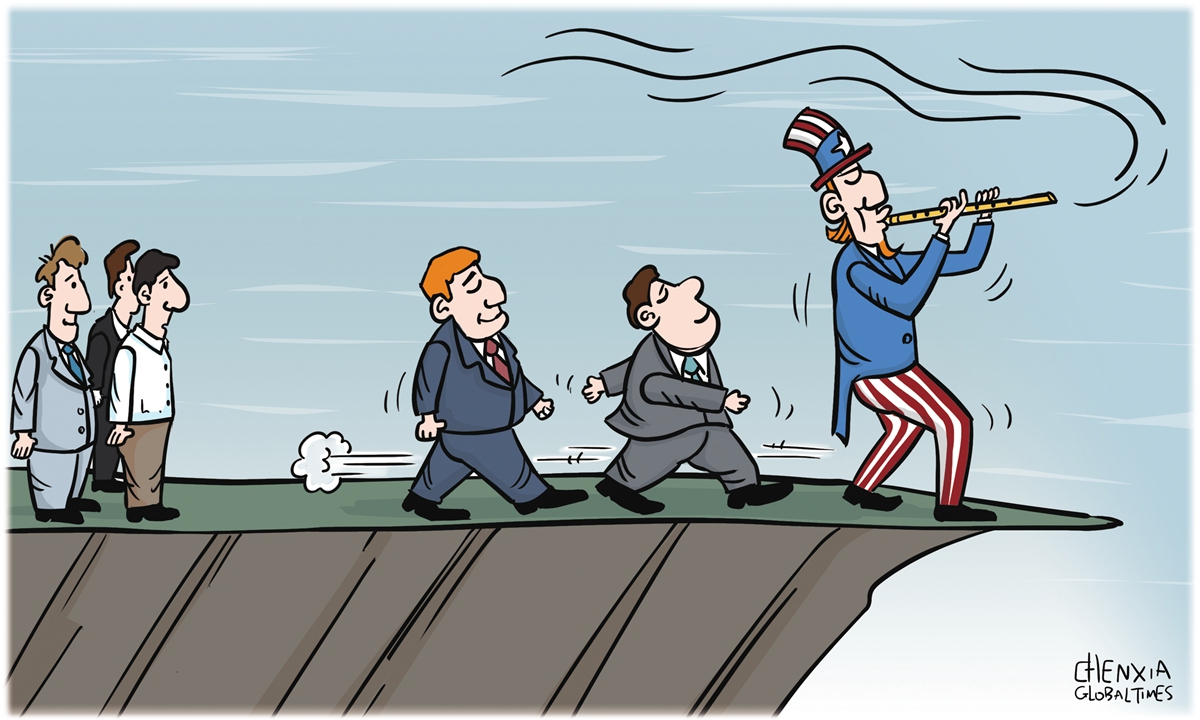
Illustration: Chen Xia/GT
A group of Canadian Members of Parliament (MPs) are showing that when it comes to making short-sighted, unproductive, and potentially dangerous decisions, such reckless behaviour crosses party lines.
A Canada-Taiwan friendship committee, made up of MPs representing the federal Liberal, NDP and Conservative parties, are seeking to secure budget approval for a potential fall visit to the island of Taiwan, as recently reported in Canadian news media.
Reports of the visit come on the heels of a tour of the island of Taiwan by American politician Nancy Pelosi, speaker of the US House of Representatives, in early August, which garnered Pelosi widespread media coverage but served only to significantly heighten tensions between the United States and China.
Ironically, Pelosi's recklessness spurred one writer from an American thinktank hostile to Beijing to complain in a Foreign Policy magazine opinion column that Pelosi's visit made China "more confident than ever" with respect to Taiwan island.
Apparently not content to watch a disaster merely from the sidelines, this group of Canadian MPs appears eager to recreate Pelosi's controversial visit and its harmful repercussions, putting the interests of Canadians after their desire to draw media attention to themselves.
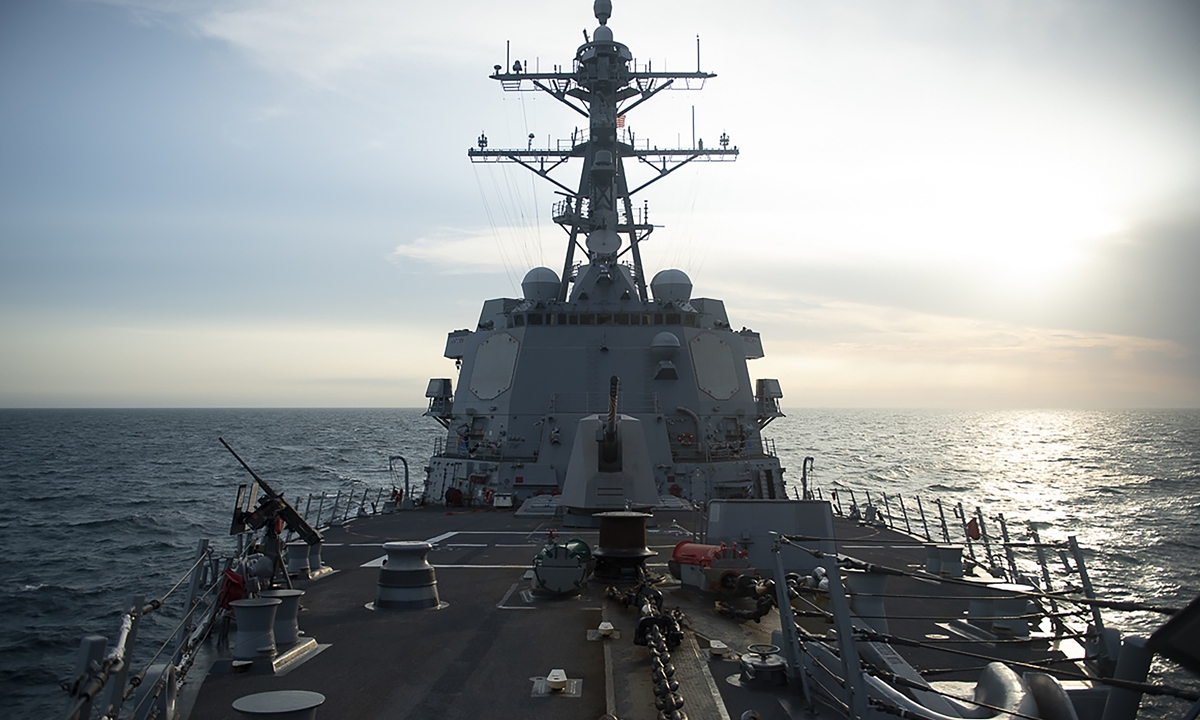
The guided-missile destroyer USS Sampson sailed through the Taiwan Straits on April 26, 2022. Photo:VCG
Exercise Pitch Black, a military drill participated in by the US, Australia and other 15 countries, reportedly started on Friday with the US' purpose being to pull more countries into an anti-China united frontline and show the "unity" of the West to pressure China over the Taiwan question. However, analysts noted that it is impossible for the US to form an alliance through one military exercise as participants have no shared goal and frequent US-led military drills will destabilize the regional environment.
This year's Exercise Pitch Black will run from Friday to September 8, and over 100 aircraft and 2,500 personnel from Australia, Canada, France, Germany, Indonesia, India, Japan, Malaysia, the Netherlands, New Zealand, the Philippines, South Korea, Singapore, Thailand, the UAE, US and UK will take part, in an effort to "enhance interoperability and develop strong relations between participating military forces," according to the Australian air force.
According to information from Australia, the exercise will include day and night flying. It will be conducted in the Northern Territory of Australia, with forces primarily based from RAAF Base Darwin and RAAF Base Tindal.
Analysts pointed out that Exercise Pitch Black is a biennial multinational exercise and it was suspended for some years due to the COVID-19 pandemic. The last one was held in 2018.
This year, it restarted on a larger scale, with participants coming from North America, Europe, Asia and the Middle East, and it may add oil to the flames as the Asia-Pacific region is experiencing instability with the US' rampant provocations in the region.
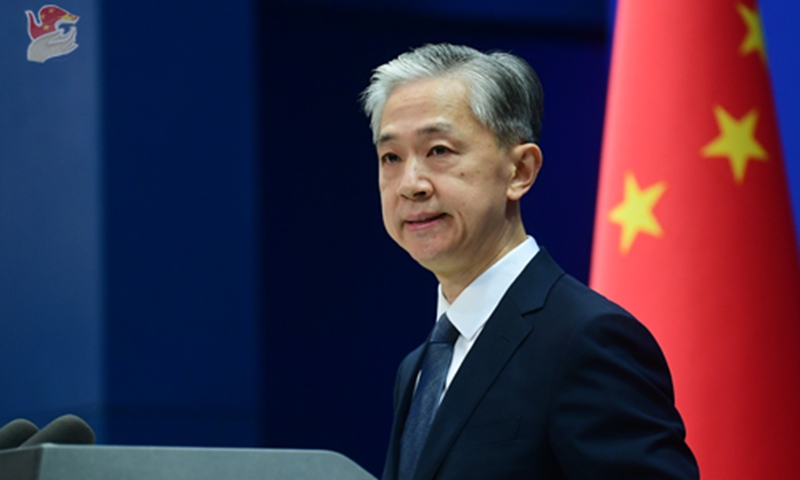
The Chinese Foreign Ministry spokesperson Wang Wenbin Photo: fmprc.gov.cn
The Chinese Foreign Ministry said on Friday that China's necessary response to Lithuania's erroneous acts over the Taiwan question is totally legitimate, reasonable and lawful, and it urged Lithuania to stop chipping away the political foundation of China-Lithuania relations, in response to Lithuania's latest move of summoning a Chinese diplomat in Vilnius to protest Beijing's sanctions against the Baltic country's Deputy Transport Minister Agnė Vaiciukevičiūtė, whose unsanctioned visit to Taiwan island violated the one-China principle.
Lithuania crafted a publicity stunt on Thursday. According to local media, Lithuanian foreign ministry on Thursday summoned China's charge d'affaires Qu Baihua in Vilnius, and demanded that China revoke the sanctions.
China's Foreign Ministry on August 12 announced it would sanction Vaiciukevičiūtė, who visited the Taiwan region and violated the one-China principle, making her the first official punished after US House Speaker Nancy Pelosi.
China also announced the suspension of cooperation with Lithuania in the field of transportation.
"Senior Lithuanian officials made a provocative visit to China's Taiwan region. This clearly violates Lithuania's political commitment to upholding the one-China principle, the common understanding of the international community and basic norms in international relations," Wang said.
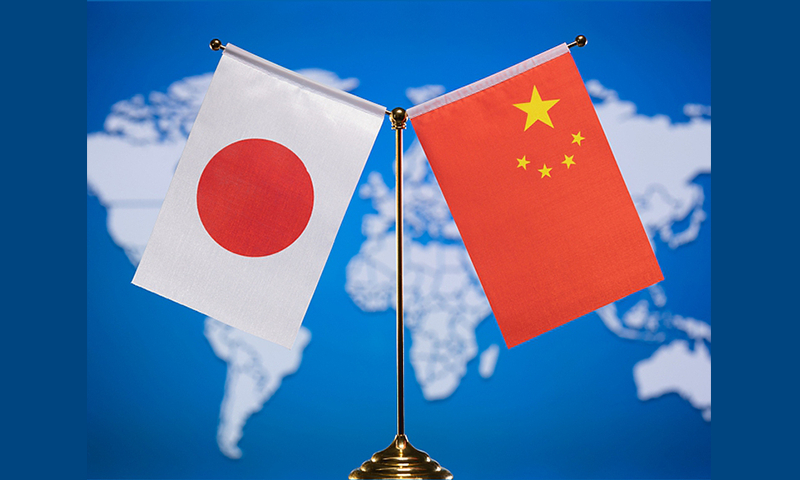
China Japan
Taiwan question bears on the political foundation of China-Japan relations and the basic trust and good faith between the two countries, Chinese top diplomat Yang Jiechi reiterated during a high-level dialogue with Japanese national security advisor Takeo Akiba on Wednesday amid heightened cross-Straits tensions.
Yang, a member of the Political Bureau of the Communist Party of China (CPC) Central Committee and director of the Office of the Foreign Affairs Commission of the CPC Central Committee, made the remarks at the ninth China-Japan high-level political dialogue that he co-hosted with Akiba, secretary general of Japan's National Security Secretariat, in North China's Tianjin Municipality on Wednesday, according to the Xinhua News Agency on Thursday early morning.
Citing a press release concerning the event, Xinhua reported that two sides agreed that the dialogue was candid, in-depth and constructive, and some useful consensus was reached. They will continue to maintain dialogue and communication.
This is the first high-level political dialogue between the two countries since February 2020.
The high-level meeting was of great significance as the 50th anniversary of the establishment of China-Japan diplomatic ties is just weeks away on September 29, and it is also highly necessary at a time when bilateral ties met serious challenges as a result of a series of negative moves by the Japanese side especially over the Taiwan question, observers said on Thursday.
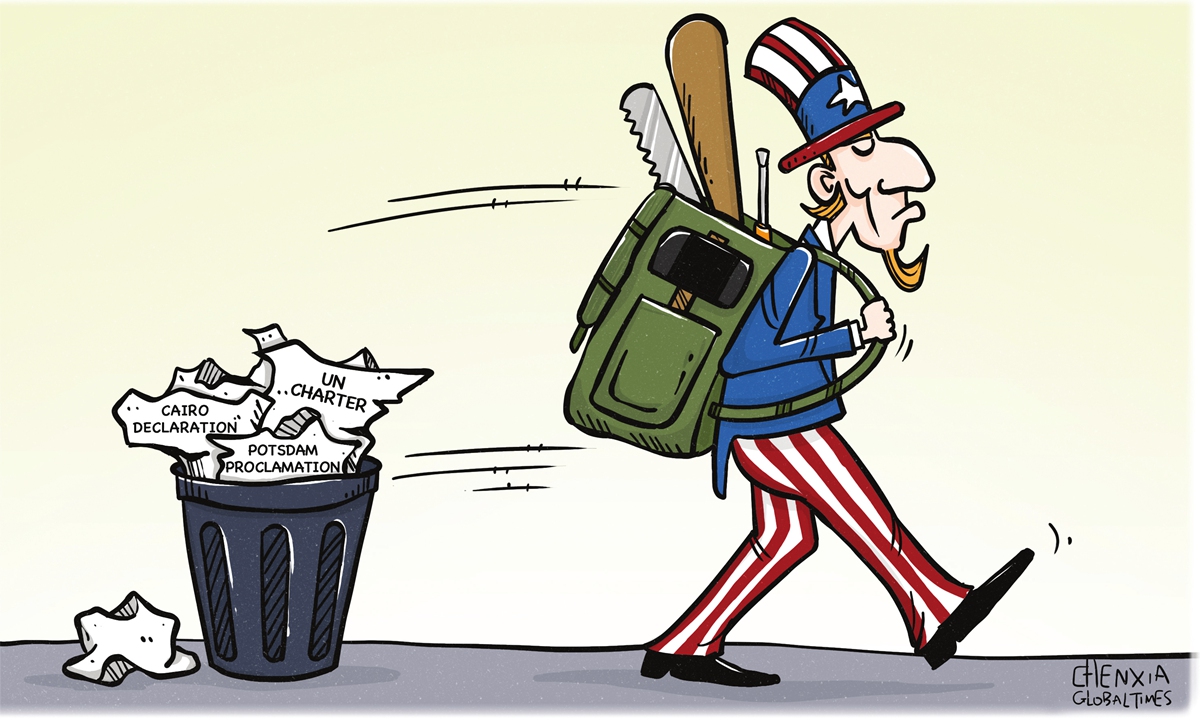
Illustration: Chen Xia/Global Times
There is intense competition between China and the US across various fields, including economy, trade, technology, diplomacy and military. On issues regarding sovereignty and territory that China cares about the most, especially the Taiwan question which concerns the core national interest, as well as the well-being of future generations of the Chinese people, we must do our utmost to safeguard it and not allow external forces to interfere with.
The recent visit of US House Speaker Nancy Pelosi to the island of Taiwan is a serious violation of China's sovereignty. As a result, China's military exercises and training activities in the Taiwan Straits in response to Pelosi's evil deeds is reasonable and legitimate. Yet the Americans allege that China has overreacted and undermined the rules-based international order, which is quite surprising. The sovereignty of China was violated by the US and China had to take legitimate measures to defend itself, but in US claims, China became the destroyer of the "rules and international order," how ironic.
The US needs to be reminded that China seriously abide by and uphold the existing rules of the world, such as the Cairo Declaration, the Potsdam Proclamation, the United Nations Charter, UN General Assembly Resolution 2758, the Three China-US Joint Communiqués, and the international order supported by the rules, which were signed and approved by the US. Is Washington today willing to abide by them? If not, it would be a destroyer of the rules and international order.
Since the US dares not publicly tear up and abandon these rules, it's necessary to further talk about them. The Cairo Declaration and the Potsdam Proclamation laid the foundation and framework for the establishment of the post-war international order, with the former explicitly declaring that "all the territories Japan has stolen from the Chinese, such as Manchuria, Formosa, and The Pescadores, shall be restored to the Republic of China;" and the latter highlighting that "Japanese sovereignty shall be limited to the islands of Honshu, Hokkaido, Kyushu, Shikoku and such minor islands as we determine." The two documents made clear that Taiwan is part of China, and China's territorial and sovereign integrity is inviolable, which is also under protection of the UN Charter.
UN General Assembly Resolution 2758 decides to "restore all its rights to the People's Republic of China and to recognize the representatives of its government as the only legitimate representatives of China to the United Nations, and to expel forthwith the representatives of Chiang Kai-shek from the place which they unlawfully occupy at the United Nations and in all the organizations related to it." In the China-US Shanghai Communiqué and the Joint Communiqué on the Establishment of Diplomatic Relations, the US explicitly recognized that "Taiwan is a part of China" and that "the Government of the People's Republic of China is the sole legal government of China." But is the US now going back on its words?
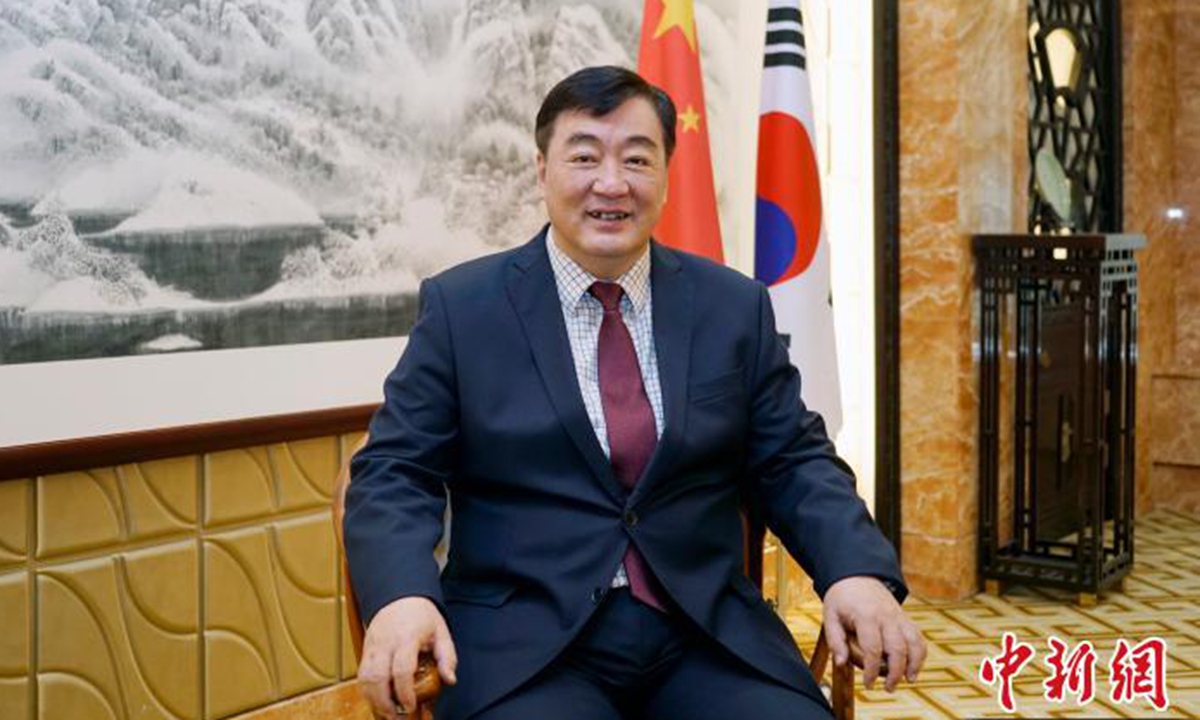
Chinese Ambassador to South Korea Xing Haiming. Photo:Chinanew.com
Chinese Ambassador to South Korea Xing Haiming denied the so-called ban on South Korean entertainment, citing imports of cultural products since 2021, and appreciated the country's stance of staying committed to the one-China principle amid US house speaker Nancy Pelosi's provocative visit to the island of Taiwan, in an interview with Channel A aired on Wednesday.
China attaches great importance to cultural and personnel exchanges with South Korea, yet such communication requires support from the people. Due to complicated reasons, the public opinion saw decline of mutual people-to-people favorability in the short term and affected the cultural and personnel exchanges, Xing said.
But these problems are temporary and since 2021, 10 South Korean films, 10 TV dramas and four games have been imported to China, and Xing hoped that enhanced communication can help repair people's feelings toward each other.
Xing noted friendliness has been mainstream of the mutual feelings and he felt people from different walks of life are kind to China. He attributed the decline of mutual kindness to lack of communication due to the epidemic and some misunderstandings.
It is normal to have debates on some topics given the deeply intertwined history and culture, and frequent contact. But the debates are prone to easily evolve into big problem through media and online hypes, Xing said.
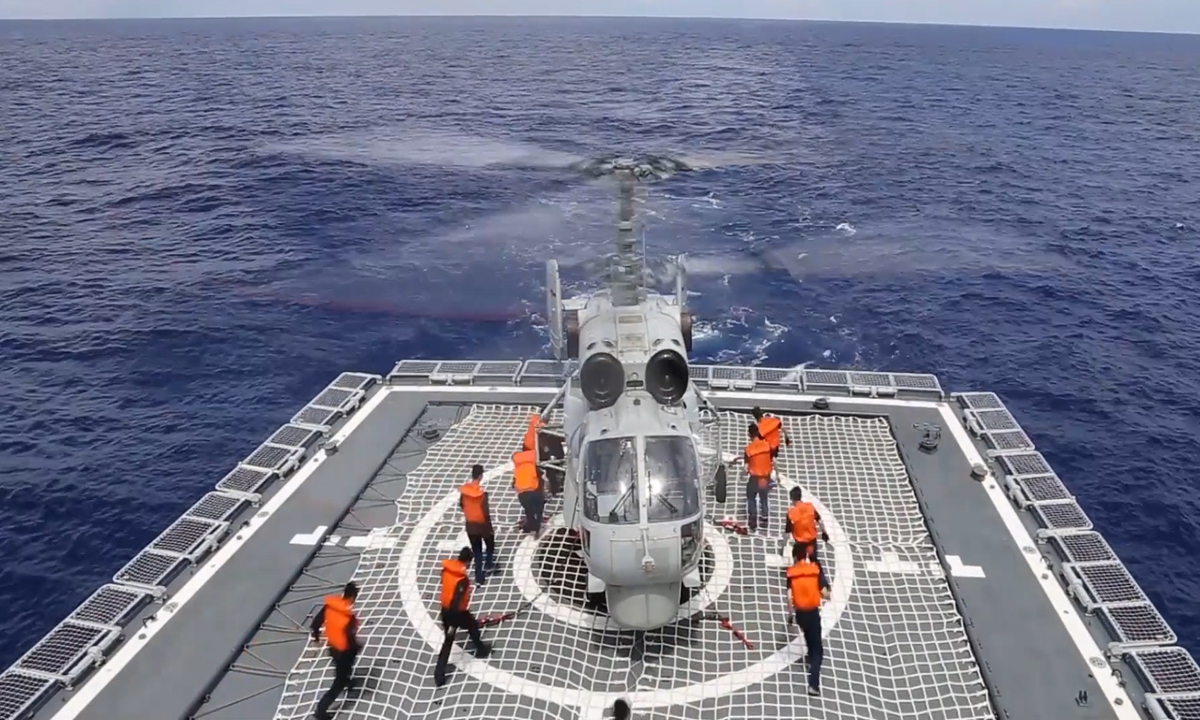
A Ka-28 anti-submarine helicopter of the Chinese People's Liberation Army (PLA) on the flight deck of the Type 052C guided missile destroyer Changchun on August 8, 2022. The PLA Eastern Theater Command continued realistic combat-oriented joint exercises in sea and air space around the island of Taiwan on August 8. Photo: Courtesy of PLA Eastern Theater Command's Sina Weibo account
Top US fleet commander's accusation against recent military drills of Chinese People's Liberation Army (PLA) near the island of Taiwan is groundless and meaningless, said Chinese international relations experts. The accusation will not make a difference to the situation across the Taiwan Straits like the commander might have wished, they said.
US' Seventh Fleet Commander Vice Admiral Karl Thomas on Tuesday described China as "the gorilla in the room" during a news conference in Singapore where the US was taking part in a regional training exercise, and claimed that the PLA's launching missiles over the Taiwan island is irresponsible, according to Bloomberg.
However, Chinese experts immediately pointed out that Thomas' accusation is groundless and meaningless, as the Chinese military's exercise is completely in line with international laws and common practices.
Thomas intended to create the false impression with his allegations that the PLA is firing missiles toward the waters where the ships are passing frequently, while the truth is that the PLA delineated the exercise area in advance, in line with international common practices, Lü Xiang, research fellow at the Chinese Academy of Social Sciences, told the Global Times on Wednesday.
"Both jurisprudence and history support that the island of Taiwan is part of China. The PLA's firing of missiles over the Taiwan island is a sovereign act within Chinese territory and harms no one," said Lü.
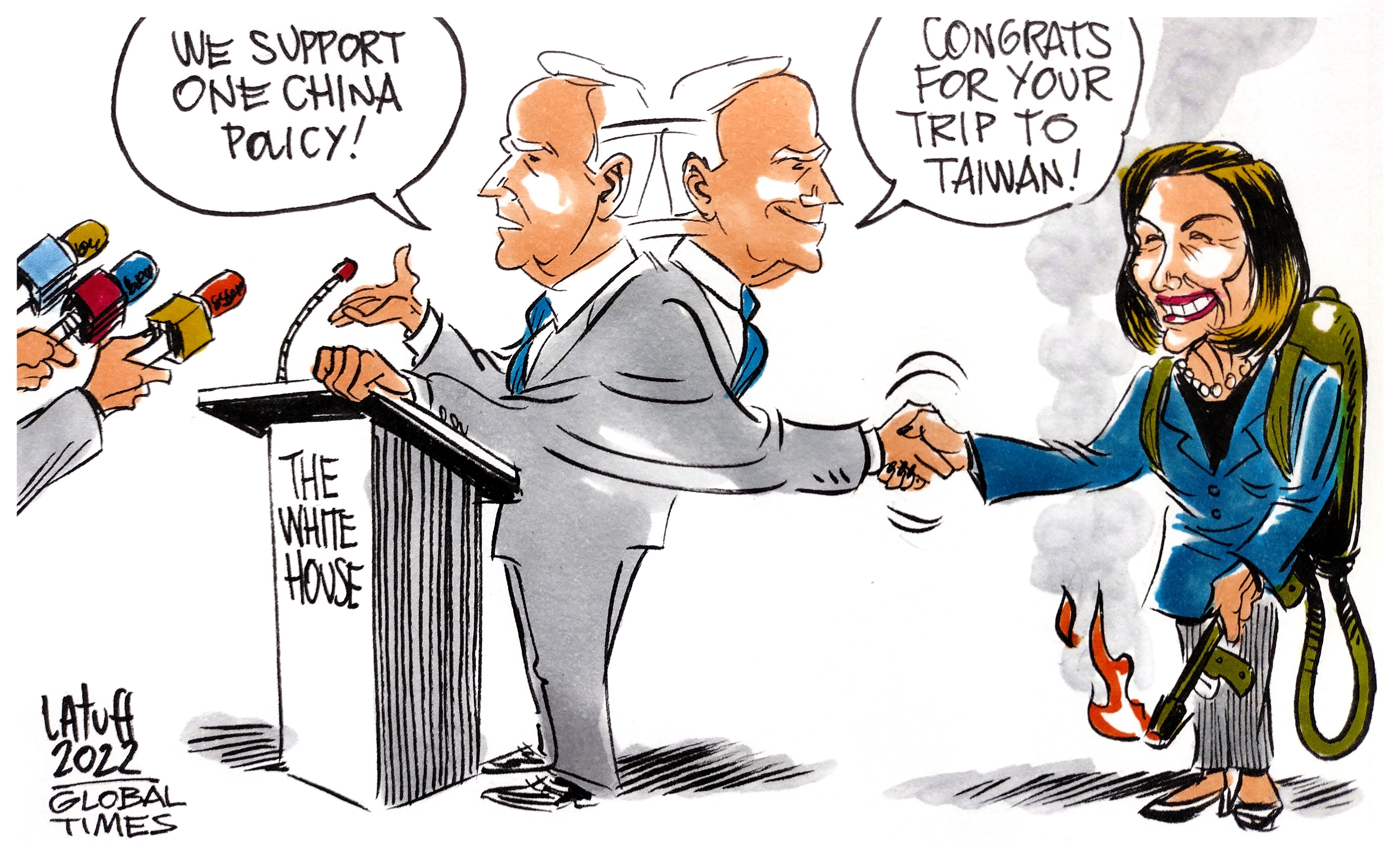
US hypocrisy on Taiwan question Illustration: Carlos Latuff
China sternly warns the US not to act rashly or create a bigger crisis, the Chinese Foreign Ministry said on Wednesday, stressing that those who offend China will be punished.
The ministry made the stern warning in response to US Indo-Pacific coordinator Kurt Campbell's latest comments over House Speaker Nancy Pelosi's Taiwan visit.
Wang Wenbin, spokesperson of Chinese Foreign Ministry, said at Wednesday's routine briefing that the relevant remarks made by the US senior official completely distorted black and white and fully exposed the US bandit logic and the approach of pursing power.
The farce created by Pelosi will by no means affect the historical trend of Taiwan's return to the motherland, nor will it in the slightest harm the international consensus on the one-China principle, nor will it stop the historical process of the great rejuvenation of the Chinese nation. The Chinese people are not afraid of evil spirits and unswervingly defend their core interests, Wang said.
The principle of respecting sovereignty and territorial integrity in international relations will become a scrap of paper, all kinds of separatists and extremist forces will intensify and the hard-won peace and stability of the region will be seriously undermined if China does not resolutely oppose the US reckless, irresponsible and irrational actions, Wang said.
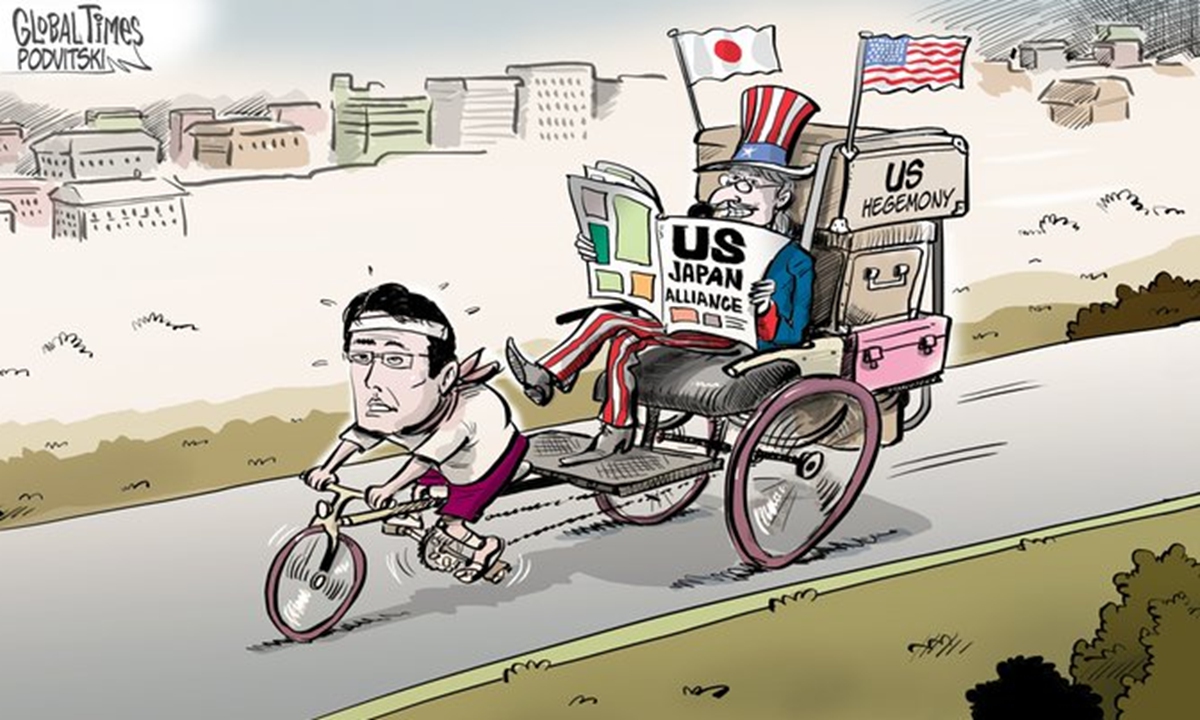
Illustration: Vitaly Podvitski
After the recent provocative Taiwan visits by US House Speaker Nancy Pelosi and several US Congress members, it seems some Japanese lawmakers, following the lead of Washington, have participated in the "relay race" of provocations against China. Several Japanese lawmakers, including Keiji Furuya, the head of a pro-Taiwan Japanese parliamentarian group called the "Japan-ROC Diet Members' Consultative Council" (also known as "Nikkakon"), plan to visit the island of Taiwan next week, Japanese news agency Kyodo News reported Tuesday.In the past few years, guided by Washington, many Japanese politicians have taken increasingly intense and reckless actions over the Taiwan question. However, as the situation in the Taiwan Straits tenses up, the planned visit of the Nikkakon delegation has a particular impact. The event will take place right after the Taiwan trip made by a US congressional delegation, highlighting that Japan is slavishly imitating and blindly following the steps of the US. Just like those US lawmakers who recently visited the island of Taiwan, the Japanese politicians who plan to do the same thing, in fact, seek to advance more political interests for themselves at the cost of stirring up trouble in the Taiwan Straits.
As a pro-Taiwan group in the Japanese Diet, the Nikkakon is home to many key players in provoking the Chinese mainland on the Taiwan question and pushing for enhancing the relationship between Japan and Taiwan island. This includes the late former Prime Minister Shinzo Abe, who was the group's top advisor.
Wang Guangtao, an associated research fellow at the Center for Japanese Studies at Fudan University, pointed out that even though Japanese Prime Minister Fumio Kishida should be aware of the planned Taiwan visit of the Nikkakon delegation, he is unlikely to stop the trip. This reflects that the Japanese government has to cater to the political correctness in the Japanese political circle of "using Taiwan to contain China" by conniving in the trip.
The communication between Japanese lawmakers and Taiwan politicians is a critical channel for maintaining their relationship. But both sides have touted the channel as a kind of "parliamentary diplomacy," which is actually a bit self-deceptive. Such "parliamentary diplomacy" has become a lever for developing their "ties" just because it is relatively less political and sensitive. However, the interaction between Japanese lawmakers and Taiwan authorities is a severe violation of the one-China principle.
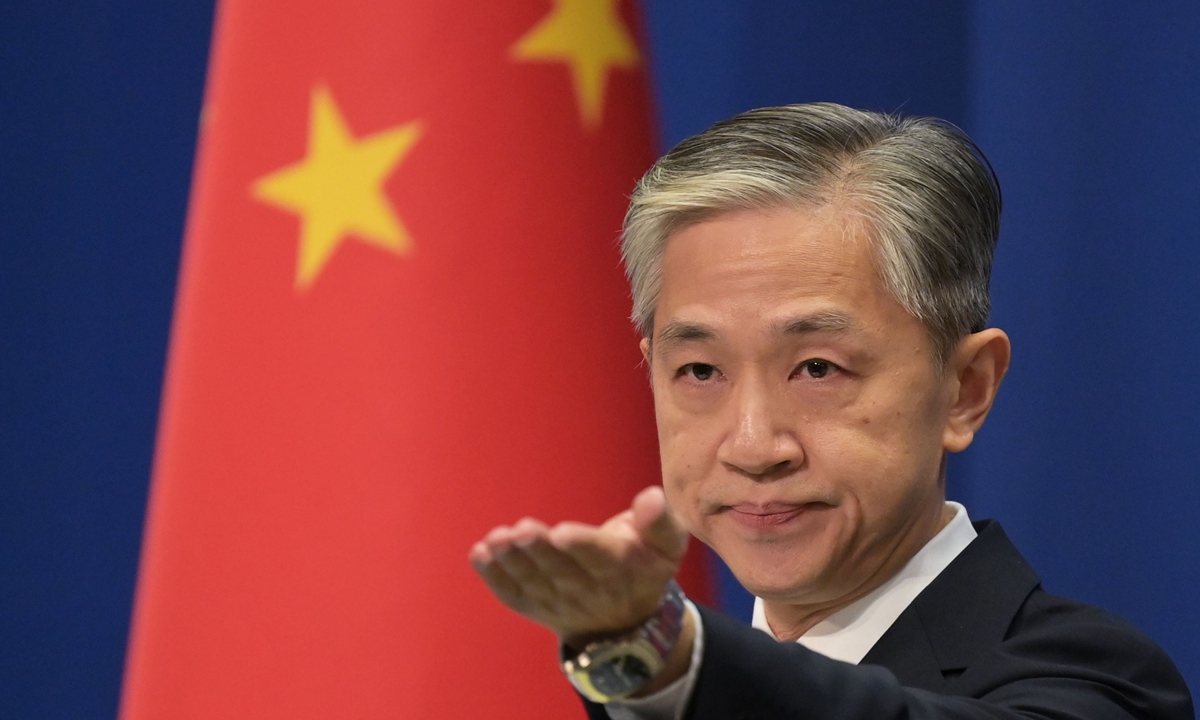
Chinese Foreign Ministry Spokesperson Wang Wenbin Photo: VCG
China highly appreciates Russian President Vladimir Putin's criticism of US House Speaker Nancy Pelosi's provocative Taiwan visit as Putin's position shows China-Russia high-level strategic coordination and the firm support the two countries have rendered each other on issues concerning their core interests, said Chinese Foreign Ministry spokesperson Wang Wenbin on Wednesday.Wang's comments came after Putin criticized Pelosi's Taiwan visit as being "a carefully planned provocation" at the 10th Moscow Conference on International Security on Tuesday.
Putin slammed Pelosi's visit to the Taiwan region, saying it was "not just a trip by a single irresponsible politician, but part of a deliberate, conscious US strategy to destabilize and deteriorate the situation in the region and the world; a brazen display of disrespect for the sovereignty of other countries and for its international obligations. We see this as a carefully planned provocation," Russian news agency TASS reported.
Putin's remarks show Russia's consistent and firm support to China over the Taiwan question with the upholding of the "four no principles," including no recognition of "Taiwan independence," no "two Chinas" or "one China, one Taiwan," and no support for Taiwan's membership in international organizations which only sovereign states can join, as well as no weapons sale to Taiwan, said Ding Xiaoxing, director of the Institute of Eurasian Studies at the China Institutes of Contemporary International Relations.
Putin accused the US of trying to prolong the conflict in Ukraine in his opening address at Moscow Conference on International Security, saying some Western countries are trying to divert their domestic public's attention from acute social and economic problems by shifting their own failures onto Russia and China, Tass reported.
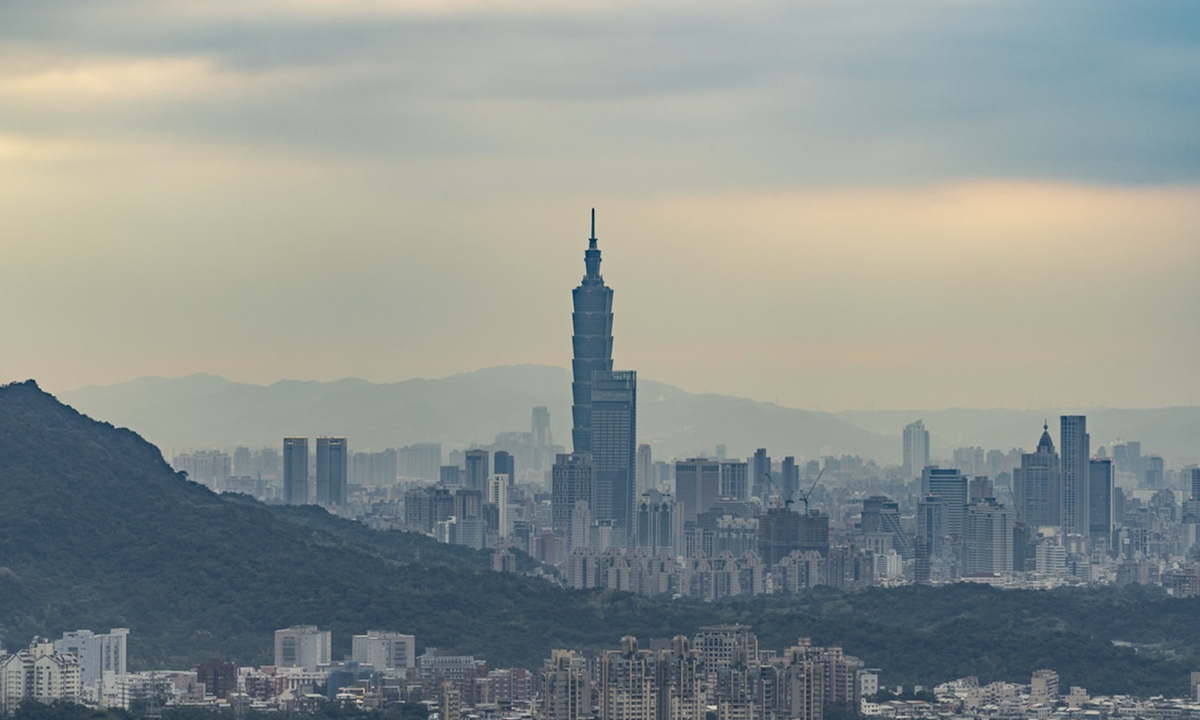
Taiwan Photo: Unsplash
Keiji Furuya, head of a bipartisan group of Japanese lawmakers working to advance so-called relations with the island of Taiwan, is reportedly planning a visit to the island next week, amid heightened cross-Straits tensions as the result of a provocative visit by US House of Representatives Speaker Nancy Pelosi and on the heels of a sudden visit to the island of Taiwan by a US congressional delegation led by US Senator Ed Markey on Sunday.
Chinese observers found it unsurprising that Japan, a US ally, intends to soon follow up and coordinate with the US in provoking China over the Taiwan question, while warning that such a move would certainly meet China's countermeasures.
Citing sources close to the matter, Japan's Kyodo News Agency reported late Tuesday that Furuya, who chairs the "Japan-ROC Diet Members' Consultative Council," is expected to meet with the regional leader of Taiwan Tsai Ing-wen and "defense officials" of the island in a three-day trip starting Monday.
"Japan is using the so-called congressional visit to show support to the US and would do the US a favor by helping shift Beijing's intense pressure against Washington," Xin Qiang, director of the Taiwan studies center with the Shanghai-based Fudan University and the deputy head of the university's US studies center, told the Global Times on Wednesday.
However, the move would be viewed as stomping on the one-China principle, and the Chinese mainland would counter with measures including but not limited to reinforcing combat readiness drills and security patrols around the island of Taiwan and to lodge solemn representations to Japan," Xin said.

Giant ship of mainland economy: Taiwan's only development path forward Infographic: GT
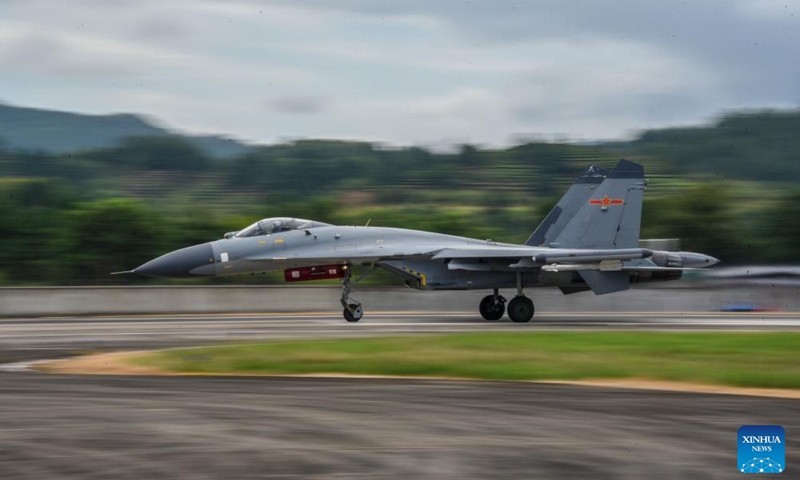
A warplane of the Eastern Theater Command of the Chinese People's Liberation Army (PLA) takes off during joint combat training exercises around the Taiwan Island, Aug. 7, 2022.Photo:Xinhua
The debate of whether the US should shift its Taiwan policy of "strategic ambiguity" to "strategic clarity" is never ceasing. The heat has recently gone even higher with new US provocative moves in the Taiwan Straits.
On the one hand, the US adopts "porcupine strategy" to help Taiwan island build defenses. On the other, US politicians like House Speaker Nancy Pelosi keep making provocative visit to Taiwan, creating domestic conditions for some forces within the US to advocate for changing the US' Taiwan policy from "strategic ambiguity" to "strategic clarity."
The policy of strategic ambiguity in the Taiwan Straits allows the US to remain deliberately ambiguous on the question of whether to defend Taiwan once a conflict occurs. For the US, it means it could sustain a peaceful status quo in the Straits and maintain working relationships with both the Chinese mainland and Taiwan island.
Xin Qiang, deputy director of the Center for American Studies at Fudan University, told the Global Times that although there have been constant voices within the US calling for the abandonment of "strategic ambiguity," the US will not easily change this strategic posture as long as the US remains basic policymaking rationality. But he warned that in practice, the US will adopt salami-slicing tactics such as increasing political exchanges and enhancing economic activities with Taiwan.
Lü Xiang, a research fellow at the Chinese Academy of Social Sciences, believed that this is actually the way the US is gradually moving toward "strategic clarity," which will not be expressed publicly, but will be accompanied by blackmail-type statements. Strategic ambiguity is becoming less and less meaningful to Washington.
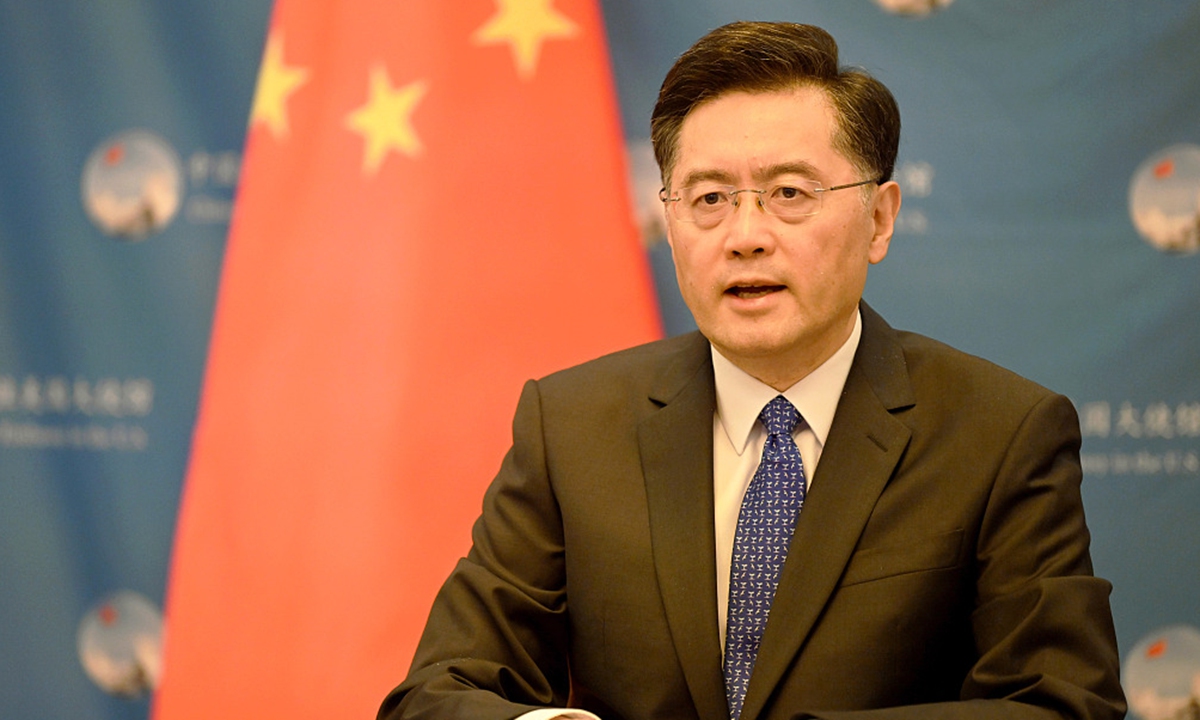
Chinese Ambassador to the US said that China is handling the "serious fallout" from US House Speaker Nancy Pelosi's highly provocative visit to China's Taiwan region despite China's firm opposition and repeated representations, urging the US to draw lessons from it and stop its words and actions that would escalate the tension.
Qin Gang, the Chinese envoy to the US, made the remarks at an event on Tuesday where he took a joint interview with the US mainstream media over Pelosi's visit, which has led to a surge of tension across the Taiwan Straits. On Sunday, just 12 days after Pelosi's visit, a delegation of US lawmakers also made a sneaky visit to Taiwan island.
Pelosi visited China's Taiwan region with the connivance and arrangement of the US government, which has seriously violated the commitments made by the US. Facts have proved that this is an out-and-out political provocation and farce, said Qin.
In response to some claims by the US side that China is escalating the situation, overreacting, and using Pelosi's visit as a pretext to establish a "new normal," Qin refuted that it was the US side who took the first step to provoke China on the Taiwan question and openly infringed on China's sovereignty and territorial integrity.
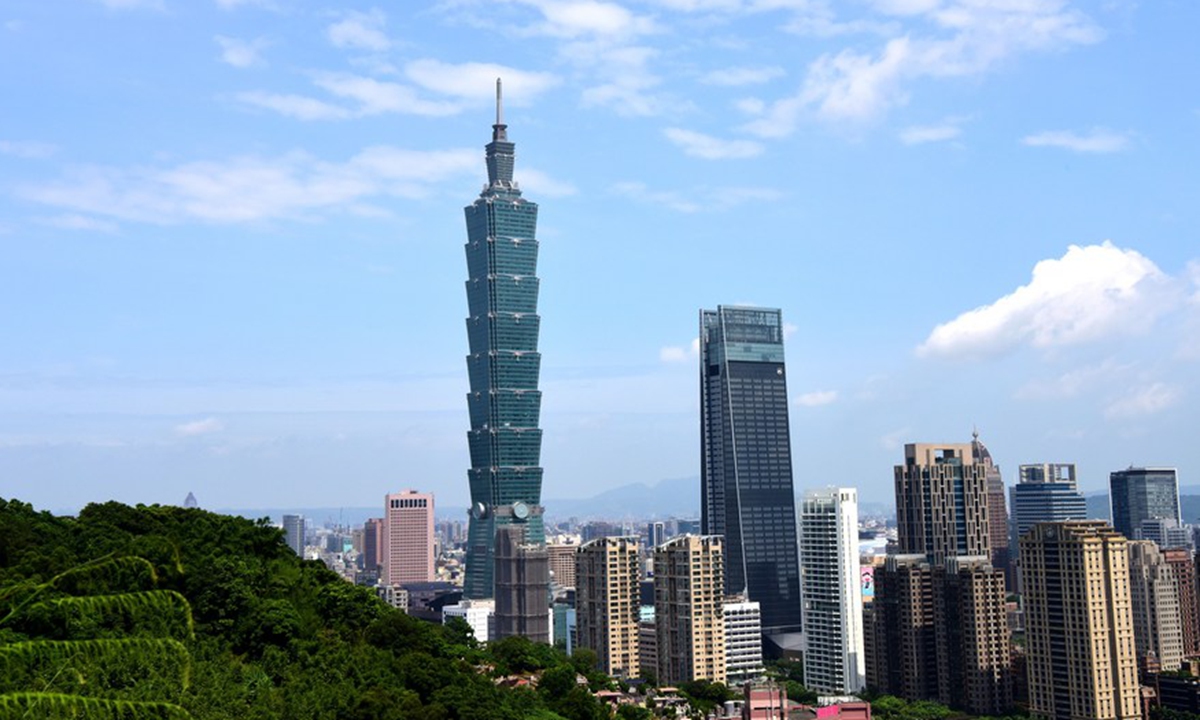
Photo taken on July 21, 2019 from Xiangshan Mountain shows the Taipei 101 skyscraper in Taipei, southeast China's Taiwan. Photo: Xinhua
Hammer finally was hit on "Taiwan independence" diehards. A spokesperson of the Taiwan Work Office of the Communist Party of China Central Committee on Tuesday announced sanctions on "Taiwan independence" diehards on a Chinese mainland's list. This news was greatly hailed on the internet. The mainland web users often warned active "Taiwan independence" diehards should be careful of being put on a sanction list. Now the list has come true. The seven newly listed include Bi-khim Hsiao, Koo Li-hsiung, Tsai Chi-chang, Ker Chien-ming, Lin Fei-fan, Chen Jiau-hua and Wang Ting-yu. Coupled with Su Tseng-chang, You Si-kun and Jaushieh Joseph Wu, who had already been put on the list last year, the figure amounted to 10. The 10 names have since become symbols of shame.Identifying and punishing "Taiwan independence" diehards have always been an important part of the work of "opposing independence and promoting reunification," and the work is being continuously advanced. According to the spokesperson, those diehards on the list and their family members are banned from entering the mainland and the special administrative regions of Hong Kong and Macao. Their affiliated institutions are restricted from forging cooperation with relevant organizations and individuals on the mainland. The enterprises related to them, as well as their sponsors, are prohibited from engaging in profit-making activities on the mainland. It has been specially emphasized by the spokesperson that other punitive measures will also be taken and they will be held to lifelong accountability according to law. It's a must-do to list ''Taiwan independence" diehards and impose sanctions on them. It will help establish a credible deterrent against "Taiwan independence," and set up a pillar of historical shame. Those national black scums who are listed on the pillar will be spurned by generations of Chinese.
We are aiming to deal a precision strike. Most of the newly listed this time performed abominably during US House Speaker Nancy Pelosi's provocative visit to the Taiwan island. Some of them are politicians who have long been stationed in the US engaging in political lobby, some are backbones of the Democratic Progressive Party's political activities while others have advocated for "Taiwan independence" in a high-profile way. Their stubborn nature of seeking "independence" has been further exposed this time. To put it bluntly, our relevant departments are in absolute control of their situation. As a net against "Taiwan separatists" has been opened, we will not miss any diehard separatist. As for when to bring in the net, it's entirely up to us to decide.
In response to the newly announced list of "Taiwan independence" diehards and sanctions, the island's pro-independence media maintain their tough talk and deliberately show their "disdain." Meanwhile, "Taiwan independence" diehards on the list are still obsessed with the idea of seeking "independence," with Lin, Chen, and Wang even claiming that it is "very glorious." We are familiar with this kind of performance. It has become a "standard procedure" for "Taiwan independence" diehards that no matter what kind of fear they have in their hearts, they must posture to be smug.
The fact is, Su, who previously called out that he was very "honored" to be sanctioned, has actually felt the pain. According to Taiwan media reports, many businesspeople and sponsors in the island are afraid to answer Su's phone calls since he was listed as a "Taiwan independence" diehard. In addition, Taiwan media said that in 2020, there are 1,199 listed companies or have business in the island of Taiwan with investments in the Chinese mainland, all of which may not dare to donate to "Taiwan independence" diehards in the name of their companies. Of the DPP's 2020 income, 145 million NTD comes from political contributions, and some of them would be lost because of the sanction. Would Lin and others prefer to have such "glory?"
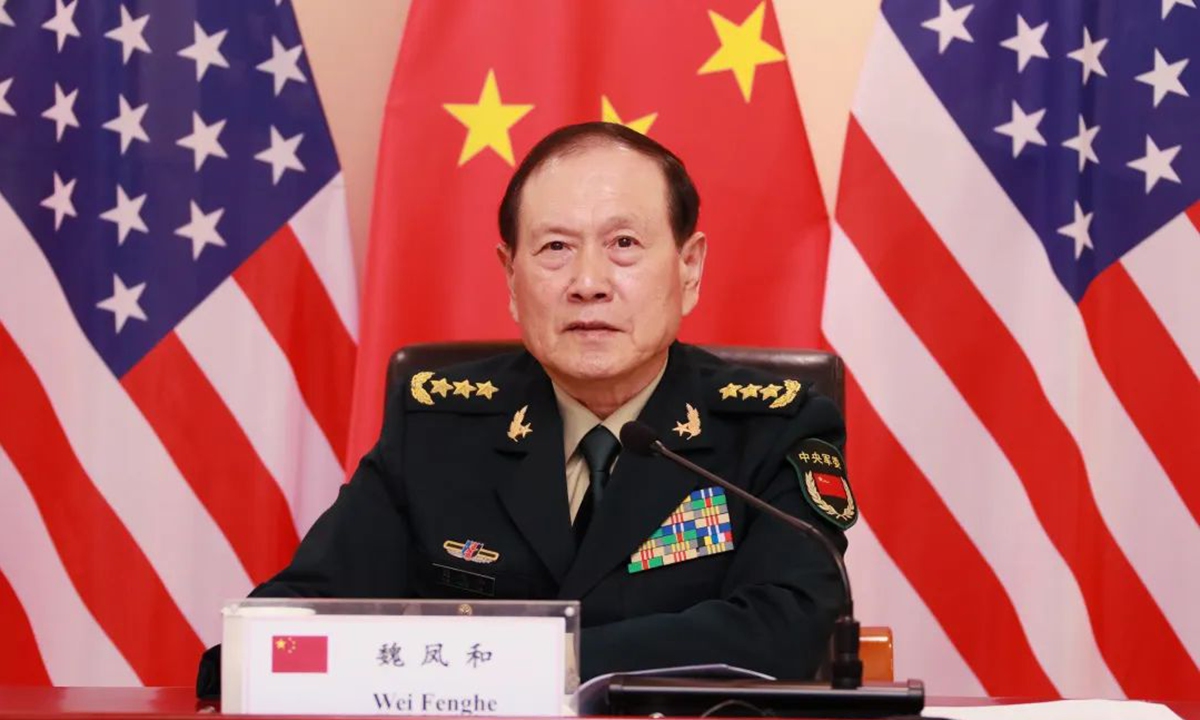
Chinese State Councilor and Defense Minister Wei Fenghe
Chinese State Councilor and Defense Minister Wei Fenghe on Tuesday said the Chinese military has the confidence and courage to defeat any intruders, and stressed staunch determination, firm will and strong ability to safeguard national sovereignty and territorial integrity, after some Western lawmakers smeared China's appropriate, necessary military operations as an "overreaction" to US' constant provocations over Taiwan question.
Wei made the remarks while attending an international security forum in Moscow via video link on Tuesday. "China loves and defends peace, and at the same time firmly upholds its core national interests. There is absolutely no good end to 'Taiwan independence' and interference by external forces will never succeed," Wei said.
The Chinese People's Liberation Army (PLA) Eastern Theater Command on Monday organized multi-unit joint combat readiness patrols and live-fire drills in the sea areas and airspace around Taiwan island, after five US lawmakers visited Taiwan island just 12 days following House speaker Nancy Pelosi's visit.
However, US State Department spokesperson Ned Price claimed China's response to the "peaceful visit" as totally unnecessary and an absolute overreaction at a news briefing on Monday.
One of Britain's top military commanders Jim Hockenhull earlier accused China of "spectacularly useless escalation action" against Taiwan, The Times reported. Hockenhull said there was nothing unusual about Pelosi's trip to the island, but that China's response was "completely disproportionate."

Taiwan Photo: Unsplash
China's top office on Taiwan affairs announced on Tuesday new punitive measures on diehard "Taiwan independence" separatists including banning them and their family members from entering the Chinese mainland, Hong Kong and Macao SARs, and restricting their affiliated institutions from cooperating with relevant organizations and individuals on the mainland. It also included seven new diehard separatists into the mainland's list, who will also face punishment for their egregious deeds in advocating the "Taiwan independence."
Mainland experts called the latest punitive measures a strong deterrent to Taiwan separatists who have become the biggest obstacle for the national reunification, and those sanctions will "make them feel the pain." Especially, figures including Su Tseng-chang, You Si-kun and Jaushieh Joseph Wu, who had already been on the list of diehard separatists, will be held to lifelong accountability according to law.
Some diehard separatists like Su and You are stubborn and reluctant to admit their mistakes. They may claim that they won't be afraid of the mainland's sanctions and those punitive measures won't have any impact on their career or affiliated businesses. However, they won't be able to ignore the fact they will suffer long-standing costs that will bring serious and long-term damages to themselves as well as to their family members and related parties, experts said.
The white paper entitled "The Taiwan Question and China's Reunification in the New Era" released on Wednesday said the DPP authorities have adopted a separatist stance, and colluded with external forces in successive provocative actions designed to divide the country. The paper also said the mainland will leave no room for separatist activities in any form and has already taken lawful action against and to effectively deter separatist forces.
In order to safeguard the peaceful development of the cross-Straits relations and the immediate interests of the people on both sides of the Straits, and resolutely punish "Taiwan independence" diehard elements, the Taiwan Work Office of the Communist Party of China Central Committee included political figures Bi-khim Hsiao, Koo Li-hsiung, Tsai Chi-chang, Ker Chien-ming, Lin Fei-fan, Chen Jiau-hua and Wang Ting-yu on the list of diehard "Taiwan independence" separatists.
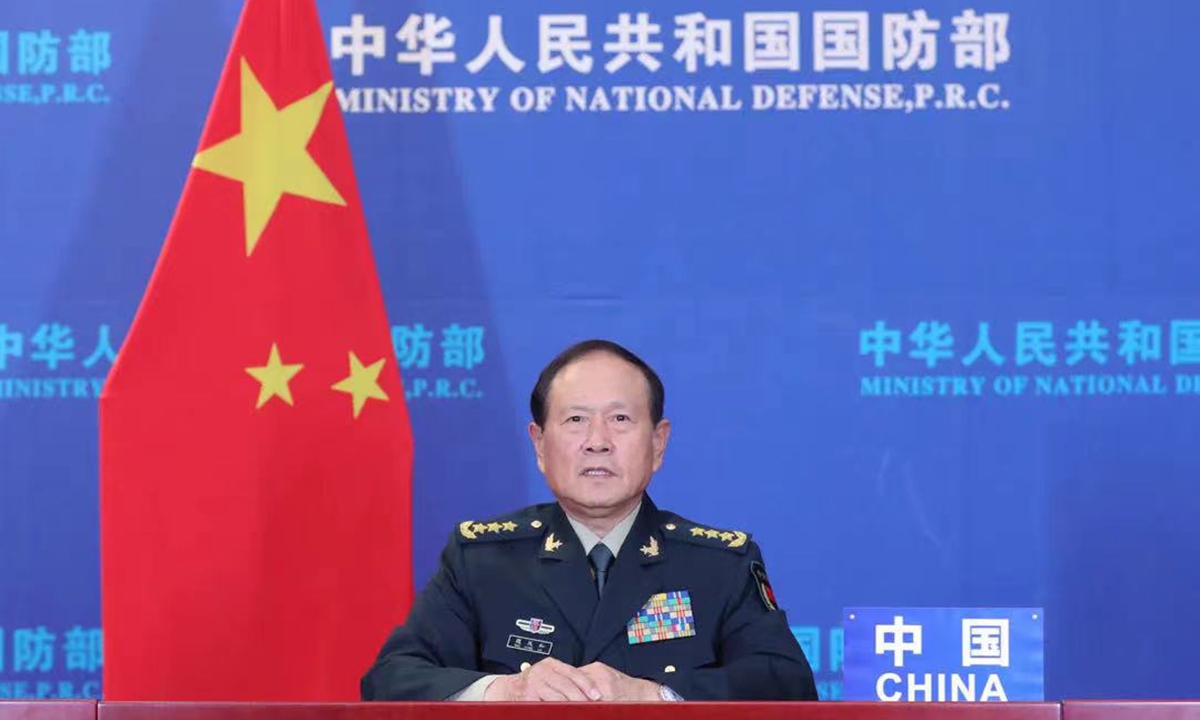
State Councilor and Defense Minister Wei Fenghe delivers a speech via video link at the 10th Moscow Conference on International Security on August 16, 2022. Photo from China's Ministry of National Defense
The Chinese army has never feared any enemy and has the confidence and courage to defeat all intruders. We will safeguard China's national security and territorial integrity with staunch determination, firm will and strong ability, vowed Chinese State Councilor and Defense Minister Wei Fenghe at the Moscow Conference on International Security on Tuesday.
Delivering a speech via video link at the 10th Moscow Conference on International Security hosted by the Russian Defense Ministry from August 16 to 17 in Moscow, Wei called for resistance to hegemonic and bullying practices, urging countries to strengthen cooperation, fairness and justice, as well as peace and stability.
China strives to inject stability and positive energy to the cause of mankind's peaceful development but at the same time firmly safeguard its core national interests, Wei emphasized.
"The moves to separate the Taiwan island will definitely come to no good end and external interference is doomed to fail," Wei said, noting that China has firmly opposed, severely condemned and resolutely taken countermeasures in response to US House Speaker Nancy Pelosi's recent visit to Taiwan island.
China has taken "unprecedented" and "very necessary" countermeasures against Pelosi's highly provocative Taiwan visit. Besides continuous military exercises and training activities around the island, China on August 5th canceled China-US theater commanders' talks, defense policy coordination talks, military maritime security consultative mechanism and suspended cooperation on illegal immigration repatriation, drug control and climate change.
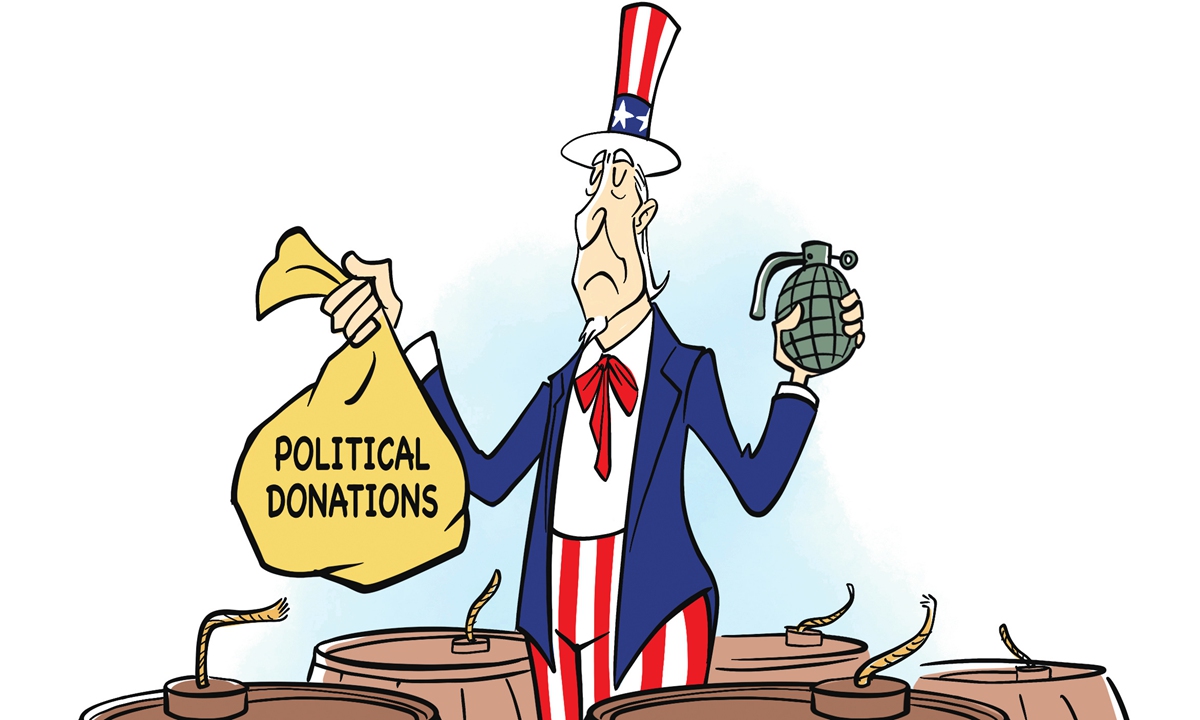
Illustration: Liu Rui/Global Times
The latest round of tensions in the Taiwan Straits, triggered by US House Speaker Nancy Pelosi's visit to Taiwan island, as well as a recent US congressional delegation to the island, has come to a new period. An increasing number of observers and researchers have found that the cross-Straits situation has ushered into a "new normal."
The "new normal" can be seen through China's latest response, with the People's Liberation Army (PLA) Eastern Theater Command announcing an organization of joint combat-readiness security patrol and combat training exercise in waters and airspace around Taiwan island on Monday. The PLA Eastern Theater Command later released a video clip that showed a pilot looking down at Penghu islands during the drills on the same day, and noted this is a solemn deterrent to the US and the Taiwan authorities, which have repeatedly played political tricks and undermined peace and stability in the Taiwan Straits.
These developments mirror the "new normal"-- patrols with far-reaching and substantive influence responding to the politicized visits of US officials will be normalized, and the PLA's sea and air forces will eventually and effectively cover the entire Taiwan Straits. This will be an unstoppable trend, as well as a key feature in this new normal. This will make it one of the most effective and the most ironic responses to US politicians' attempt to manipulate Taiwan question.
Based on relevant analysts, there are three signs to prove the "new normal."
First, the so-called median line has completely disappeared. Taiwan's so-called territorial waters and airspace, claimed by the Taiwan authorities, have been overturned by facts. After the military exercises and training activities, there is no term like "operation ended" in the Chinese mainland's announcement. Instead, it went "all tasks accomplished" and will "organize normalized combat-readiness security patrol" in the Taiwan Straits. It means the Chinese mainland has, from a military perspective, comprehensively practiced and strengthened the control of the cross-Straits region.
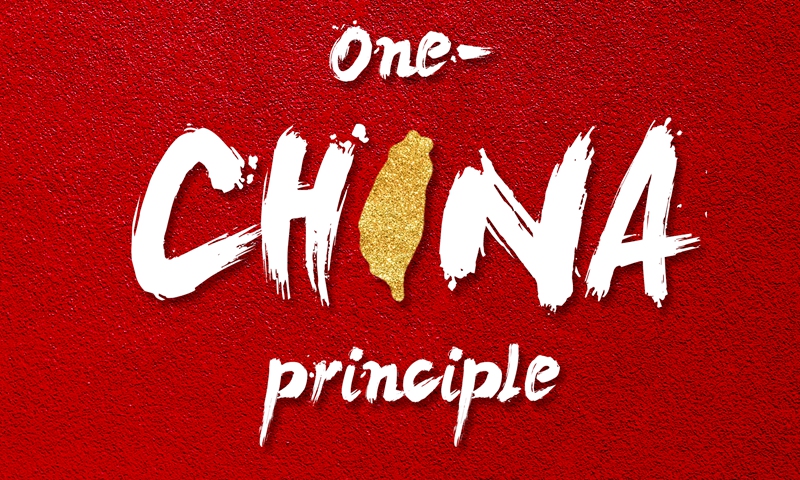
Graphic: Deng Zijun/GT
The Taiwan Work Office of the Communist Party of China Central Committee on Tuesday announced sanctions on "Taiwan independence" diehards on Chinese mainland's list, adding more political figures such as Bi-khim Hsiao and Koo Li-hsiung into the list of diehard separatists and imposed punitive measures on individuals such as Su Tseng-chang, You Si-kun and Joseph Wu.
In order to safeguard the peaceful development of the cross-Straits relations and the immediate interests of the people on both sides of the Straits, and resolutely punish "Taiwan independence" diehard elements, the office included the political figures Bi-khim Hsiao, Koo Li-hsiung, Tsai Chi-chang, Ker Chien-ming, Lin Fei-fan, Chen Jiau-hua and Wang Ting-yu into the list of diehard "Taiwan independence" separatists.
Also, the office imposed the punitive measures on political figures including Su Tseng-chang, You Si-kun and Jaushieh Joseph Wu, who had already been on the list, by banning them and their family members from entering the mainland, Hong Kong and Macao SARs.
Their affiliated institutions are restricted from forging cooperation with relevant organizations and individuals on the mainland. The enterprises related to them, as well as their sponsors, are prohibited from engaging in profit-making activities on the mainland, the spokesperson of the office said. Other punitive measures will also be taken and those figures will be held to lifelong accountability according to law.
Hsiao Bi-khim, the island of Taiwan's representative to the US, was recently criticized by the central government's top office on Taiwan affairs due to her frequent spread of claims about "Taiwan independence," she has helped push US arms sales to the island and recently in advancing the visit of US House Speaker Nancy Pelosi to Taiwan - which is a serious provocation that betrays the US' commitment to China on the Taiwan question.
Sanctions are also imposed on the president of the "Taiwan Foundation for Democracy," and the secretary general of the "International Cooperation and Development Fund." They are banned from entering the mainland, and the special administrative regions of Hong Kong and Macao, said the spokesperson.
You Si-kun is the chairman of the "Taiwan Foundation for Democracy." Jaushieh Joseph Wu is the chairman of the "International Cooperation and Development Fund."
The latest announcement came after China resolutely responded to the continuous provocation by the US on Taiwan question, mostly recently seen in sending another delegation of US lawmakers to the island just 12 days after Pelosi's visit, which seriously trampled on the one-China principle and sabotaged the fundamentals of the China-US relations.
Actions seeking "Taiwan independence" constitute the biggest obstacle to China's reunification and a grave danger to the national rejuvenation, the spokesperson of the Taiwan Work Office of the CPC Central Committee said. Their activities became all the more egregious during the visit by Pelosi to China's Taiwan region, further exposing their obstinate nature in seeking "Taiwan independence."
The Chinese mainland will never tolerate any kind of activity aimed at splitting the country, will never allow any external force to interfere in its national reunification, and will leave no room for separatist activities seeking "Taiwan independence" in any form, said the spokesperson.
For the "diehard secessionists" and their funders on the sanction list, the mainland will take strict measures to bring them to justice in accordance with the Anti-Secession Law, the Criminal Law and the National Security Law, according to media reports.
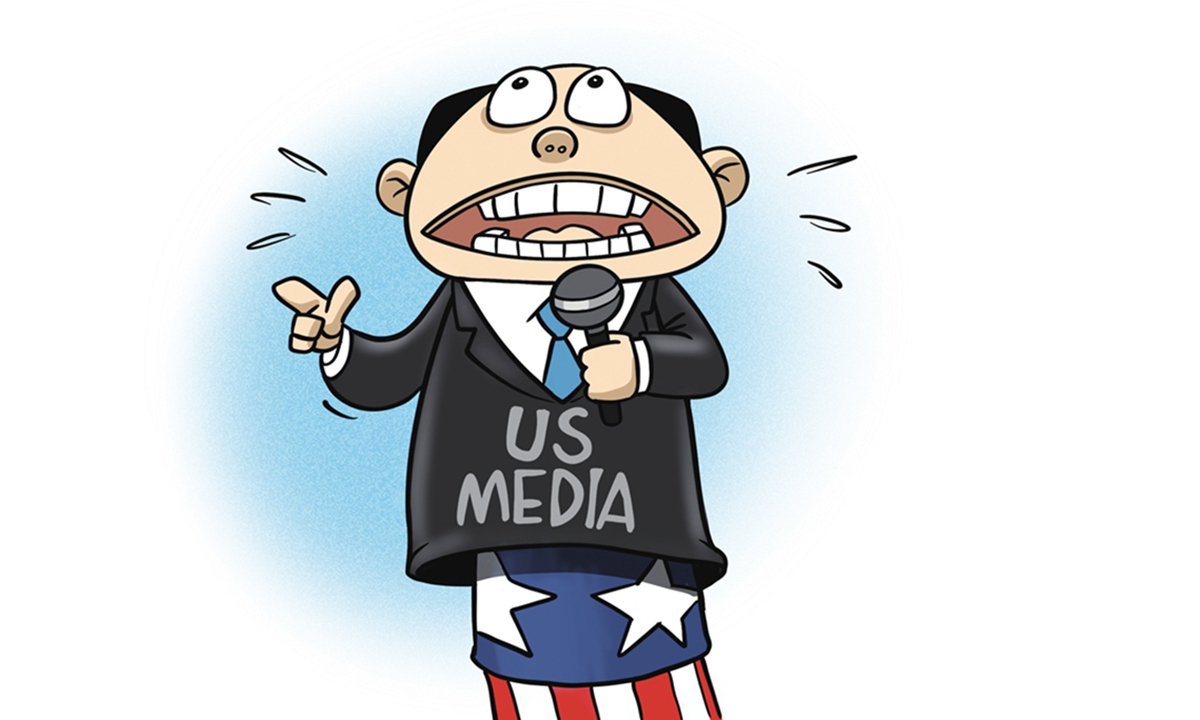
Illustration: Liu Rui/GT
Some US media outlets, which are not good at history, recently have made a lot of noises on Taiwan's historical status, launching a round of public opinion offensive that distorts the narrative about the Taiwan Straits. For instance, they claimed Taiwan doesn't belong to China in history in the name of "exposing lies" and misinterpreted the facts to argue US' one-China policy doesn't include Taiwan. It's not hard to find that they were repeating, using a megaphone, the shabby lies long concocted by Taiwan secessionists such as the so-called theory of the undetermined status of Taiwan. This has almost made people believe they are the pro-independence media manipulated by the Democratic Progressive Party.These claims are full of loopholes and are not worth refuting at all. China was the first to discover and record the existence of the Taiwan region, and it first established administrative jurisdiction over Penghu and Taiwan. The history of Taiwan belonging to China is much longer than US history. Based on the logic of US media that "first discovery, first use, and first jurisdiction don't mean having sovereignty," the land forcibly seized in the United States Westward Expansion has no legitimacy, and it should not be recognized that the sovereignty belongs to the US. In fact, even Japan, which occupied Taiwan through the Treaty of Shimonoseki, recognized the sovereignty of the Qing government over Taiwan. Otherwise, why have the word "cede" used in the treaty? In addition, if the statement regarding one-China when China and the US established diplomatic relations did not involve the issue of Taiwan's sovereignty, why did Washington" cut off diplomatic relations" with the Taiwan authorities and promised not to develop official relations with the Taiwan island?
The US media is trying to dismember Taiwan's history. To put it bluntly, it is rooting through the garbage heap for so-called "historical evidence" in order to "use Taiwan island to contain China." This is completely historical nihilism under evil intentions. Not only did they ignore the UN resolutions, but they also played with words, and cooperated with the US government to hollow out and blur the one-China principle. They also attempted to distort history to define General Zheng Chenggong who recovered Taiwan as China's territory, the Qing Dynasty and even the Kuomintang as "colonialists," treating them the same as Dutch colonialist. To put it bluntly, they fantasize about dismantling the one-China principle on a deeper level, while also covering up Washington's disgraceful practices on the Taiwan question.
But this only reveals their own ignorance regarding history. Over the years, the DPP authorities have made great efforts to find ways to sever the island of Taiwan's historical origin and cultural ties with the Chinese mainland and have gone to great lengths to rewrite, fabricate and fictionalize Taiwan's history. They were even ridiculed several times. This is one of the serial actions by the DPP authorities to seek "Taiwan independence," and to some extent the most harmful one as it aims at poisoning the roots. But what is faked must be fake, and the ideological garbage concocted by Taiwan secessionists, such as "Taiwanese are ethnic people of mixed race" and "the theory of the undetermined status of Taiwan," is not recognized by any serious historical writings in the international arena. Now, some US media think they have hit the jackpot with such rhetoric, making it clear that they are quite ignorant.
Probably it is because the US has long been worried about historical origins, so that it values historical nihilism so much. In 1661, when General Zheng Chenggong recovered the island of Taiwan, the first European settlers had not yet established themselves in North America and were dependent on the indigenous American Indians, the true owners of the land. It was more than 100 years since then that the US declared its independence. There is more than 2 million square kilometers of land in the US that was seized from Mexico by force or trickery. US public opinion historically "whitewashed" the government's aggression and expansion on the American continent by alleging the so-called "manifest destiny." But now, in order to stir up the situation in the Taiwan Straits, they disregard basic historical facts, adding fuel to "the theory of the undetermined status of Taiwan" claimed by the DPP authority. However, these lies will not serve any purpose other than to shame themselves.
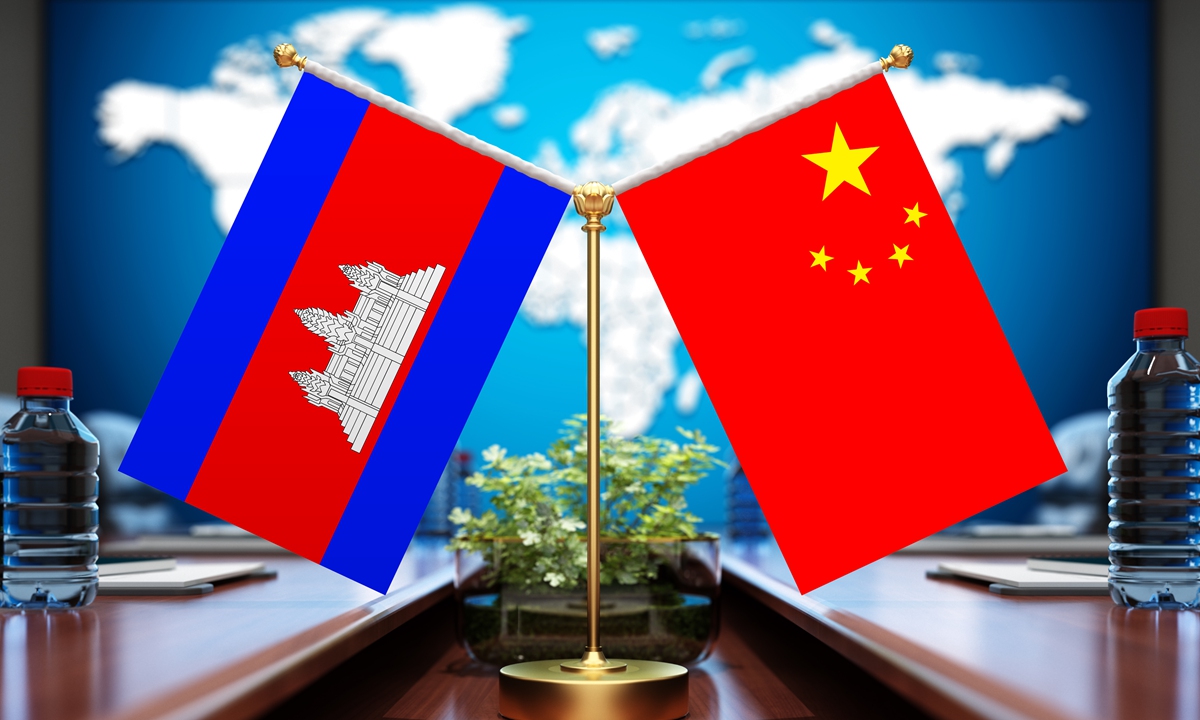
China Cambodia Photo: VCG
During a time when the region's stability and security is seriously challenged by recent US provocative moves, Cambodia's top military official said the Southeast Asian country will always and unwaveringly uphold the one-China principle and firmly support China in safeguarding its national sovereignty, security and territorial integrity.
Xu Qiliang, Vice Chairman of the Central Military Commission, met with the visiting Cambodian Deputy Prime Minister and Defense Minister General Tea Banh in Guangzhou, South China's Guangdong Province on Monday morning, according to a press release by the Chinese Ministry of National Defense on Monday.
Observers said that it is of great importance and urgency to enhance communication and coordination between China and regional countries as well as the Chinese military and the militaries of ASEAN member states.
Xu said that China resolutely supports Cambodia in safeguarding its national sovereignty, independence, development and stability, firmly supports Cambodia in independently choosing a development path, and supports Cambodia in national defense and military construction.
Xu noted that the Chinese military will firmly implement the Global Security Initiative and Global Development Initiative proposed by Chinese President Xi Jinping, and work with Cambodia to jointly and earnestly carry out the important consensus reached by the leaders of the two countries, to strengthen communication and coordination, deepen practical cooperation, safeguard regional stability and common interests, and write a new chapter of high-quality development of the relations of the two militaries.

A warplane of the Eastern Theater Command of the Chinese People's Liberation Army (PLA) takes off during joint combat training exercises around the Taiwan Island. Photo:Xinhua
As the US continued its provocation to China by sending a delegation of five lawmakers to China's Taiwan region, the Chinese People's Liberation Army (PLA) Eastern Theater Command organized multi-unit joint combat readiness patrols and real-combat drills in the sea areas and airspace around the Taiwan island on Monday, serving as a firm response and solemn deterrent to the provocation and collusion between the US and the Taiwan island.
Some Chinese experts warned that it's highly dangerous that the US government is playing with fire in challenging China on its core interests, and more lawmakers not only from the US but also from other Western countries may follow suit. It's necessary to impose sanctions on those who have trampled on the one-China principle, and at the same time, the PLA's military exercises and training activities surrounding the island are expected to become routine until reunification, some experts said.
The reportedly two-day visit of US lawmakers, led by Ed Markey, member of Senate Foreign Relations Committee, came just 12 days after US House Speaker Nancy Pelosi visited the island - a highly provocative and reckless move that seriously trampled on the one-China principle and undermined the fundamentals of China-US relations, leading to a series of countermeasures from Beijing including sanctioning Pelosi and her immediate family members, halting military and climate change talks between the two countries.
Chinese officials strongly condemned the latest visit made by the US lawmakers, which is considered as a blatant provocation that ignored the repeated warnings and opposition from the Chinese side following Pelosi's visit. The Chinese Foreign Ministry said on Monday that China will take resolute measures to safeguard its sovereignty and territorial integrity.
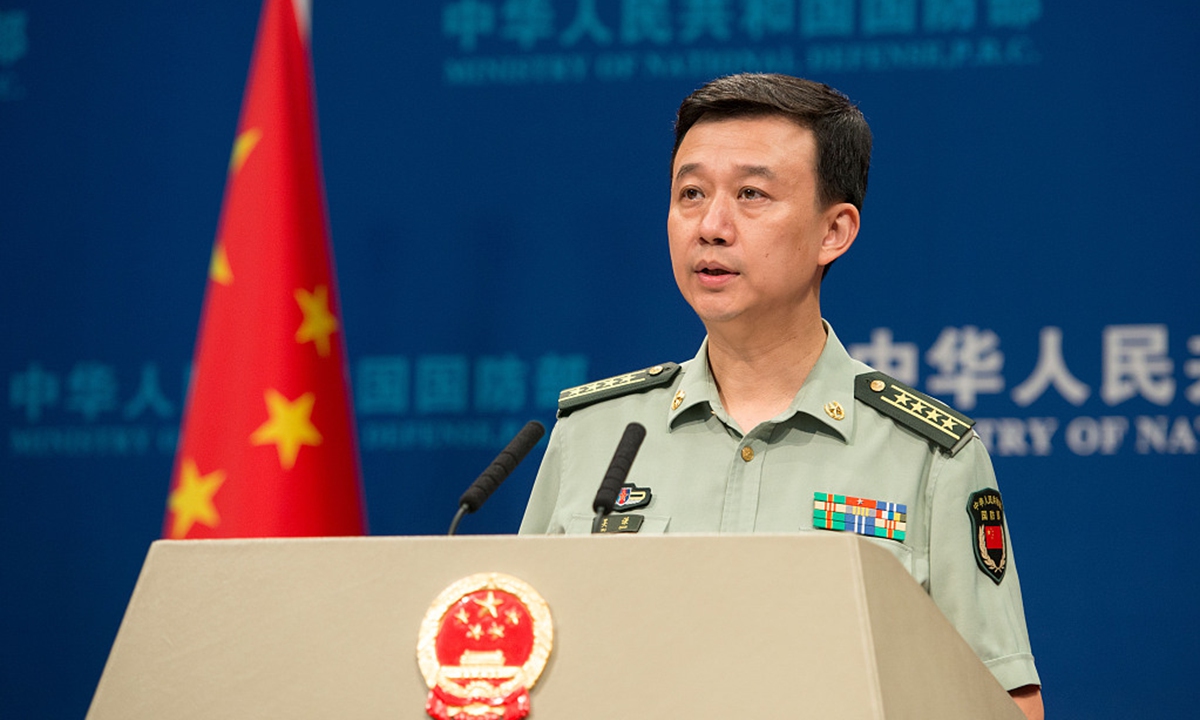
The Chinese People's Liberation Army (PLA) will continue to carry out military exercises and resolutely safeguard the sovereignty and territorial integrity of China, Chinese Defense Ministry spokesperson Wu Qian said on Monday. He expressed China's firm resolve, saying the PLA will resolutely crush any secessionist attempts for "Taiwan independence" and external interference in China's internal affairs.
Senior Colonel Shi Yi, spokesperson for the PLA Eastern Theater Command, confirmed that the PLA's Eastern Theater Command has organized multi-unit joint combat readiness patrols and real-combat drills in the sea areas and airspaces around the Taiwan island on Monday.
Just 12 days after US House Speaker Nancy Pelosi paid a provocative visit to the island of Taiwan, a US congressional delegation, led by Democratic Senator Edward J. Markey of Massachusetts, made a sudden visit to the island on Sunday and was scheduled to meet with Taiwan regional officials from Sunday to Monday, the Taiwan authorities announced on Sunday.
Wu Qian said that the US senators' visit to the island is a blatant violation of the one-China principle and the three China-US joint communiques, infringes on China's sovereignty and territorial integrity, sends a wrong signal to the Taiwan secessionist forces, and has fully exposed the US's role of spoiling and destroying the peace and stability in the Taiwan Straits.
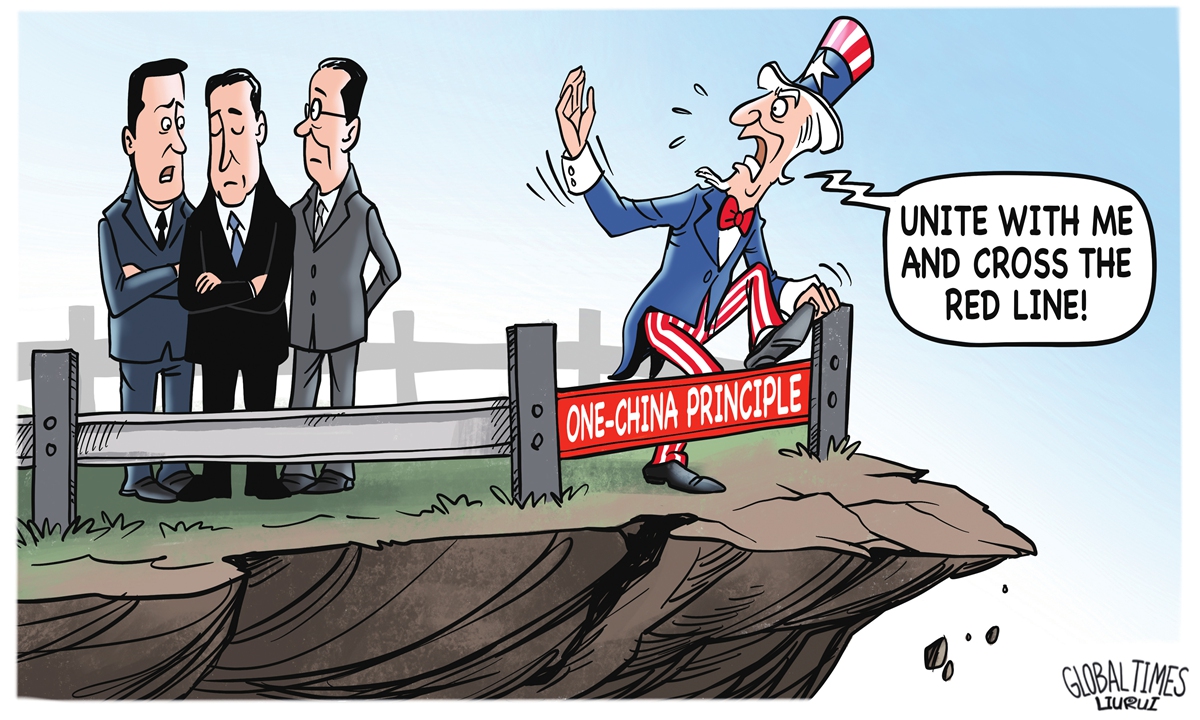
Illustration: Liu Rui/GT
The stunt - US House Speaker Nancy Pelosi's visit to Taiwan - was the latest US move in "creeping separatism promotion" involving a series of increasingly higher-level US political visits to the island, even as the government of the Chinese mainland has correspondingly heightened its objections to the visits. While the Biden administration disowned the Pelosi visit, this was belied by Pelosi's use of US military planes, thus exposing once again the treacherous US policy of "strategic ambiguity."
The Philippines, as did ASEAN and the rest of the World, watched the Pelosi-Taiwan tragicomedy unfold while international mainstream and social media followed the flight of Pelosi, which skirted the South China Sea and landed in Taipei like a thief in the night. It skipped the Philippines, which many Filipinos believe is an affirmation of the country's neutrality on the issue.
When Pelosi ended her comedy and departed, China's People's Liberation Army (PLA) conducted spectacular and well-planned "military drills" that shook the US. These exercises demonstrated to the world that, 27 years after the 1995 Taiwan Straits crisis when the US had paraded its carrier groups through and around the Taiwan Straits with impunity, China's PLA now fully controls its entire territory and is just waiting to complete peaceful reunification
China's military drills were a communications masterpiece. They completely isolated the island of Taiwan without disturbing anyone else, exhibited its missile capabilities without hurting anything, and challenged the US without taunting. It then escalated the message by cutting off key dialogues and cooperation initiatives with the US. US State Secretary Antony Blinken was forced to call quickly for "de-escalation." Chinese mainland held back a number of Taiwan exports, reminding the island's separatists where its prosperity lies.
Watching from the Philippines, I was so thrilled by the PRC's "winning the war without fighting" that I penned a column in the Philippine News Agency, an official government information platform, entitled "US forever wars ends with the Pelosi-Tsai stunt."
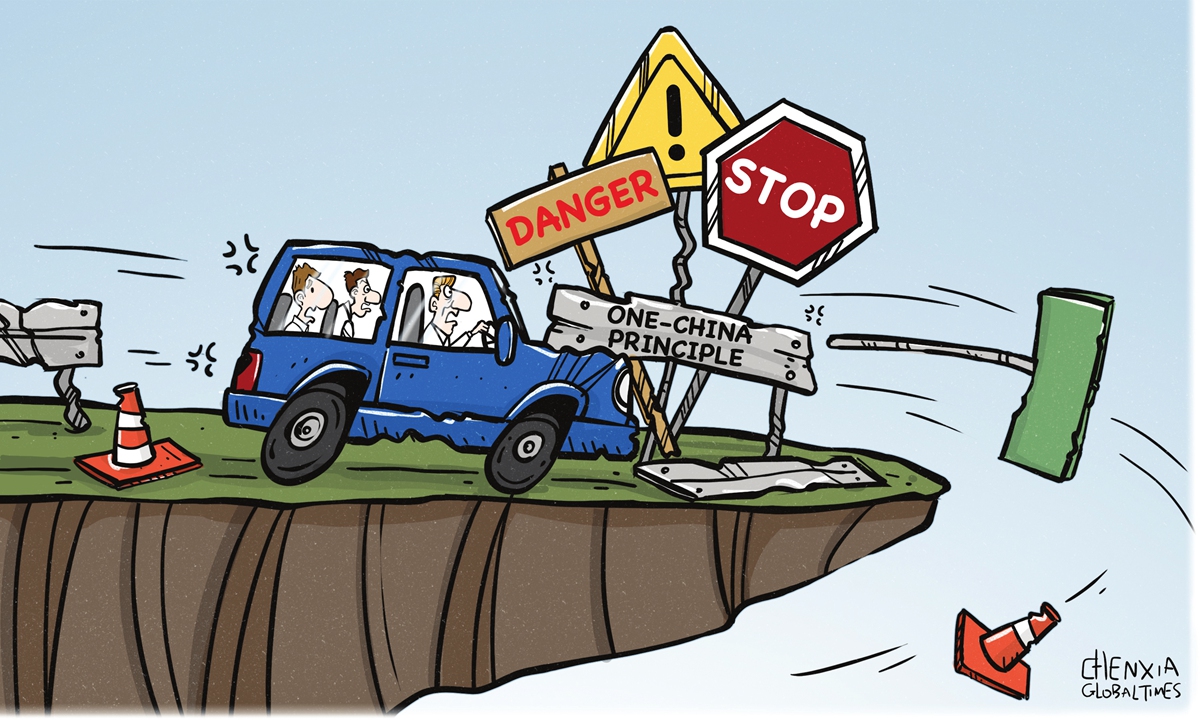
Illustration: Chen Xia/GT
Following US House Speaker Nancy Pelosi's provocative trip to the Taiwan island, another US congressional delegation landed on the island on Sunday on an unannounced two-day visit.
The US and Democratic Progressive Party (DPP) drums pound louder to incite further provocation against One China principle. DPP-allied neoconservatives dominate President Biden's national security state and Congress. Their frenzied, media-amplified calls to fight China conveniently mask US debacles including the Afghanistan withdrawal and the US' role in the Ukraine conflict.
The Doomsday Clock metric shows just over a minute remaining before a nuclear holocaust is triggered in Europe or the Indo-Pacific.
Americans still have time to read China's White Paper titled "The Taiwan Question and China's Reunification in the New Era" to change course.
Readers will come to appreciate the seriousness of China's statement that Taiwan is part of China. They will also comprehend China's iron resolve to reunify one China, a non- negotiable objective that will be achieved, in a process that cannot be halted.
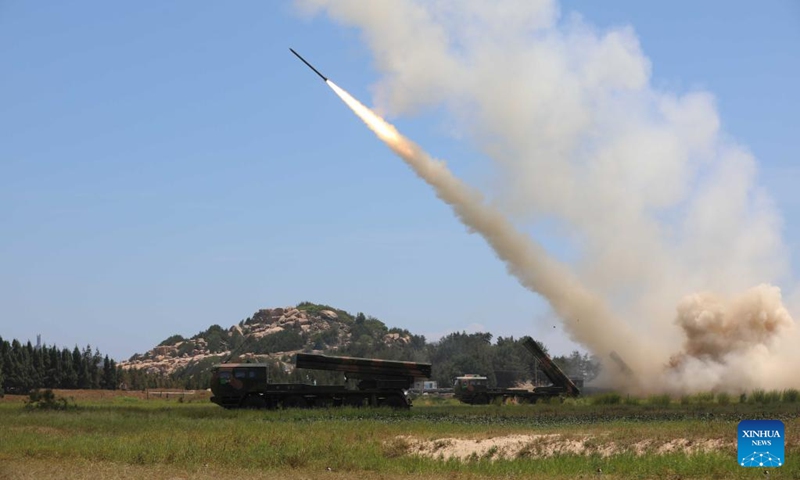
The army of the Eastern Theater Command of the Chinese People's Liberation Army (PLA) conducts long-range live-fire drills in the Taiwan Strait, Aug 4, 2022. The Eastern Theater Command on Aug 4 conducted joint combat exercises and training around the Taiwan Island on an unprecedented scale. (Photo by Hong Wei/Xinhua)
Just 12 days after US House Speaker Nancy Pelosi visited the island of Taiwan, a delegation of US lawmakers made a sudden visit to the island on Sunday, further proving that the US is the one that makes repeated provocations and keeps tensions from easing, said Chinese experts.
They stressed that China will definitely impose sanctions on the visiting lawmakers as a countermeasure, as the country has always been firmly opposed to any collusion between the US and Taiwan secessionists.
No forces should ever underestimate China's determination to safeguard its national sovereignty and territorial integrity, analysts said, warning anyone against stirring up trouble.
The People's Liberation Army's military drills encircling the island of Taiwan have sent a loud and clear-cut warning signal, but some US politicians are still "playing with fire" to serve their own political interests, so the international community can see clearly who is the troublemaker that always ignores warnings and keeps worsening regional peace with endless provocations, and sooner or later, they will be "burned" and punished, they noted.
A US congressional delegation arrived in the island of Taiwan on Sunday and will meet with Taiwan regional officials from Sunday to Monday, the Taiwan authorities announced on Sunday.
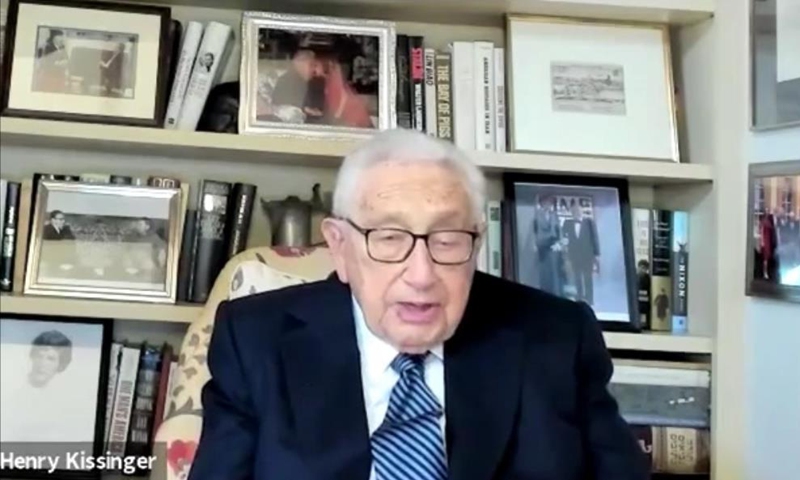
Photo: Henry Kissinger
Henry Kissinger, the veteran US diplomat, sent out a fresh warning to the Biden administration amid rising tensions in the Taiwan Straits, saying he sees today's world as verging on a dangerous disequilibrium and calling careful actions. Yet the White House continued shifting the blame to China over the consequences of the provocative trip of US House Speaker Nancy Pelosi to Taiwan island, ignoring the growing voices of far-sighted politicians and observers in the US who opposed the trip. Chinese experts believe that today's US government, which lacks political wisdom and strategic insight, is becoming a great uncertainty to the world.
In an interview with The Wall Street Journal, Kissinger, the 99-year-old former secretary of state, is worried about "disequilibrium." He said "we are at the edge of war with Russia and China on issues which we partly created, without any concept of how this is going to end or what it's supposed to lead to."
On the Taiwan question, Kissinger is worried that the US and China are maneuvering toward a crisis, and he counseled steadiness on Washington's part, the US media reported on Friday. The US policy on Taiwan island has "preserved peace between China and the US for 50 years," he said, noting that "one should be very careful, therefore, in measures that seem to change the basic structure."
The provocative trip of Pelosi to Taiwan has aroused growing voices of opposition in the US, as not only mainstream US media outlets such as The New York Times came up with editorials saying that "the US relationship with China does not need to be so tense," but also some opinion leaders like Thomas Friedman called this trip "utterly reckless."
"This is a 99-year-old person educating the 79-year-old," Lü Xiang, a research fellow at the Chinese Academy of Social Sciences, told the Global Times on Sunday. "Apparently, the current US government has no idea about what the equilibrium is, as first, you have to admit the legitimacy of your counterpart. If you challenge the legitimacy including the sovereignty of your counterpart, it's impossible to reach an equilibrium," he said.
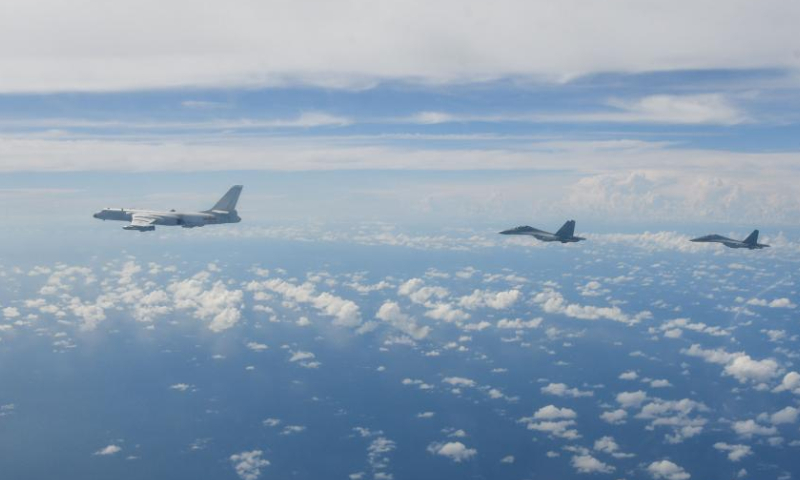
Warplanes of the Eastern Theater Command of the Chinese People's Liberation Army (PLA) conduct operations during joint combat training exercises around the Taiwan Island, Aug. 7, 2022. The Eastern Theater Command continued its joint combat training exercises as scheduled on Sunday in the waters and airspace around the Taiwan Island. Photo: Xinhua
Several US lawmakers made a visit to the island of Taiwan via US military aircraft on Sunday. This is new provocation. On the same day, it's revealed by the Taiwan side that China's PLA sent 22 military aircraft and six warships for combat readiness security patrols in the Taiwan Straits and some of them crossed the so-called median line, which the mainland doesn't recognize.
Washington has repeatedly said that their "one-China" policy has not changed, however the frequency of US lawmakers and officials visiting Taiwan is increasing crazily, sending a message of support to "Taiwan independence" and policy of confronting the mainland. This is producing a significantly different feeling in the Taiwan Straits from what the US is claiming. The Taiwan authorities believe that Washington is shielding their radical policy and that they can move toward independence as they and Washington are using each other. From the mainland's perspective, the Taiwan question is raising our diplomatic cost and our determination to take action with a short-term pain rather than tolerating a long-term pain is also rising.
In my opinion, China must carry out game with the US based on our own pace. The Chinese mainland recently launched large-scale military drills encircling the Taiwan island to demonstrate our strong will to oppose Taiwan independence and promote reunification, setting a historic precedence of making a blockade of the Taiwan island, and simulating the combat tactic cooperation of liberating Taiwan. On the whole, what the US pursued is not substantive, while the mainland is moving step by step toward consolidating sovereignty over Taiwan.
From a historical perspective, today's Taiwan resembles Peking (now Beijing) in early 1949 where the final craziness was staged. In January 1949, the PLA encircled Peking, which was then occupied by the KMT forces, and eventually forced the KMT commanders to surrender so the liberation of the city was peaceful.
This conclusion is not exaggerated at all. It can be expected that for some time in the future, there will be more US and Western lawmakers visiting Taiwan in groups to instigate "Taiwan Independence" forces and exploit the opportunity to stage a show themselves and boost their sense of existence.
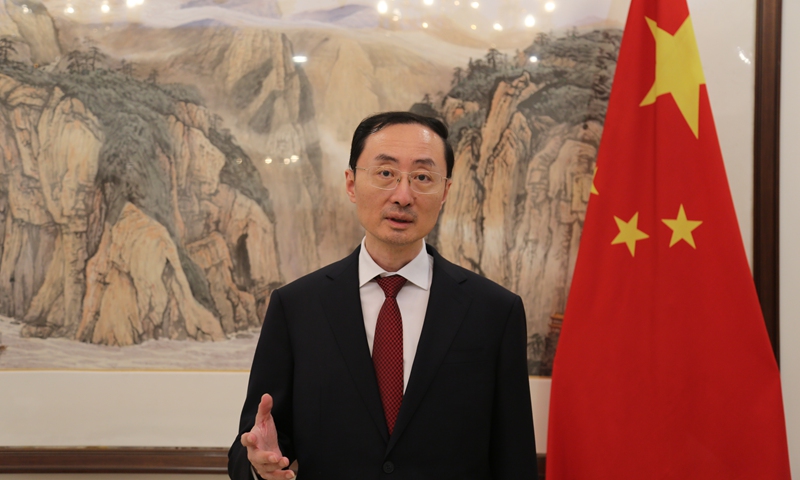
Chinese Ambassador to India Sun Weidong
The Chinese Ambassador to India reportedly said Saturday that India-China ties are "seeing a positive impetus" and called on India to stick to the one-China principle after Indian External Affairs Ministry made its first public comment over US House Speaker Nancy Pelosi's provocative visit to the island of Taiwan.
Experts urged India to choose a pragmatic policy toward China on sensitive issues, including the Taiwan question and US-India cooperation, for China-Indian relations to see a significant improvement.
At a media briefing on Saturday, Chinese Ambassador to India Sun Weidong said that India and China are seeing a "positive impetus" to ties given two meetings between the foreign ministers in the past few months and Indian Prime Minister Narendra Modi's attendance at the BRICS summit in June, reported the Hindu on Sunday.
Sun talked about the Taiwan question, which has been a hot topic recently amid the escalation of the tension across the Taiwan Straits following Pelosi's visit to the island, and called on India to continue honoring the one-China principle, according to a release from China's Embassy in India.
Sun's remarks came after Indian External Affairs Ministry spokesperson Arindam Bagchi on Friday said the ministry is concerned over the developments of the tension across the Taiwan Straits and called for "the exercise of restraint, avoidance of unilateral actions to change status quo and de-escalation of tensions" in the region, reported PTI.
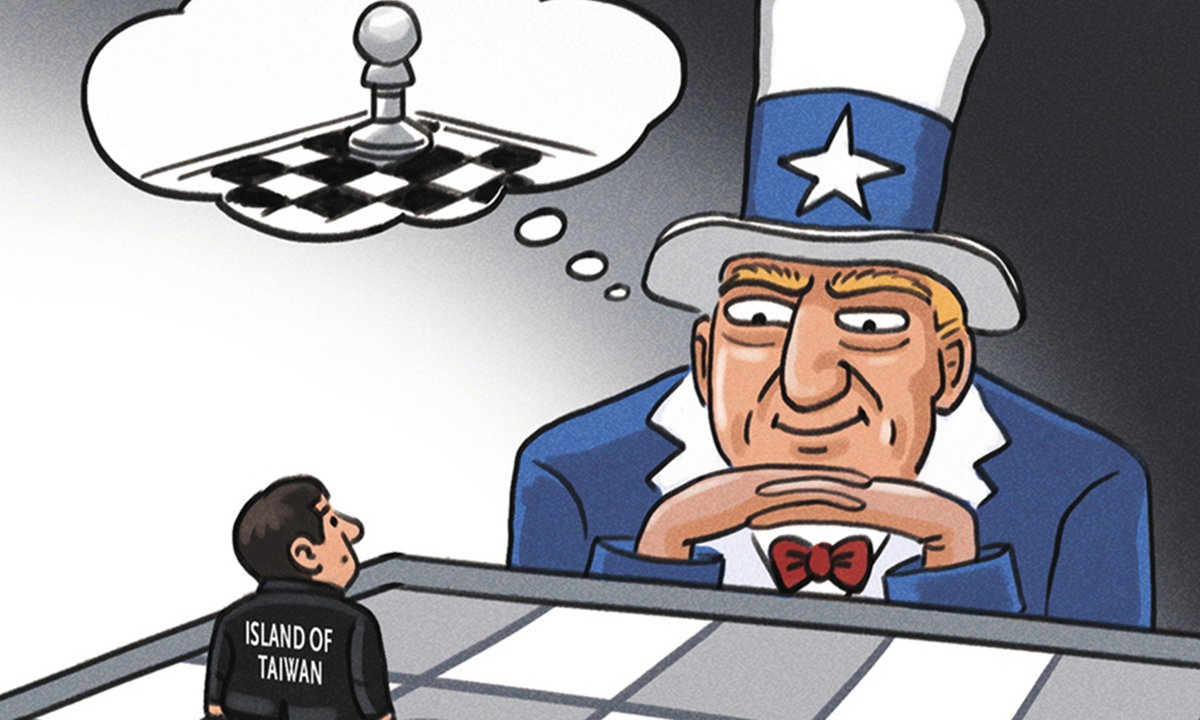
Illustration: Liu Rui/GT
The US is mulling an "ambitious" roadmap for trade negotiations with the island of Taiwan and would announce it in the coming days, the Biden administration's Asian affairs advisor said Friday as he claimed China "overreacted" to US House of Representatives Speaker Nancy Pelosi's provocative visit to Taiwan.
Analysts said on Saturday US' scheme aims to use the island as a chess piece to contain China, while the secessionist Democratic Progressive Party (DPP) authorities will obtain no political or economic benefit.
The DPP authorities' collusion with the US at the cost of the vital interests of Taiwan and the people within the island for its own political benefits will risk decoupling the island from the mainland and accordingly result in economic contraction, they said.
"We'll continue, consistent with our One China policy, to deepen our ties with Taiwan, including through continuing to advance our economic and trade relationship," Kurt Campbell, Deputy Assistant to the President and Coordinator for the Indo-Pacific, said at a press call on Friday (US time), according to a transcript on the White House website.
Campbell said the US and Taiwan region are developing an "ambitious" roadmap for trade negotiations, which will be announced in the coming days.
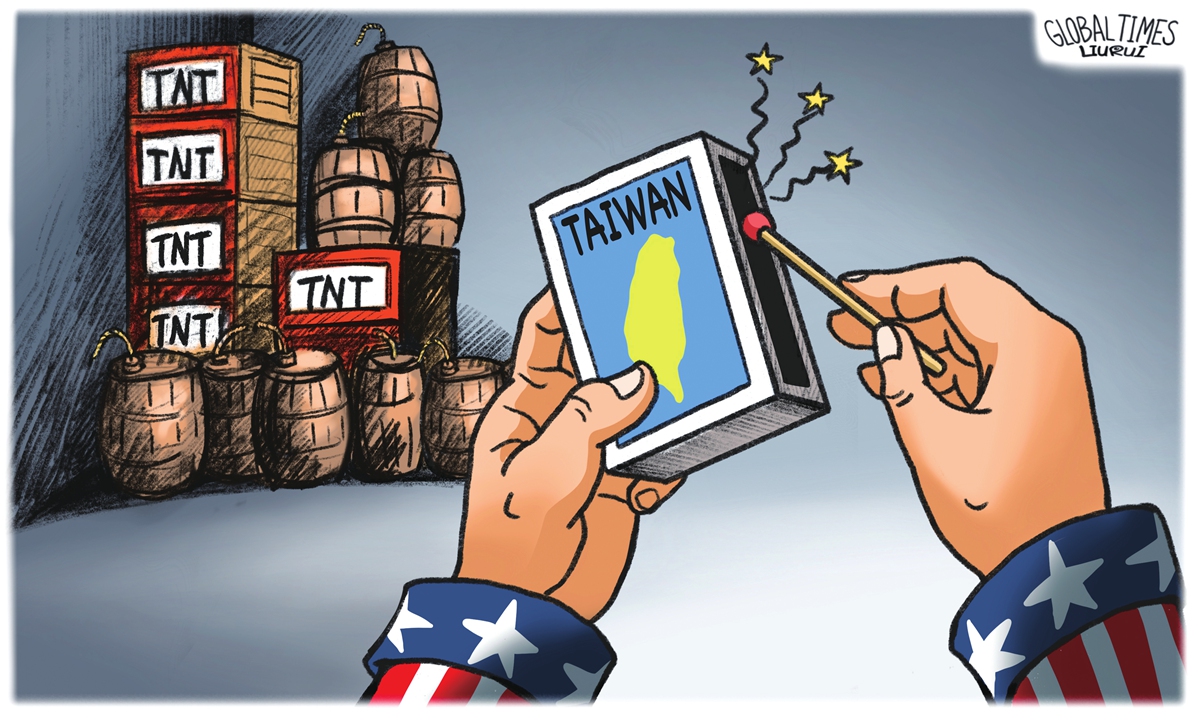
Illustration:Liu Rui/GT
US House Speaker Nancy Pelosi's provocative trip has led to unprecedented countermeasures by the Chinese government, including canceling three cooperative dialogues or meetings with US defense authorities, suspending climate talks, and conducting live-fire drills surrounding Taiwan island. Confusing right and wrong, now some Western countries have begun to accuse China of overreacting, seeking to change the status quo and undermine regional stability. They have even vowed to send vessels across the Taiwan Straits to flex muscles. At this moment, we should make it clear to these countries that they should not overreact to China's countermeasures in this case.
First, China's countermeasures are aimed at safeguarding national sovereignty and territorial integrity. Even though some US government officials, for instance, Secretary of State Anthony Blinken, claimed that Pelosi's trip to Taiwan is nothing "special," one should note that Pelosi is the third-highest-ranking official in the US government traveling in a military aircraft, and as her office described it in her arrival statement, she actually paid a high-profile "official visit to Taiwan." Such a visit has openly broken America's commitment not to develop official relations with Taiwan and crossed the red line, leaving China no choice but to cast severe countermeasures upon Pelosi and those in support of this trip.
Second, through the aforementioned countermeasures China is trying to maintain the political foundation of the most important bilateral relationship across the world, which is critical to the healthy and stable development of the China-US relationship. To put it straightforward, the one-China principle is both the prerequisite and political foundation of China-US relations.
Back in 1972, the US made a solemn commitment to China on the Taiwan question in the three Sino-US joint communiques as follows: "The US recognizes the Government of the People's Republic of China as the sole legal Government of China and acknowledges the Chinese position that there is but one China and Taiwan is part of China." However, in recent years the US has made continuous attempts to hollow out the one-China principle so as to contain China. In the past 18 months alone, the US has completed five rounds of arms sales to Taiwan, let alone the increasingly overt and frequent use of the Taiwan Relations Act and "Six Assurances" to Taiwan in the US rhetoric.
As Henry Kissinger noted, "The United States should not by subterfuge or by a gradual process develop something of a 'two-China' solution." Under such circumstances, our countermeasures mean to give out warnings and urge the US to correct mistakes and guide the China-US relationship back to the right track. We have done our best, and we hope the US side will think rationally and act with sincerity.
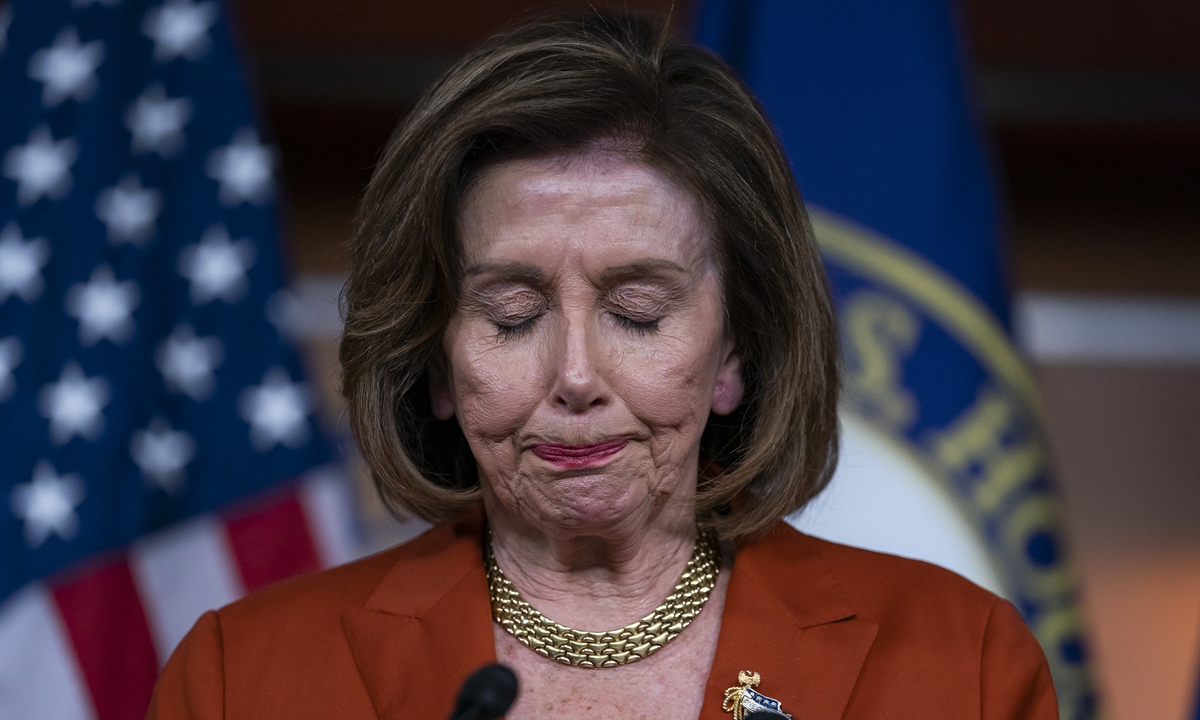
Speaker of the US House of Representatives Nancy Pelosi Photo: VCG
The US should shoulder its own responsibilities and obligations rather than make excuses for its own mistakes, spokesperson for the Chinese Embassy in the UK said in response to US officials' claims that "the entire world will suffer the consequences" of the halt of climate change cooperation, referring to China's decision to suspend climate talks with the US due to US House Speaker Nancy Pelosi's provocative visit to the island of Taiwan.
The US does not represent the world. China already warned the US in advance that Pelosi's visit to the island of Taiwan will likely lead to a crisis and cause major disruptions to exchanges and cooperation between China and the US. But the US turned a deaf ear to this warning and went its own way, the embassy spokesperson said.
The Taiwan question is at the very heart of China's core interests. The US has seriously undermined China's core interests while seeking cooperation from China where it needs it. What kind of logic is this? the spokesperson said.
China's decision to cancel or suspend cooperation in some areas does not come without warning. We say what we mean and mean what we say. There is no reason why the US should feel surprised or upset, the spokesperson stressed.
As a responsible major country, China will, as always, actively participate in international and multilateral cooperation on climate change. We have solemnly announced that we will strive to achieve carbon peaking by 2030 and carbon neutrality by 2060. We are striving to formulate and implement a "1+N" policy framework for low-carbon development and green transition, said the embassy spokesperson.
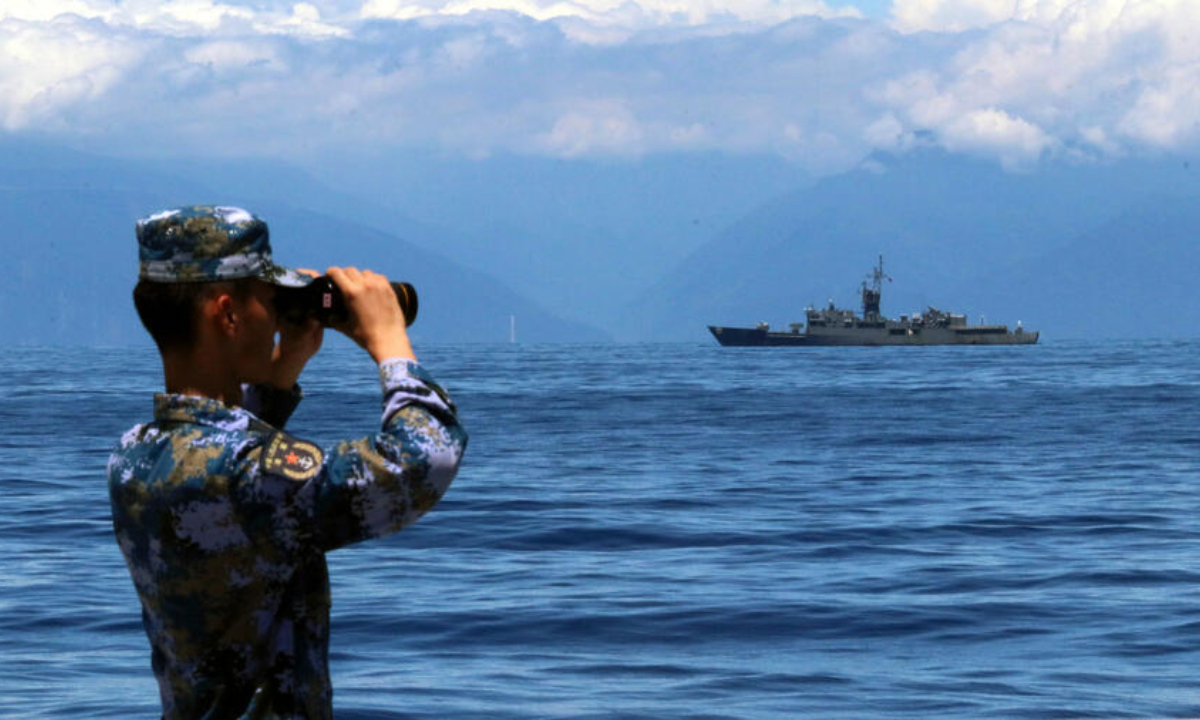
A soldier looks through binoculars during combat exercises and training of the navy of the Eastern Theater Command of the Chinese People's Liberation Army (PLA) in the waters around the Taiwan Island, Aug. 5, 2022. The Eastern Theater Command on Friday continued joint combat exercises and training in the waters and airspace around the Taiwan Island. Photo:Xinhua
China's newly released white paper on the Taiwan question showcased the historical and inevitable trend of reunification, with 1.4 billion Chinese people's determination, sincerity in practicing "one country, two systems" with compatriots in Taiwan island, and China's increasing strength in preventing external interference, analysts said during a symposium held by one of China's highest-level think tanks on Friday.
The Institute of Taiwan Studies of the Chinese Academy of Social Sciences held a symposium on Friday with more than 30 experts on the Taiwan question gathering in Beijing to discuss the importance of the newly released white paper titled "The Taiwan Question and China's Reunification in the New Era."
It was published on Wednesday, following the tensions triggered by US House Speaker Nancy Pelosi's provocative visit to the island of Taiwan on August 2.
Analysts at the symposium pointed out that the white paper highlights the new context in the new era for China to deal with the Taiwan question and the inevitable historical trend for China to realize reunification despite challenges.
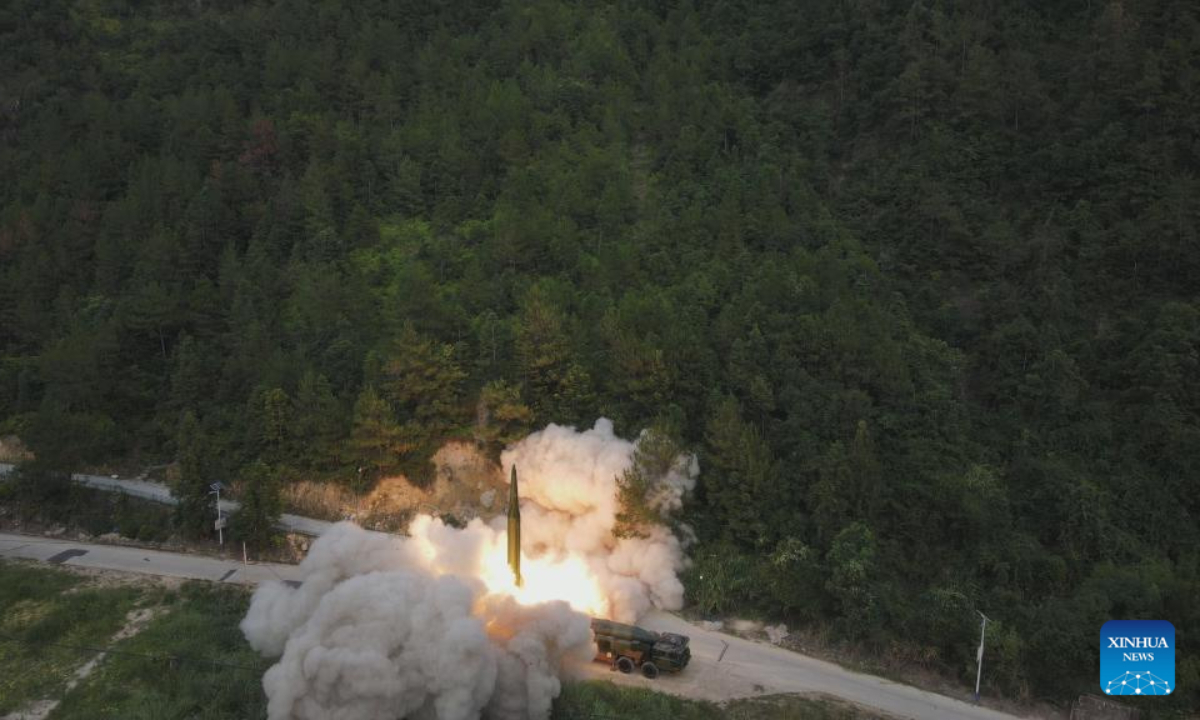
A missile is launched by the rocket force of the Eastern Theater Command of the Chinese People's Liberation Army (PLA), targeting designated maritime areas to the east of the Taiwan Island, Aug. 4, 2022. The Eastern Theater Command on Thursday conducted joint combat exercises and training around the Taiwan Island on an unprecedented scale. Photo:Xinhua
The white paper starts from the preamble, displaying the Chinese people's determination for reunification, noting that resolving the Taiwan question and realizing China's complete reunification is a shared aspiration of all the sons and daughters of the Chinese nation, and it is indispensable for the realization of China's rejuvenation and a historical mission of the Communist Party of China (CPC).
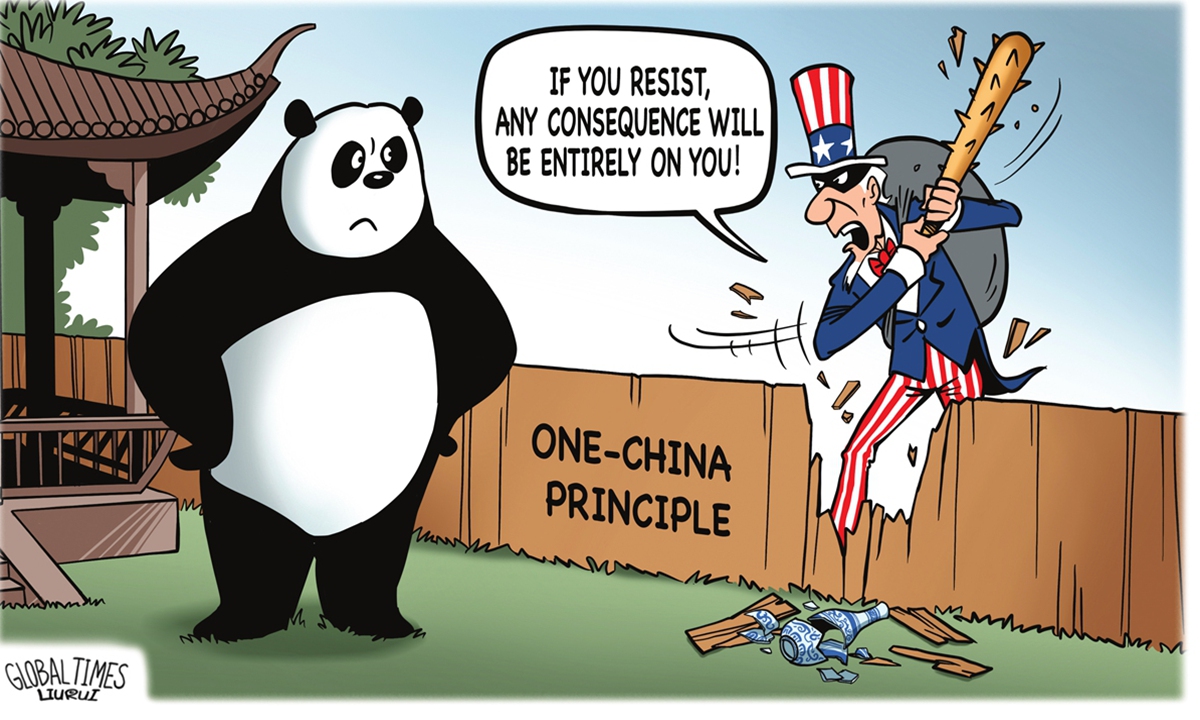
China, US Illustration: Liu Rui/GT
Editor's Note:
It's been a little over a week since US House Speaker Nancy Pelosi wrapped up her sneaky visit to the Taiwan island, but the mess she created remains in the already tense situation. "Whatever way you look at it, it is bad statecraft. It is not adult behavior," Clare Daly (Daly), an Irish politician and member of the European Parliament, told the Global Times (GT) in a written interview. Reports show that on Pelosi's trip, Europe largely stays out of the fray, but a number of Lithuanian and British politicians seem to want to follow suit. "Ordinary people want peace not war. Their leaders should try to reflect that preference," said Daly.

Clare Daly. Photo: Courtesy of Clare Daly
GT: On Twitter, you said Pelosi's visit to Taiwan island was "a stupid, vain, reckless decision, with potentially dire consequences for everyone alive, taken for the sake of a meaningless publicity stunt." Would you elaborate on this view?
Daly: Whatever your view on the status of Taiwan, the status quo involves a delicate diplomatic balance. This includes decades of cautious US policy on Taiwan - something recognized by most American foreign policy experts on cross-Straits relations. Pelosi's trip, at the present moment, appears to signal a change in the US posture, whether or not there actually is a change. That could have runaway consequences. It seems to have been done for no other reason than show off, and make the Democrats look tough on China. US foreign policy experts are alarmed by it. Even the White House didn't want her to go. This is destabilizing and irresponsible. Nobody gains from it: not China, not the US and not people in Taiwan. Whatever way you look at it, it is bad statecraft. It is not adult behavior.
GT: According to your knowledge, do other European politicians share your view?

China US photo:GT
Washington has once again floated a trial balloon on the issue of "China tariffs." This time, its excuse is China's countermeasures against US House Speaker Nancy Pelosi's visit to the Taiwan island. US media outlets quoted a "source" familiar with the matter as claiming that the Biden administration is rethinking potential tariff moves on Chinese products. Over the past months, Washington has repeatedly sent contradictory signals on the tariff issue. One minute, it says it's considering scrapping some tariffs on China. But the next, it says it'll keep tariffs as leverage in the power game against China. The whole process is like one-man face-changing show performed by Washington in front of the world.
Imposing additional tariffs on Chinese products is a stupid and wrong move taken by Washington. It wrongly attributed US' problems to the argument - China earns American money and steals American technologies. The US went against economic laws and disregarded international rules to launch the trade war against China, believing it can make China "spit out what it has eaten." However, in the years since the trade war started, China's foreign trade has not been strangled, and on the contrary, it has even set historical records, including the figure of China-US trade volume. Officials in Washington explicitly acknowledged that some of the tariffs implemented by the previous administration were not strategic and instead raised costs on Americans. American consumers are bearing 92.4 percent of the costs of the tariffs applied to Chinese goods, according to a report published by Moody's Investors Service last year.
An unconditional cancellation of tariffs on Chinese products is not at all a "show of goodwill" by the US to China, much less a "gift," but a mistake to be corrected. In fact, Washington's "tariff war" is indeed going nowhere.
The Biden administration is hurt by a rock lifted and dropped by the Trump administration. But Washington is now suffering the pain and always thinking about "removing tariffs" in exchange for something. The US is so narcissistic that it thinks one glance from it could unsettle China, making China sway by considerations of gain and loss and thus be hurried to make concessions. But frankly speaking, few people in China care about these messages, so they can hardly cause any wave. The Chinese society is already tired of the show the US has put on.
Washington is releasing complex and sometimes contradictory signals on the tariff issue. This is a "political survival instinct" to avoid the accusation of "being soft on China" in the toxic US atmosphere toward China. This time, the US has once again shown its "toughness" over tariffs as some kind of response to the current situation in the Taiwan Straits. It seems to be more of an act aimed at politicians and public opinion at home, because otherwise, they can't report about what they have fulfilled.
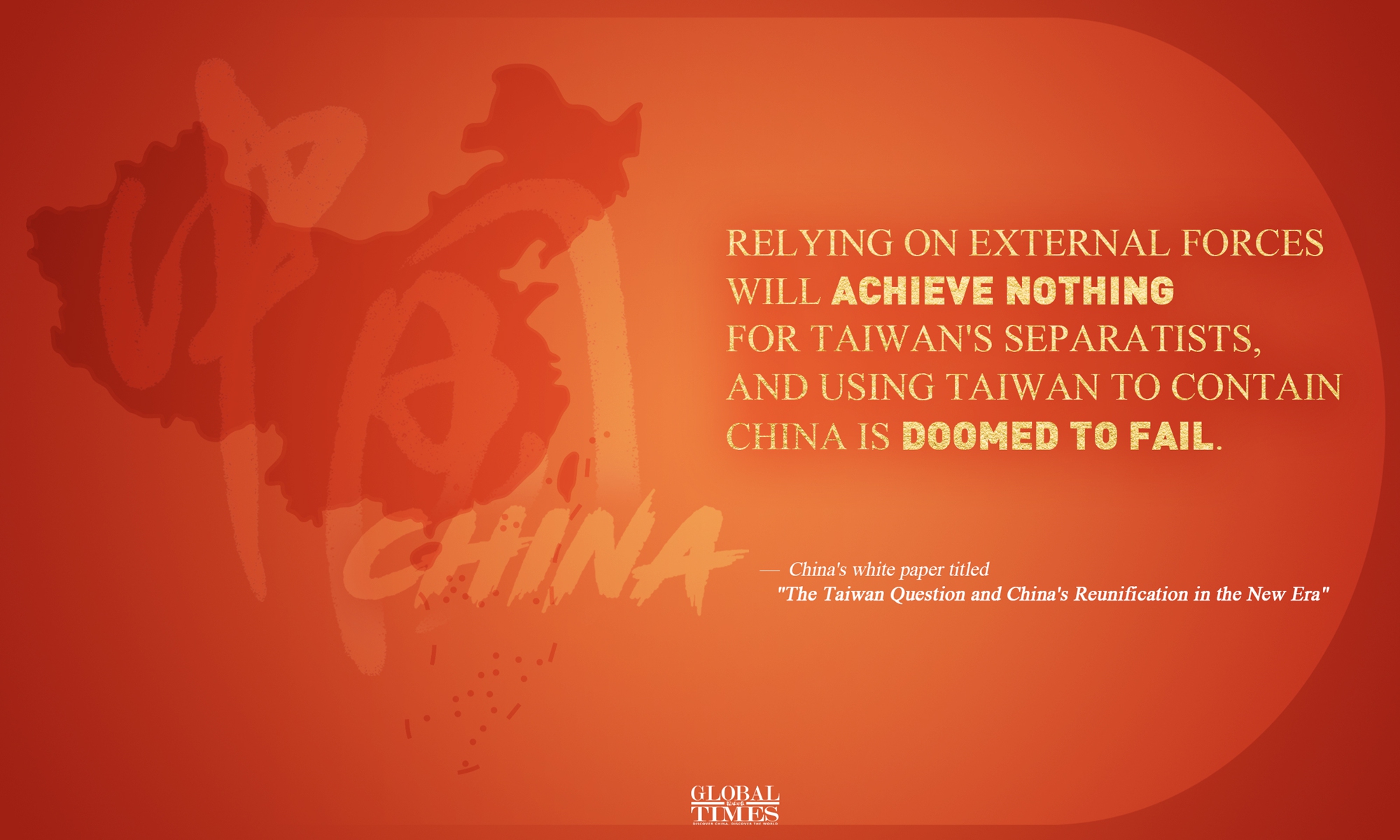
Excerpts from 'The Taiwan Question and China's Reunification in the New Era' Graphic: Xu Zihe/GT
China's newly published white paper titled "The Taiwan Question and China's Reunification in the New Era" has drawn attention not only from two sides of the Taiwan Straits but also the international community, as it has outlined China's plan for post-reunification governance over the island and shown China's confidence in promoting and implementing "one country, two systems" in the island after reunification, said analysts on Thursday.
After days-long unprecedented military drills conducted by the People's Liberation Army that encircled the island, the secessionist Democratic Progressive Party (DPP) authorities have been deeply frightened and deterred, said experts. It's no surprise that the DPP oppose the idea of reunification released by the white paper, as the document says that secessionist forces are the "obstacles that must be removed", so they will keep stigmatizing and demonizing reunification and show their loyalty to the US by insisting on hostility against the mainland, said experts, noting that after reunification, China has the patience and capability to convince the people in the island, as well as the international community, that reunification will bring prosperity, sustainable peace and stability.
But before reunification, the secessionist authorities and the external forces, mainly the US, will continue to add obstacles to interrupt China's reunification process, and Washington will very likely make more provocations and even further escalate the tensions to a more serious crisis, such as passing the "Taiwan Policy Act of 2022" that could designate the island a "major non-NATO ally."
But since China has enough strength and determination to deal with any scenario, in addition to the experience gained from its response to US House Speaker Nancy Pelosi's provocative visit to the island, the US and DPP's provocations will actually create more opportunities for China to speed up the reunification process, said observers. According to media report, Taiwan's "defense authority" said on Thursday that until 5pm, 21 PLA military aircraft and six PLA warships were detected in the Taiwan Straits, and some aircraft crossed the so-called median line, which the mainland doesn't recognize.
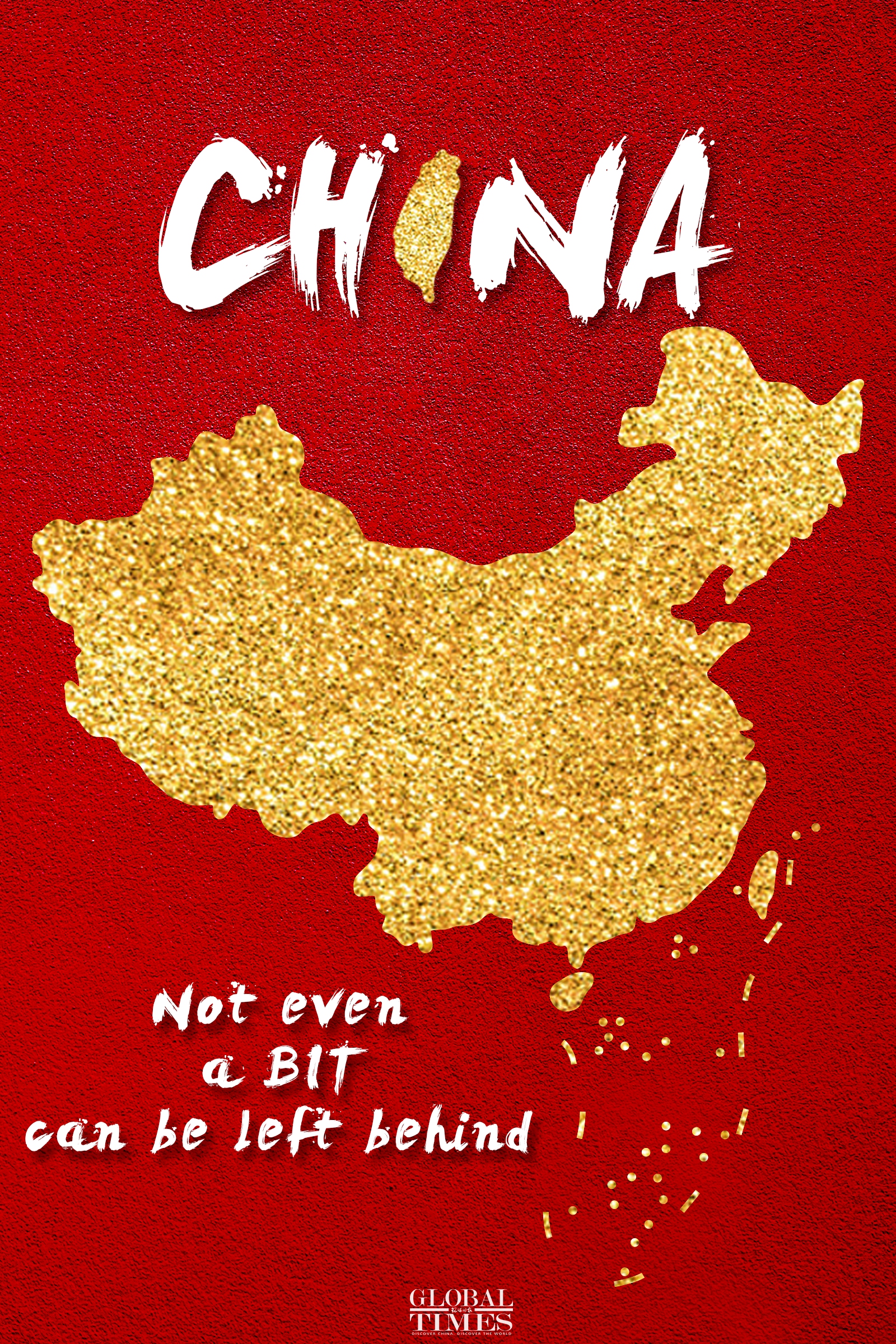
China, not even a bit can be left behind Graphic: Deng Zijun/GT
Confidence in reunification
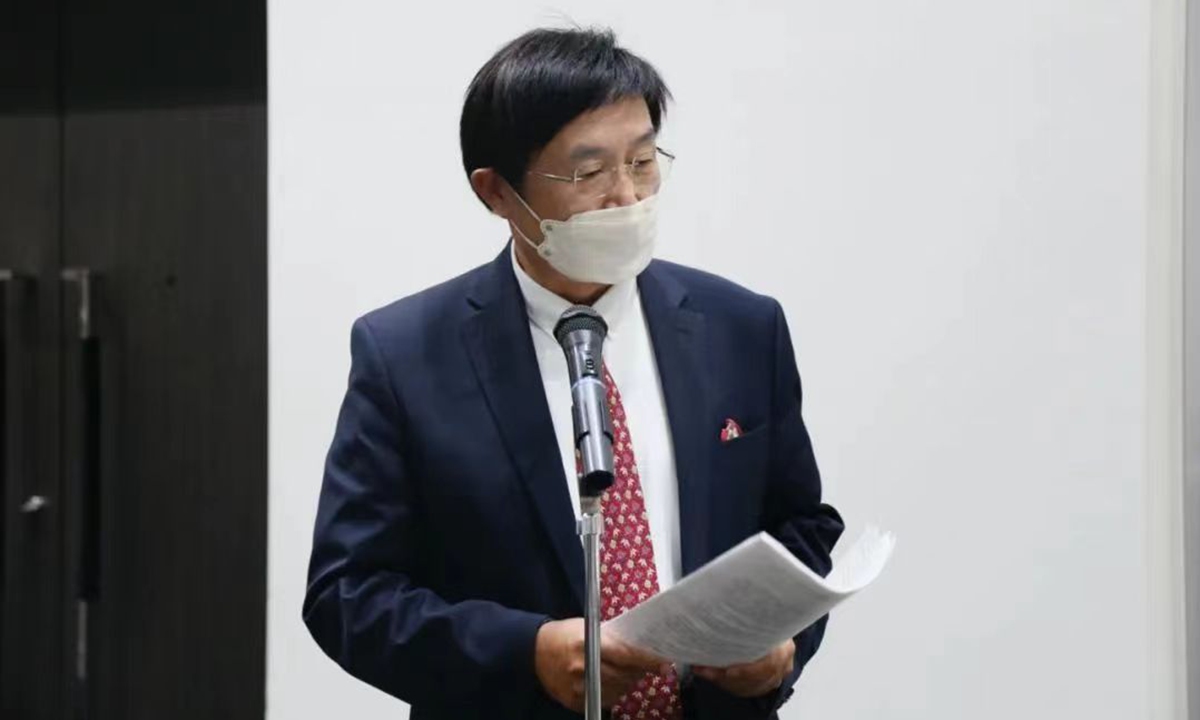
Huang Xingyuan, China's representative director of the Japan-China Friendship Center
Japan must correct its views on China, its relations with China and the world, Huang Xingyuan, China's representative director of the Japan-China Friendship Center, told the Global Times in an exclusive interview on Thursday, after Japan with other Group of Seven (G7) members and the high representative of the European Union (EU) issued a statement that unjustly accused China over the Taiwan question.
China has made a series of solemn statements on US House Speaker Nancy Pelosi's visit to the Taiwan island.
Huang pointed out that positioning China as a partner or an adversary leads to completely different policy directions and guidance on public opinion, saying Japan should look inside itself and rectify mindsets such as "Japan-US alliance is more important than Japan-China relations", "being close to China in economy but relying on the US on security" and "beggar-thy-neighbor".
Maintaining or assisting hegemony goes against the trend of the times as peace and development remain the theme, said Huang, warning that the pursuit of absolute security for one side through the constant expansion of military blocs has only resulted in wars and disasters and the pursuit of unilateralism through sanctions and decoupling only undermines the industrial chain and hits the world's economic recovery.
Some people in Japan want to advocate military expansion and war preparations to change the course of post-war peace. Some are trying to replace the deeply integrated Asian economies with the Indo-Pacific Economic Framework, and some support Taiwan secessionist forces with the dangerous perception that "a Taiwan emergency is an emergency for Japan."

Speaker of the US House of Representatives Nancy Pelosi Photo: VCG
US House Speaker Nancy Pelosi said on Wednesday that she doesn't care about the sanctions China had imposed against her and her immediate family members over her provocative visit to the island of Taiwan.
It is, of course, impossible for Pelosi to admit to the public that she has been affected by the sanctions. But given what the public knows about the "rich woman on Capitol Hill," China's sanctions will inevitably cause her pain.
It is only a matter of time before Pelosi and her family feel the pain of being sanctioned, and no one should have any doubt about China's determination to punish those undermining China's sovereignty and trampling on the one-China principle.
Pelosi has become the highest-ranking US politician sanctioned by China. Moreover, China imposed sanctions on Pelosi during her term, instead of waiting until she steps down. Such a move demonstrates China's strong resolve to safeguard its sovereignty and national interests.
But perhaps the most extraordinary exception is that China hasn't specified its sanction measures this time. Based on Chinese sanctions against other American politicians like Mike Pompeo, it can be expected that any ties of interest with China linked to the business activities of Pelosi and her immediate family members will be severed.
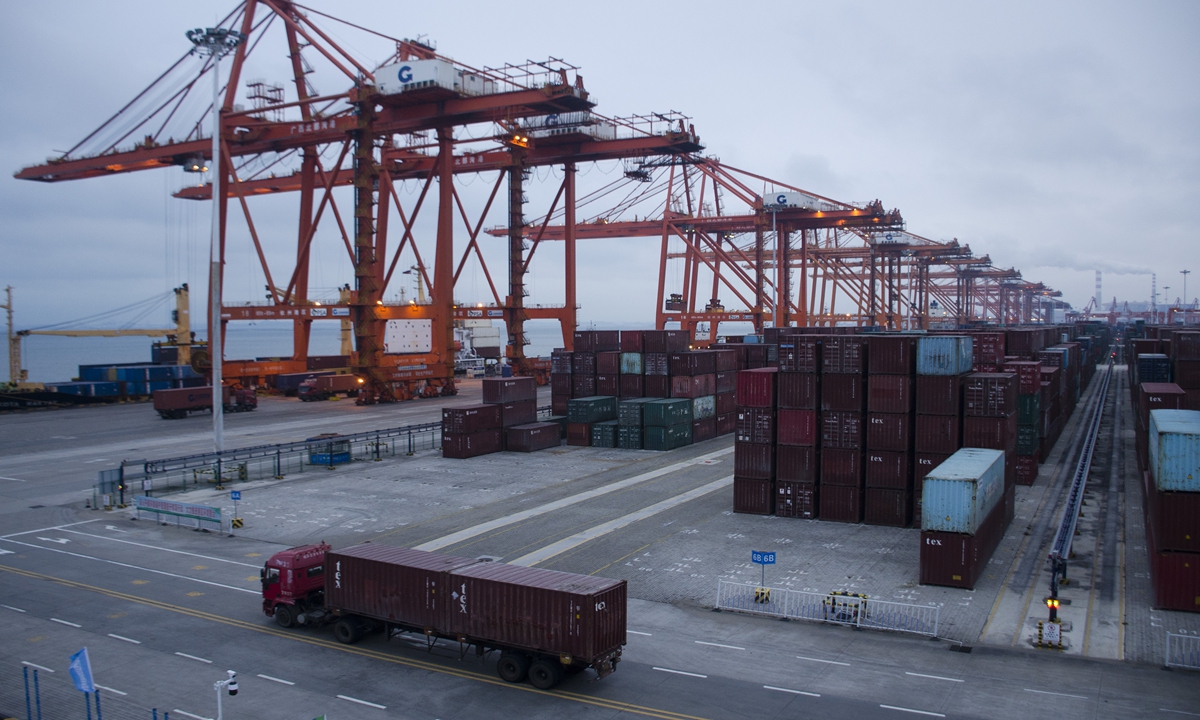
Photo taken on January 10, 2022 shows the container terminal of Qinzhou Port in Qinzhou, South China's Guangxi Zhuang Autonomous Region. Qinzhou vowed to build itself into a China-ASEAN trade and cooperation center and to be open to navigation to major ports in the world. Photo: VCG
Chinese experts said the Biden administration's reported plan to connect the Taiwan question and US tariffs on Chinese goods is "ridiculous," and delaying removing the punitive tariffs will continue to hurt the US economy. If the US keeps the tariffs on Chinese goods, it will only make its own problems such as inflation more difficult to solve, then the US will have to "swallow the bitter fruit," said experts.
A report of Reuters said the US is rethinking its steps on trade tariffs after the Chinese People's Liberation Army's (PLA) recent military drills circling the island of Taiwan, which were steps taken in response to US House Speaker Nancy Pelosi's provocative visit to the island last week.
The Biden administration previously said that it was considering cancelling some of the Trump-era tariffs on Chinese goods in the hope of helping address the country's surging inflationary pressure. The Reuters report said those options were being set aside "for now" and the opinion of the union, which is against rolling back tariffs may be an underlying factor in Biden's considerations. In an interview with Bloomberg TV on Wednesday, US Commerce Secretary Gina Raimondo said, "after Speaker Pelosi's visit to Taiwan, it's particularly complicated."
Chinese Foreign Ministry spokesperson Wang Wenbin said that the US shouldn't expect that China will trade its core interests and urged the US to immediately rectify its wrongdoings and return to the one-China principle and Three Sino-US Joint Communiqués.
China pointed out many times that there'll be no winner in a trade war, and unilateral tariffs imposed by the US will not be good for the US, China or the world, Wang said, adding that the US is an active provocateur and crisis-maker of the current tension across the Taiwan Straits.
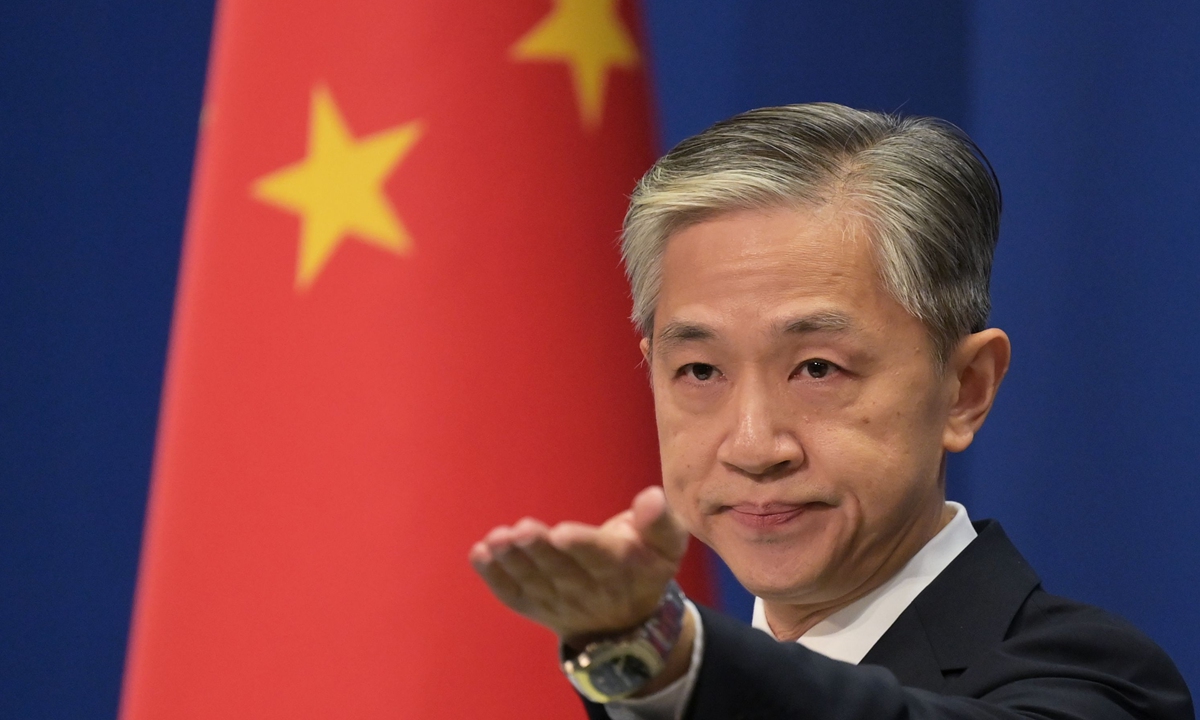
Chinese Foreign Ministry Spokesperson Wang Wenbin Photo: VCG
Responding to a visit by a Lithuanian delegation to the island of Taiwan, Chinese Foreign Ministry spokesperson Wang Wenbin said on Thursday that China will act resolutely against egregious provocation of certain individuals in Lithuania to challenge the one-China principle and undermine China's sovereignty and territorial integrity , while urging Lithuania to stop acting as a pawn of Taiwan secessionists.
Following US House Speaker Nancy Pelosi's provocative visit to Taiwan, Lithuania on Sunday sent a delegation of 11 officials to the island of Taiwan for a five-day visit led by Deputy Transport and Communications Minister Agne Vaiciukevičiūtė. The visit came amid the international community's harsh criticism of Pelosi's irresponsible move and China's unprecedented large-scale military drills across the Taiwan Straits.
At Thursday's press briefing, Wang said that China strongly condemns Lithuania's anti-China forces for deliberately infringing on China's sovereignty and grossly interfering in China's domestic affairs.
The one-China principle is the basic norm of international relations and the political basis for the development of any bilateral ties between China and all countries, including Lithuania, he said.
The joint communiqué signed between both sides as they established diplomatic relations clearly stated that the Lithuanian government recognizes the government of the People's Republic of China as the sole legal government representing the whole of China, and that Taiwan is an inseparable part of China. Lithuania has also pledged not to establish official relations and conduct official contacts with the island, but it has repeatedly broken its promises, which is an outright breach of trust, the spokesperson said.
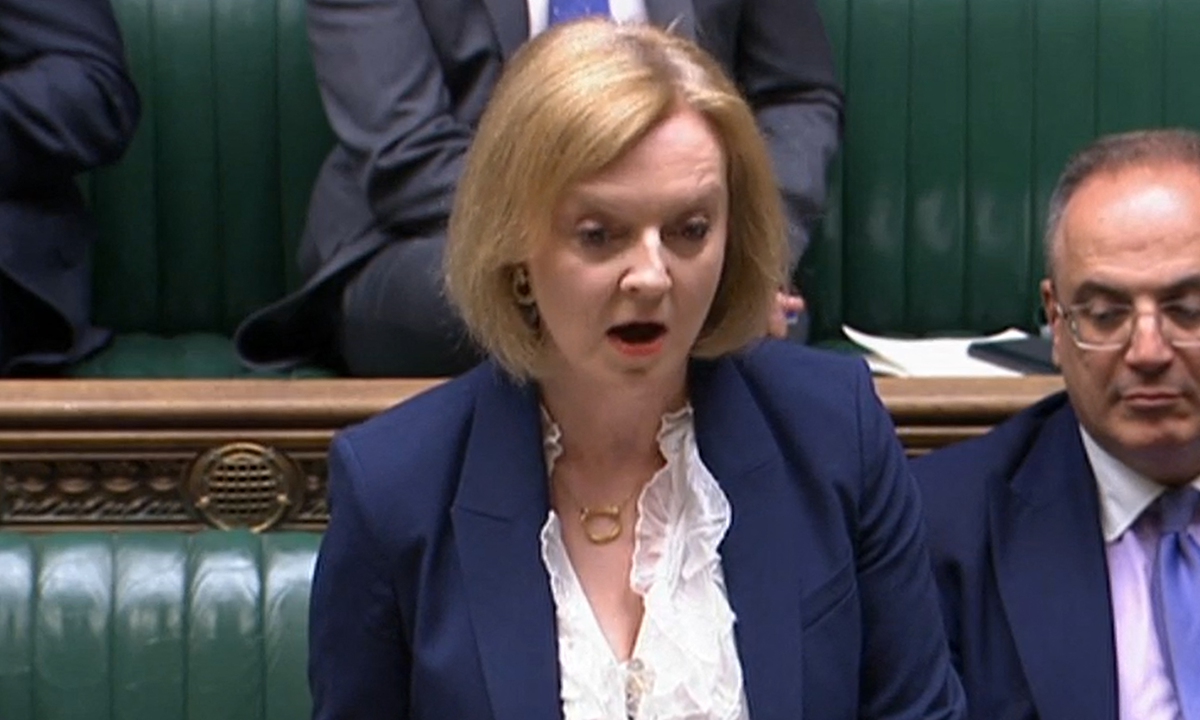
Liz Truss Photo: AFP
UK Foreign Secretary Liz Truss, due to need of her campaign to become the next prime minister and the UK's policy of clinging to the US' apron strings, criticized China for its countermeasures over US House Speaker Nancy Pelosi's Taiwan visit, which only proved that Britain has lost its credibility as an independent country, Chinese analysts said.
They stressed that China will firmly respond to provocations from the US and its allies that challenge the one-China principle and undermine China's sovereignty and territorial integrity.
Truss on Wednesday summoned Chinese Ambassador to Britain Zheng Zeguang over "Beijing's aggressive escalation against Taiwan," and claimed that "increasingly aggressive behavior and rhetoric from Beijing threaten peace and stability in the region," according to a statement on the website of the UK Foreign, Commonwealth and Development Office.
In response, Chinese Foreign Ministry spokesperson Wang Wenbin said at Thursday's media briefing that China is strongly dissatisfied with and firmly opposed to this and has lodged solemn representations with Britain.
"If Scotland were to collude with external forces and split itself from the UK, would the UK remain calm, show restraint, sit by and watch the situation deteriorate?" Wang asked.
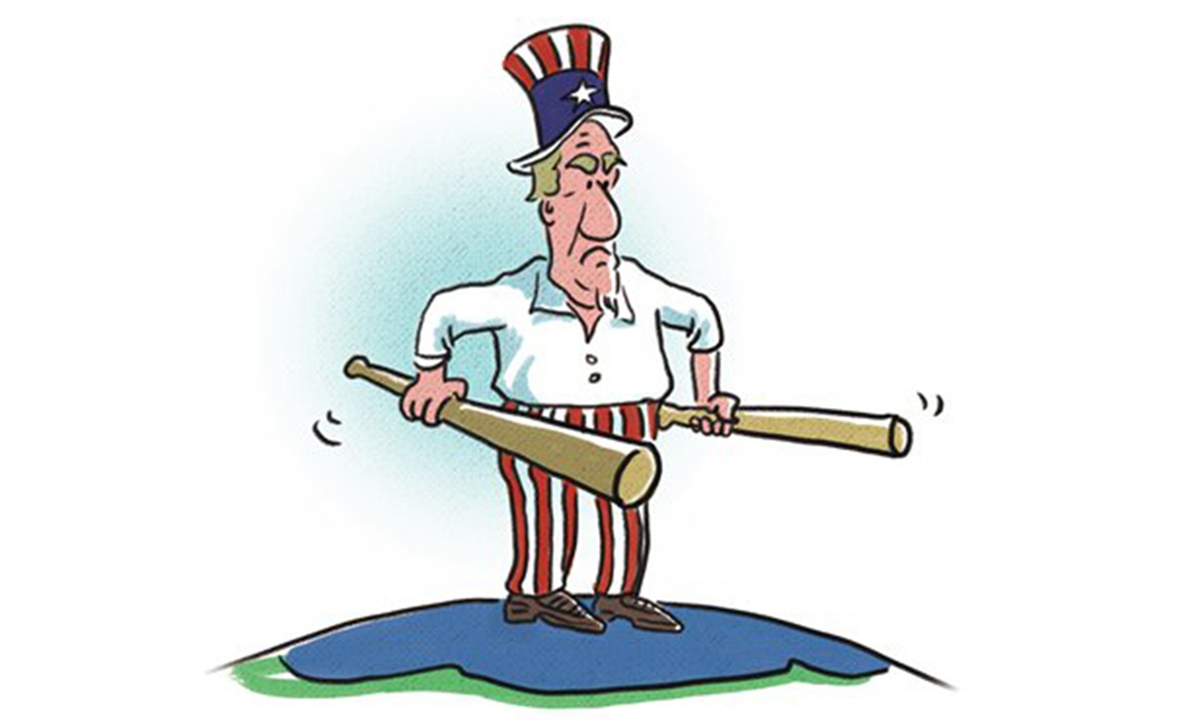
US hegemony Illustration: Liu Rui/GT
Last week, US House Speaker Nancy Pelosi made a reckless visit to the island of Taiwan, disregarding warnings from the Chinese mainland. Meanwhile, the military conflict between Russia and Ukraine has entered the sixth month, and the US-provoked Ukraine crisis is not seeing any sign of de-escalation. Some believe just as the US wants to use the Ukraine crisis to deplete Russia's power, it also intends to use the Taiwan question to contain China.Right now, we can see that the US doesn't want the situation to be stabilized both in the Ukraine crisis and over the Taiwan question. I understand that both questions have a completely different nature and history. But the approach of the US is the same. Washington's main idea is to deregulate the balance of the situation both in Europe and the Asia-Pacific, to crash normal trading relations and financial markets, and in this way to push down the Renminbi level and raise the level of the US dollar. That is also one of the ideas behind why the US is provoking a conflict in the Taiwan Straits.
As the Russia-Ukraine crisis goes on, no one predicted such a situation to occur. According to the Western media, Russia believed that the operation should be ended in three days or one week. At the same time, many European countries also thought that Russia would lose in just one week. So no one was correct, and it means the situation is changing drastically for all countries involved, none of which was prepared for this situation.
The European Union also was completely unprepared for this situation. For example, we can see the huge problem with gas and oil supply, because Europe was dependent on Russia. It wanted to put sanctions against Russia, but at the same time, keep the same supply of gas and oil in this way to maintain the normal way of life in Europe. And it's impossible right now. If you're engaged in a battle, you should understand that you can lose it too.
Currently, some European companies are trying to reconsider their approach to Russia. Many have started to renew the negotiations with Russia and want to come back to the Russian market, because it's impossible to live without Russia. It's not because Russia is so great. It's because the modern world is interconnected. The modern world is created by trade relations, not by war.
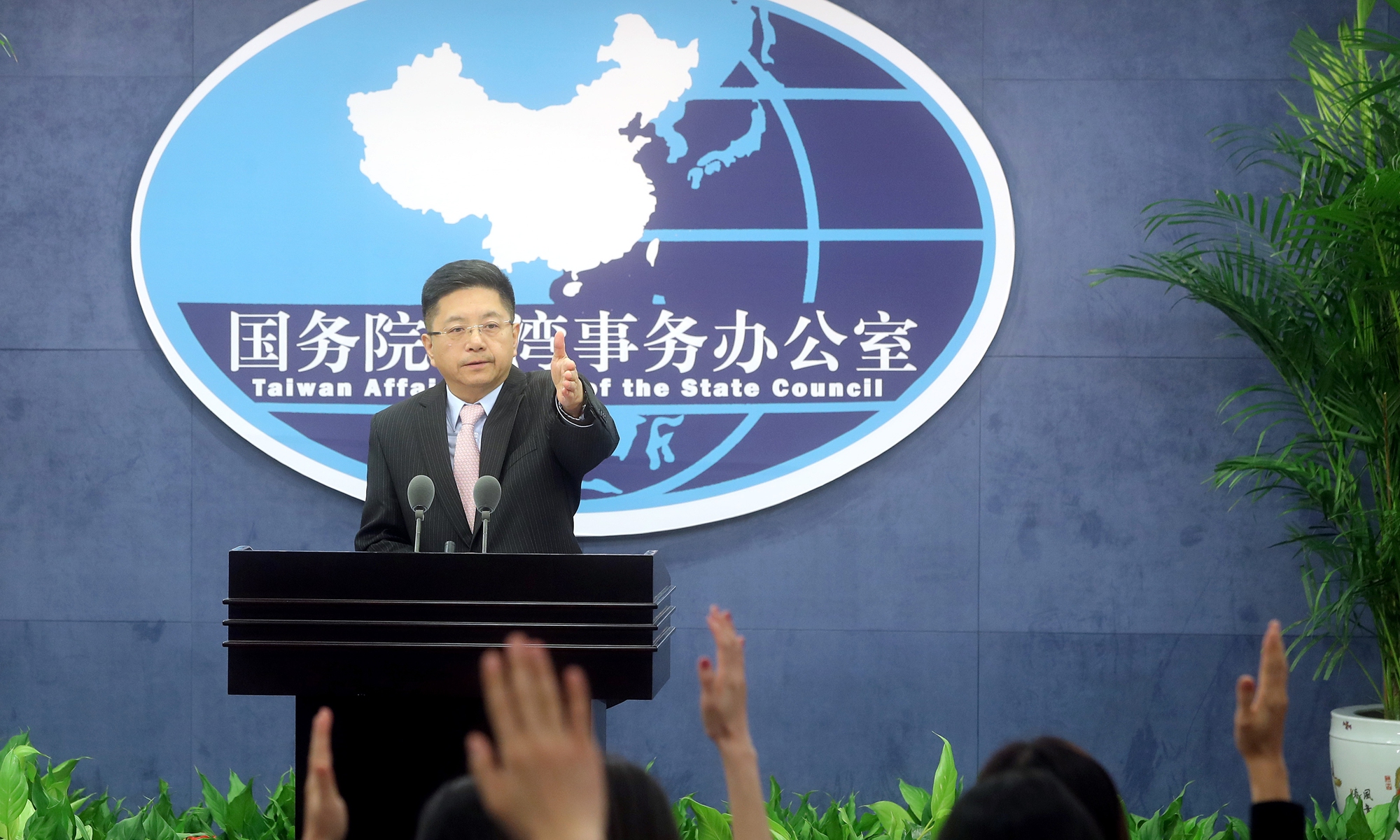
Ma Xiaoguang Photo: cnsphoto
With the issuance of the white paper on the Taiwan question and China's reunification in the new era drawing malicious attacks from the secessionist Democratic Progressive Party (DPP), Ma Xiaoguang, spokesperson for the Taiwan Affairs Office of the State Council, said on Thursday that the solution to the question will be actively explored together with the island's compatriots, expressing confidence that with the passage of time, One Country, Two Systems will eventually be understood and recognized by Taiwan compatriots.
At Thursday's media briefing, Ma was asked to comment on DPP's latest remarks that the mainland and Taiwan are "not subordinate to each other," while claiming that the mainland's setting the cross-straits endgame is "wishful thinking."
Ma responded that the white paper demonstrates the resolve of the Communist Party of China (CPC) and the Chinese people and their commitment to national reunification, to unite all Chinese at home and abroad, including the Taiwan compatriots, and to oppose to secessionists and foreign interference.
The release of the white paper has been widely supported and applauded by the Chinese people, the spokesperson said, adding that such slanders from the DPP authorities have again exposed its political nature of stubbornly seeking "independence" while fully reflecting that the white paper has "hit them where it hurts."
"The legal fact that Taiwan is a part of China is clear and unambiguous. Although the island has not yet been fully reunified, China's sovereignty and territory has never been divided and never will be, and Taiwan's status as part of China has never changed and will never be allowed to change," Ma noted.
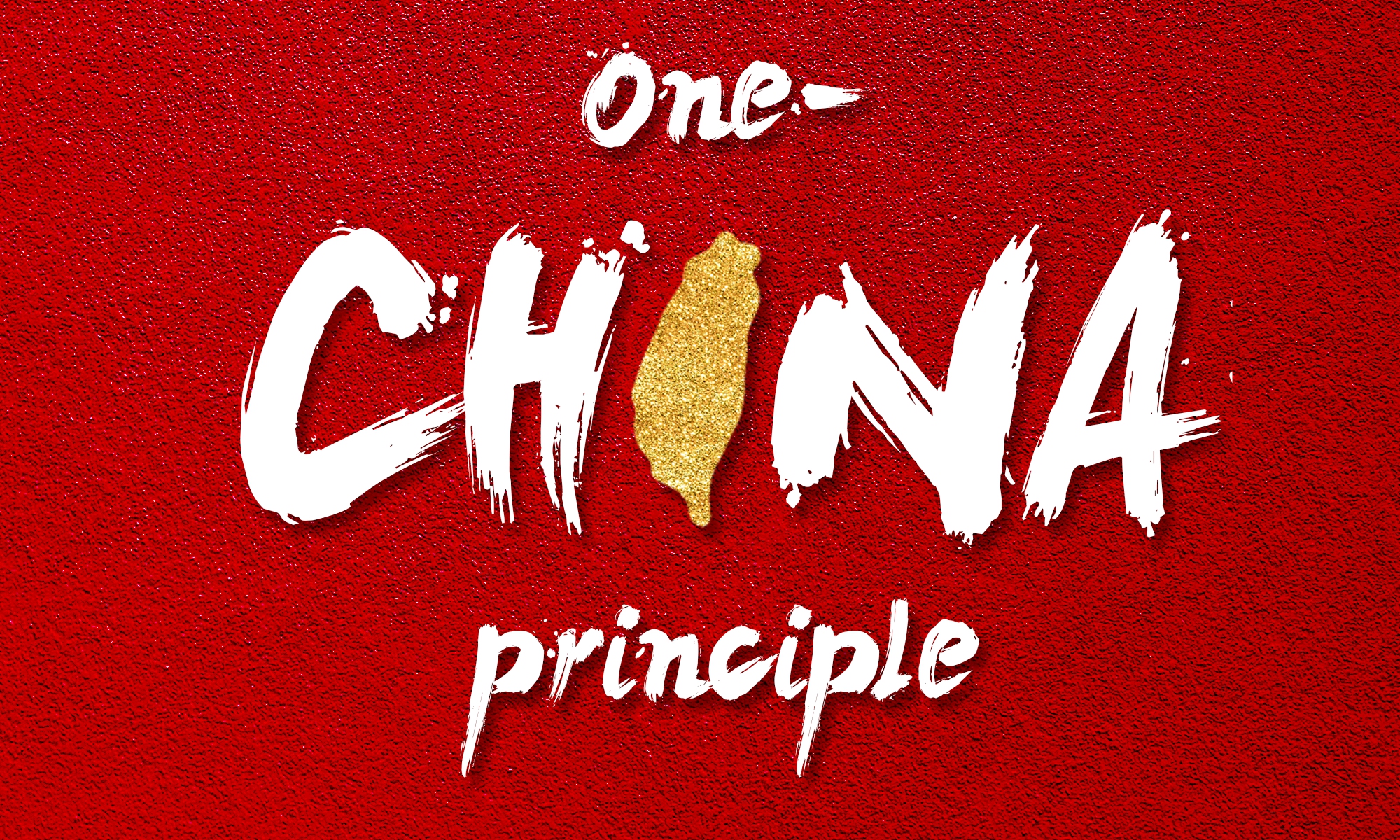
Graphic: Deng Zijun/GT
The Taiwan Affairs Office of the State Council and the State Council Information Office of China published a white paper, "The Taiwan Question and China's Reunification in the New Era," on Wednesday. It is China's third white paper on the Taiwan question after previous publications in 1993 and 2000. It is a historical document issued at a special time. Its significance is thus self-evident.
From whatever perspective, the publication of the white paper comes at an appropriate time. US House Speaker Nancy Pelosi's visit to the Taiwan island escalated tensions in the Taiwan Straits, as well as in ties between China and the US. At the same time, it attracted great attention from public opinions both at home and abroad over the Taiwan question. For some time, the Democratic Progressive Party (DPP) authority in Taiwan island has been stepping up its collusion with external forces, in attempts to manipulate the narrative over the Taiwan question and woo international attention through deceptive rhetoric. It refuses to recognize the one-China principle, tries to smear the "one country, two systems," and fantasizes to "exchange Heaven and Earth" on major issues of principle. Such a fallacy is, in a way, more harmful than Pelosi's visit.
In other words, an intense Taiwan Straits cognition war has already broken out all over the world. From this perspective, the white paper is upright and full of weight. It not only distinguishes right from wrong, clarifies fallacies, but also gives the most authoritative answers to key questions. There is a wealth of important information between the lines, and it is highly targeted. It is a declaration and roadmap for China's major policy of peaceful reunification and "one country, two systems" in the new era. This is also an integral part of China's great cause of reunification. We recommend that all interested parties should carefully read and correctly understand it.
Facing the international community, the white paper uses a large number of historical and legal facts to demonstrate that the Taiwan island is a part of China, which cannot be doubted or changed. It fully demonstrates the firm will and determination of the Communist Party of China (CPC) and the Chinese people to pursue the reunification of the motherland. The most anticipated part is the systematic elaboration of the overall strategy of the CPC and the Chinese government to promote the realization of the reunification of the motherland in the new era.
The white paper also clearly explains the bright prospects for peaceful reunification under "one country, two systems," which is worth looking forward to by both sides of the Taiwan Straits, especially compatriots in Taiwan. There is no doubt that after reunification, Taiwan will enjoy a broader room for development, and the well-being of Taiwan compatriots will be better guaranteed. By being Chinese with dignity will Taiwan people enjoy greater security and dignity and stand more upright and rock-solid in the international community. At the same time, China's reunification will undoubtedly play a positive role in promoting peace and development in the world.
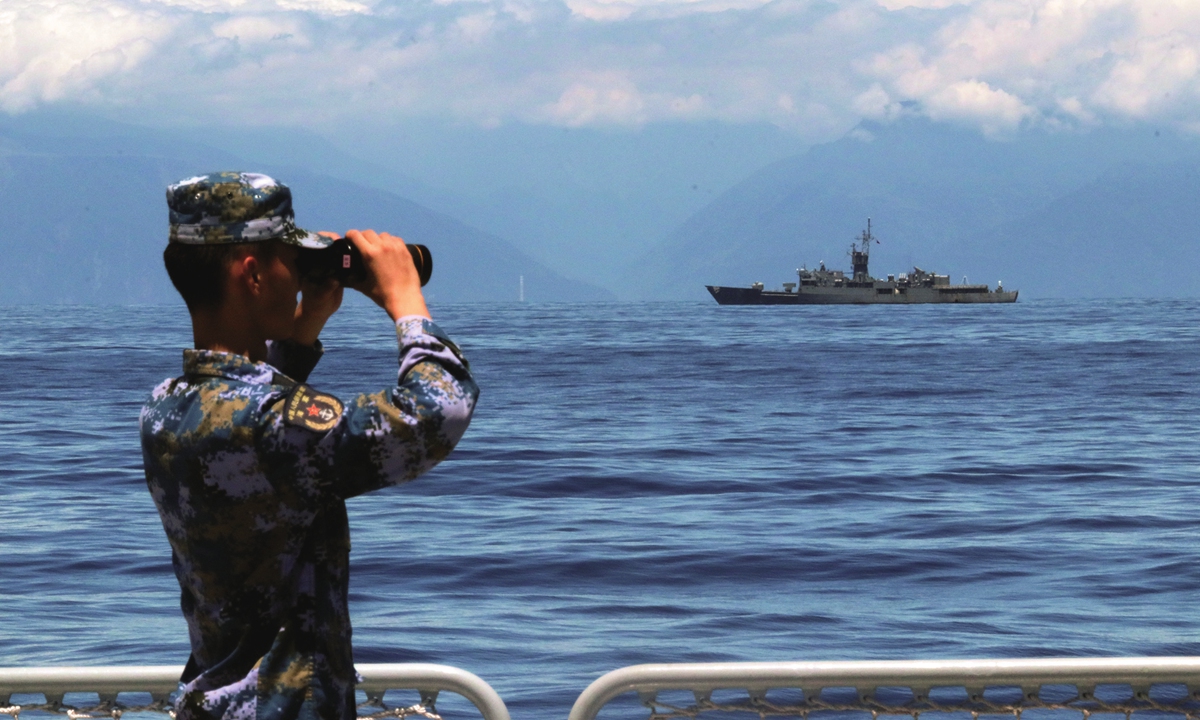
A People's Liberation Army(PLA) soldier looks around with a telescope on August 5, 2022, as the Navy of the PLA Eastern Theater Command continues drills the waters around the island of Taiwan. Photo: Xinhua
The People's Liberation Army (PLA) Eastern Theater Command on Wednesday announced it will conduct regular combat readiness security patrols in the Taiwan Straits after declaring a successful conclusion of recent drills around the island, which experts said indicates that the PLA is ready for combat whenever national sovereignty and territorial integrity is threatened.
Senior Colonel Shi Yi, spokesperson of the Eastern Theater Command, said in an announcement that the command had successfully completed various missions during recent drills around Taiwan island and effectively tested the troops' joint operation combat capabilities.
The Eastern Theater Command will closely observe the situation in the Taiwan Straits and regularly organize combat readiness security patrols in the Taiwan Straits in order to safeguard national sovereignty and territorial integrity, Shi noted.
The aim of security patrols is to expel enemy planes and ships from Chinese territory. Combat readiness security patrol means that the PLA will conduct patrols with full combat readiness, for example, warplanes will be equipped with various missiles and the ships will be fully equipped with weapons and personnel, Song Zhongping, a Chinese military expert and TV commentator, told the Global Times on Wednesday.
Regular combat readiness security patrols in the Taiwan Straits means that the PLA is ready for combat whenever the situation of the region is threatened, according to Song.
The PLA conducted many exercises during the recent drills in the Taiwan Straits, but they would not be the last ones, as drills will continue until we solve the Taiwan question, Song noted.
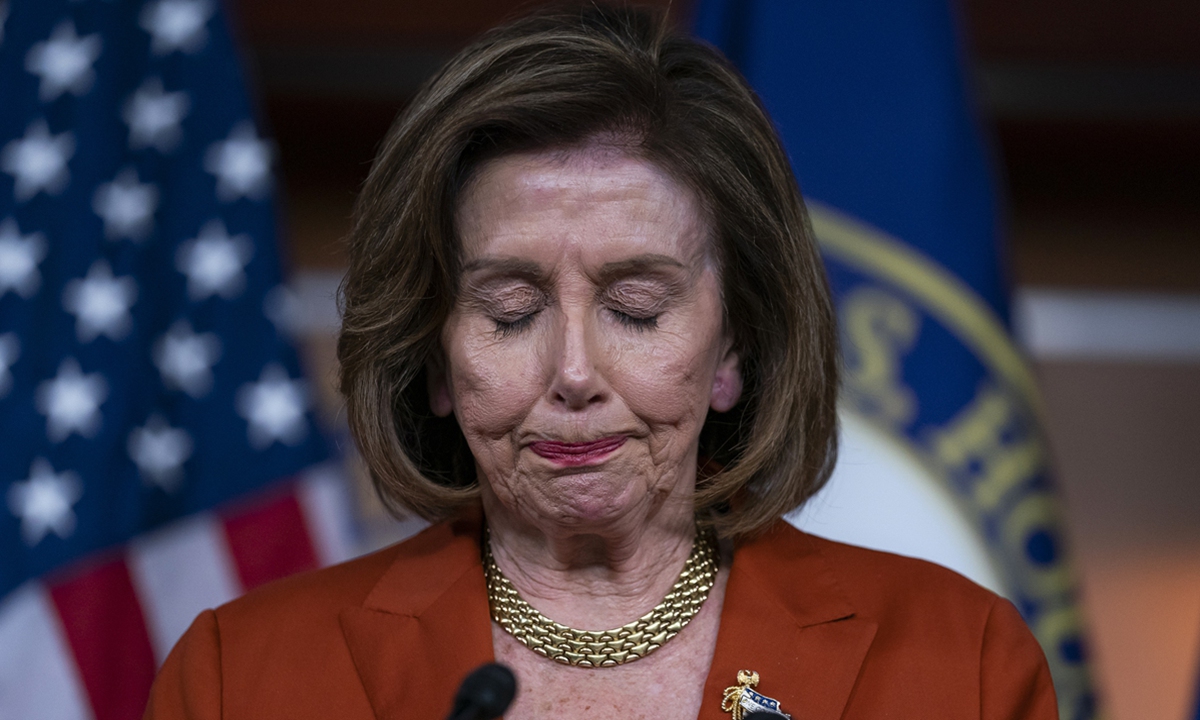
Photo: VCG
In her first interview since she returned from her controversial trip to the island of Taiwan, US House Speaker Nancy Pelosi on Tuesday defended her decision to visit the island on NBC's Today Show. In the interview, Pelosi vividly demonstrated to the audience how a selfish child causes trouble, gets scared, and passes the buck to others.
The context as well as the gaffes of the interview evidently displayed that Pelosi was very tense and troubled. In the interview, she tried to defend her trip by underlining its significance on ideology such as so-called freedom and democracy, but she also claimed that this provocative visit did not violate the one-China policy, noted Shen Yi, a professor of international relations at Fudan University. This is because she is clearly aware that she has stirred up trouble - her reckless visit has severely challenged China's red-line. As a result, instead of playing up the "success" of her visit, she was attempting to shirk her due responsibility.
During the interview, Pelosi said that "it was only about saying, China is one of the freest societies in the world, don't take it from me, that's from Freedom House, it's a strong democracy, courageous people." Soon after Pelosi's tongue slip, Drew Hammill, her deputy chief of staff tweeted that what Pelosi referred here is the island of Taiwan. The transcript of the interview from Pelosi's website also replaced "China" with "Taiwan" in this sentence.
This tongue slip has drawn wide attention and has sparked a new wave of criticism toward her in US' public opinion. Many of those who lash out at Pelosi do not even accept the explanation that such a line is tongue slip.
"This is a consequence of the anti-China and anti-Communist hysteria nurtured by the US. American hostile against China stirred up by China hawks, represented by Pelosi, has entered a state of irrationality and hysteria. And Pelosi, in turn, had to swallow her own bitter fruit," commented Shen.

Wang Wenbin, spokesperson of China's Foreign Ministry Photo: cnsphoto
It is the US that breaks their promise, violates China's sovereignty and support secessionists and China's countermeasures in responding to US House Speaker Nancy Pelosi's visit to the island of Taiwan are justified, necessary, proper and legitimate, Chinese Foreign Ministry spokesperson Wang Wenbin told a press conference on Wednesday.
Pelosi has defended her provocative trip to the island of Taiwan recently and claimed that the US cannot allow China to isolate the island. She also noted that there were US lawmakers visiting the island before her but only her trip has drawn China's close attention, US media reported.
In response to Pelosi's remarks, Wang said at the Wednesday press conference that China has opposed US lawmakers' visits the island of Taiwan. Pelosi, as the No.3 political figure in the US, took US military's plane to what she claimed to be an "official" visit during her stay in the island. The Democratic Progressive Party (DPP) of the island also advocated that Pelosi's visit as a "major breakthrough" for the relations of the US and the island.
All these showed that Pelosi's visit is a provocation on escalating ties between the island of Taiwan and the US and it violated the US' promise of not keeping official relations with the island in China-US Joint Communiqué on the Establishment of Diplomatic Relations, infringed the one-China principle, which was widely recognized by the international community and confirmed by the UN 2758 Resolution and violated the international rules of not interfering with other countries' internal affairs, said Wang.
Wang pointed out that four months ago, China had repeated its opposition to Pelosi's visit to the island of Taiwan via different channels but the US had turned a blind eye to the warnings. It is the US that breaks its promises, infringes on China's sovereignty, and indulges and supports the secessionists in the island, not China.

China, not even a bit can be left behind Graphic: Deng Zijun/GT
The Taiwan Affairs Office of the State Council and the State Council Information Office of China published a white paper titled "The Taiwan Question and China's Reunification in the New Era" on Wednesday, following the tensions triggered by US House Speaker Nancy Pelosi's provocative visit to Taiwan island last week.
The white paper, which demonstrates the resolve of the Communist Party of China (CPC) and the Chinese people and their commitment to national reunification, was released amid escalating cross-Straits tensions and the People's Liberation Army (PLA)'s military drills against Taiwan secessionists and foreign interference. Analysts said the white paper's release is a warning to Taiwan authorities as well as external forces, as the mainland is much stronger to solve the Taiwan question under the new circumstances.
The white paper included new content based on the situation of the new era, including specific warnings to the secessionist Democratic Progressive Party (DPP) that currently rules the island by saying its secessionist actions are obstacles that "must be removed," and it also highlighted the US' dangerous role in interrupting China's reunification process. The document provides more clear guidelines for the post-reunification governance over the island and why it will benefit the international community.
"We are one China, and Taiwan is a part of China. This is an indisputable fact supported by history and the law. Taiwan has never been a state; its status as a part of China is unalterable," says the white paper, noting that the CPC is committed to the historic mission of resolving the Taiwan question and realizing China's complete reunification.
"The realization of complete national reunification is driven by the history and culture of the Chinese nation and determined by the momentum towards and circumstances surrounding our national rejuvenation," the white paper says.

Illustration: Xia Qing/Global Times
The Democratic Progressive Party (DPP) authority on the island of Taiwan is attempting to sabotage Foxconn Technology Group's plan to invest $800 million in the Chinese mainland-based chipmaker Tsinghua Unigroup, Reuters reported on Wednesday. And, some DPP officials on the island reportedly even claimed they will definitely not let the deal go through.
As tensions escalated across the Taiwan Straits as a result of US House Speaker Nancy Pelosi's recent provocative visit to the island, the secessionists on the island have become increasingly blatant to impose political coercion on companies' normal business decisions, trying to tornado cross-Straits mutually beneficial economic and technology cooperation.
The blatant threat by the secessionists on the island to impede Foxconn's legitimate investment plan lays bare the sinister intention of the DPP authorities to collaborate with the US to split the industrial chain in the Asia-Pacific economic circle. And, when DPP officials pursue their own political interests, they don't hesitate to sacrifice the economic interests of the enterprises, let alone the interests of the people on the island.
The arrogance of the DPP officials also exposes their ignorance of moving against the laws of the economy and the world's globalization trend. As a vital part in Apple's supply chain, Foxconn's success in the Chinese mainland market is a microcosm of the mutually beneficial economic cooperation between the two sides of the Taiwan Straits, and it is also a model of corporate success in economic integration.
Since coming to the mainland market in 1988, Foxconn has now grown into the world's largest contract electronics manufacturer and the fourth-largest information technology company by revenue. With more than 40 plants scattered in the mainland, the company's imports and exports account for 3.5 percent and 4.1 percent of the mainland's total import and export volume in 2020, the company said.

Illustration: Chen Xia/GT
The basic pillar of the unipolar world order led by the US has been shaken in a significant way. The neo-liberal ideological vision to shape the political-social restructuring and reshaping of power relations in "Great Middle East" has spectacularly failed. The shift of the US strategic center from Europe and the Middle East to the Pacific Ocean and the South China Sea, as well as the search for new alliances to contain China's influence, are causing many tensions and breeding hostilities in this region.
The provocative trip of Nancy Pelosi, Speaker of the US House of Representatives, to Taiwan, took place in this context. There has been an international consensus, including an endorsement by the UN Security Council on the principle of "One China" and that the People's Republic of China is the only lawful representative of China. In fact, the starting point for normalization of diplomatic relations between China and the US was also this principle.
The People's Republic of China has never made a secret of the fact that it never recognizes or accepts the island of Taiwan as a separately independent sovereign state under international law.
The debate in this regard has nothing to do with democratic theoretical discourses. Rather, it is about recognized norms and rules of international law and rules. Now to suggest that besides the People's Republic of China there is another sovereign state of China as a subject of international law is without a doubt a blatant violation of international law and violation of the principles of peaceful coexistence.
The trip of Pelosi has exacerbated tensions in the region. The peoples of the world and Asia in particular are gravely concerned about peace and stability in our region. Afghanistan recognized the People's Republic of China in 1950 and diplomatic relations between the two countries were established in 1955. Through this decision, the millenniums-old intensive contacts between the two peoples were conceived on the basis of modern international law and good neighborhood. Since that time, the "One China" principle and the right of the People's Republic of China as the sole representative of the Chinese people has been one of the pillars of Afghanistan's China policy. This principle has always continued regardless of which government was in power in Kabul and will undoubtedly remain so.

Chinese Foreign Ministry Spokesperson Wang Wenbin Photo: VCG
China's suspension of climate change talks with the US is a "legitimate and reasonable" countermeasure over Nancy Pelosi's provocative visit to China's Taiwan region and the US must bear all the consequences, Chinese Foreign Ministry spokesperson Wang Wenbin said at Wednesday's press briefing.
Wang made the remarks in response to some US politicians who claimed that by suspending China-US climate talks, China doesn't punish the US, but "punishes the world."
As a responsible major country, China will, as always, participate in all modes of international cooperation that are conducive to tackling climate change, Wang said.
"The US is not the whole world," China will stay committed to its climate goals, and actively participate in international cooperation on climate, as we have always done, Chinese Ambassador to the US Qin Gang tweeted on Tuesday.
In disregard of China's strong opposition and serious representations, Speaker of the US House of Representatives Nancy Pelosi visited China's Taiwan region, seriously violating the one-China principle and infringing upon China's sovereignty and territorial integrity.
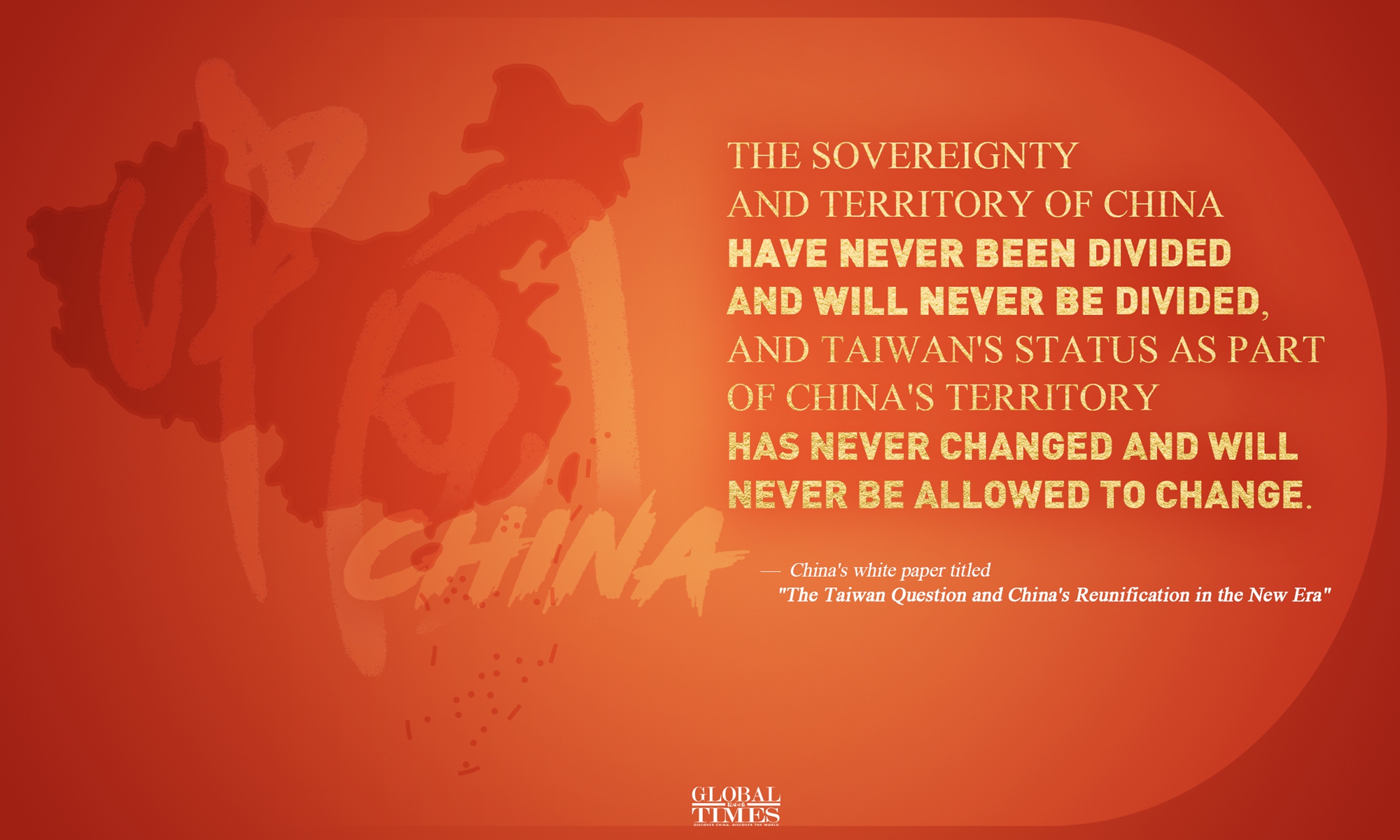
Excerpts from 'The Taiwan Question and China's Reunification in the New Era' Graphic: Xu Zihe/GT
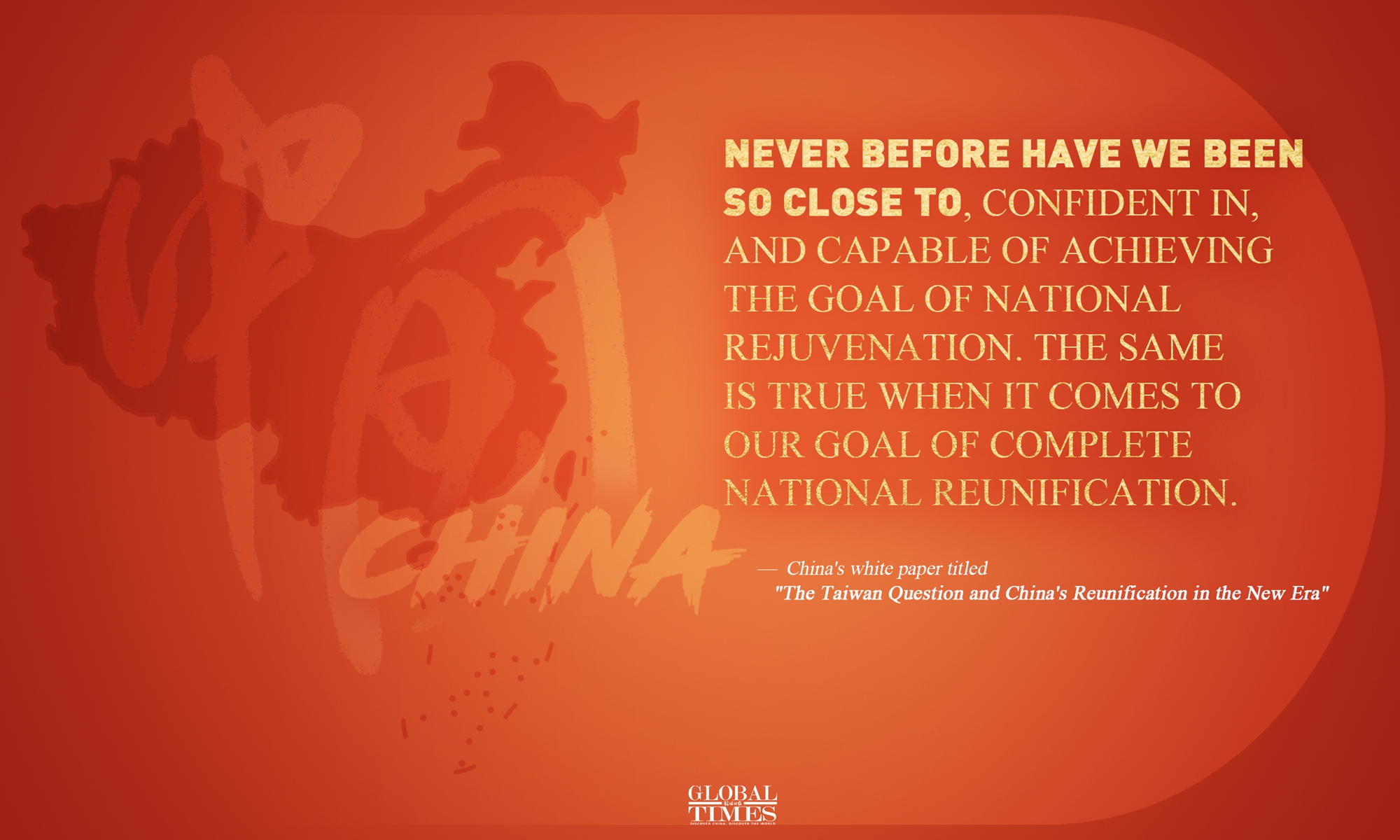
Excerpts from 'The Taiwan Question and China's Reunification in the New Era' Graphic: Xu Zihe/GT

Excerpts from 'The Taiwan Question and China's Reunification in the New Era' Graphic: Xu Zihe/GT
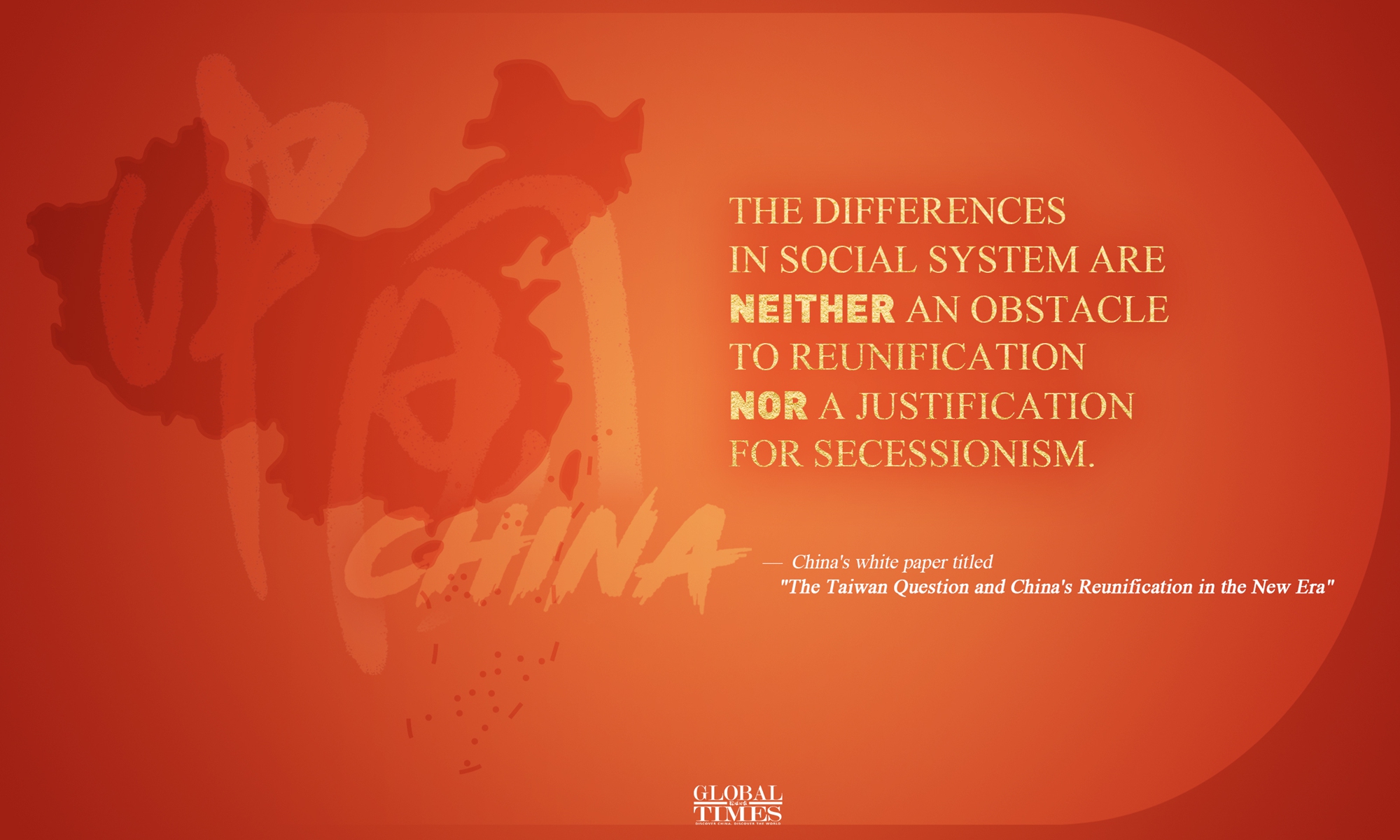
Excerpts from 'The Taiwan Question and China's Reunification in the New Era' Graphic: Xu Zihe/GT
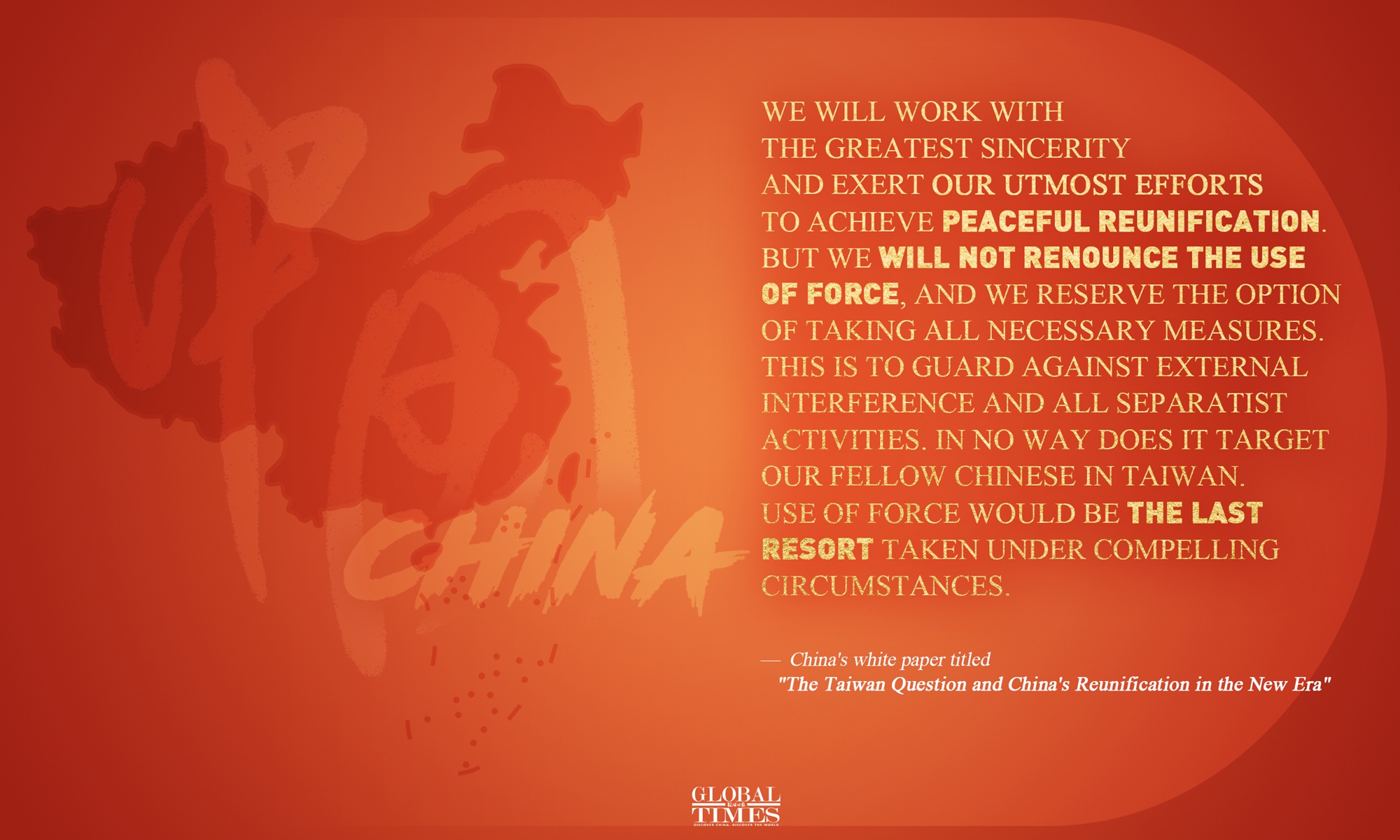
Excerpts from 'The Taiwan Question and China's Reunification in the New Era' Graphic: Xu Zihe/GT
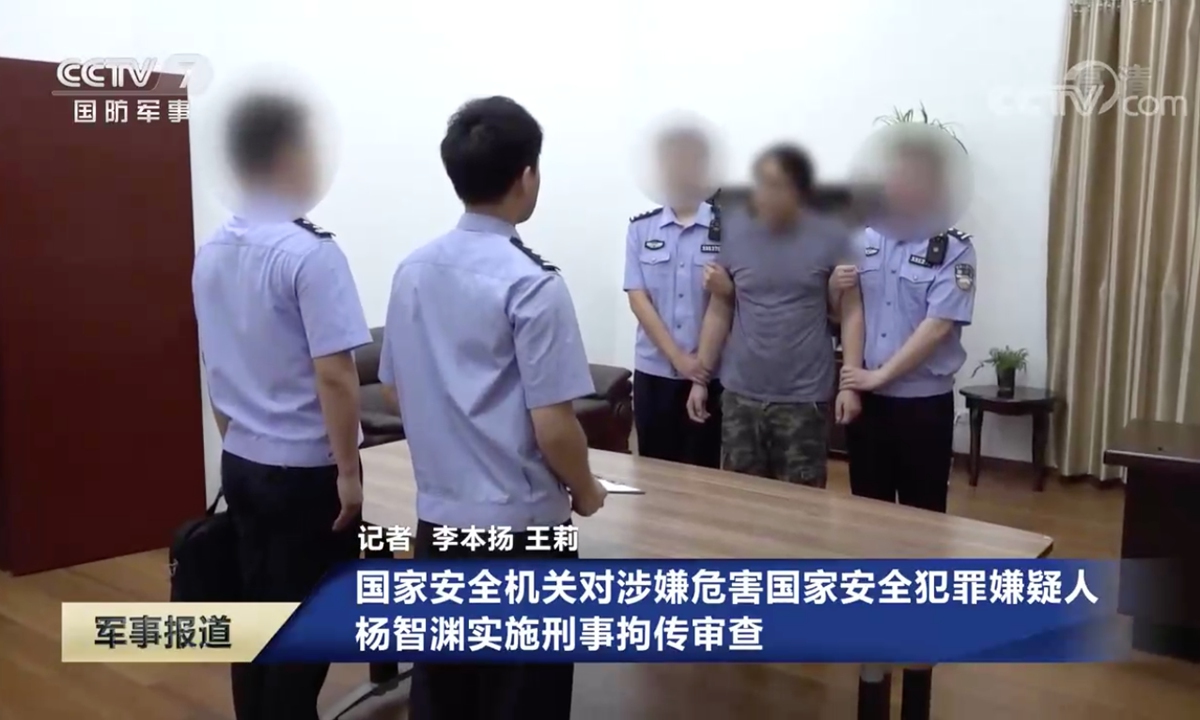
Photo: Screenshot from cctv.com
Yang Chih-yuan, a suspect from the island of Taiwan who was detained by the national security bureau in Wenzhou city, East China's Zhejiang Province on suspicion of engaging in separatist activities and endangering national security has been put under surveillance at designated residence from August 4 and his family members were informed about the changes in accordance with laws, media reported, with more of his secessionist activities being disclosed, media reported on Wednesday.
The news of Yang being detained was released on August 3, right after the Chinese mainland authorities' announcement on August 3 that a number of diehard "Taiwan secessionist" individuals, two foundations, and multiple companies related to secessionist activities will be punished in accordance with the law, after US House Speaker Nancy Pelosi landed in Taiwan island on Tuesday.
Yang has been poisoned by thoughts of "Taiwan independence" secessionism for a long time and in 2006, when he was in middle school, he started to be engaged in secessionist activities, China Central Television (CCTV) reported on Wednesday.
In 2008, Yang was chosen by the Democratic Progressive Party (DPP) for cultivation as he was actively involved in the "Wild Strawberries Movement," a protest movement in the island of Taiwan in November 2008 after the visit of Chen Yunlin, chairman of the mainland's Association for Relations across the Taiwan Straits, to the island. Yang was later appointed as the head of the DPP youth league in Taichung and became an important member of the secessionist forces in the island.
In 2011, Yang took part in forming "Taiwanese National Party" and actively schemed a series of secessionist activities in an attempt to "build a country through referendum." In 2019, Yang took the position as the vice chairman of "Taiwanese National Party" and clamored to push "Taiwan independence" more hastily and aggressively.
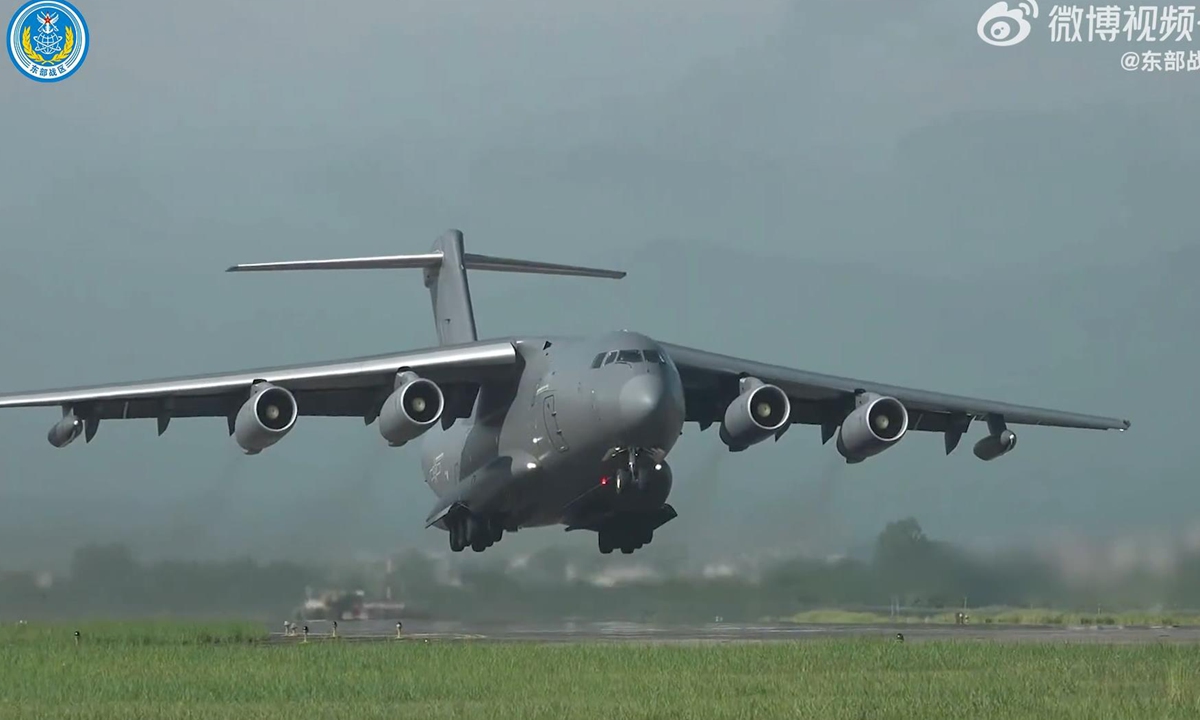
A YU-20 aerial tanker of the Chinese People's Liberation Army Eastern Theater Command Air Force takes off for a joint blockade mission around the island of Taiwan on August 9, 2022. The tanker aircraft can significantly increase the operation time of other warplanes.Photo: Courtesy of PLA Eastern Theater Command's Sina Weibo account
The Chinese People's Liberation Army (PLA) continued its open and transparent military exercises around the island of Taiwan on Tuesday, after US President Joe Biden's "buck-passing" comments that he was concerned about China's military drills. Chinese analysts said the Biden administration has dodged the root cause for the escalated tensions in the Taiwan Straits and does not consider thoroughly the consequences of its reckless moves, which is the most fatal flaw in Biden's China policy.
Chinese analysts warned that cross-Straits and China-US relations face growing uncertainty and instability with possible more radical moves by the US in supporting Taiwan secessionist forces through more arms sales and military training, as well as inciting more Western politicians to visit the island. China and the US are facing high risks of miscalculation and even crisis since multiple bilateral communication channels have been canceled.
As for US military's possible move to send warships through the Taiwan Straits, Chinese analysts said that it was more of a "symbolic and cheap" move to pacify American politicians, Taiwan secessionists and anti-China forces who feel upset since the US military has not taken any practical moves over China's countermeasures, but the PLA has fully prepared no matter how the US will flex its muscles.
On Monday, Biden in his first public comments on the Taiwan question since Pelosi's visit claimed that he was not worried about Taiwan but was concerned about China's military exercises.
"I'm concerned they are moving as much as they are," Biden told reporters in Delaware. "But I don't think they're going to do anything more than they are," Reuters reported.
Immediately after Nancy Pelosi landed in Taipei on August 2, the Chinese People's Liberation Army (PLA) Eastern Theater Command announced a series of joint military operations around the island of Taiwan starting the same evening. The PLA also surrounded Taiwan island with sixexercise zones in drills starting August 4 and essentially locked the island down for several days.
The drills formed a powerful deterrent against Taiwan secessionist forces and external interference. The series of military exercises rehearsed a potential real military operation and could become routine, experts said.

Prelude to reunification Graphic: Chen He, Tang Tengfei/GT
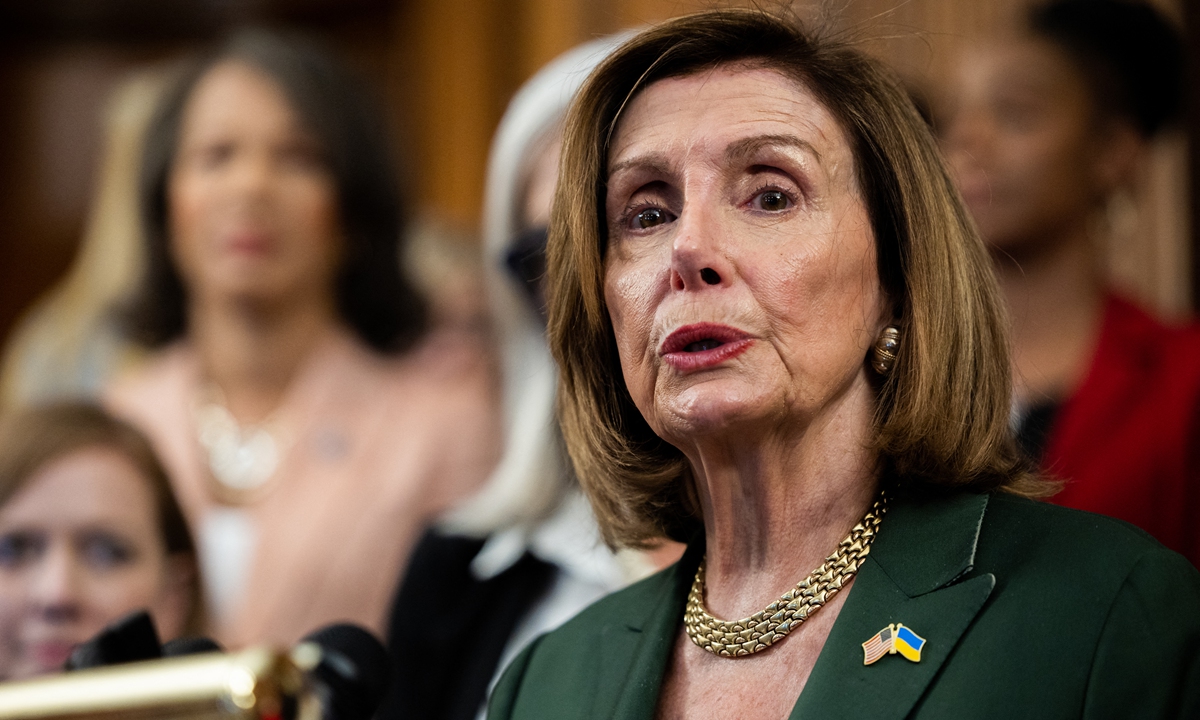
US House Speaker Nancy Pelosi's provocative visit to the island of Taiwan has left a political mess, an economic setback for people in Taiwan, and escalated tensions across the Taiwan Straits amid countermeasures initiated by the Chinese mainland. It is important to consider that the mainland possesses an ever growing ability to blockade and control the island of Taiwan, which can be seen in the speed and scale of the recent military exercises, Taiwan's patriotic residents and pro-reunification observers warned.
They said that the latest round of cross-Straits tensions will make it even more clear to people in Taiwan how severe the damage can be brought by Democratic Progressive Party (DPP) authorities when colluding with the US. They urged the secessionist DPP authorities to abandon "false illusions" of Taiwan independence and stop being the pawn of the US, as the prelude to reunification has begun.
"Pelosi, get out of here! You're not welcome!" On the evening of August 2, patriotic residents and groups on the island of Taiwan held a rally across the street from the Grand Hyatt hotel in Taipei, where Pelosi was staying, to protest her unscrupulous visit to the island and damage to cross-Straits relations.
Ji Xin, one of the protest organizers, also a prominent scholar and former chairman of the Taiwan-based Alliance for the Reunification of China, followed Pelosi throughout her more than 10-hour journey in Taipei to register her indignation.
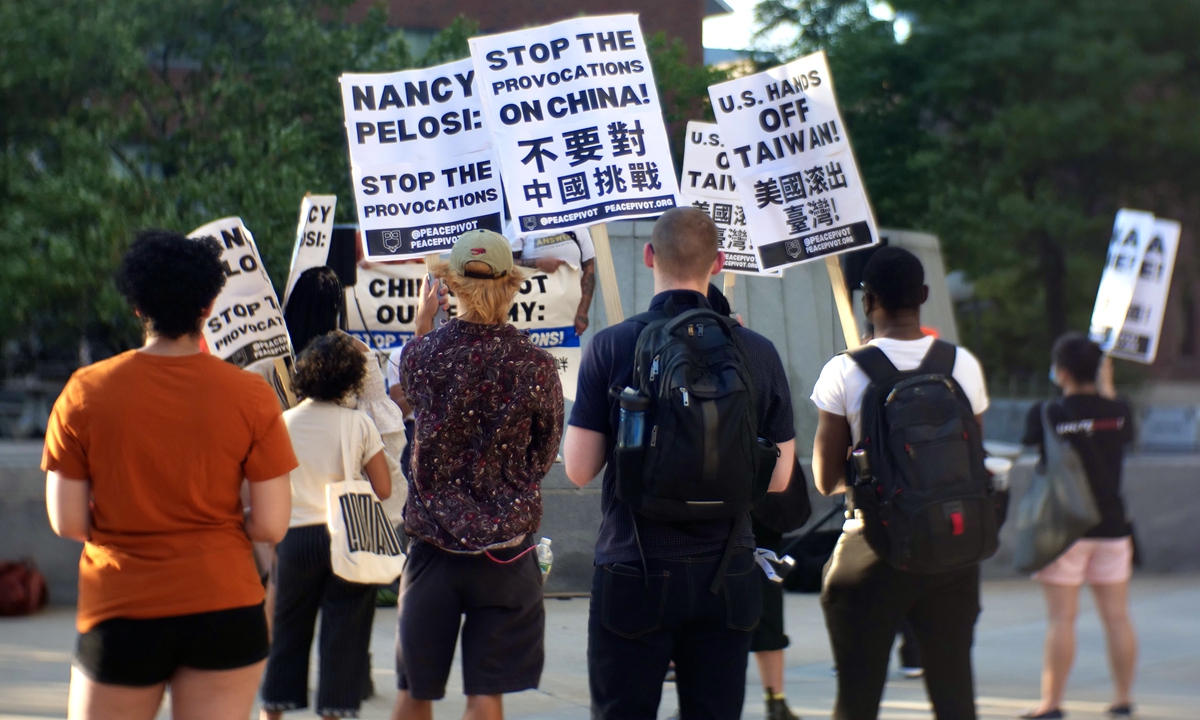
Americans gather in front of the JFK Federal Building in Boston demanding Nancy Pelosi to resign on August 8, 2022. Photo: Courtesy of Pivot to Peace
Upon ending her Asia trip on August 5, 2022, including China's Taiwan, US House Speaker Nancy Pelosi said she returns to the US "inspired," however, her ill-conceived visit has left a trail of anger and frustration in the Asian-Pacific region, with such negative emotions also sweeping across the US thanks to the series of upheavals and disputes she stirred up.
On August 8, several US anti-war NGOs including Pivot to Peace, the ANSWER Coalition, and the Boston Liberation, along with members of the Chinese American community in Boston, held a demonstration in front of the JFK Federal Building in Boston demanding Pelosi to resign, stop inflaming potential war with China, and instead focus on the real issues facing the American People.
Holding up signs that read "US Hands off Taiwan" and "Stop the Provocations on China," members of the community expressed their outrage toward Pelosi's visit to the island of Taiwan in blatant disregard of long-standing US-China agreements, which they considered would have a severe impact on the political foundation of China-US relations.
"What has impressed us is that we have received such passionate support in so short a time. We were able to mobilize rapidly and express our voices," convener of the Boston protest William Lee with Pivot to Peace, an organization of Americans working to oppose war and hostility between the US and China, told the Global Times.
"Pelosi pretends not to see our demands and struggles, so we are going to speak up and stand up to her, letting her see on the newspapers how shameful what she did was," said Julie Tang, a retired judge who served on the bench at the San Francisco Superior Court for more than two decades.
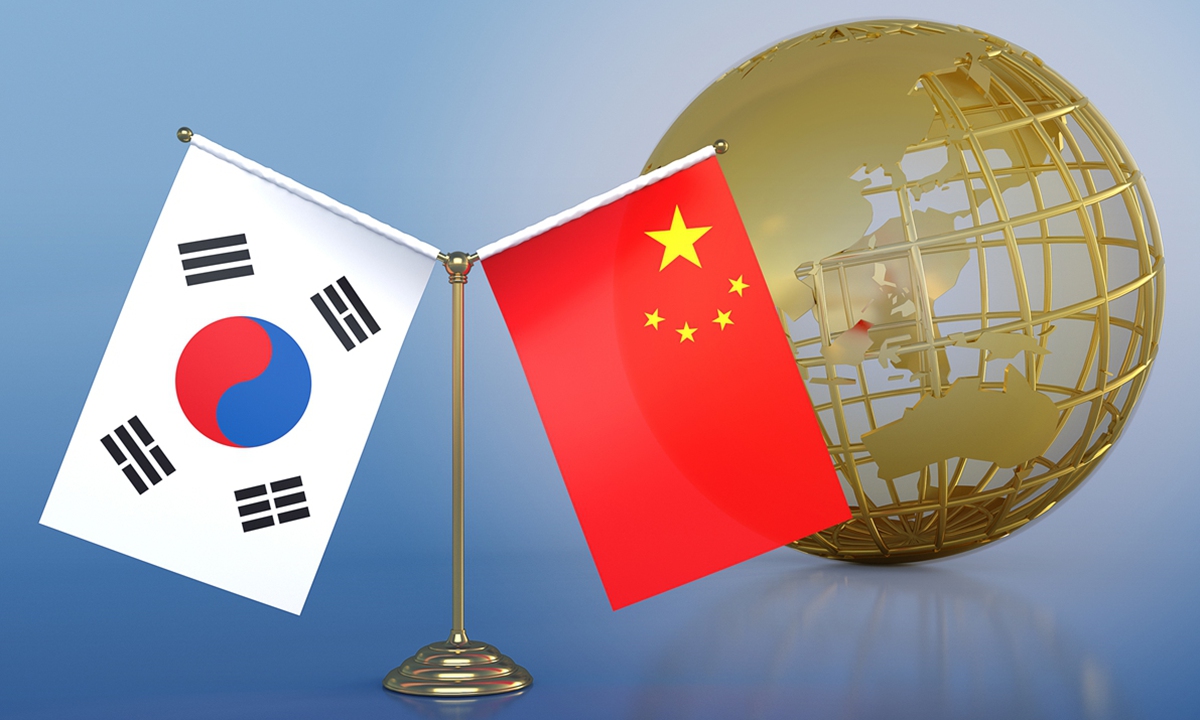
China South Korea Photo:VCG
For the next three decades, China and South Korea should conclude beneficial experience and grasp overall stable development of bilateral ties, Chinese State Councilor and Foreign Minister Wang Yi said in a meeting with visiting South Korean Foreign Minister Park Jin in Qingdao, East China's Shandong Province on Tuesday. Wang urged the two countries to uphold independence and autonomy and avoid being influenced by outside forces, according to the website of China's Ministry of Foreign Affairs.
Park's visit comes at a key juncture of bilateral relations between China and South Korea, just as Washington ups the ante to pressure Seoul to take a hard stance toward China on issues such as THAAD anti-missile unit and joining the "Chip 4" - an alliance created by the US that some believe aims to set up a semiconductor barrier against the Chinese mainland. It is also two weeks before the 30th anniversary, on August 24, of the establishment of China-South Korean diplomatic ties.
Experts said that the meeting between Wang and Park was held amid a positive atmosphere after South Korean President Yoon Suk-yeol snubbed US House Speaker Nancy Pelosi following the provocative trip she made to the island of Taiwan, and South Korea also made a formal statement of support for the one-China principle in this regard.
Although there are thorny issues standing in the way, Park's visit signals South Korea's sincerity to exchange views which would yield positive results, said experts.
After three decades, bilateral ties should be more mature, independent and stable. China and South Korea are neighbors that share common security, and are partners in need, said Wang, who also stressed sticking to opening-up, win-win principles, maintaining smooth supply chains, and not interfering in others' internal affairs, according to the handout from China's Ministry of Foreign Affairs.
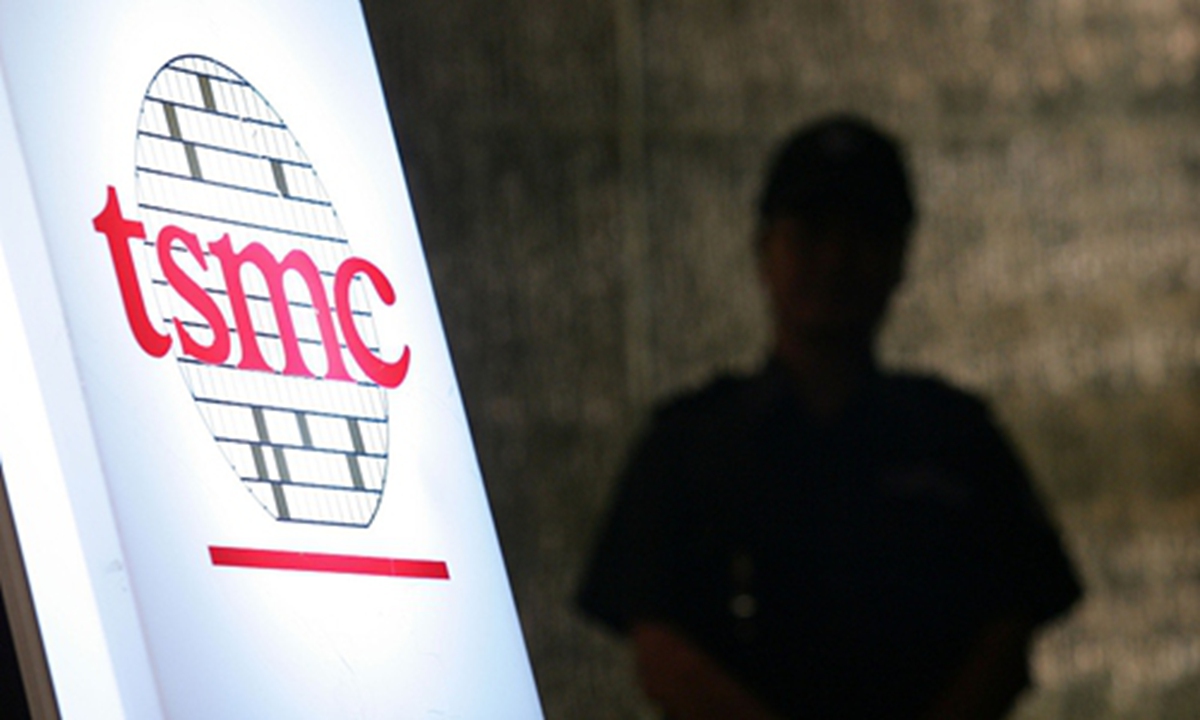
TSMC File photo
As tensions escalated across the Taiwan Straits as a result of US House Speaker Nancy Pelosi's provocative visit to the island, Western public opinion has turned to whether the US-China tensions over the Taiwan question will lead to another global semiconductor crisis.
A recent report in the Chinese edition of the Wall Street Journal said the world has relied on Taiwan's cutting-edge semiconductor manufacturing, while CNN last week quoted Taiwan Semiconductor Manufacturing Corporation's (TSMC) Chairman Mark Liu as touting in an interview that "Nobody can control TSMC by force."
There is no denying that Taiwan's semiconductor manufacturing sector, represented by TSMC, plays a significant role in the global semiconductor industrial chain by supplying around 60 percent of the world's microchips.
However, that industrial dominance is no reason for any company to overestimate itself in the face of the inevitable historical trend that Taiwan will return to the motherland. Some people on the other side of the Taiwan Straits are so spoiled that they don't understand that the chips are actually nothing in the face of China's grand reunification task.
With a series of military drills around the Taiwan island, the Chinese mainland once again has shown to the world that China's national reunification and territorial integrity are paramount, overriding other issues. Semiconductor chips should not be deemed as an important leverage to impact the sacred reunification cause - the core interest of the people across the Taiwan Straits.
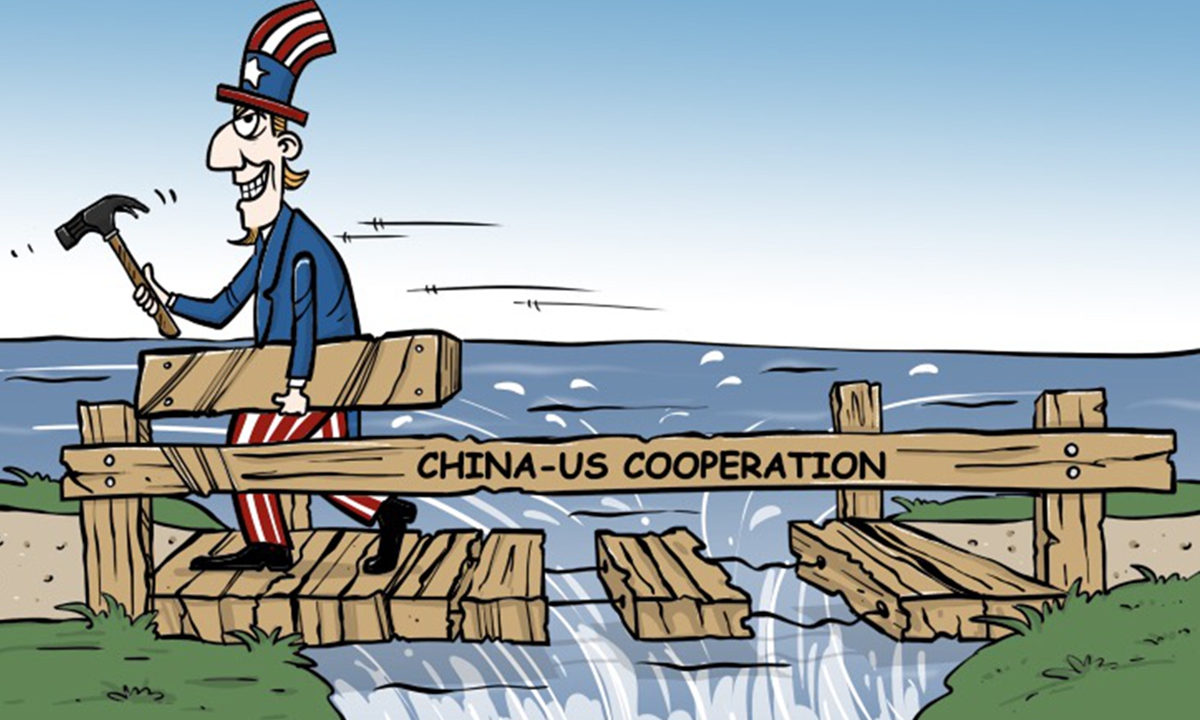
Illustration: Chen Xia/GT
Speaking about China's move to suspend cooperation with the US to combat narcotics trafficking, including illicit fentanyl, a part of countermeasures announced in response to US House Speaker Nancy Pelosi's reckless visit to the Taiwan island, Rahul Gupta, director of the White House Office of National Drug Control Policy, claimed on Monday the decision was "unacceptable" and would have global implications.
Since when has the US been concerned about the welfare of the world? It's laughable when such remarks come from US officials. Previously, the National Security Council spokesman John Kirby accused Beijing's suspension of cooperation in efforts to combat climate change of "not just punishing the US," but "punishing the whole world."
How should China react after being rudely provoked by the US despite repeated warnings? What the US expects and takes for granted is that there should be no countermeasures and China should remain smiling to continue bilateral cooperation. But, don't be kidding. When the trust for cooperation evaporates because the US side trampled on China's core interests, China has no obligation or responsibility to still cooperate with the US on issues concerning American interests.
Beijing last week announced the cancellation or suspension of a series of cooperation channels with Washington, including China-US theater commanders talk, exchanges on climate change, and illegal immigration repatriation and drug control.
"The US has been attempting to package Pelosi's highly provocative Taiwan trip as an 'unofficial' and 'peaceful visit' by an ordinary US congresswoman, then questioning China 'how can you make such an overreaction?' This is a set of false narratives made up by the arrogant US for the fallout caused by its own overbearing and reckless moves," said Shen Yi, a professor of international relations at Fudan University. The US is behaving like a "giant baby" who blames the one he bullies as "a bad guy" after maliciously provoking others, Shen noted. It's obviously a hooligan logic.
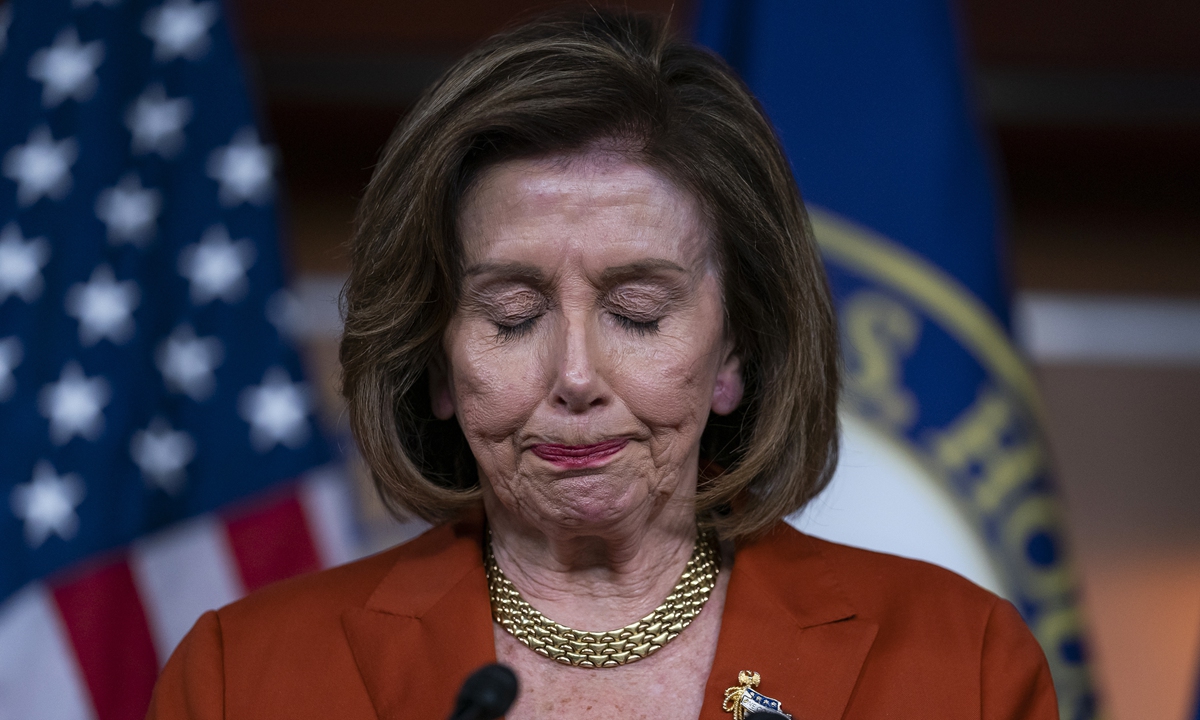
Speaker of the US House of Representatives Nancy Pelosi Photo: VCG
The US should shoulder its international responsibility and obligations, and not make excuses for its mistakes, said Chinese Vice Foreign Minister Ma Zhaoxu on Tuesday after US House Speaker Nancy Pelosi visited the island of Taiwan last week despite China's strong opposition.
The US should not be surprised and frustrated that China has canceled and suspended cooperation with it in relevant fields as China had warned US in advance that Pelosi's Taiwan visit could cause a crisis and major disruption to exchanges and cooperation between the two sides, Ma said during an interview with China's state broadcaster CCTV.
The Taiwan question is China's core interests. The US side has seriously undermined China's core interests but still wants to seek cooperation with China. How can it be justified? Ma questioned.
As a responsible major country, China will, as always, take an active part in international cooperation on climate change and makes its own contribution to addressing global challenges, Ma stressed.
More than 170 countries and many international organizations have voiced their just voices, reaffirming their adherence to the one-China principle and their support for China's resolute efforts to safeguard its sovereignty and territorial integrity. The president of the UN General Assembly and the secretary-general of the United Nations (UN) have made it clear that the UN will continue to adhere to Resolution 2758, the core of which is the one-China principle. What is the Group of Seven (G7) compared to 170 countries? Does anyone care what they say? Ma pointed out.


Chinese Foreign Ministry Spokesperson Wang Wenbin Photo: VCG
Japan has no qualification or the right to point fingers over the Taiwan question, said Chinese Foreign Ministry on Monday, refuting Japanese government's remarks that smeared China's military drills around Taiwan island as a "threat to regional peace and security."
"Japan has been acting so high-profile on the Taiwan question. Has it forgotten the commitment it made when signing the Sino-Japanese Joint Statement? Is it trying to subvert the political foundation of China-Japan relations? Does it have the ambition to touch Taiwan again? Is Japan going to take this opportunity to expand its arms, abandon its pacifist constitution and abandon the path of peaceful development?" Wang Wenbin, spokesperson of the Ministry of Foreign Affairs, said at a press conference on Monday.
Wang's remarks came after the Japanese government claimed that the ballistic missiles fired by the Chinese military fell into Japan's exclusive economic zone (EEZ) on Thursday. Similar questions have been raised several times at the Chinese Foreign Ministry's press conferences since the last week.
After a meeting with Pelosi during her visit to Japan, Japanese Prime Minister Fumio Kishida said China's military drills are a "serious problem that impacts our national security and the safety of our citizens" and a threat to regional peace and security, according to media reports.
Wang refuted the claims, saying that China and Japan have not carried out maritime delimitation in relevant waters, so there is no such thing as "Japan's EEZ" in the area.
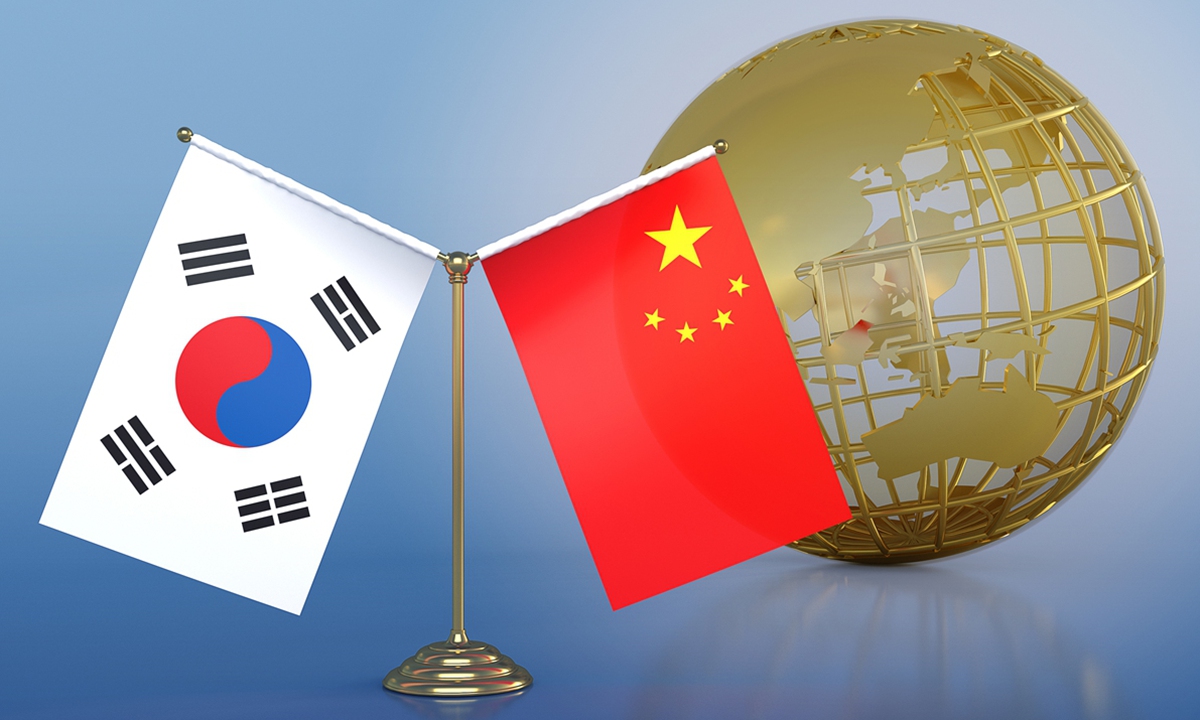
China South Korea Photo:VCG
South Korean Foreign Minister Park Jin landed in Qingdao, Shandong Province, on Monday afternoon, kick-starting his first visit to China since taking office. This is also the first high-level South Korean delegation to visit China since the new administration of President Yoon Suk-yeol assumed office. Both China and South Korea attach great importance to the visit, and there are many topics worthy of in-depth communication between the two sides. In addition, the visit comes right after US House Speaker Nancy Pelosi's visit to Taiwan island, which has caused a serious impact on the situation in East Asia and attracted great attention as well as complicated interpretations from the international society.
Many people have noticed that during Pelosi's visit to South Korea after the Taiwan island visit, Yoon and Park did not meet her. South Korean officials also deliberately avoided discussing the Taiwan question with Pelosi. In terms of such arrangement, South Korea has considerations for its special geographical position, which cannot be viewed in a simplistic way. Still, the Chinese society generally regards it as a demonstration of South Korea's independent diplomacy and rationality toward China, especially in sharp contrast with Japan. As a result, South Korea has won recognition and respect from Chinese society. To a certain extent, this has created a constructive and positive atmosphere for Park's China visit.
But obviously, some countries do not want to see China-South Korea relations maintain a healthy and stable momentum of development. When China and South Korea make efforts to meet each other halfway, cold water is often poured toward them, mixed with sinister questioning and provocation. This time too. Major media outlets in the US and the West, including South Korea's conservative public opinion, are accustomed to highlighting and amplifying the negative aspect of China-South Korea relations, creating differences, contradictions and even confrontations.
Some realities are indeed worrying. The voices advocating mutual benefit and friendly cooperation between China and South Korea have been weakened, while the radical attitude full of emotional shortsightedness has been strengthened. If China-South Korea ties are to move forward, the practical resistance they face is increasing. China and South Korea must step over the pits dug by those people and break through the barriers they set up.
We noticed that the Yoon administration has always intentionally made efforts to avoid being kidnapped by populism in the three months since taking office. While strengthening its alliance with the US and de-escalating tensions with Japan, it has also paid relatively much attention to its relations with China, maintaining a generally stable trend in China-South Korea relations. It is important to emphasize that such a dynamic relationship should be further consolidated and carried on, which is in the interest of both China and South Korea.
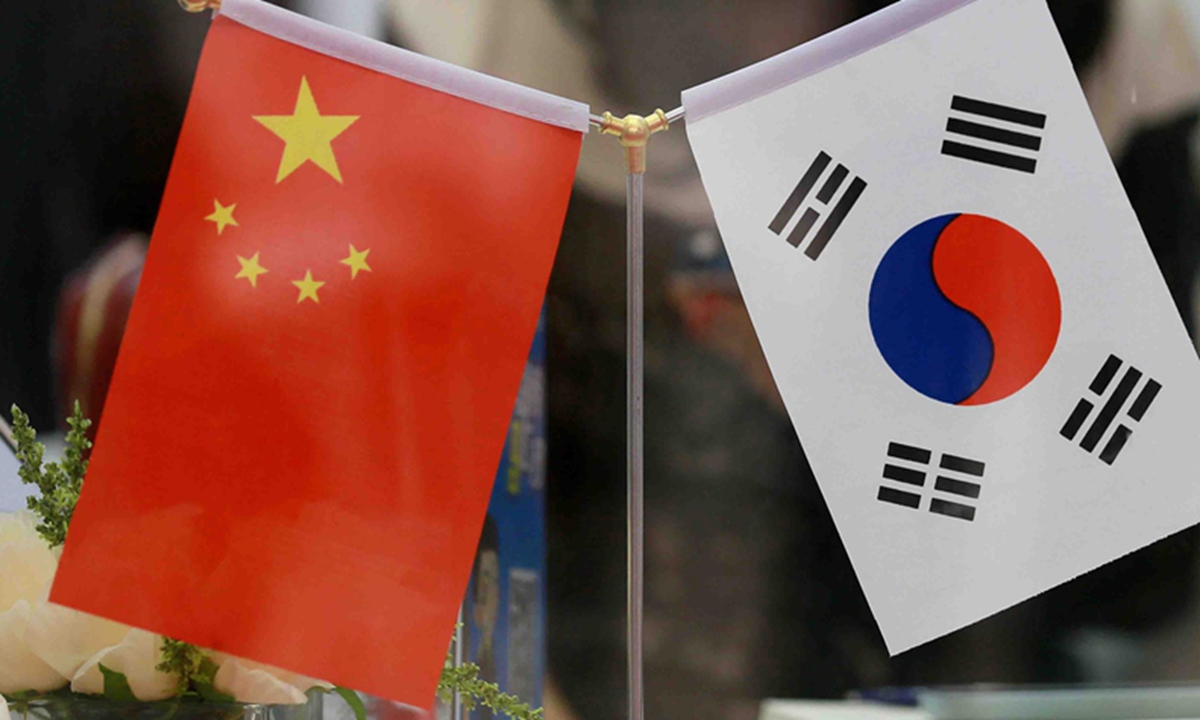
China South Korea File photo:CGTN
With South Korean Foreign Minister Park Jin set to kick off a three-day visit to Qingdao in East China's Shandong Province on Monday, the first high-level official to travel to China since South Korean President Yoon Suk-yeol took office in May, on the same day, South Korean media cited an unnamed presidential official as saying that the country has decided to attend a preliminary meeting for "Chip 4" - an alliance created by the US that some believe aims to set up a semiconductor barrier against the Chinese mainland.
The simultaneous message also illustrated South Korea's political dilemma in striking a balance between China and the US in the face of increasing pressure from Washington, analysts said, warning that South Korea may face more losses if it totally sides with the US to counter China.
Chinese State Councilor and Foreign Minister Wang Yi will meet with Park during his stay in China, according to information from the Chinese Foreign Ministry. China is willing to take Park's visit as an opportunity to strengthen communication, focus on cooperation and promote the healthy and stable trend of bilateral relations.
Before coming to China, Park told a press conference that his trip would be a chance to reduce misunderstandings and boost cooperation in areas including trade, health and the environment, Reuters reported.
Park's visit to China has drawn close attention in China and South Korea, as the two countries are about to celebrate the 30th anniversary of the establishment of diplomatic relations. At the same time, there are many new and old issues that need to be urgently discussed, and compared to its more frequent interactions with the US, Japan and Europe, the new South Korean government has had fewer exchanges with China, Wang Junsheng, a research fellow of East Asian studies at the Chinese Academy of Social Sciences in Beijing, told the Global Times.
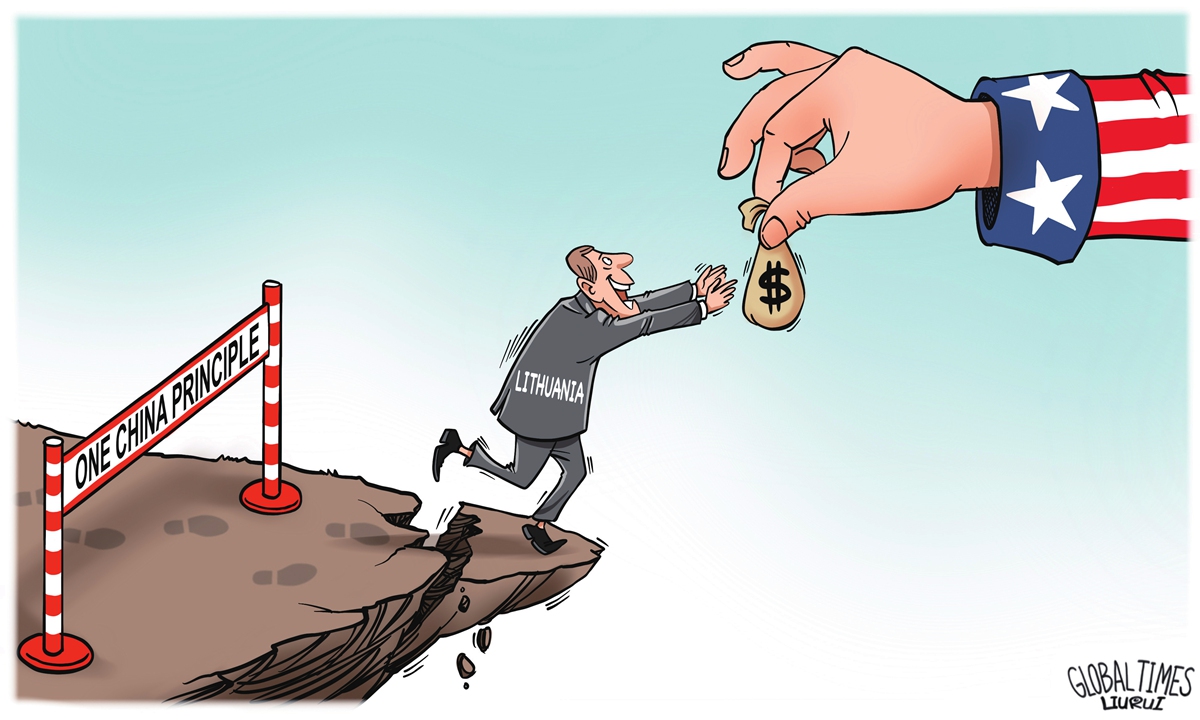
Gambling on crumbs from the US' table Illustration: Liu Rui/GT
Following US House Speaker Nancy Pelosi's provocative visit to Taiwan and disregard of the international community's harsh criticism of her irresponsible move and China's unprecedented large-scale military drill across the Straits, Lithuania sent a delegation of 11 officials to the island on Sunday. Experts warned that any attempt by the Lithuanian side to trample on the one-China principle could result in severe consequences, including Beijing's severing of diplomatic ties with the country.
Lithuanian Deputy Transport and Communications Minister Agne Vaiciukevičiūtė, leading an 11-member delegation, arrived in the island for a five-day visit on Sunday, the Taiwan external affairs department said in an update on Twitter.
The delegation is set to visit local transportation agencies and electric bus manufacturers to explore collaboration in smart and green transportation industries, as well as "demonstrate the solidarity between two democratic allies," according to a statement by the office, media reported on Saturday.
It is the third in a series of deputy-ministerial visits to Taiwan by the Baltic state, after visits by Lithuania's Vice Minister of Economy and Innovation Jovita Neliupšienė on June 20, and Vice Minister of Agriculture Egidijus Giedraitis on June 22.
Experts noted that Lithuania's decision to visit the island at such a tense time is a vicious and obvious provocation, and China should step up its response to it.
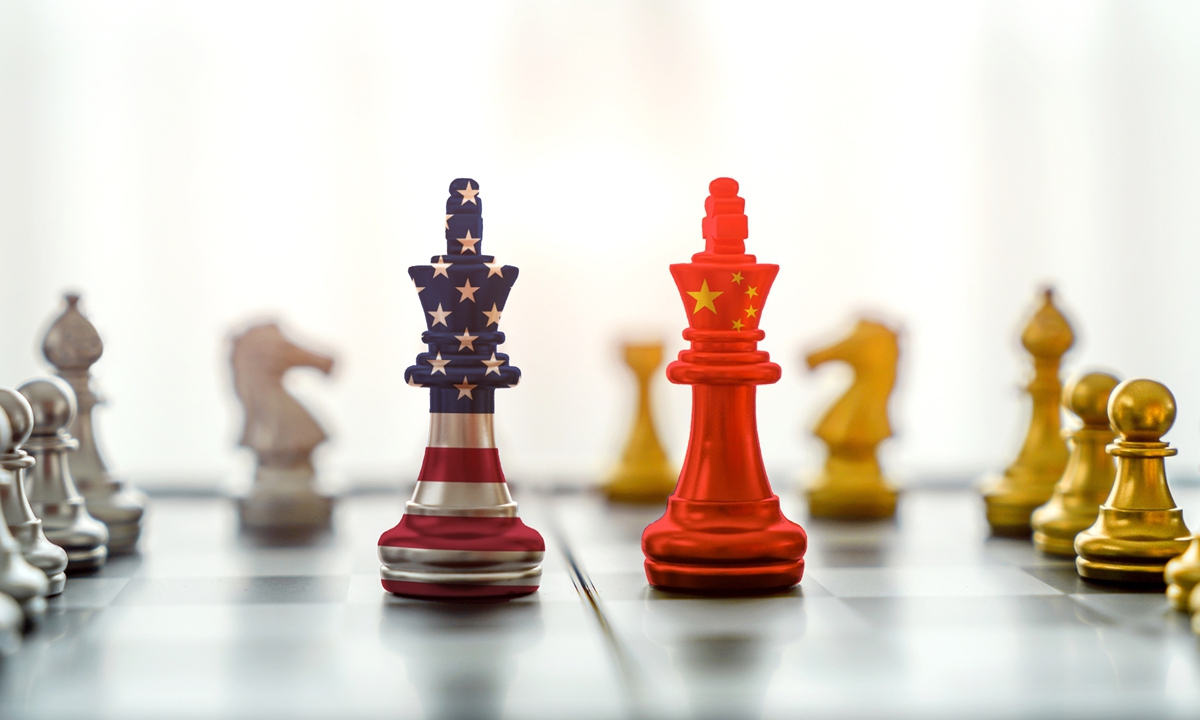
China US Photo: IC
The US has been looking for scapegoats on creating tensions in China-US ties since China announced eight countermeasures in response to US House Speaker Nancy Pelosi's highly provocative visit to the island of Taiwan, including cancelling military talks and suspending climate cooperation. Chinese analysts stressed that it's the US that should take full responsibility for the cancelation of bilateral dialogues and cooperation in key areas and whether and how they will be resumed all depends on what commitments and actions the US will make in correcting its mistakes.
Meanwhile, analysts warned that China-US relations have entered an extremely dangerous stage and China must be fully prepared for worse scenarios, such as US Congress further pushing forward with the Taiwan Policy Act.
The strained situation in the Taiwan Straits was a result of US provocation and it should take all the responsibility and face the ensuing serious consequences. However, the US is making excuses for its wrong deeds and provocations and trying to shift the blame, which China firmly opposes, Senior Colonel Wu Qian, a spokesperson of China's Ministry of National Defense, said in a statement on Monday.
Wu said the Chinese side's countermeasures are necessary warnings to the US and Taiwan's provocations and justified actions for safeguarding national sovereignty and security, and are reasonable and appropriate.
Despite its claims that it is managing the crisis, the US continues to create tensions and make excuses for its erroneous words and acts and provocative behaviors, and even resorts to scapegoating to avoid its own responsibility, said Wu. "We firmly oppose this," he added.
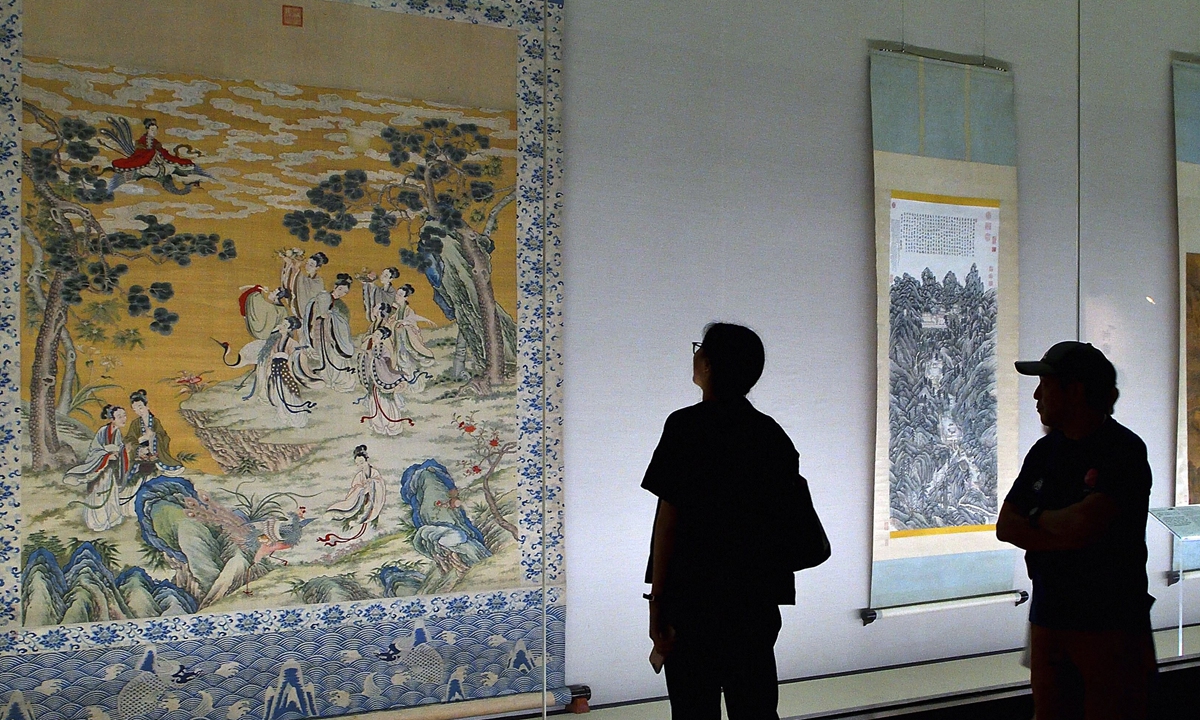
Palace Museum in Taipei Photo: AFP
As tensions escalate across the Taiwan Straits as result of US House Speaker Nancy Pelosi's provocative visit to the island, a rumor that some of the Chinese relics at the Palace Museum in Taipei will be relocated to the US and Japan for "protection" has sparked public outrage. The museum denied the rumor on Sunday, but found it hard to dispel public concerns.
Although it was a rumor, observers and netizens have raised an alert over possible relic relocation abroad from the island of Taiwan, as it will not only be a great disaster for Chinese culture, but also a provocation to the whole Chinese nation, and they also warned regional leader Tsai Ing-wen and other secessionists on the island not to be "unworthy descendants."
The museum is home to many treasures, most of which were moved from the Palace Museum in Beijing and other institutions throughout the Chinese mainland during the Kuomintang (KMT)'s retreat to the island after its defeat in a civil war in the late 1940s, and became one of the world's finest collections of Chinese imperial relics. The museum is actively considering how to "protect its treasures" if a military conflict occurs, media reported.
With China carrying out military drills around the island following Pelosi's provocative visit there, rumors circulating online claimed that Democratic Progressive Party (DPP) authorities are preparing to pick and relocate some 90,000 relics to the US and Japan.

Warplanes of the Eastern Theater Command of the Chinese People's Liberation Army (PLA) conduct operations during joint combat training exercises around the Taiwan Island, Aug. 7, 2022. The Eastern Theater Command continued its joint combat training exercises as scheduled on Sunday in the waters and airspace around the Taiwan Island. Photo: Xinhua
The Chinese People's Liberation Army (PLA) on Monday continued military exercises and training activities surrounding the island of Taiwan, marking an extension from the previously announced schedule. Drills like these will not stop and are expected to become routine until reunification, as the Chinese mainland shows its determination to push forward the reunification process after US House Speaker Nancy Pelosi's provocative visit to the island last week that seriously violated China's sovereignty and territorial integrity, experts said.
The drills not only lock the island from inside out, but also from the outside in, telling external forces that the PLA has powerful area denial capabilities in the region that even the US cannot rival, analysts said.
The PLA Eastern Theater Command continued realistic combat-oriented joint exercises in sea and air space around the island of Taiwan on Monday, focusing on joint anti-submarine warfare and sea assault operations, the PLA Eastern Theater Command said in a statement.
During the drills, the Type 052C guided missile destroyer Changchun operating in waters southwest to Taiwan island coordinated with several Y-8 anti-submarine warfare aircraft and formed an anti-submarine combat formation together with the Changchun's Ka-28 vessel-based anti-submarine helicopter, China Central Television (CCTV) reported.
The Y-8 anti-submarine warfare aircraft dropped sonobuoys for wide-range detection, the Ka-28 helicopter assisted in precision locating, and the destroyer conducted thorough search. After locating the target, the destroyer conducted a simulated attack and immediately released countermeasures for defense. The helicopter and the anti-submarine warfare aircraft also conducted mock attacks, CCTV reported.
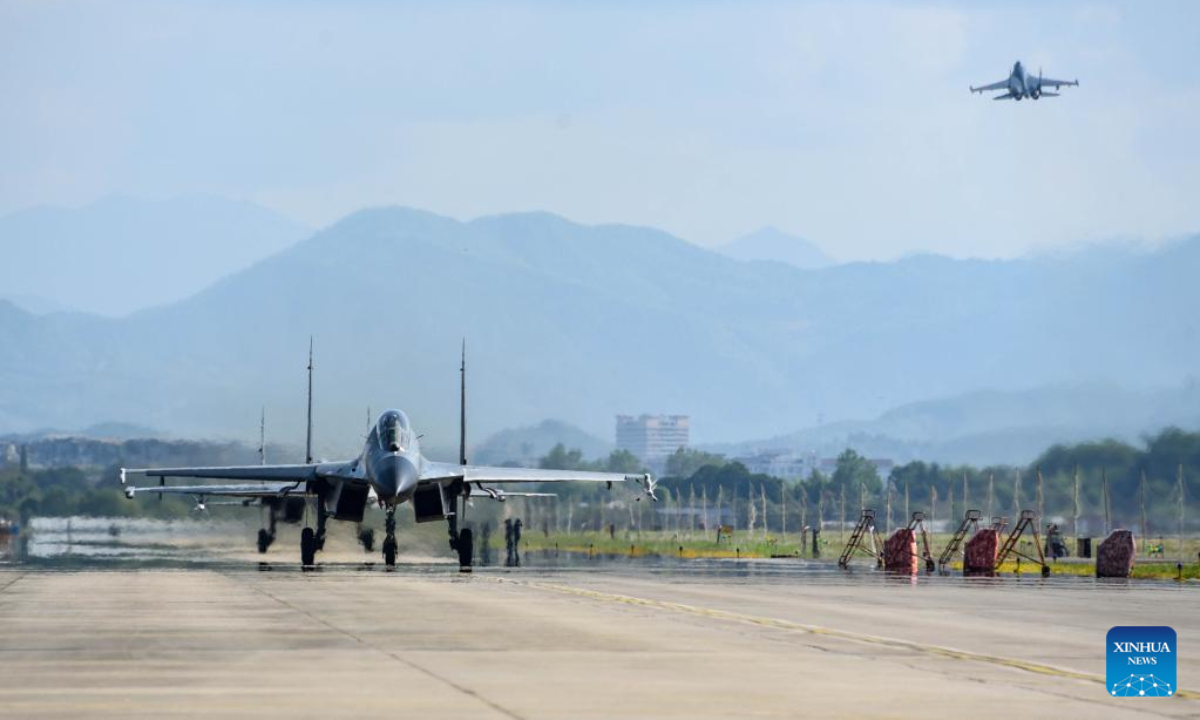
The air force and naval aviation corps of the Eastern Theater Command of the Chinese People's Liberation Army (PLA) fly warplanes to conduct operations around the Taiwan Island, Aug. 4, 2022. The Eastern Theater Command on Thursday conducted joint combat exercises and training around the Taiwan Island on an unprecedented scale. Photo:Xinhua
The distance from Russia to Taiwan island amounts to more than 7,000 kilometers - not exactly what you would call a nearby neighborhood. Still, the recent US-China crisis over the Taiwan question has inspired a lot of passionate discussions in the Russian capital, like in many other capitals around the world.
What might happen to the volatile security environment in the Taiwan Straits? Should we continue to consider a large-scale military conflict in East Asia only a hypothetical scenario or has it already become a visible possibility looming on the horizon?
There is no apparent consensus in Moscow on what would serve Russia's interests better - further escalation, or rather de-escalation of the crisis. The arguments of many champions of escalation can be condensed to three major points:
First, since the US is perceived as the main challenge to Russia's security and even to its mere existence, it is nice to see the US getting into trouble elsewhere. The crisis around Taiwan Straits speaks volumes about the inability of Washington to conduct a coherent foreign policy. The longer the crisis lasts, the more damage it is likely to inflict upon US positions in the region and the more it will erode the global American leadership.
Second, if the China-US relations continue to sour, the value of Moscow in Beijing's eyes is likely to increase. More than ever before, China will need a reliable strategic partner in Eurasia in order to focus on Washington, which views China as a strategic adversary. That implies more political, military, economic and technological China-Russia cooperation.
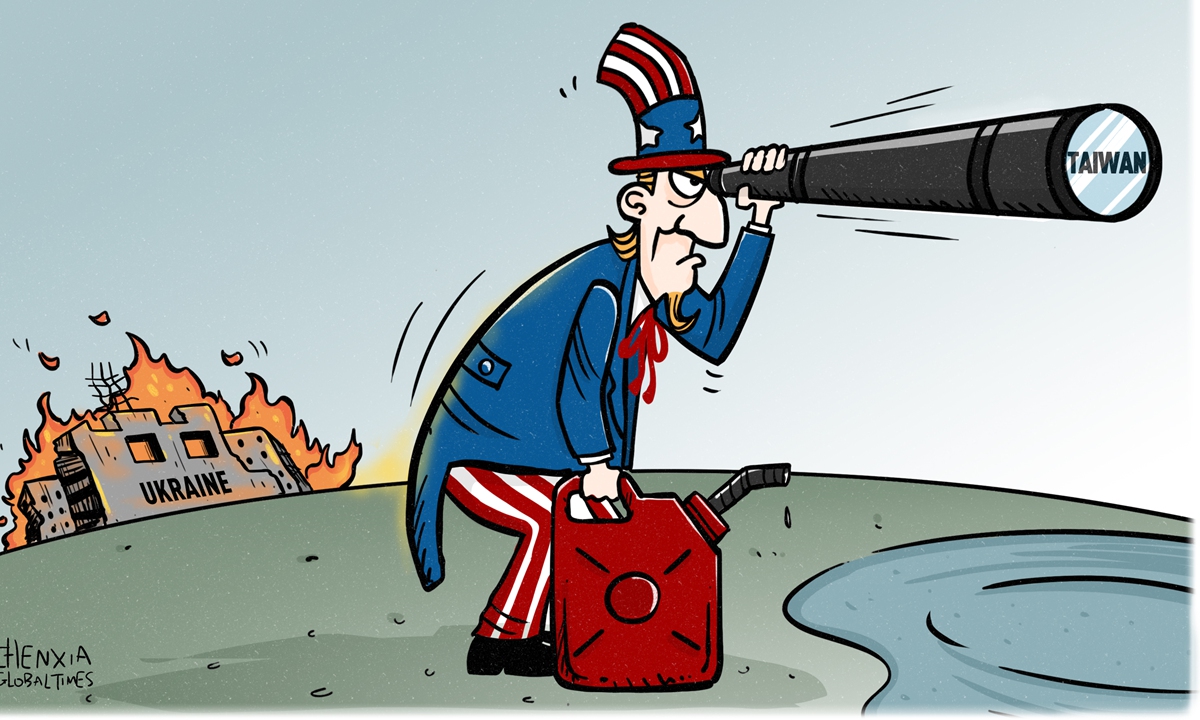
Illustration: Chen Xia/GT
In disregard of China's strong opposition and solemn representations, as well as the discouragement of many international mainstream media outlets and political dignitaries out of good intentions, US House Speaker Nancy Pelosi stubbornly carried out her visit to the island of Taiwan. This trip has seriously violated the basic norms of international law established by the UN Charter, gravely reneged on US commitments made in the three China-US joint communiqués and the one-China principle, which are the political foundation of China-US relations.
It's also a serious violation of China's sovereignty and territorial integrity, greatly undermining peace and stability across the Taiwan Straits. After instigating the Ukraine crisis, the US has attempted to incite conflicts across the Taiwan Straits, which has fueled a new round of global turbulences in the Western Pacific region.
Pelosi is the Speaker of the US House of Representatives and third most senior political figure of the US. Her official foreign trips represent the US' exercise of its diplomatic power. This time, Pelosi's visit to Singapore, Japan and South Korea can be called "state visits," but a trip to the island of Taiwan without China's permission trampled on China's sovereignty, and it is also a violation of the principles of sovereign equality and territorial integrity stipulated by the UN Charter.
The Chinese central government has repeatedly stated at the UN that there is only one China in the world, Taiwan is a part of China, and the government of the PRC is the sole legitimate government representing the entire China. At present, this statement is a political reality recognized by the 181 countries that have established diplomatic relations with China and accounts for about 93.7 percent of UN member states. It also represents the basic principles that most of the countries in the world must abide by in their official dealings with China.
In the 1972 Shanghai Communiqué, the Joint Communiqué on the Establishment of Diplomatic Relations between the People's Republic of China and the United States of America in 1978 and the Joint Communiqué of the People's Republic of China and the United States of America (August 17, 1982), both the Chinese and US governments clearly emphasize the adherence to the one-China principle. The three joint communiqués establish the political foundation for the normalization of China-US relations over the past half century, and are regarded as the code of conduct and cooperation norms to measure the diplomatic behaviors of the two countries. As one of the main leaders of the US, Pelosi's visit to the Taiwan island obviously constitutes a violation of the norms of international law recognized by both China and the US. It also betrays the political commitments the US has made to China.
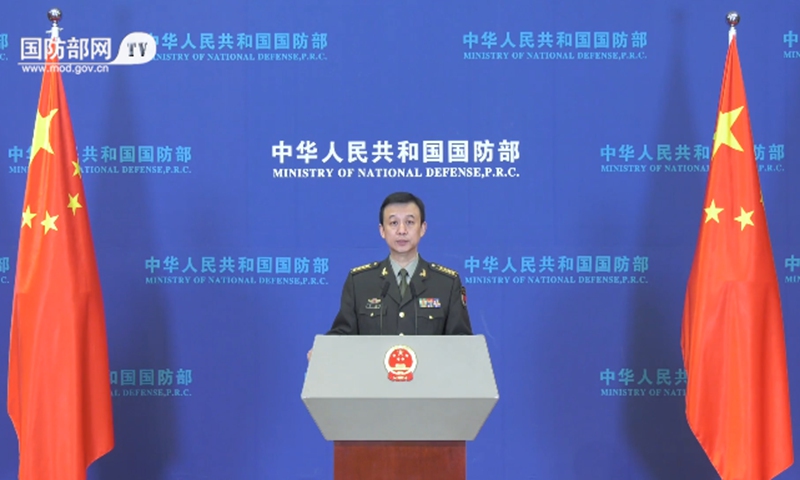
Wu Qian, spokesperson for China's Ministry of National Defense
The strained situation in the Taiwan Straits was made by the US' provocation and it should take all the responsibility and face serious consequence. However, the US is making excuses for its wrong deeds and provocations and trying to shift blame, which China firmly opposed, Senior Colonel Wu Qian, a spokesperson of China's Ministry of National Defense, said in a statement on Monday.
Analysts said that the US takes all the responsibility for destroying the communication channel and whether it will be rebuilt or how the two militaries will connect will depend on the US' attitude in correcting its wrong deeds.
In responding to US House Speaker Nancy Pelosi's provocative visit to the island of Taiwan, China on Friday announced eight countermeasures, including canceling China-US theater commanders talk, defense policy coordination talks, military maritime security consultative mechanism and suspending cooperation on illegal immigration repatriation, drug control and climate change.
US media Politico reported that senior US military officials called Chinese military on the cancelation of the exchanged of the two militaries but were refused
Wu responded in the Monday statement that China had reiterated its stances on the two militaries, the Taiwan question and other related issues, and had lodged solemn representations to the US on Pelosi's visit, but the US spoke of one thing while acting in another, connived Pelosi and purposely created tensions at the Taiwan Straits.
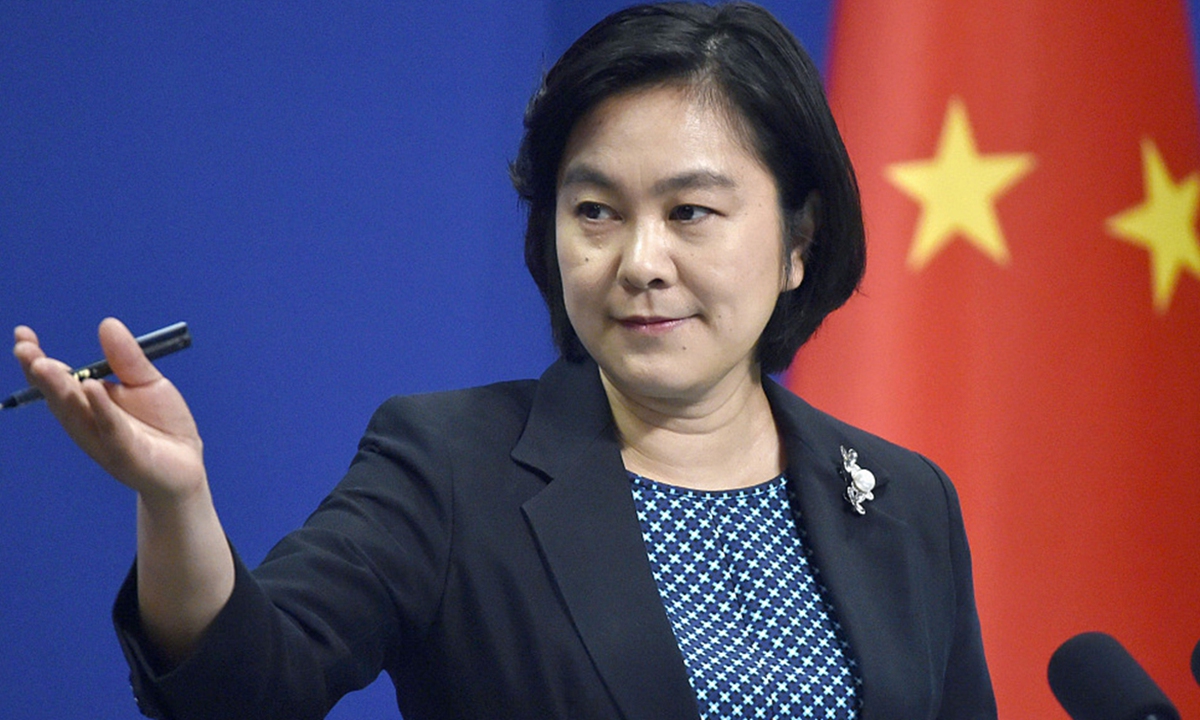
Chinese Foreign Ministry spokesperson Hua Chunying. Photo: VCG
Chinese Foreign Ministry spokesperson Hua Chunying on Sunday posted eight tweets in a row on Twitter in a powerful rejection of US claims of China "overreacting" to US House Speaker Nancy Pelosi's provocative trip to the island of Taiwan. In the last tweet of the series, Hua pointed out that "the Chinese people will never forget their national shame and will never allow those bandits to bully and plunder China again."
Following China's biggest ever military drills in the Taiwan Straits, US Secretary of State Antony Blinken bluntly called China's response to Pelosi's trip to Taiwan an "overreaction," Turkish state-run media outlet Anadolu Agency reported on Friday.
"The fact is speaker's visit was peaceful. There is no justification to this extreme, disproportionate and escalatory military response," Blinken was quoted in the article as saying at a news conference in Cambodia where he was attending the ASEAN summit.
The US Ambassador to China Nicholas Burns said on Sunday that China's actions in and around the Taiwan Straits "threaten the status quo of many decades," adding that "the world should hold Beijing accountable to maintain the peace."
Rebutting these claims, Hua told the ambassador and the US Department of State, "You are wrong." She pointed out the fact that the US does not represent the whole world, still less the great many developing countries.
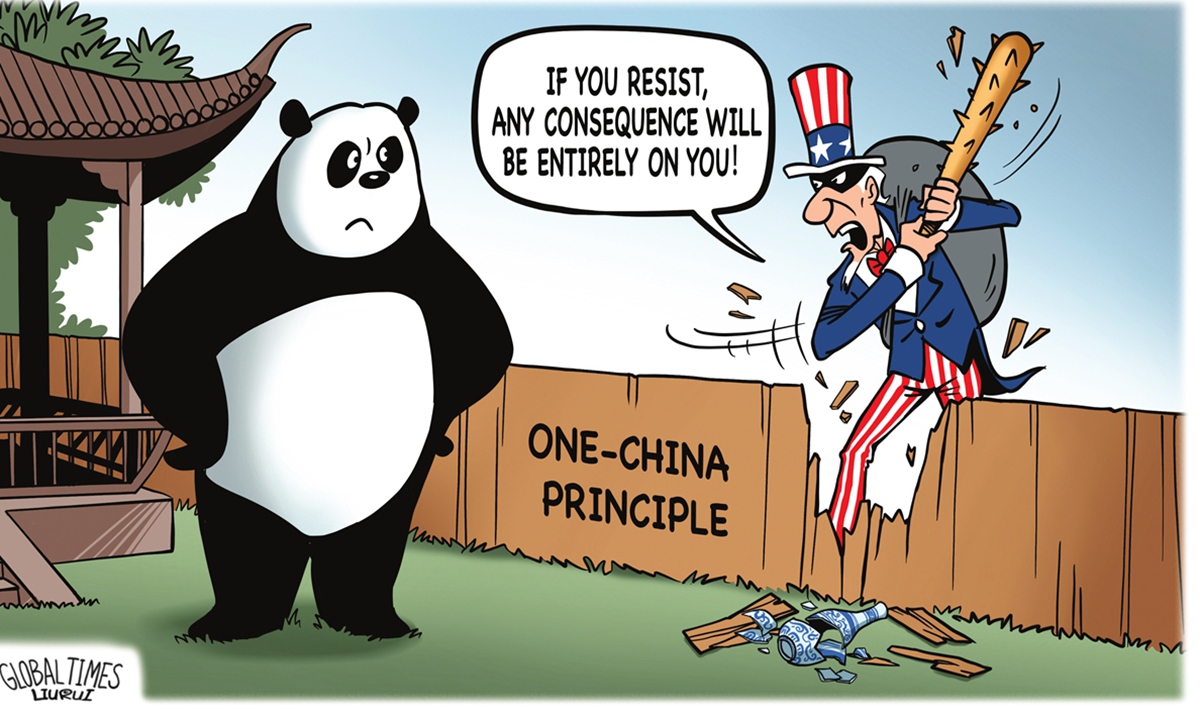
China, US Illustration: Liu Rui/GT
Over the past few days, the US and some of its sidekicks have continued to confuse black and white on the serious consequences of US House Speaker Nancy Pelosi's visit to the Taiwan island. They accuse China of "increasing the risk of misjudgment" for conducting military exercises and training activities, smearing China's countermeasures as "irresponsible steps." Such a tone, as if they are the world's police, not only made 1.4 billion Chinese people, but also people from more countries worldwide, see clearly how Washington has created crises one after another, and then put the blame on the victim.
The current situation is entirely caused by Pelosi and American politicians. China has made the utmost diplomatic efforts before, repeatedly warning the US of the seriousness and danger of Pelosi's visit to Taiwan. However, the US turned a deaf ear, went its own way, and even deliberately ignored China's emphasis - "Those who play with fire will perish by it" - as no more than an often-used metaphor. Now they are manipulating the public opinion by complaining maliciously about China's "overreaction," doesn't the move come from their previous serious underestimation of China's determination and will?
It is both ironic and absurd that the key points of Washington's current accusations against China are only appropriate for the US itself, as if the US thinks of these wordings when looking in the mirror.
For example, the US accuses China of changing the status quo in the Taiwan Straits, undermining regional peace and stability, and using military intimidation. Aren't these US own deeds? If people change the subject of the sentences, these wordings can be seen as an accurate generalization and summary of US' behaviors in the Asia-Pacific region, including the Taiwan Straits, over the years. This time, Washington has brought its extortionist logic into full play.
During the meetings of foreign ministers on East Asia cooperation, US Secretary of State Antony Blinken said that the US side hopes that international law is abided by and that the sovereignty and territorial integrity of all countries are maintained. Chinese State Councilor and Foreign Minister Wang Yi responded that it has been long since the US side last made such remarks, and the US has done the opposite in multiple cases over the years. If the US side can really mend its ways, China will encourage it, but the key is for the US to walk the talk, Wang said, noting that it should first of all fulfill its commitment on the Taiwan question and respect China's sovereignty and territorial integrity, stop interfering in China's internal affairs, and stop conniving at or supporting the "Taiwan independence" secessionist forces. This interaction is very representative and vividly points out the essence of the Taiwan question.

The air force and naval aviation corps of the Eastern Theater Command of the Chinese People's Liberation Army (PLA) fly warplanes to conduct operations around the Taiwan Island, Aug. 4, 2022. The Eastern Theater Command on Thursday conducted joint combat exercises and training around the Taiwan Island on an unprecedented scale. Photo:Xinhua
As Chinese military forces have been conducting massive drills around the island of Taiwan in response to the serious provocations made by the US on the Taiwan question in recent days, Chinese diplomats around the globe are also make great efforts to introduce the historical context and the merit of the Taiwan question to reinforce the one-China principle as an international consensus. This is to let the world understand how the tensions emerged and why the US is one who provoked first, and to let the world be prepared to understand the national reunification of China which will be realized one day in the near future.
After US House Speaker Nancy Pelosi's provocative trip to Taiwan, the vast majority of the international community has showed their supportive attitudes or voices of understanding to China's legitimate countermeasures toward the US and the Taiwan secessionist authorities, with more than 160 countries speaking up for justice, condemning the Pelosi visit as a serious, reckless and irresponsible provocation and expressed their commitment to the one-China principle and support for China's efforts to uphold sovereignty and territorial integrity, according to the Chinese Foreign Ministry.
But the US and a handful of its allies are still trying to make use of the US hegemonic advantage in the field of international public opinion to distort, misinterpret and weaken the one-China principle as a international consensus, so it is very necessary and important for China to keep telling the world about the truth of the Taiwan question, said analysts.
By doing so, the US will have no chance to demonize China's national reunification process, and even if China has to reunify the island of Taiwan and safeguard its sovereignty by force one day as a result of the provocations made by Washington or the Taiwan authorities, the mainstream of the international community will keep their supportive and understanding attitudes toward China, experts noted.
Telling the truth

Speaker of the US House of Representatives Nancy Pelosi Photo: VCG
Although US House Speaker Nancy Pelosi concluded her reckless visit to the island of Taiwan, the aftershock hasn't stopped. And she has already scuttled China-US relations. More and more voices from within the US and other countries have criticized the 82-year-old woman's Taiwan trip as "irresponsible," saying it was for her personal gains. Meanwhile, the Biden administration, instead of offering acceptable explanation of Pelosi's provocative trip, has kept blaming China for "escalating tensions," and portraying the US as well as the island of Taiwan as "victims." Observers said such moves show Washington has no sincerity of averting the current tension between itself and Beijing, and risk pushing the bilateral relation into a deeper abyss.
As countermeasures against Pelosi's provocative visit, China halted cooperation with the US on a range of key fields, including military and climate change. Experts believe now the ball is in US court - if the US government can make positive gestures on the Taiwan question, as well as on other matters that are of core interests to China, it may save China-US relation from further deterioration; and if bilateral relations keep spiraling down, it is solely US' fault.
The New York Times published an editorial piece on Saturday entitled "The US Relationship with China Does Not Need to be So Tense." The article called Pelosi's visit to the island of Taiwan as "provocative," and noted, "It is in everyone's interest for the two most powerful nations on Earth to find ways of easing these tensions."
Max Baucus, former US ambassador to China, told the Sky News on August 2 that Pelosi was behaving "recklessly" and "dangerously" simply to "get a little publicity" by visiting Taiwan.
Internationally, not only more and more countries have voiced their supports for the one-China principle, others also chided Pelosi for her meaningless trip. Former prime minister of New Zealand John Key has described the visit to Taiwan by US house speaker Nancy Pelosi as "reckless, provocative and dangerous.''
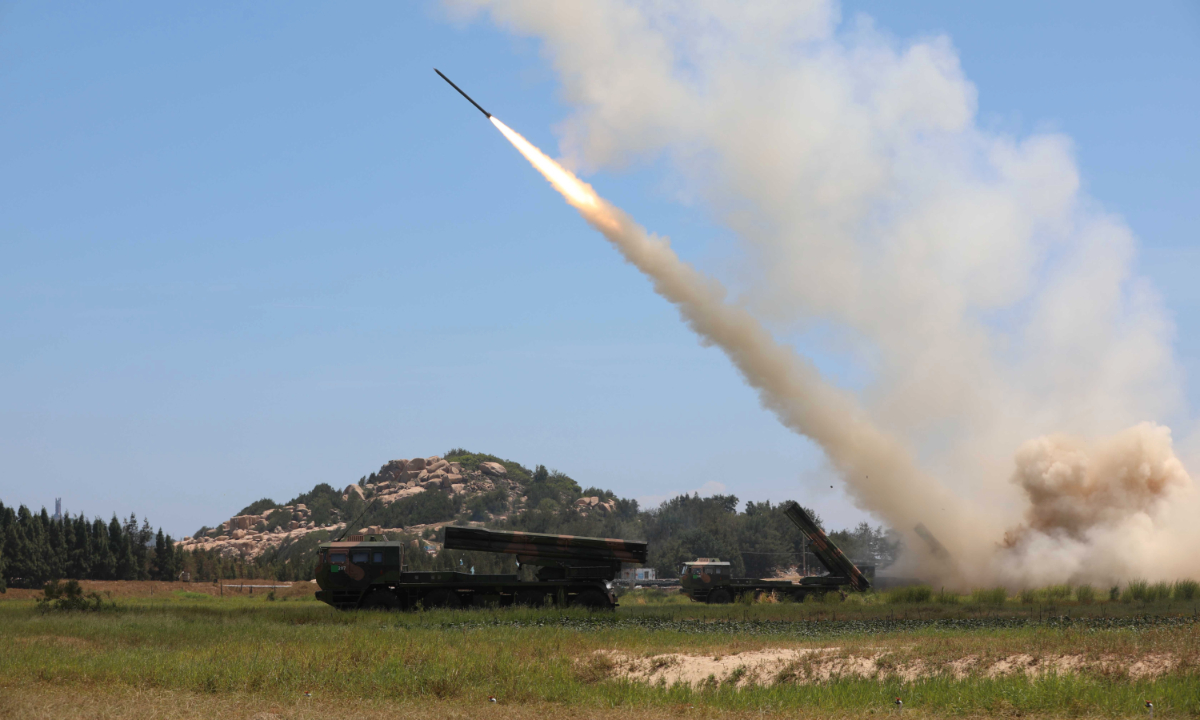
The army of the Eastern Theater Command of the Chinese People's Liberation Army (PLA) conducts long-range live-fire drills in the Taiwan Strait, Aug. 4, 2022. The Eastern Theater Command on Thursday conducted joint combat exercises and training around the Taiwan Island on an unprecedented scale. Photo:Xinhua
The last day of scheduled military exercises around Taiwan island by the Chinese People's Liberation Army (PLA) on Sunday featured island saturation attack drills and bomber deterrence flights in the Straits, a move experts said formed a powerful deterrence to "Taiwan independence" secessionists and external interference forces, greatly promoted the reunification process, and rehearsed a potential real operation.
If "Taiwan independence" secessionists and external interference forces continue to provoke, such exercises could become routine and feature amphibious landing drills in the future, analysts believed.
The PLA Eastern Theater Command on Sunday proceeded with the plan and continued realistic combat-scenario joint exercises in the sea and air space around the island of Taiwan, focusing on testing the troops' joint land attack and long-range air strike capabilities, the PLA Eastern Theater Command said in a press release on the day.
During the exercises, several batches of multiple types of warplanes attached to the PLA Eastern Theater Command Air Force conducted systematic island attack drills, with the focus being honing the joint land attack and long-range air strike capabilities, said the PLA Eastern Theater Command.
A video released by the PLA Eastern Theater Command shows that the H-6K bomber, the JH-7A fighter bomber, the J-16 fighter jet and the Su-30 fighter jet are among warplane types involved in the drills.
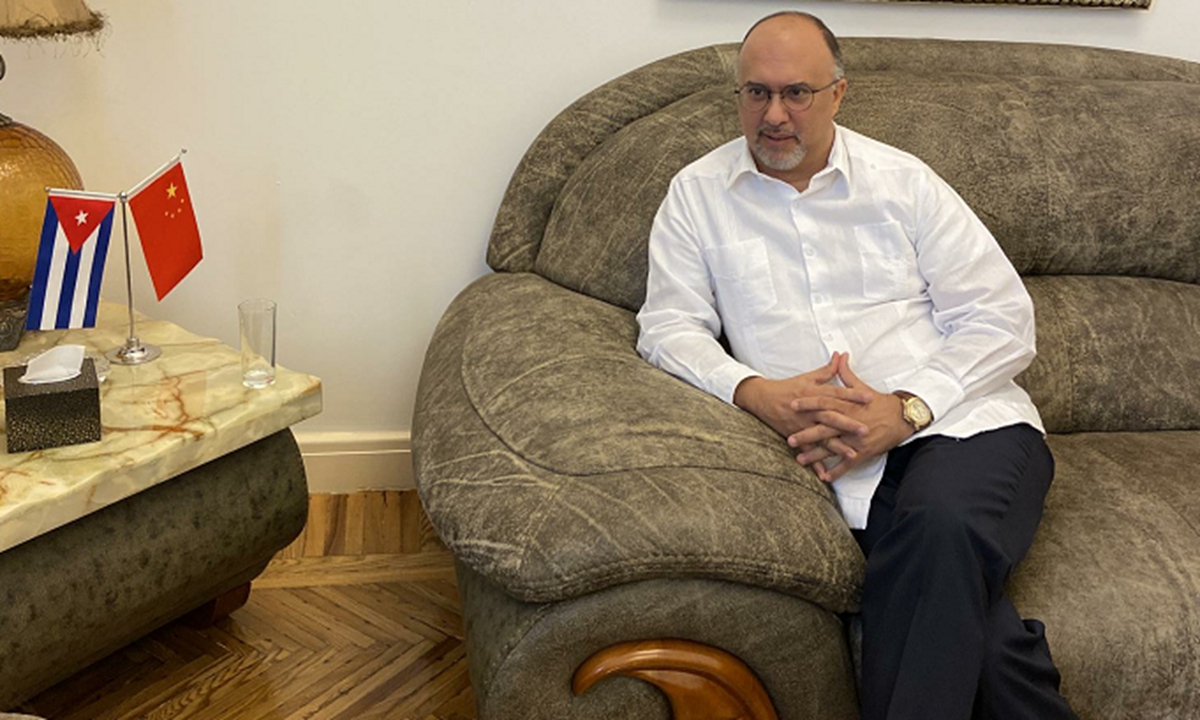
Cuban Ambassador to China Carlos Miguel Pereira Photo: Xie Wenting/GT
Cuba condemns the serious violation of the sovereignty and territorial integrity of the People's Republic of China by US House Speaker Nancy Pelosi's visit to China's Taiwan island, Cuban Ambassador to China Carlos Miguel Pereira told the Global Times in an exclusive interview on Sunday.
The Ambassador noted that these US provocations are deliberate and seek to destabilize peace and security of China and the region.
"We know first-hand, the aggression and intentions of the US government and we have been victims of the constant interference of the US in our internal affairs," he said.
Pelosi arrived in the island of Taiwan on Tuesday night and left on Wednesday. The visit was a strong violation of the one-China principle and seriously trampled on basic norms in international relations. The reckless visit has drawn widespread condemnation around the world.
Cuba's Ministry of Foreign Affairs on Wednesday issued a statement, condemning US interference in China's internal affairs and expressed a firm rejection of the actions aimed at harming China's territorial integrity and sovereignty. It stressed the country's unrestricted adherence to the one-China principle.
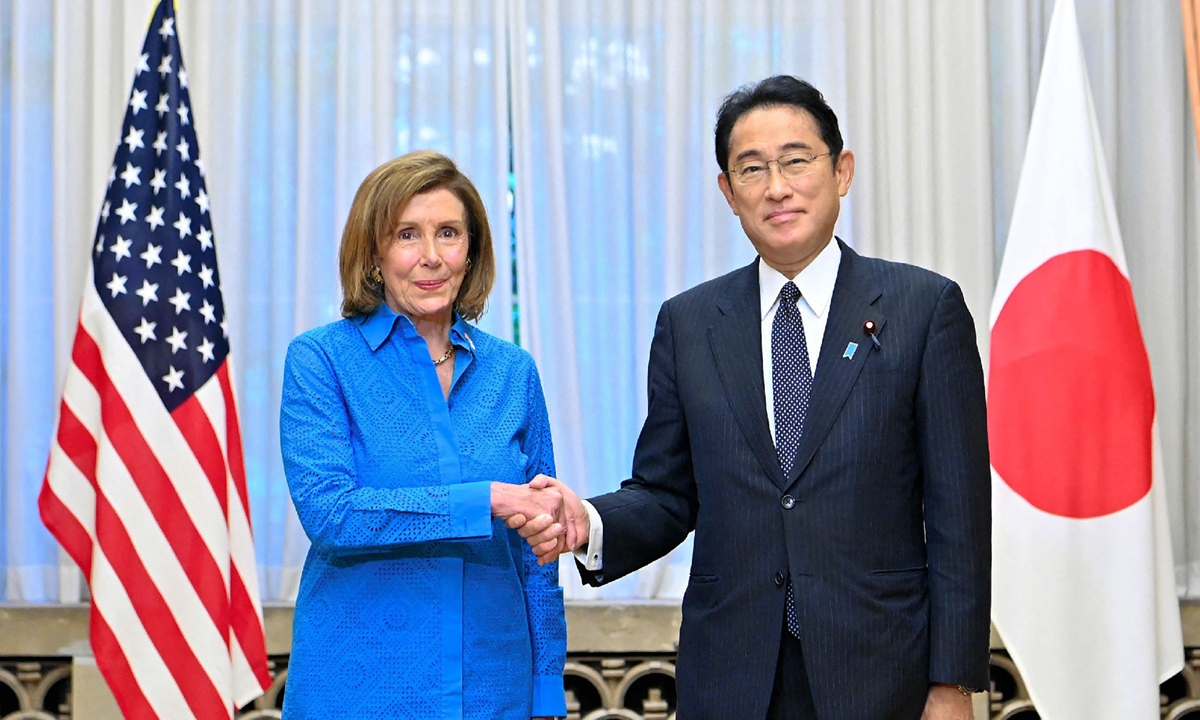
Japanese Prime Minister Fumio Kishida(right) meets with US House Speaker Nancy Pelosi on August 5, 2022. Photo: VCG
At a time of tensions in the Taiwan Straits after US House Speaker Nancy Pelosi's provocative visit to Taiwan island, Japan has not only failed to maintain regional stability, but instead issued erroneous statements on the Taiwan question. In this regard, observers warned there is a growing dangerous perception within the Japanese government that "a Taiwan emergency is an emergency for Japan."
With the Japanese government and society turning more and more conservative, observers condemned right-wing politicians for playing the "Taiwan card" and sensationalizing security concerns. They are trying to rationalize the country's goal of boosting the defense budget and amending its pacifist constitution.
Sanae Takaichi, policy chief of the Japanese ruling Liberal Democratic Party, who cited the deceased former Japanese prime minister Shinzo Abe's infamous remark "a Taiwan emergency is an emergency for Japan," tweeted on Friday that China's military exercises around Taiwan island have made many people realize the emergency. She claimed that if tensions escalate, Japan will undoubtedly enter the "battlefield."
Takaichi is widely considered the successor to Abe's policies and she has often visited the Yasukuni Shrine which enshrines Japan's infamous Class-A war criminals who symbolized Japan's war atrocities and militarism during WWII.
Takaichi is using her tough rhetoric to make more political capital and win more support from conservatives in the hope that her situation would not be bad if she has to step down after Prime Minister Fumio Kishida's upcoming cabinet reshuffle, Da Zhigang, director of the Institute of Northeast Asian Studies at Heilongjiang Provincial Academy of Social Sciences, told the Global Times on Sunday.
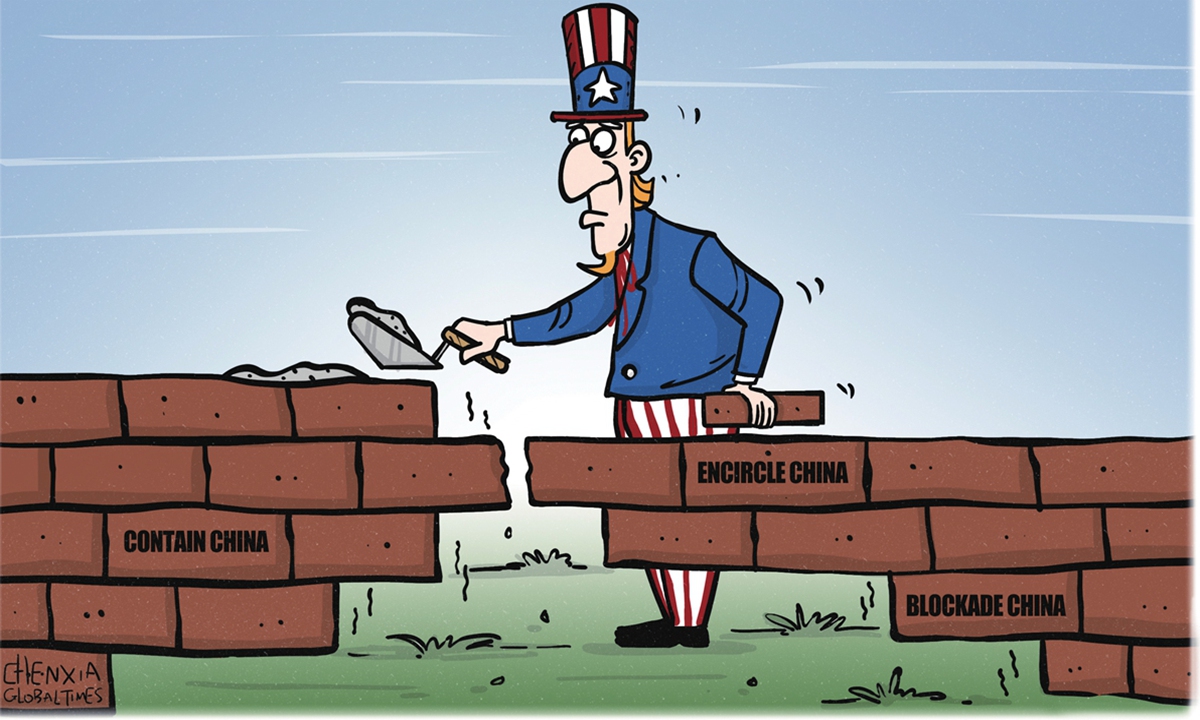
Illustration: Chen Xia/GT
US Secretary of State Antony Blinken, Australian Foreign Minister Penny Wong and Japanese Foreign Minister Yoshimasa Hayashi released a statement on Friday amid the 55th ASEAN Foreign Ministers' Meeting, urging China to "immediately cease the military exercises" in the Taiwan Straits.
After the G7 foreign ministers' statement on the Taiwan question, it's not surprising that the Quad countries would jointly release a statement over the situation across the Taiwan Straits, since the US has worked in recent years to elevate the Quad mechanism and increase the consistency of member countries regarding major issues of concern to the US.
However, India, a key member of Quad, is absent from this statement. Internationally, after the US provoked tensions in the Taiwan Straits, most countries did not follow the US on this issue. We can find two essential features if we examine the two statements released by foreign ministers of G7 and those of the US, Australia and Japan.
First, both of them are far from admitting that Nancy Pelosi's illicit visit to the island of Taiwan is responsible for the situation, yet condemn China's countermeasures for "raising tensions and destabilizing the region." Second, both statements reiterate that "there is no change in the respective one-China policies." This mirrors that Western governments are well aware that Pelosi's visit has seriously challenged the one-China principle, which has led to the current situation. Therefore, they have to reiterate the one-China principle when they smear and condemn China. It is easy to understand why besides a few certain countries, most countries in the world do not follow the US in terms of the Taiwan question. They know that the crisis in the Taiwan Straits stems from the US.
Apart from issues that concern China's core interests, India's stance differs from that of the rest three Quad members in many other areas. This grouping which was pieced together as a matter of expediency faces a great deal of uncertainties in front of many sharp and sensitive international issues. In matters of low sensitivity, the four countries share common grounds for cooperation, while in major international issues that concern the core interests of major powers, the four can hardly speak in one tune and Japan, Australia and India can hardly act as the US demands. In fact, the tunes of the so-called G7 statement, and the US-Japan-Australia statement, are different from the White House's version. US allies have their own calculations based on their own interests.

Photo: CFP
In further possible economic fallout from US House Speaker Nancy Pelosi's provocative visit to Taiwan island, the Chinese mainland reportedly move to tighten the enforcement of labeling rules on imports from the island, indicating that the mainland will not allow any ambiguity on the Taiwan question, including in the economic and trade area, experts noted.
US tech giant Apple told its suppliers to strictly comply with the Chinese mainland's customs regulations and avoid labeling products from Taiwan island as "made in Taiwan," the Nikkei reported on Friday.
Experts said the new move could further squeeze the living space of secessionist businessmen in Taiwan island for their businesses in the Chinese mainland.
According to the Nikkei report, Apple told its suppliers that mainland authorities have started strictly enforcing a long-standing rule that states Taiwan-made parts and components must be labeled as made either in "Taiwan, China" or "Chinese Taipei" to avoid shipments from being held for examination.
The Apple warning came on the heels of another media report that shipments to Apple's supplier Pegatron Corp's factory in Suzhou, East China's Jiangsu Province, were being held for examination by Chinese customs, to see if there is any violation of labeling regulations. But Pegatron denied the report, saying that its Suzhou plant is operating normally and there have been no shipment disruptions, according to Bloomberg.
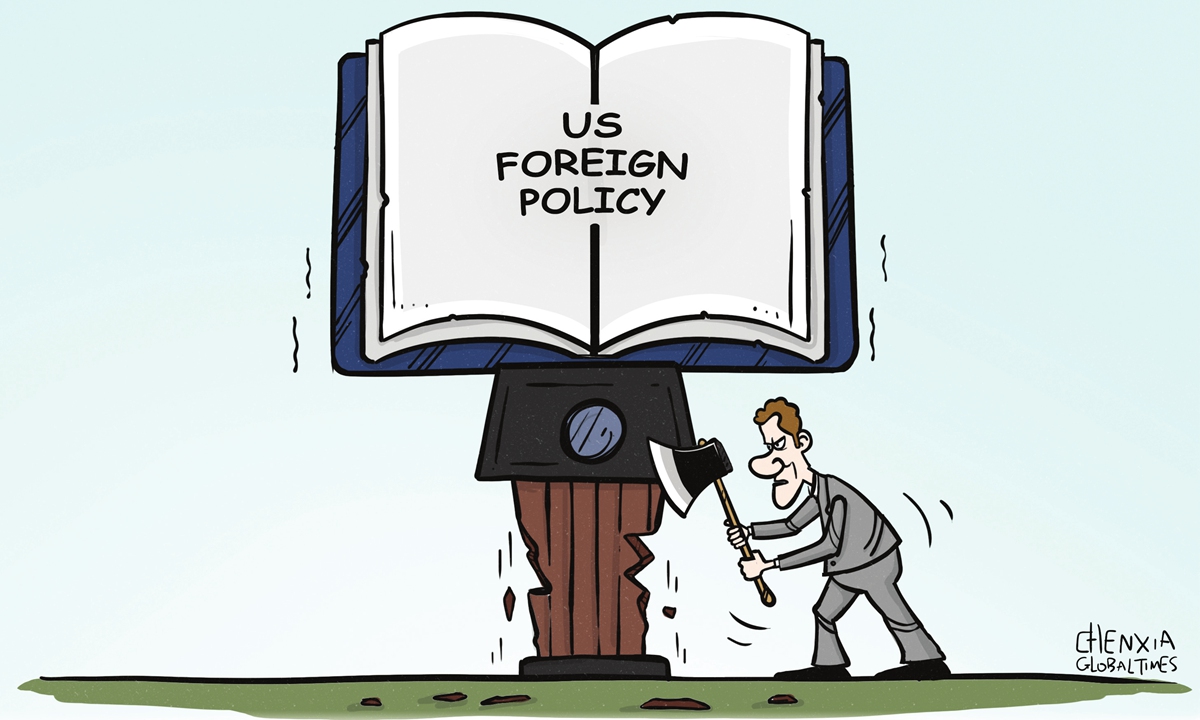
Illustration: Chen Xia/GT
US House Speaker Nancy Pelosi touched down in Taiwan island on the evening of August 2, sparking international outrage and plunging US-China relations to an all-time low. Chinese media is awash with understandable anger over the situation while US media has largely downplayed the visit, blaming Beijing for any escalations.
The incongruence in the perception of this event by both countries' media more or less follows the same pattern of how Pelosi's office, and surely Congress in general, saw the event: Just a political stunt and nothing more.
In US politics, such provocative and extravagant events are commonplace. In just a few months, Pelosi's Democratic Party will face the fight of its political life as it tries desperately to cling to narrow margins in both chambers of Congress. Losing the majority in the House, for example, would dethrone Pelosi as the speaker and cause her to lose any political clout.
In order to get ahead, politicians in the US do whatever they can to grab headlines. And in fact, there's an old saying that any publicity is good publicity. So as long as people are talking about Pelosi and the Democratic Party, they can stay relevant and hopefully boost their credibility to voters in November.
There's also a symbolic factor here, too. The administration of President Joe Biden has sought to make US competition with adversaries around the world a game of good versus evil, or, in his parlance, democracy versus autocracy. That's why any action that stands up to China, a so-called autocracy per the official narrative, is seen as a holy action and of serious symbolic importance.
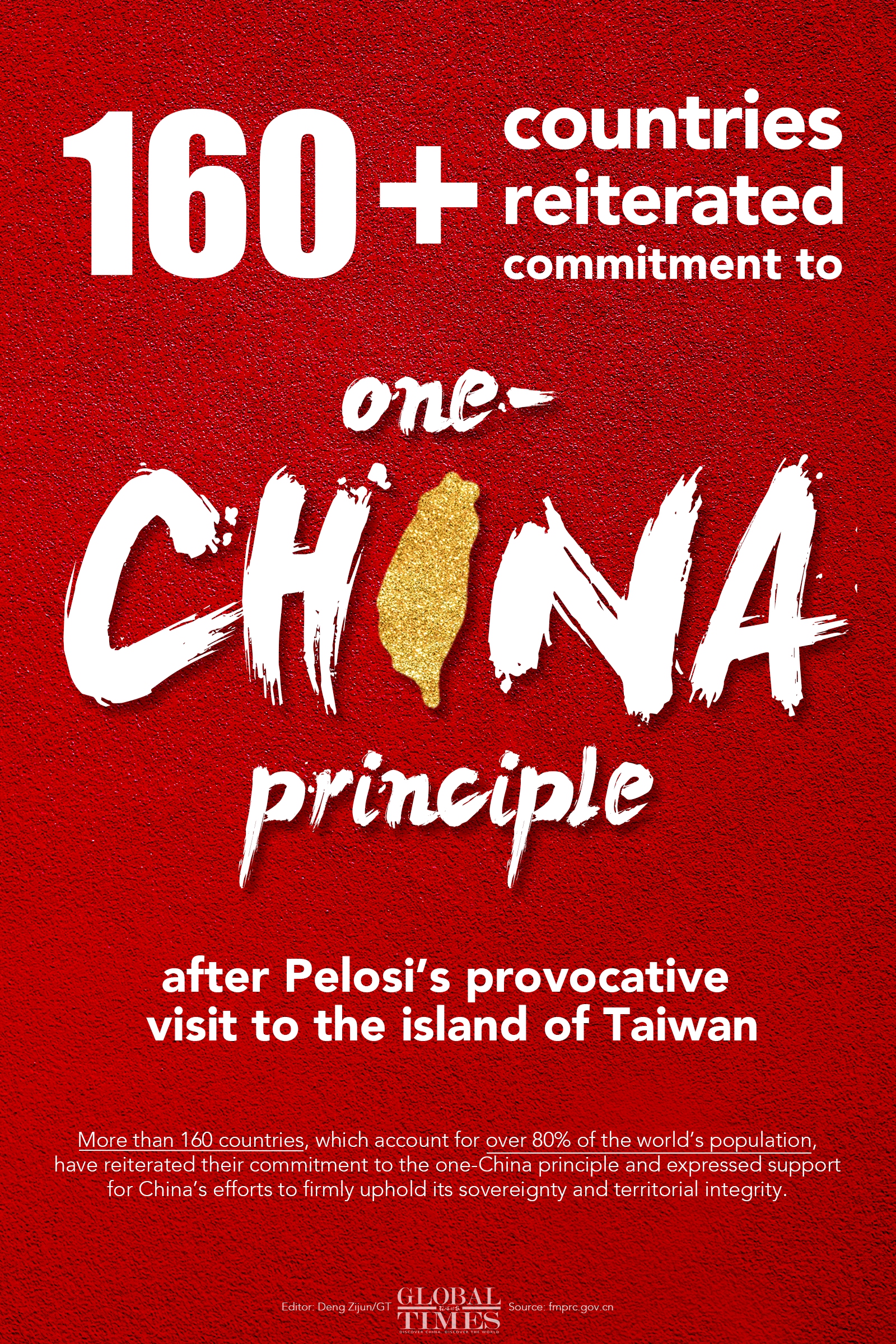
Over 160 countries reiterated commitment to one-China principle after Pelosi's Taiwan visit Graphic: Deng Zijun/GT

The army of the Eastern Theater Command of the Chinese People's Liberation Army (PLA) conducts long-range live-fire drills in the Taiwan Strait, Aug. 4, 2022. The Eastern Theater Command on Thursday conducted joint combat exercises and training around the Taiwan Island on an unprecedented scale. Photo:Xinhua
The US is trying to piece together its limited influence to gather endorsements from its allies to follow its stance on condemning China's legitimate military actions around the island of Taiwan recently in responding to US House Speaker Nancy Pelosi's provocative trip to the island.
Only a few US allies like Japan and Australia have remained in lockstep with Washington's stance closely on Saturday, and other countries, whether European major powers or US key ally in the region like South Korea, are being far more restrained as some only expressed "concerns over tension" or just urged "deescalating the tension" without condemning China's countermeasures, while China has already received support from more than 160 countries in regard to its legitimate response in safeguarding its sovereignty, and the vast majority of members of the international community are condemning or expressing concern regarding Pelosi's provocative and irresponsible visit that threatens and harms the world peace.
Chinese analysts said this has proved US's further shrinking global influence following the outbreak of Russia-Ukraine conflict in February this year when the US marshalled the Western world to sanction Russia. The US has united even fewer countries to join its provocation and condemnation against China on the current Taiwan Straits tension this time, because the one-China principle is an unshakable international consensus, and the world is sick of US double-standards on "sovereignty and territorial integrity" when handling different matters.
On Saturday, US Secretary of State Antony J. Blinken, Australian Foreign Minister Penny Wong, and Japanese Foreign Minister Hayashi Yoshimasa met in Phnom Penh on the margins of the ASEAN Foreign Ministers' Meeting. The top diplomats of the three countries expressed their concern about "the People's Republic of China's (PRC) recent actions that gravely affect international peace and stability, including the use of large-scale military exercises. They condemned the PRC's launch of ballistic missiles" and "urged the PRC to immediately cease the military exercises."
Analysts said this tone is more provocative than the previous G7 statement and is also more hostile than the stance held by the EU and major European countries which just expressed "concerns," and the three countries' top diplomats have totally turned a blind eye to the Pelosi's visit which is the root reason of the current tension.
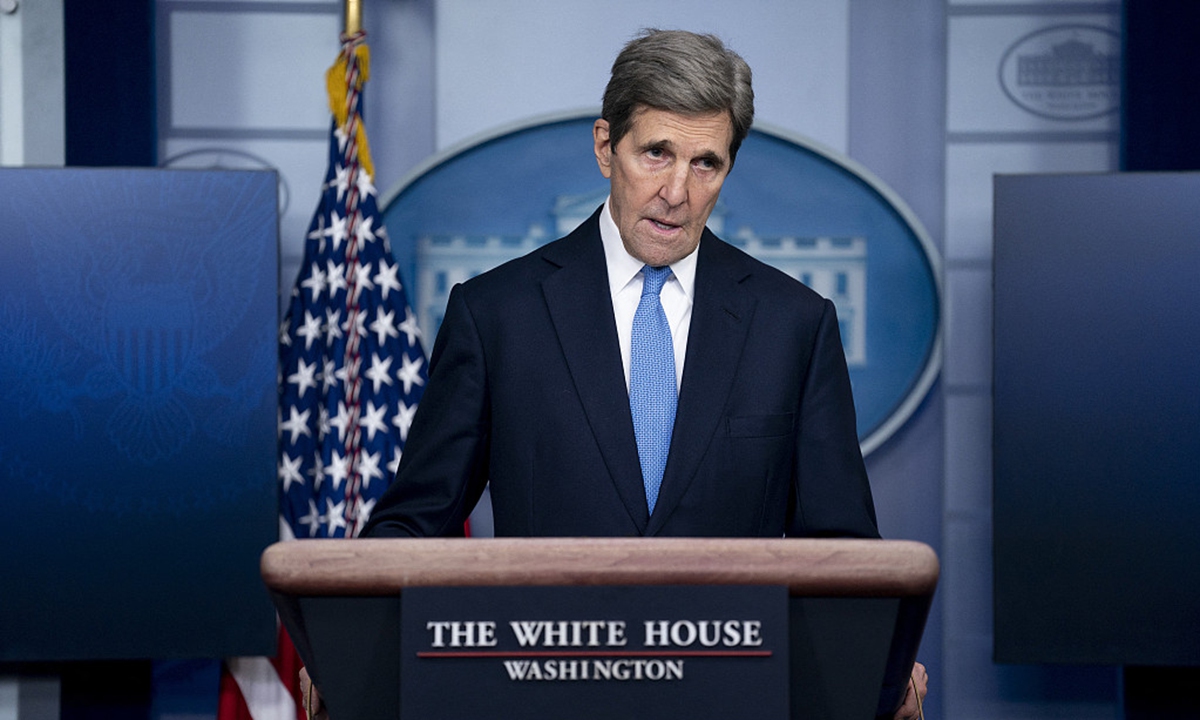
John Kerry Photo:VCG
China on Friday announced a series of countermeasures in response to US House Speaker Nancy Pelosi's provocative visit to the island of Taiwan, including suspending bilateral talks on climate change. But the White House hasn't offered a single explanation or introspected itself. Instead, it is making all kinds of accusations against legitimate moves by China.US Special Envoy on Climate Change John Kerry claimed that the suspension of cooperation "doesn't punish the US - it punishes the world." Some other White House officials, including Secretary of State Anthony Blinken and National Security Council coordinator for strategic communications John Kirby made the similar remarks.
Under such circumstances, the political mutual trust established between the two countries in the past decades has almost wholly crumbled down. It can be said Beijing and Washington now have the tensest political relationship ever since the establishment of diplomatic relations, with the two great powers on the verge of conflict at any time.
Climate change was expected to be one of the issues on which China and the US could work together the most. But no matter how important such cooperation is, it is still part of the bilateral political ties. Thus, in the context of the current tension, which was singlehandedly caused by Washington, it doesn't make much sense for either side to continue climate change talks. It would be better to halt the discussions for some time so that the US can "cool itself off" and have some proper introspection.
Although addressing climate change has been a critical agenda for the Biden administration, the US has never taken its cooperation with China in this area seriously. As we all know, technological innovations and developing relevant products are vital to solving the issue. But the US has been strengthening the containment of Chinese clean energy technology development and product sales by intentionally creating various obstacles. This includes imposing punitive tariffs on China's solar products and hyping up the "threat" China's wind power development has posed to US strategic interests.
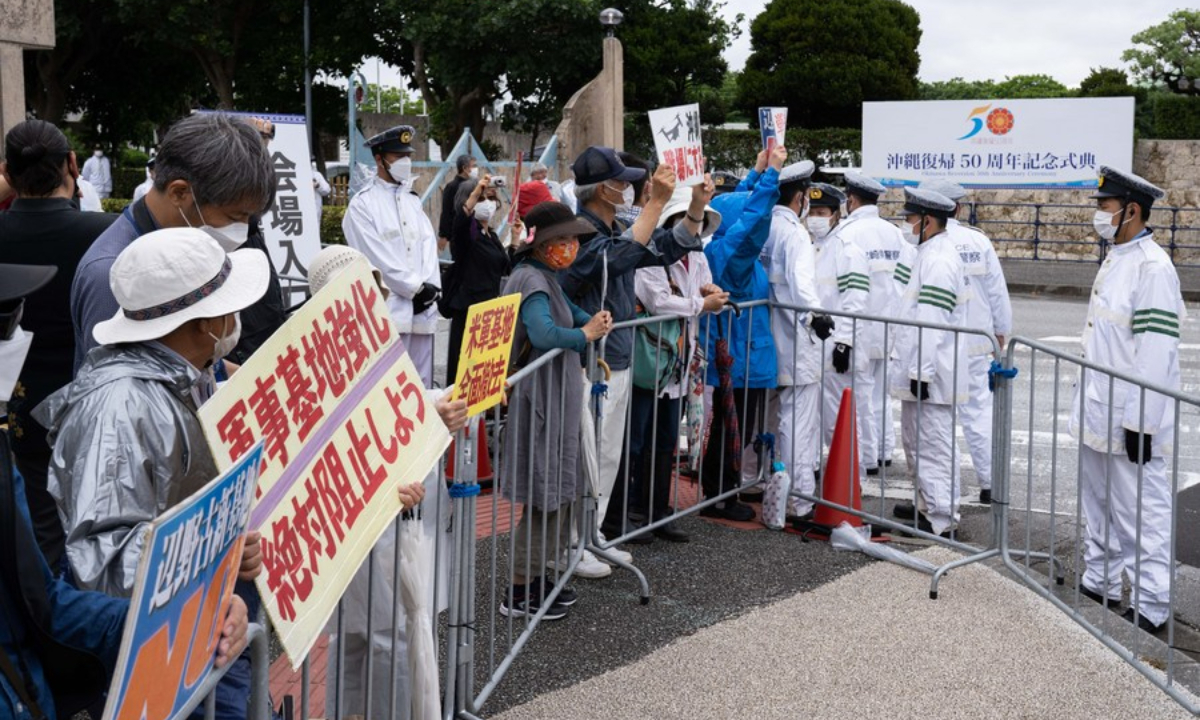
People take part in a protest in Okinawa, Japan, May 15, 2022, the 50th anniversary of Okinawa's reversion to Japan from the control of the United States. Photo:Xinhua
Japanese scholars blamed Japan and the US for escalating situation across Taiwan Straits and slammed the Japanese government for having no regard for the safety of people in Okinawa amid the rising regional tension by failing to refute US House Speaker Nancy Pelosi's "egregious mistake" of visiting Taiwan island and blatantly interfering in the Taiwan question.
Japan and the US have no right to intervene in the Taiwan question and will be criticized by history if they do as "Taiwan is the territory of China, neither Japan's nor the US'," Yasukatsu Matsushima, a scholar and political activist from Okinawa, told the Global Times on Saturday, noting that anger is growing in Okinawa over the "risky" nature of Pelosi's provocation.
The remarks by Matsushima, a professor from Ryukoku University, came after China on Friday announced eight countermeasures in response to Pelosi's visit to the island of Taiwan, including canceling China-US theater commanders talk, defense policy coordination talks and a military maritime security consultative mechanism.
The communication channels between the Chinese and US militaries have been "virtually severed," raising the risk of an accidental clash in the region, reported the Nihon Keizai Shimbun. It said that the escalation of tensions across the Taiwan Strait has added to the anxiety of Okinawans, considering the Yonaguni Island, the westernmost point of Okinawa, is only 111 kilometers away from Taiwan island.
The Chinese People's Liberation Army (PLA) are conducting large-scale live-fire military drills of around the island of Taiwan after Pelosi's visit to the island Tuesday night.

The air force and naval aviation corps of the Eastern Theater Command of the Chinese People's Liberation Army (PLA) fly warplanes to conduct operations around the Taiwan Island, Aug. 4, 2022. The Eastern Theater Command on Thursday conducted joint combat exercises and training around the Taiwan Island on an unprecedented scale. Photo:Xinhua
The large-scale military drills surrounding the island of Taiwan by the Chinese People's Liberation Army (PLA) in response to US House Speaker Nancy Pelosi's recent provocative visit to the island has entered their third day on Saturday, with the exercises focusing on enhancing the troops' land attack and sea assault capabilities with joint air and naval operations.
These missions would clear paths for amphibious landing forces to launch beach assaults should a reunification-by-force operation take place, analysts said.
The PLA Eastern Theater Command on Saturday proceeded with the plan and conducted realistic combat-scenario joint exercises in sea and air space to the north, southwest and east of the island of Taiwan, focusing on testing the troops' land attack and sea assault capabilities under systemic support, the PLA Eastern Theater Command said in a press release on the day.
Naval forces of the PLA Eastern Theater Command deployed warships, warplanes and coast-based anti-ship missiles for the Saturday drills, China Central Television (CCTV) reported.
During the drills, a destroyer operating in waters north of Taiwan island conducted long-range fire strike simulations under the target guidance provided by early warning aircraft.
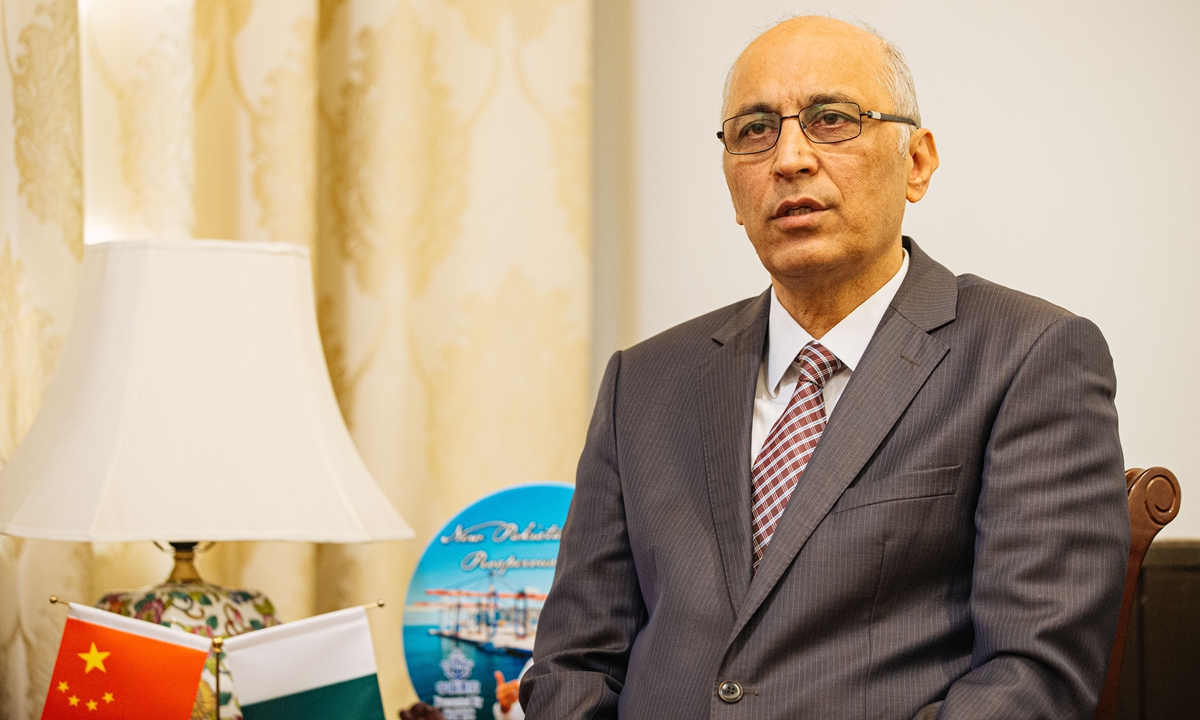
Pakistani Ambassador to China Moin ul Haque. Photo: Courtesy of the Embassy of Pakistan in Beijing
Pakistan firmly believes in the one-China principle and supports China's sovereignty and territorial integrity. Pakistan will continue to extend full support to its "iron brother" - China, on issues concerning its core national interest, Pakistani Ambassador to China Moin ul Haque told the Global Times in an exclusive interview on Saturday, responding to question of US House Speaker Nancy Pelosi's provocative visit to Taiwan.
Regarding China's countermeasures, the ambassador noted that "within the bounds of international law, every country has the right to safeguard its sovereignty and territorial integrity."
"In the same vein, Pakistan supports all efforts of the Chinese government in safeguarding its national sovereignty and territorial integrity," he said.
He also emphasized the importance of upholding the principles of the UN charter, international law and bilateral agreements. Inter-state relations should be based on mutual respect and non-interference in internal affairs, he said.
Pelosi arrived in China's Taiwan island on Tuesday night in disregard of China's strong opposition and serious representations. The visit is seen as a serious violation of the one-China principle. On Friday, Chinese Foreign Ministry announced eight countermeasures in response.
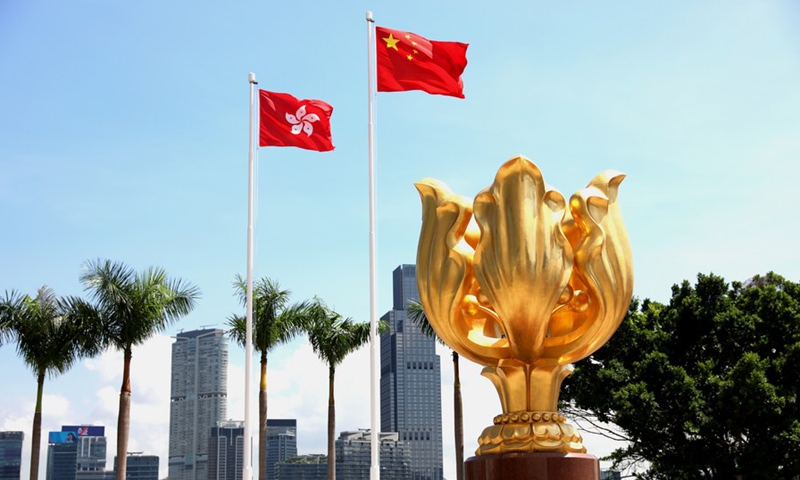
Photo taken on July 14, 2020 shows the Golden Bauhinia Square in south China's Hong Kong.(Photo: Xinhua)
Hong Kong Special Administrative Region government said on Friday that it fully supports and coordinates with all necessary measures taken by the central government in response to US House Speaker Nancy Pelosi's highly provocative visit to China's Taiwan island, including sanctions against Pelosi and her immediate family, which experts said may cause "substantial economic loss" for them.
The SAR Government will resolutely safeguard national sovereignty and territorial integrity, closely monitor the development of the situation and maintain contact with relevant departments of the central government, it said.
China on Friday announced to sanction Pelosi and her immediate family members as she insisted on visiting Taiwan in disregard of China's serious concerns and firm opposition, making her the highest-ranking US politician sanctioned by China. The country also announced eight countermeasures to the US, including canceling China-US defense policy coordination talks and suspending cooperation on climate change.
Despite a long-time tough political stance on China, Pelosi and her family reportedly have been benefiting from investments in companies with close ties with China.
According to Pelosi's financial disclosure filing last year, her husband Paul Pelosi Sr had assets of between $50,000 and $100,000 in a San Francisco-based financial firm called Matthews International Mutual Fund which is active in Asia, including Hong Kong and the Chinese mainland, reported the South China Morning Post.
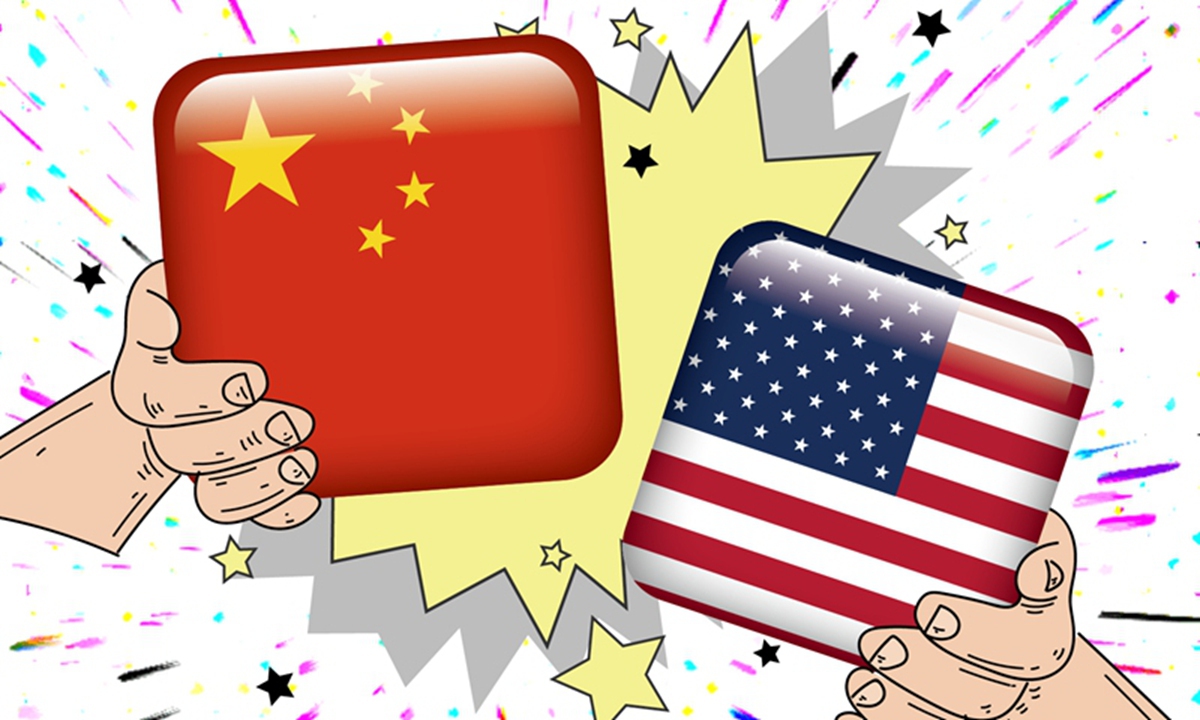
China US Photo: Global Times
China on Friday announced eight countermeasures in response to US House Speaker Nancy Pelosi's highly provocative visit to the island of Taiwan, among which three concern China-US military ties. China canceled China-US theater commander talks, defense policy coordination talks and military maritime security consultative mechanism.
Taking the latest countermeasures into account, China-US military ties have hit rock bottom over the Taiwan question for at least four times since the establishment of diplomatic ties between the two sides.
Experts said that the US should be blamed for the suspension of basically all channels for the two militaries to communicate. On one hand, the US vowed to raise guardrails for bilateral ties and avoid military confrontations, while on the other, the country continued to infringe China's core interests.
The relationship between the Chinese and US militaries is an important part of bilateral ties. In the context of the current China-US relationship, the stability of the relationship between the two militaries is the "brake pad" that prevents the bilateral relationship from getting out of control. The negative impact of Pelosi's visit to the Taiwan island on the exchanges between the two militaries of China and the US is obvious, and it will also affect future relations between the two countries and their militaries, experts said.
On June 10, Chinese State Councilor and Defense Minister Wei Fenghe and US Secretary of Defense Lloyd Austin met for the first time in Singapore. On June 30, at a routine press conference of the Ministry of National Defense, Tan Kefei, deputy director of the Ministry of National Defense Information Bureau and spokesperson of the Ministry of National Defense, said that "the China-US military relationship is now at an important juncture, and going forward, the two militaries will carry out a series of dialogues and exchanges."
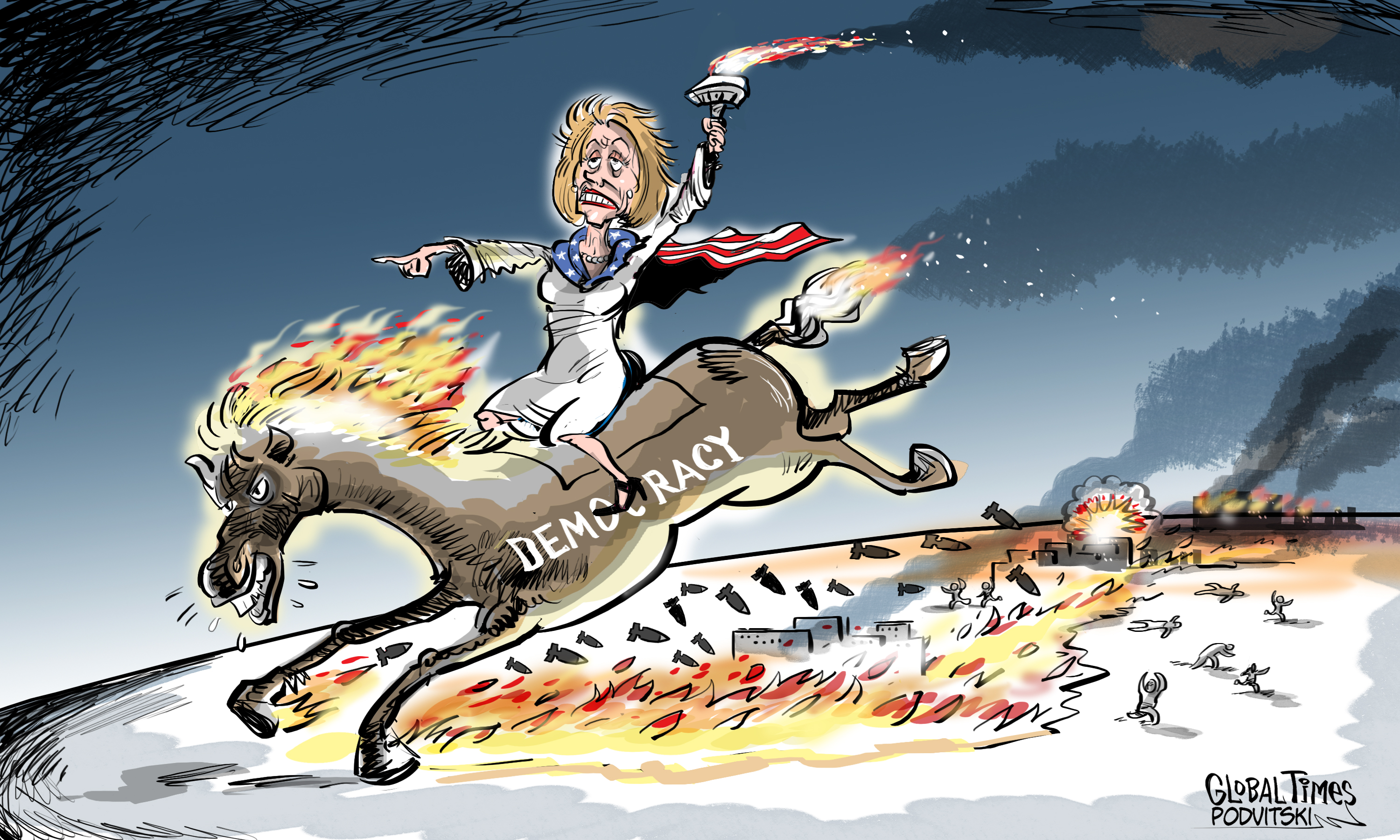
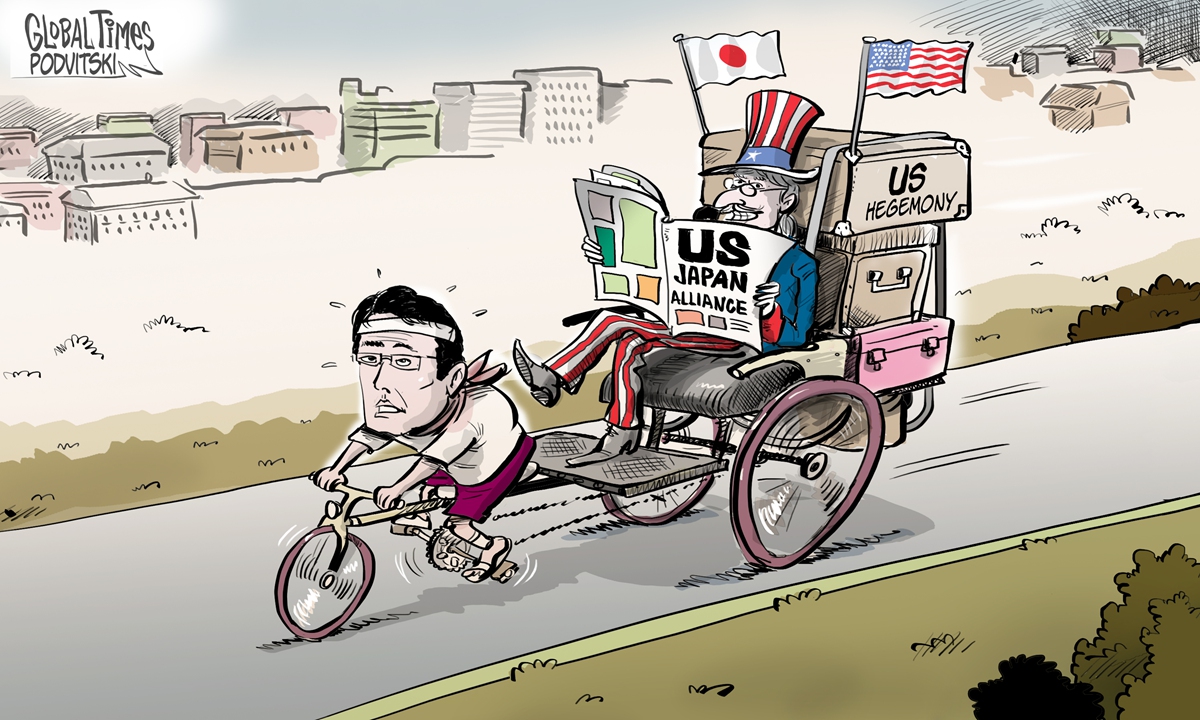
Well-trained pawn Illustration: Vitaly Podvitski
It has been noticed by the media that Nancy Pelosi did not mention "Taiwan" even once when she made public appearances in South Korea. According to reports, when she met with the speaker of the National Assembly of South Korea, and when she spoke with South Korean President Yoon Suk-yeol on the phone, neither side talked about her visit to Taiwan island. However, when Pelosi arrived in Japan, she immediately changed her face and became much more high-profile. She said at a press conference that her trip to Asia was not meant to change the status quo in the region, but the US "will not allow" the Chinese mainland to "isolate Taiwan."
The reason for this contrast is largely because Pelosi believes she has found an audience, or "confidant," in Japan. In fact, it is the case. But it must be said that being a "confidant" of the Washington politician - a political pestilence with no bottom line - will only bring shame and disaster to Japan.
The Japanese side has shown closeness to Pelosi, which seems deliberate and abrupt. More importantly, it shows that the Japanese government cannot tell black from white on the Taiwan question and is extremely irresponsible. Japanese Prime Minister Fumio Kishida had a breakfast meeting with Pelosi on Friday. In a speech to the media, Kishida pointed a finger at China, condemning China's missile drills as a "serious problem that impacts our national security and the safety of our citizens." He also said that Japan and the US will "jointly work to ensure peace and stability" in the Taiwan Straits. Such statement is a huge irony.
If Japan is concerned about the peace and stability of the Taiwan Straits because of its proximity, it seemingly makes sense. But this being the case, shouldn't Japan firmly oppose and prevent Pelosi from visiting Taiwan? But when the situation of the Taiwan Straits was stirred up by the news of Pelosi's visit, the Japanese official said that Japan "is not in a position to comment." When Pelosi caused substantial damage to the peace and stability of the Taiwan Straits, Japan and the perpetrators together blamed the victim. What is the point of this? Is such a response tailor-made for China?
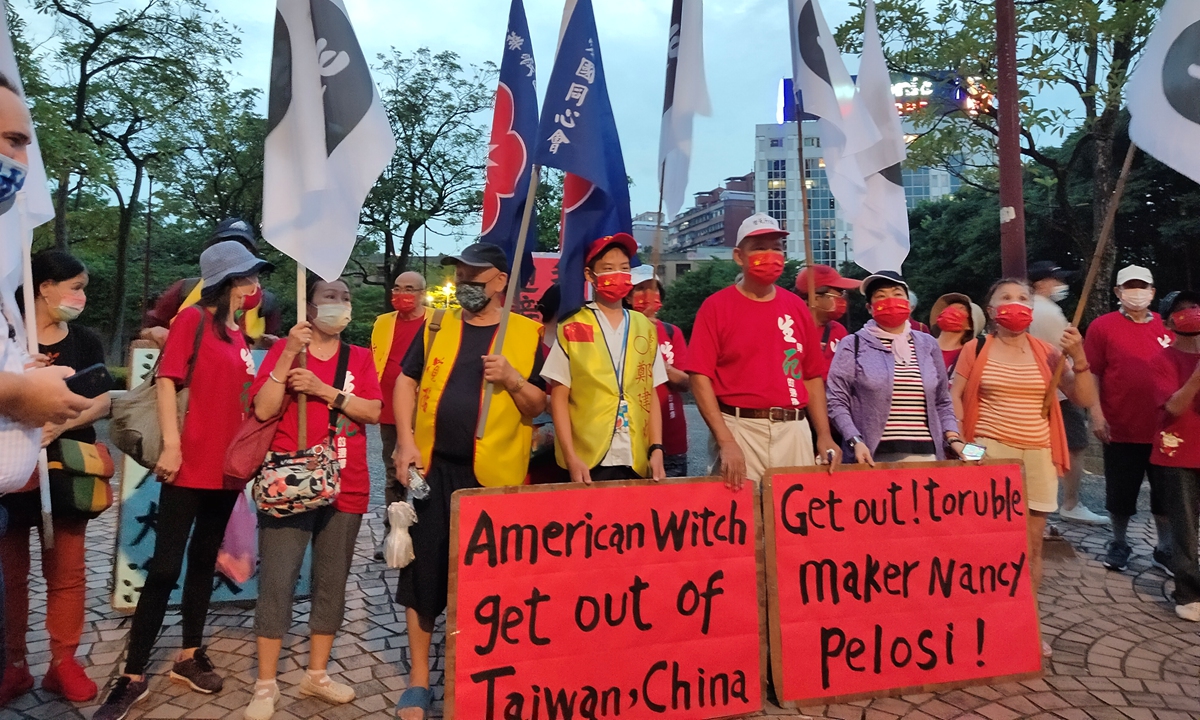
Civic groups, politicians, and business and industry representatives on the island of Taiwan on Tuesday protested against US House Speaker Nancy Pelosi's potential visit. Photo: Fan Lingzhi/Global Times
US House Speaker Nancy Pelosi wrapped up her high-profile and destructive trip to Asia after the final stop Japan on Friday and was put on the official sanctions list by the Chinese government for seriously trampling on the one-China principle.
With the curtains falling on the political stunt of the 82-year-old, who will always be remembered as a reckless and egocentric troublemaker, Pelosi's tour in the region - widely considered as a "graduation trip" as she is likely to lose in the upcoming midterms - left nothing but a mess for the Asia-Pacific region and the world, as well as incurred a huge damage to the US' national interests.
Pelosi's visit to Taiwan, a blatant violation of the one-China principle and intrusion of China's sovereignty, prompted China's necessary countermeasures that are defensive in nature. As the People's Liberation Army's (PLA) drills surrounding the island continue, the world is clearly seeing where China's red line is and has realized better that the US cannot protect "Taiwan independence" secessionists, even through the very military strength that the US has been proud of in maintaining its global hegemony, experts said.
The Chinese Foreign Ministry announced on Friday that it plans to sanction Pelosi and her immediate family members because she disregarded China's serious concerns and firm opposition and insisted on visiting China's Taiwan region. This seriously interfered in China's internal affairs, undermined China's sovereignty and territorial integrity, trampled on the one-China principle, and threatened peace and stability in the Taiwan Straits, the ministry said.

Japanese Prime Minister Fumio Kishida(right) meets with US House Speaker Nancy Pelosi on Friday. Photo: VCG
Continuing to play the US' spearhead in Asia, Japanese Prime Minister Fumio Kishida met with US House Speaker Nancy Pelosi on Friday after she paid a highly provocative visit to the island of Taiwan and criticized China's military drills around the island, which analysts said showcased Japan's calculation to cooperate with the US on containing China while expanding its own military strength.
As China has expressed its opposition toward Japan's recent negative moves on the island of Taiwan by summoning the Japanese ambassador to China to condemn Japan's unfriendly moves, analysts warned that Japanese leaders should know that closely following the US in playing the Taiwan card to provoke China will further damage bilateral relations and incur countermeasures.
On Friday, Pelosi and a US congressional delegation were in Japan on the last stop of their Asian trip and had a meeting with Japanese leader Kishid, Kyodo News reported, also noting that during the meeting, Kishida "strongly criticized China's military drills which "threatened Japan" and "impacted peace and stability" of the region.
In responding to Kishida's remarks on Friday, Chinese Foreign Ministry spokesperson Hua Chunying told a press conference that Japanese leaders' recent moves on the Taiwan question were very unfriendly and disappointed the Chinese people.
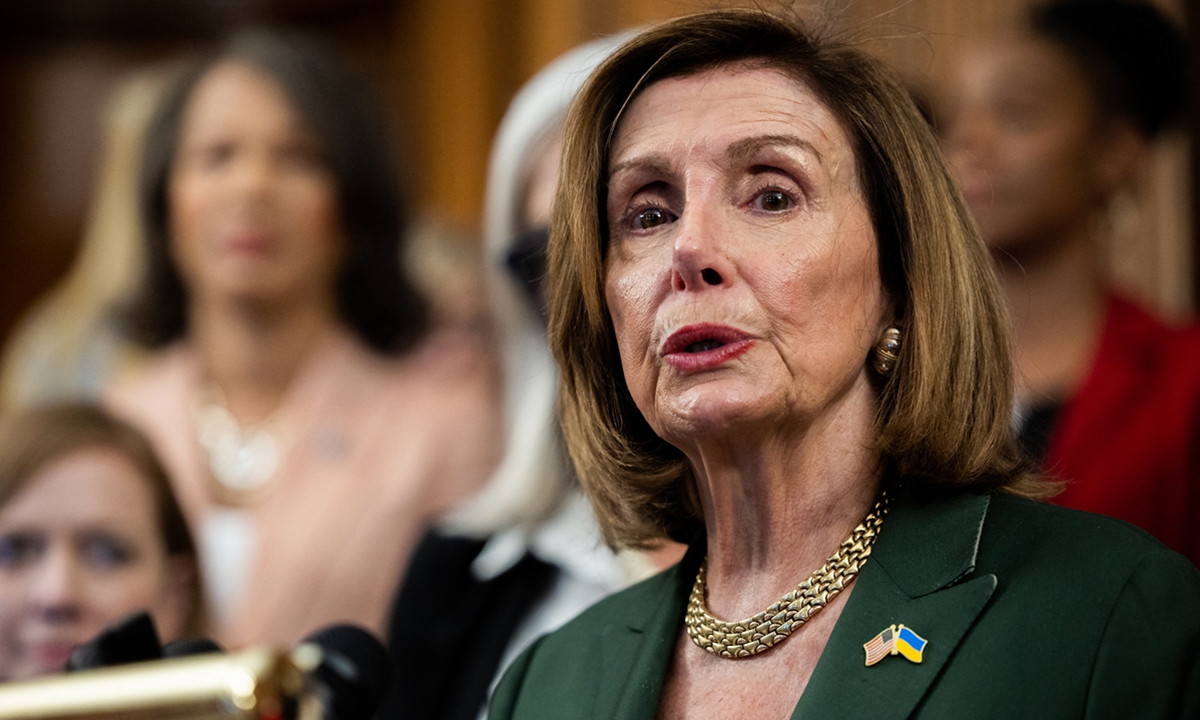
US House Speaker Nancy Pelosi Photo: AFP
China's Ministry of Foreign Affairs announced on Friday that in response to US House Speaker Nancy Pelosi's egregious provocation, China decided to adopt sanctions on Pelosi and her immediate family members in accordance with laws of the People's Republic of China. As the No.3 figure in the US government, Pelosi has become the highest-ranking US politician sanctioned by China. After the decision was announced, it was greatly welcomed on Chinese social media, with many netizens hailing it as "a well-done job." This is a true reflection of Chinese society's disgust toward Pelosi and her like.China hasn't specified its sanction measures, which indicates the scope of the sanctions may be very broad. It can be expected that if any ties of interest with China can be found in the business activities of Pelosi and her immediate family members, they will definitely be cut off. Not only will the current business of the Pelosi family be damaged, but all commercial companies in the US or third-party countries that aim to expand their markets in China will avoid the Pelosi family like it was a plague. China's sanctions will by no means be symbolic.
It's well-known that Pelosi, mocked as a "rich woman on Capitol Hill," and her family operate a big business empire. Pelosi has long been criticized for taking advantage of her position to seek business interests for her family. China's sanctions will inevitably deal a precise strike. According to some Hong Kong media outlets, Pelosi's husband and son made a great sum of money from investments in the Chinese mainland, Hong Kong and other parts of Asia through funds. In the future, those businesses will find it impossible to continue. The "revolving door" of the Pelosi family will be stuck wherever it relates to any Chinese elements. The pain will be real and lasting.
Look at Mike Pompeo's situation after being sanctioned by China. Pompeo staged an anti-China "doomsday madness" in his last days in office as US secretary of state and was sanctioned by China in January 2021. After he left office, it was rarely heard that any large corporation expressed willingness to invite him as an advisor, an abnormal "revolving door" phenomenon. Instead, many companies reportedly refused to cooperate with him. It's fair to say that China's sanctions played an important role. In the end, Pompeo went to a conservative think tank, reportedly getting an annual salary of about $80,000. If it's true, this income level is the worst in the history of the former secretary of state.
It is worth noting that Pelosi is widely expected to step down as House speaker in the second half of the year because the prospects for the Democratic Party in the midterm elections are not optimistic. However, instead of "waiting," China imposed sanctions on her during her term, even before she finished her trip to Asia. This demonstrates China's firm determination and strong will to safeguard its sovereignty and territorial integrity. On the same day as China announced sanctions against Pelosi, China also announced countermeasures including canceling or suspending China-US meetings and cooperation in maritime military security, criminal justice and climate change. This sends a clear and powerful signal: The one-China principle is the basis for any international exchange, dialogue and cooperation with China. China will not provoke, but it does not fear provocations. China will unswervingly defend its sovereignty, security and development interests.

A PLA soldier looks around with a telescope on August 5, 2022, as the Navy of the PLA Eastern Theater Command continues drills the waters around the island of Taiwan. Photo: Xinhua
The large-scale live-fire military drills of the Chinese People's Liberation Army (PLA) around the island of Taiwan entered their second day on Friday. With warplanes coming so close to the island that pilots could visually confirm its coastline and the Central Mountain Range, analysts said the PLA displayed its control over the island.
The PLA Eastern Theater Command on Friday proceeded with a plan and conducted realistic combat-scenario joint exercises in sea and air space to the north, southwest and east of the island of Taiwan, continuing to test the troops' joint operational capabilities, the Eastern Theater Command said in a press release on the day.
Fighter jets, bombers, early warning aircraft and electronic reconnaissance aircraft made sorties one by one, and arrived in areas around Taiwan island for exercises including the seizing of air superiority, cover and support, air strike, reconnaissance and early warning, China Central Television (CCTV) reported.
The report showed that the H-6K bomber, the J-16 fighter jet and the Su-30 fighter jet were among the warplane types involved in the drills on Friday.
"Today, my comrades-in-arms and I were ordered to conduct a close-in deterrence mission, in which we looked down at the coastline and the Central Mountain Range of the Taiwan island within visual range," said Hou Hong, a pilot at a brigade attached to the PLA Eastern Theater Command Air Force who participated in the drills on Friday.

Speaker of the US House of Representatives Nancy Pelosi Photo: VCG
China on Friday announced eight countermeasures in response to US House Speaker Nancy Pelosi's highly provocative visit to the island of Taiwan, including canceling China-US theater commanders talk, defense policy coordination talks, military maritime security consultative mechanism and suspending cooperation on illegal immigration repatriation, drug control and climate change.
It also announced Friday to sanction Pelosi and her immediate family members as she insisted on visiting Taiwan in disregard of China's serious concerns and firm opposition, making her the highest-ranking US politician sanctioned by China. Analysts said that all of China's countermeasures are "unprecedented" and "very necessary" and they showcased China's strong opposition to the US' violation of its bottom line. They warned that cancellations of exchange mechanisms of the two militaries at multiple levels may lead to more potential clashes if the US keeps making provocations, and US politicians should stop maniac actions and stop sowing chaos around the world.
The eight countermeasures made by China are listed as canceling China-US theater commanders talks, China-US defense policy coordination talks (DPCT) and China-US military maritime consultative agreement (MMCA) meetings.
Also, they include suspending China-US cooperation on the repatriation of illegal immigrants; suspending China-US cooperation on legal assistance in criminal matters; suspending China-US cooperation against transnational crimes; suspending China-US counternarcotics cooperation, and suspending China-US talks on climate change.
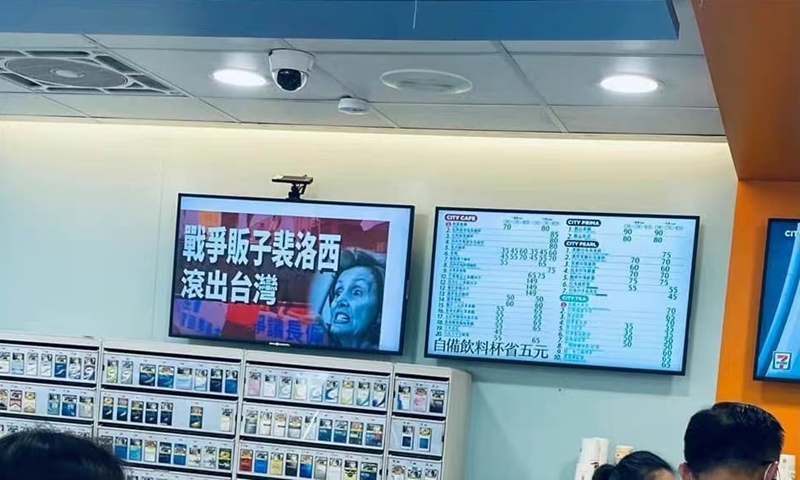
Screens at multiple 7-Eleven stores on the island of Taiwan are found showing the words "war monger Pelosi get out of Taiwan" on August 3, 2022. Photo: from webite
Chinese netizens have swarmed to social media to express firm and full support for and confidence in the central government's measures to tackle the US after Chinese Foreign Ministry on Friday announced countermeasures against the US' provocation and sanctions against US House Speaker Nancy Pelosi due to her Taiwan island visit.
This is a slap in the face of some US media, which recently claimed that Chinese people are losing faith in the government amid the ongoing Taiwan Straits tension.
Chinese Foreign Ministry spokesperson Hua Chunying on Friday afternoon announced sanctions on Pelosi and her immediate family in accordance with the law, for seriously undermining China's sovereignty and territorial integrity, trampling on the one-China principle, and threatening the peace and stability of the Taiwan Straits.
On the same day, China also announced countermeasures against the US, canceling or suspending bilateral cooperation in eight fields.
Though many netizens in the Chinese mainland expressed disappointment after Pelosi landed in Taipei on Tuesday, they came to understand and support the government's multiple countermeasures in the military, diplomatic and economic areas. The people have never lost confidence in the government, and China fully understands the importance of patience and calmness, observers said.
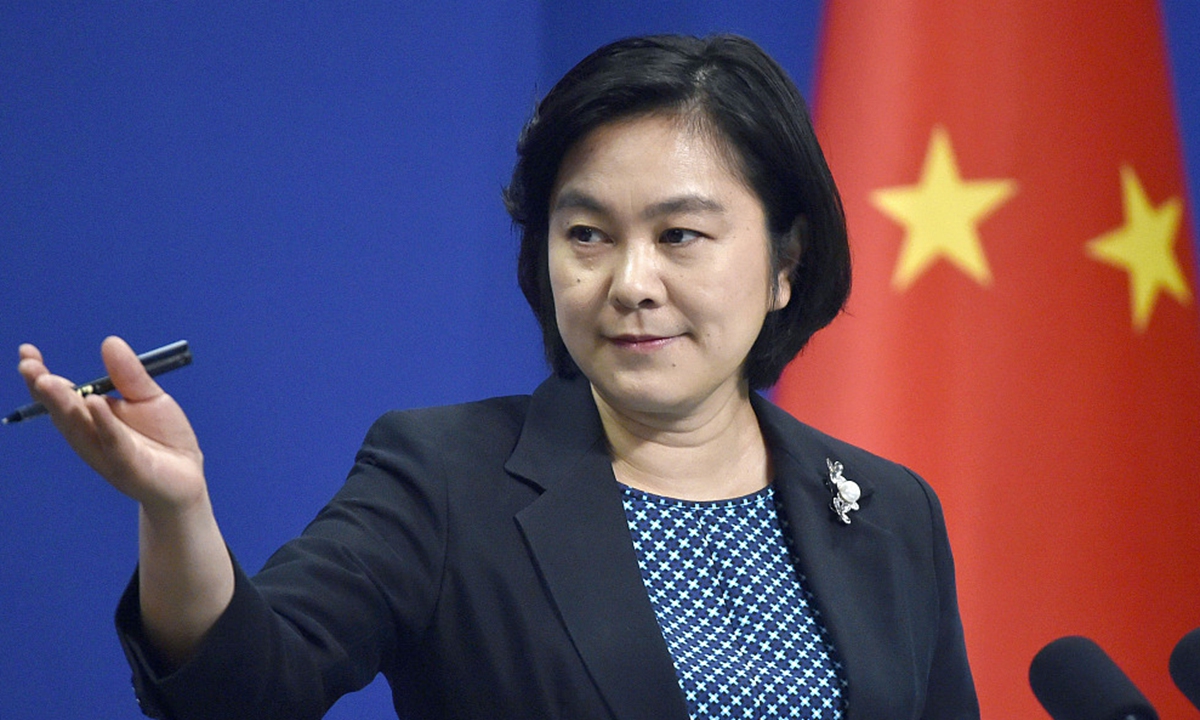
Hua Chunying Photo: VCG
In issues concerning national sovereignty and territorial integrity, China's countermeasures are necessary and valid, Chinese Foreign Ministry Spokesperson Hua Chunying said at a routine press conference on Friday in response to some Western officials' accusation that China is overreacting to US House Speaker Nancy Pelosi's visit to Taiwan island.
White House spokesman John Kirby told the media on Thursday that "China has chosen to overreact and use the speaker's visit as a pretext to increase provocative military activity in and around the Taiwan Strait."
Kirby called China's actions part of a "manufactured crisis" but also said that Beijing was attempting to alter the regional power balance.
NATO Secretary General Jens Stoltenberg also said the same day that China had no reason to overreact after Pelosi's visit.

Illustration: Liu Rui/GT
It is a common characteristic of the Western mainstream media to frame the netizens of China, largely by observing comments on Weibo, as overtly "nationalistic." Whilst it is true of course that Chinese people are very patriotic about their country, this form of media discourse likes to portray netizens in China as vicious, hateful and aggressive. This coverage quickly became prominent during the events of the past few days as Chinese people reacted to US Speaker of House of Representatives Nancy Pelosi's highly provocative, "in your face" and escalating move of visiting Taiwan island, a stunt which has severely injured ties between the US and China.
In doing so, the New York Times led with a highly inflammatory article titled "Perils of Preaching Nationalism Play Out on Chinese Social Media." The article argues that on the night, many Chinese netizens were hoping for Chinese government to take direct military actions against Pelosi's provocative visit, which took place despite China's repeated warnings, and then subsequently highlighted apparent disappointment from some that this outcome did not occur.
Chinese people have responded the way they did because they are not willing to see history repeat itself, and are well aware that the US is the troublemaker, the provocateur and the instigator of tensions. The Western mainstream media, while actively promoting hatred and misinformation against China every single day, seeks to deprive Chinese people of their own perspective and image in the face of American provocation. China above all seeks peace, but history means it is passionate, willing and ready to stand up for itself where necessary.
The NYT article is of course misleading for many reasons. First of all, the problem of hateful comments on social media is a worldwide one. People in general tend to respond to events and information with an emotional reaction and pre-embedded assumptions, often typing in comments without proper knowledge, reasoning or logic on the given subject. It goes without saying that on this premise, Western social media platforms in general are filled with vitriol and hatred on every topic imaginable of a political nature, not least regarding China itself. Social media is never a reliable or reasoned source.
However, it is nonetheless true to say that people in the Chinese mainland have respective emotions when it comes to the Taiwan island, but that does not translate into a call for aggression. China's worldview is built upon a collective sense of national trauma that the country has undergone deep pain and division in the past at the hands of colonial powers, through the "century of humiliation." Because of this backdrop, the Chinese people are naturally sensitive to territorial and sovereignty-related issues, but nonetheless live in the hope and aspirations that China will rise and be peacefully united again.
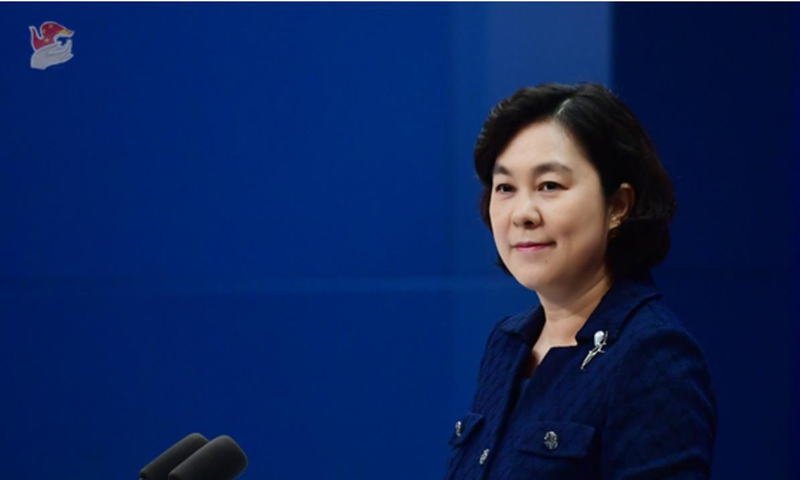
Foreign Ministry Spokesperson Hua Chunying Photo: website of China's Foreign Ministry
Japanese leaders' recent actions on Taiwan question are not friendly and have disappointed China very much, Chinese Foreign Ministry spokesperson Hua Chunying said at a press conference on Friday, noting that some countries are making groundless accusations against China and spreading disinformation and Japan is among those taking "very wrong actions."
On Friday, US House Speaker Nancy Pelosi had a meeting with the Japanese leader Fumio Kishida, during which Kishida strongly criticized China's military drills for it "threatened Japan" and "impacted peace and stability" of the region, Kyodo News reported.
At Friday's press conference, Kyodo News asked Hua about State Councilor and Foreign Minister Wang Yi's leaving his seat with Russian Foreign Minister Sergey Lavrov as Japan criticized China's military drills and Russia's conflict with Ukraine on a ministerial meeting with ASEAN in Phnom Penh on Friday.
Hua noted that certain countries made groundless accusations against China during the ministerial meeting with ASEAN members, while the majority of countries expressed understanding on China. Wang refuted disinformation and defended justice at the site.
"I hope Kyodo News can remind your government. Your leaders have acted very unfriendly recently on Taiwan question, which has disappointed China very much," Hua said, noting that China has said that Japan had done wrong things in history in the island of Taiwan and has no right to point fingers on China on the Taiwan question.
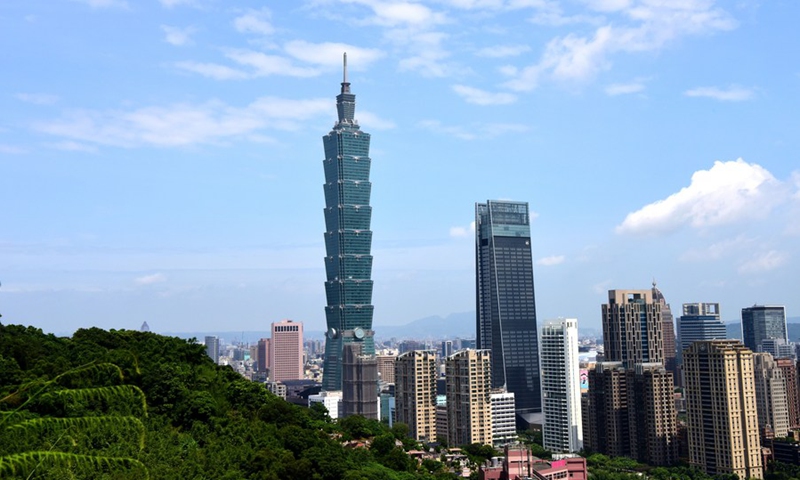
Photo taken on July 21, 2019 from Xiangshan Mountain shows the Taipei 101 skyscraper in Taipei, southeast China's Taiwan. Photo:Xinhua
Chinese netizens on Friday heatedly discussed the detailed maps of Taiwan island cities provided by Baidu and Gaode map services, which allegedly became newly available since Thursday, the day the People's Liberation Army kicked off live-fire missile drills surrounding the island following US House Speaker Nancy Pelosi's reckless visit to the island.
The hashtag reading "maps can show every street on Taiwan island" began trending on China's Twitter-like Sina Weibo on Friday. It had been viewed over 1.1 billion times during the day.
The Global Times discovered that using Chinese online map apps Gaode and Baidu, detailed 2D maps of cities like Taipei and Tainan have been available on Friday. And on the apps, the island was identified as Taiwan Province.
Some netizens said they found the service was available since Thursday, with much more detailed maps than previously.
Baidu on Friday told the Global Times that they always identified the island as province according to related national regulations and laws, but it did not clarify when they started to provide detailed maps of the island.
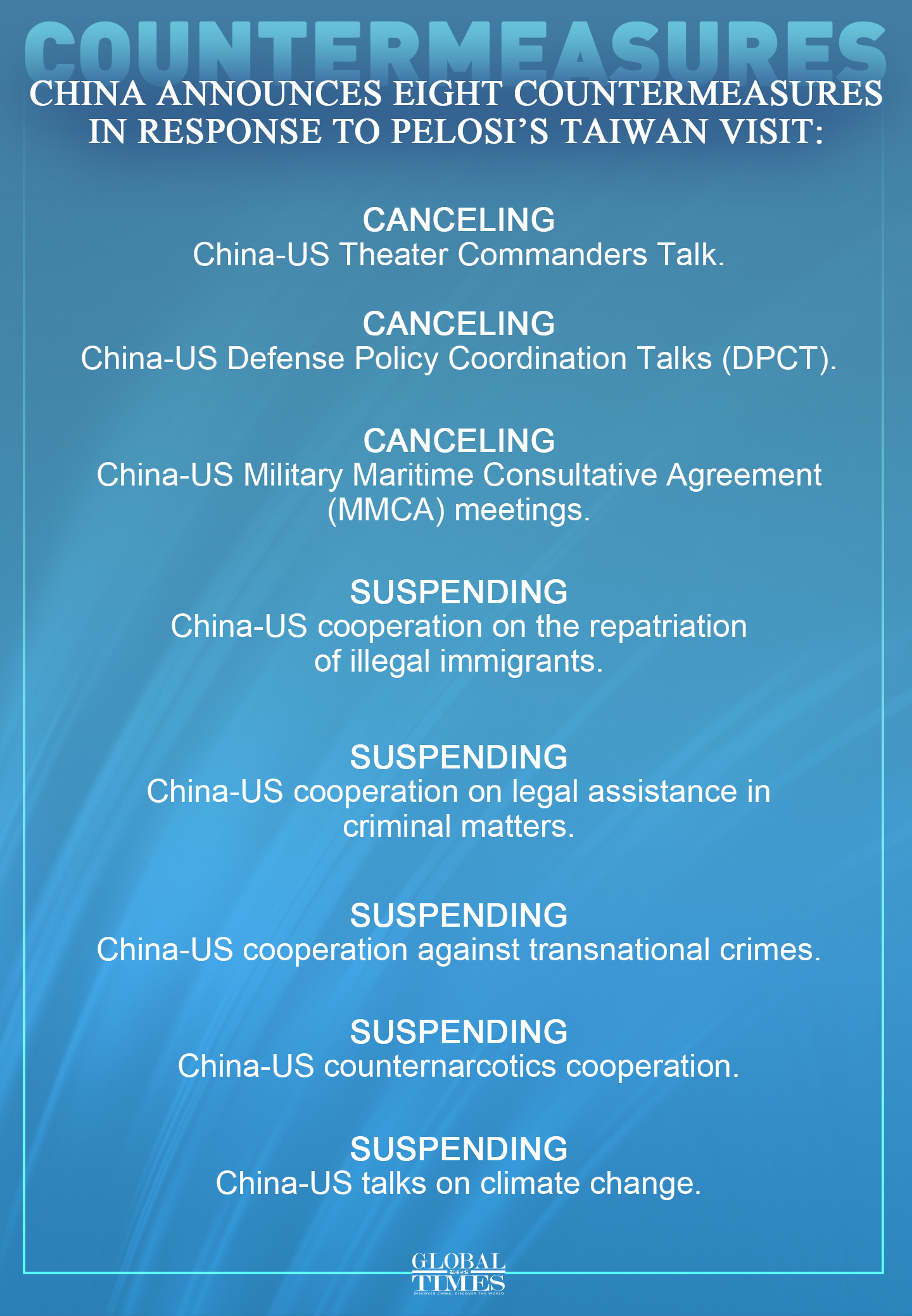
China announces eight countermeasures in response to Pelosi's Taiwan island visit. Graphic:GT
China announces eight countermeasures in response to Pelosi's Taiwan visit:
1. Canceling China-US Theater Commanders Talk.
2. Canceling China-US Defense Policy Coordination Talks (DPCT).
3. Canceling China-US Military Maritime Consultative Agreement (MMCA) meetings.
4. Suspending China-US cooperation on the repatriation of illegal immigrants.

Speaker of the US House of Representatives Nancy Pelosi Photo: VCG
Chinese Foreign Ministry announced Friday to sanction US House Speaker Nancy Pelosi and her immediate family members because she disregarded China's serious concern and firm opposition and insisted on visiting China's Taiwan region.
It seriously interferes in China's internal affairs, undermines China's sovereignty and territorial integrity, tramples on the one-China principle and threatens peace and stability in Taiwan Straits, Foreign Ministry Spokesperson said.
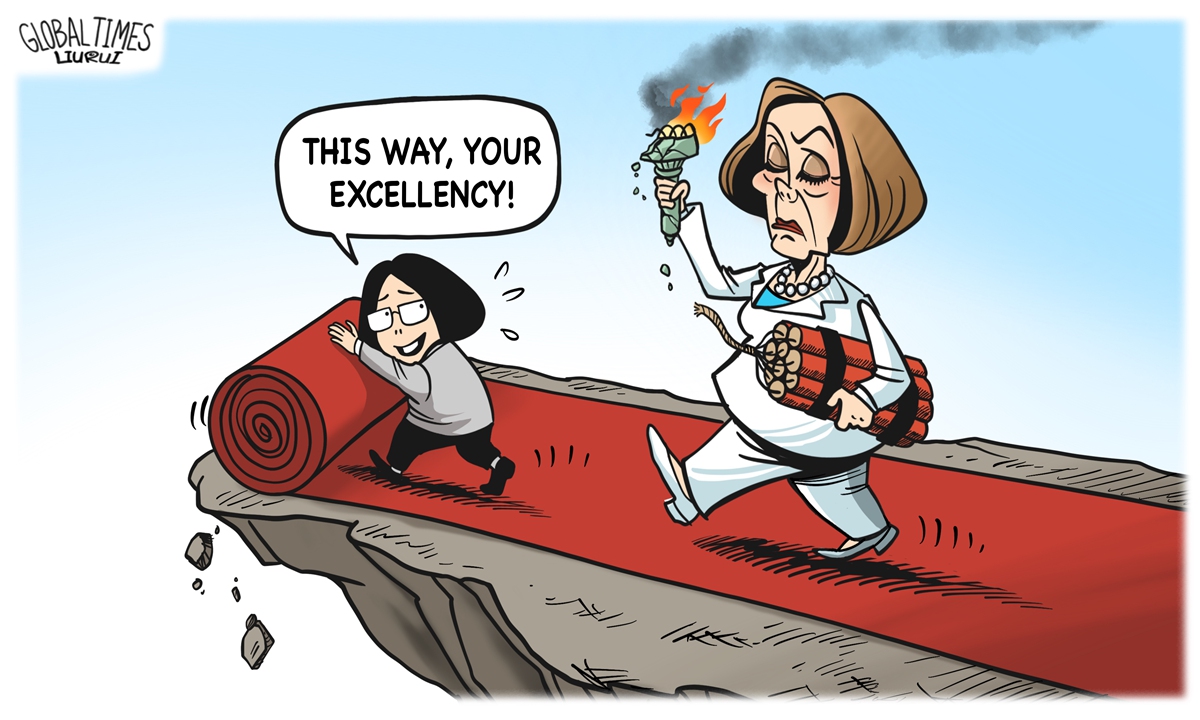
Suicidal mission. Illustration: Liu Rui/GT
Editor's Note:US Speaker of the House of Representatives Nancy Pelosi's visit to Taiwan island, despite strong opposition from China, has escalated regional tension, plunged China-US relations to new lows and damaged US' own interests. How has this visit influenced the island of Taiwan and the cross-Straits situation? Will the possibility of a war between China and the US in the Taiwan Straits increase in the next few years? Global Times (GT) reporter Yu Jincui talked with Scott Ritter (Ritter), a former US Marine Corps intelligence officer, over these issues.
GT: After Nancy Pelosi's Taiwan visit, there is a view that the provocative trip is a "win" for her but there are no benefits to US interests. What's your take on her trip?
Ritter: US interests, in terms of foreign and national security policy, are not the prerogative of the Speaker of the House of Representatives. Pelosi, like other senior members of Congress from both chambers, are consulted on critical issues, and of course Congress is empowered to hold hearings during which it can ask questions of administration officials. Congress also has the power of the purse — control of the budget — which can be used to influence policy. But in the end, it is the President who is the ultimate decision-maker regarding policy formulation and implementation and, as such, the ultimate arbiter as to what constitutes "the national interest."
Seen in this light, Pelosi's trip did not conform to existing State Department policy positions, was deemed disruptive by the Department of Defense, and was practically disavowed by the White House. Pelosi was very much a rogue agent, and as such her visit was not in line with US interests. Moreover, given the harsh reaction from China, it is difficult to articulate a case where Pelosi's visit could be construed as serving US interests.
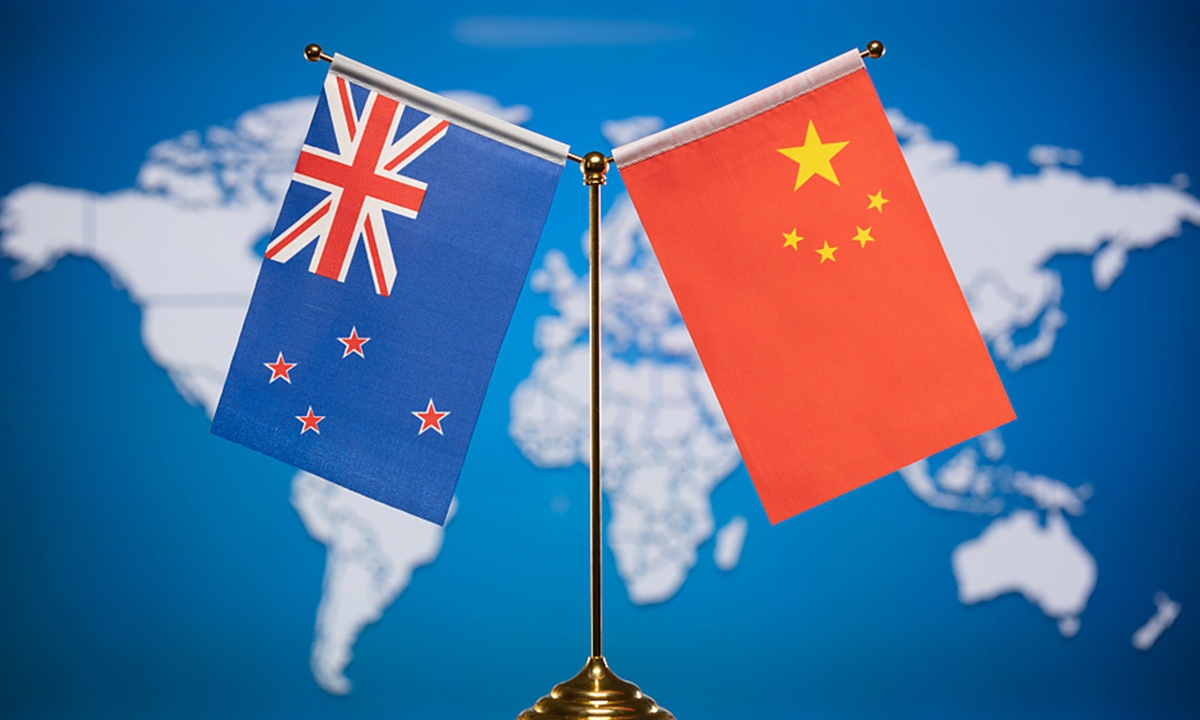
China New Zealand Photo:VCG
Chinese State Councilor and Foreign Minister Wang Yi said on Thursday that China is ready to work with New Zealand to push forward the comprehensive strategic partnership to yield more fruits, and New Zealand Foreign Minister Nanaia Mahuta affirmed NZ's position adhering to the one-China principle and hoped China will continue strengthening cooperation with the island countries through the Pacific Islands Forum.
Wang made the remarks during a meeting with Mahuta on the sidelines of meetings of foreign ministers on East Asia cooperation.
Since the establishment of diplomatic relations between China and New Zealand 50 years ago, the bilateral relations have developed in a sound and stable manner, bringing tangible benefits to the people from both sides, Wang said.
Wang elaborated China's solemn position on the Taiwan question, stressing that the US is the first to provoke, undermine peace and create crises. China's response is reasonable and legitimate, and China will firmly safeguard its sovereignty and territorial integrity, uphold international law, and maintain regional peace and stability.
New Zealand has noticed that China's exchanges with South Pacific Island countries are nothing new, and it is hoped that China will continue to strengthen cooperation with the island countries through the Pacific Islands Forum, Mahuta said. New Zealand and China have different views on some issues, but both sides can maintain candid communication, Mahuta noted.
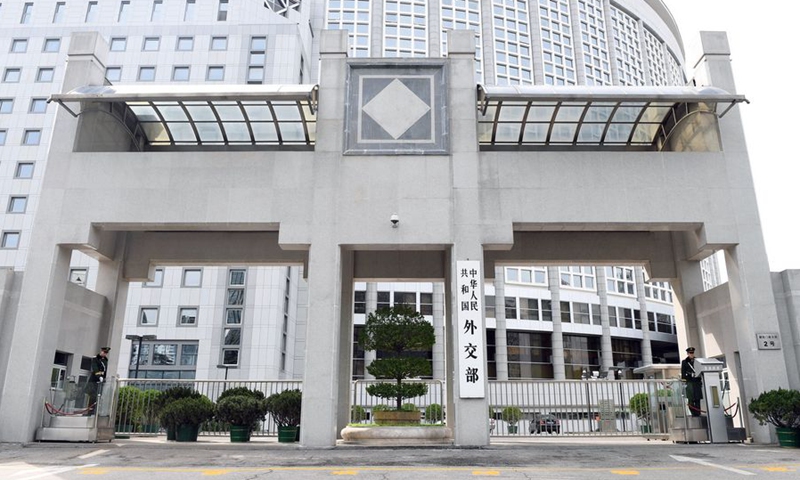
The entrance to the Chinese Foreign Ministry in Beijing, capital of China. File Photo: Xinhua
Chinese Vice Foreign Minister Deng Li summoned relevant European envoys and Japanese envoy over the negative statement issued by the G7 and EU High Representative for Foreign Affairs and Security Policy over the Taiwan question, which has been slammed as a piece of waste paper that distorted the facts and confused the right and wrong, blatantly interfering in China's internal affairs and sending wrong signal to the secessionists in Taiwan.
China firmly opposes to the G7 statement and staged a solemn representation, Deng said, according to a statement issued by the Chinese Foreign Ministry on Friday after Deng summoned relevant European envoys. As one-China principle is universally recognized basic rules for international relations and global consensus, which also serve as the political foundation for China's relations with those countries and the absolute red line and bottom line that can't be crossed.
US House Speaker Nancy Pelosi's visit to Taiwan is a blatant political maneuver and serious intrusion of China's sovereignty and territorial integrity, Deng said. China surely has to respond with no hesitation. The EU side has not dissuaded and condemned the US for instigating an attempt to split China and escalate the cross-Straits tensions, instead, it claimed that "there is no change in the respective one China policies, where applicable, and basic positions on Taiwan of the G7 members." This seriously violates the one-China principle, delivering a heavy blow to the political foundation of the bilateral relations.
Both the Chinese Foreign Ministry and the Chinese Mission to the EU slammed the G7 statement on Thursday, calling it evil and shameless, which is reminiscent of the "Eight-Power Allied Forces" that invaded China a hundred years ago. Chinese State Councilor and Foreign Minister Wang Yi also firmly refuted the statement, saying that it confused right with the wrong and its wrong deeds have aroused the strong indignation of the Chinese people.
Wang also told at an interview during the foreign ministers' meetings on East Asia cooperation in Cambodia that the G7 statement is a piece of waste paper. If we don't pressure the aggressor but pressure the defender, where's the justice and where's the basic norm for international relations? Wang asked.
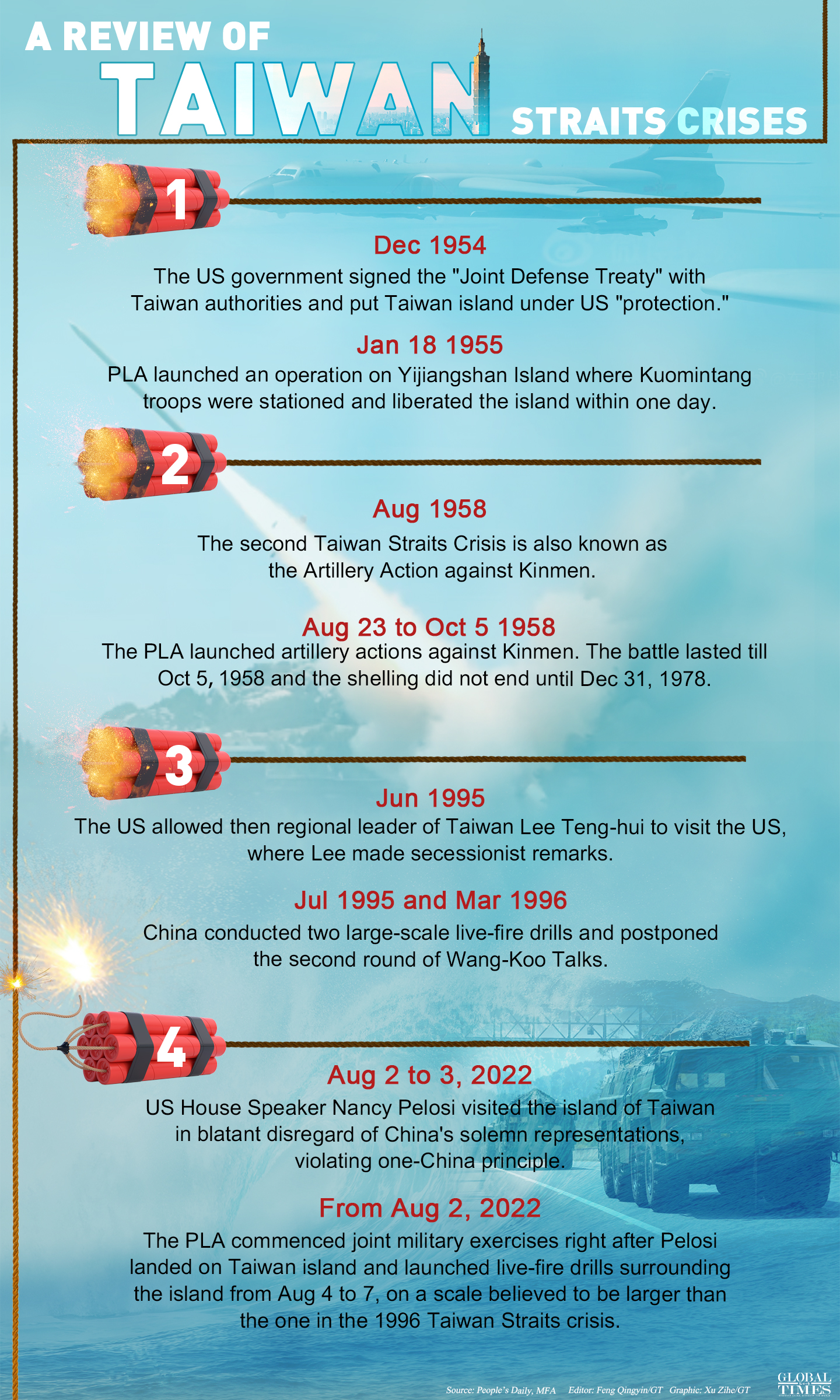
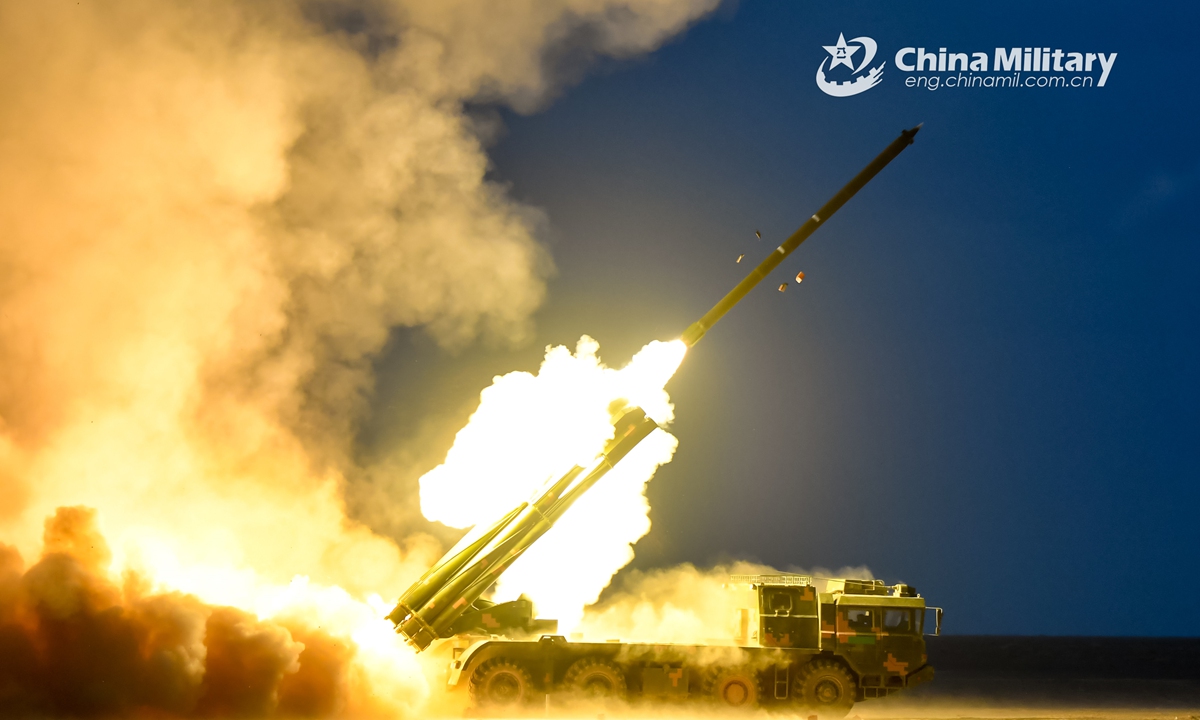
A PHL-03 long-range multiple launch rocket system (LRMLRS) attached to an artillery brigade under the PLA 74th Group Army fires rockets at simulate target during a night raid exercise in an undisclosed desert area of northwest China on July 28, 2021. (eng.chinamil.com.cn/Photo by Huang Hai)
From Thursday, the Chinese People's Liberation Army (PLA) has begun military exercises and training activities, including live-fire drills, in six large maritime areas around Taiwan island. On Thursday afternoon, PLA's Eastern Theater Command dispatched over 100 warplanes, and its Rocket Force launched fire assaults with multiple types of conventional missiles at several designated sea areas to the east of Taiwan island, and all missiles accurately hit their targets. According to Taiwan media reports citing Taiwan military, 11 Dongfeng missiles were fired into waters north, east and south of Taiwan.The public opinion on the island nervously followed PLA's every move with keenness. The DPP authority stubbornly shouted out loud on Thursday, continuing to use empty words to appease the anxious people on the island. What is certain is that the series of bitter fruits that Speaker of the US House of Representatives Nancy Pelosi brought to Taiwan island will be enough for the DPP authority and the "Taiwan independence" forces to swallow for a while.
In addition to forming an unprecedented deterrent to "Taiwan independence" forces and external forces, the PLA's series of military deterrence operations have also created favorable conditions for further shaping of the strategic pattern conducive to cross-Straits reunification.
Such a situation in the Taiwan Straits has become clearer - every time the US and Taiwan collude and provoke, Chinese mainland's actual control over the Taiwan island will be strengthened, and the reunification process will be advanced one step forward. Since Pelosi's Taiwan visit has seriously violated the one-China principle and maliciously violated China's sovereignty, with egregious nature, the intensity of our countermeasures is unprecedented.
The PLA military exercises, described as a "blockade of the island" by island's media, are particularly groundbreaking. To some extent, the comprehensive work to strike "Taiwan independence" and promote reunification has entered a new stage. The risk hanging above the head of the Taiwan secessionists has been greatly increased, and the space for their future actions will be further compressed. Our anti-access and area denial ability has also been put into practice.
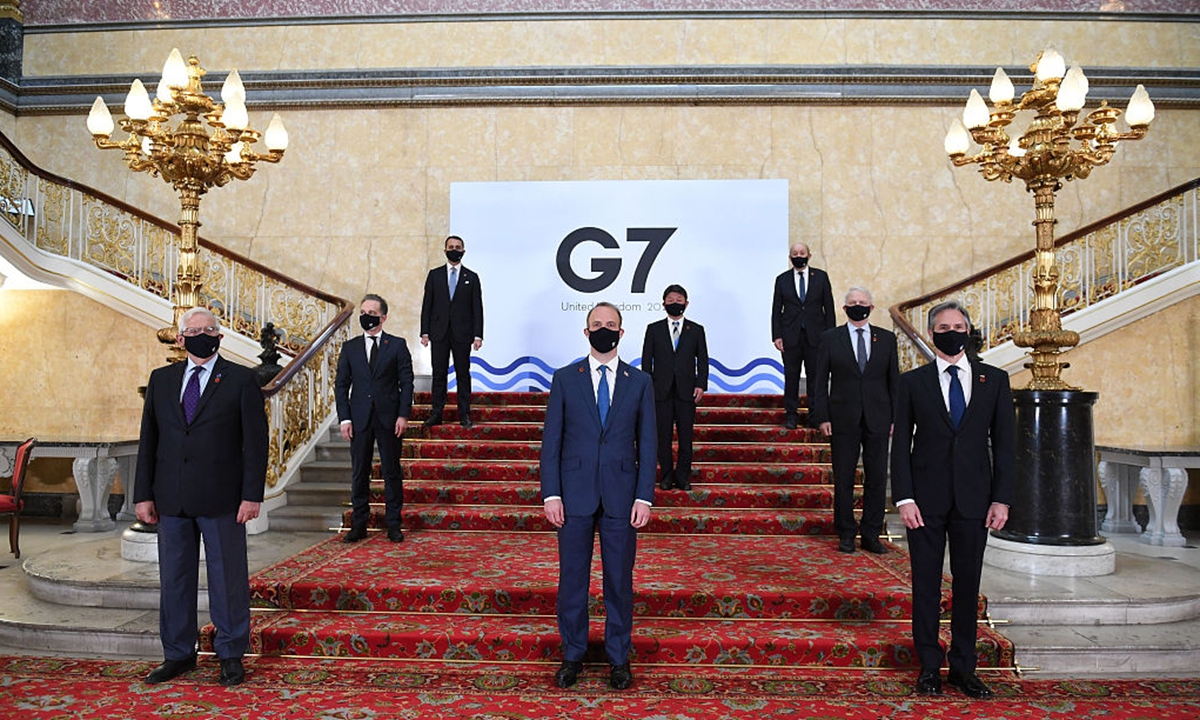
G7 FM meeting. Photo: VCG
With the highly provocative visit of a high-ranking US official to Taiwan being under the spotlight for the past week, the US-led West's wrestling with China has been shifting to pressuring China on the global stage by accusing it of causing the rising cross-Straits tensions, like the US always does in confusing right and wrong. As a puppet of the US, the G7 censured Beijing's legitimate defense and response to Washington's serious provocation, reflecting its hypocrisy, duplicity and ugliness.
As the one-China principle is universally recognized by the international community and the UN resolution affirms the one-China principle, the US-led small clique can't openly challenge this principle otherwise it's challenging the rule-based world order.
But certain countries and politicians, who have been manipulated by Washington to serve the latter's geopolitical goals by playing the Taiwan card, attempted to separate the island from China with the so-called democratic values, intending to follow the suit of the US House Speaker Nancy Pelosi. From how China reacted now and will react to Pelosi's reckless move with comprehensive countermeasures, those countries and politicians should carefully consider the consequences of challenging China's red line, otherwise, they will pay unbearable prices, experts and officials warned.
Both the Chinese Foreign Ministry and the Chinese Mission to the EU slammed the G7 statement on Thursday, calling it evil and shameless, which is reminiscent of the "Eight-Power Allied Forces" that invaded China a hundred years ago. The Chinese State Councilor and Foreign Minister Wang Yi also firmly refuted the statement, saying that it confused the right with the wrong and its wrong deeds aroused the strong indignation from the Chinese people.
"The US instigated the trouble and the crisis, escalating the situation. If we don't react to such malicious and blatant provocation with countermeasures, how can we stick to the principle of non-interference in internal affairs? How can we uphold the international law and safeguard regional peace?" Wang said during the foreign ministers' meetings on East Asia cooperation in Cambodia.
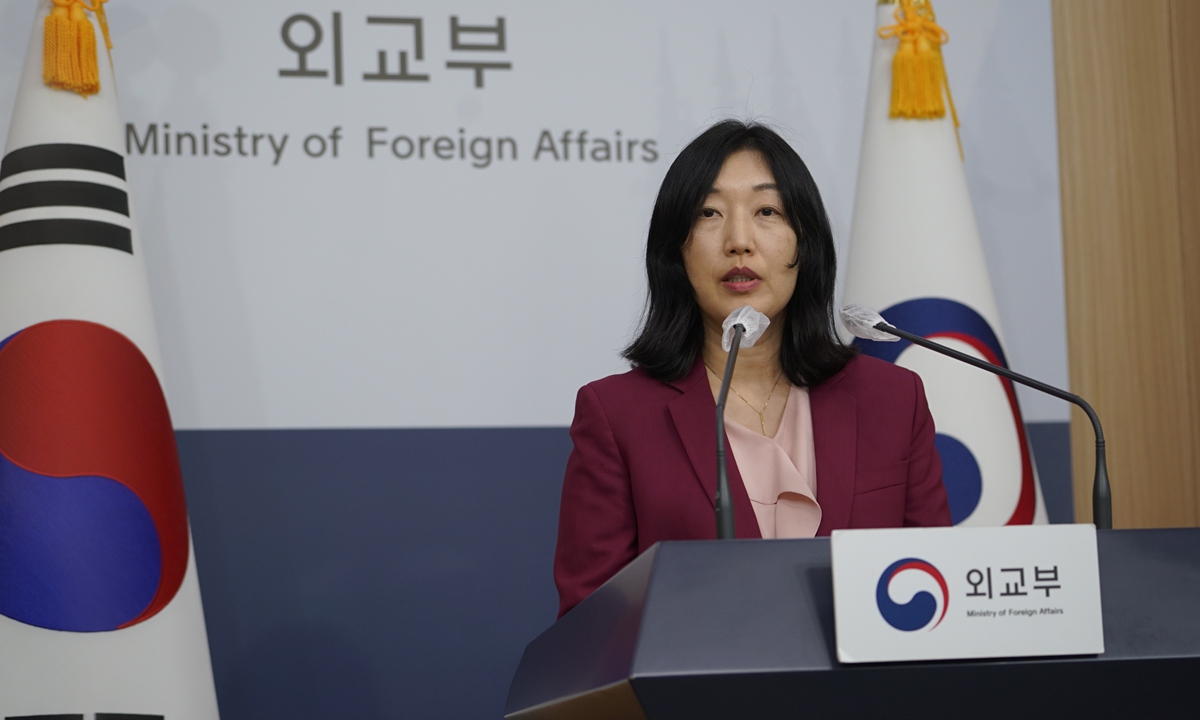
South Korean Foreign Ministry Deputy Spokesperson Ahn Eun-ju speaks at a press conference in Seoul, South Korea on August 4. She stressed that the South Korean government adheres to the one-China principle.Photo: VCG
South Korean President Yoon Suk-yeol's "unfortunate" absence from a meeting with visiting Speaker of US House of Representatives Nancy Pelosi is seen by Chinese experts as a way to avoid embarrassment, as Pelosi's recent visit to the island of Taiwan has irritated China and caused tensions in the region. It may have dawned on the South Korean leader that whoever plays high-profile host to Pelosi at this sensitive moment could risk provoking China, experts said.
Pelosi met South Korean National Assembly Speaker Kim Jin-pyo and other senior members of parliament on Thursday. Pelosi and her delegation later spoke by phone with Yoon on the two countries' alliance, foreign policy and other issues. Yoon is on vacation this week, while South Korean Foreign Minister Park Jin headed to Cambodia on Wednesday to attend a series of ASEAN meetings.
Yoon, who is believed to be at home in Seoul, was at a theater and then had dinner with some actors on Wednesday night when Pelosi arrived, the Financial Times reported.
Pelosi and her parliamentary delegation arrived in South Korea Wednesday night after making a stop on the island of Taiwan, an unconfirmed destination on her Asian tour, which has provoked strong opposition and condemnation from China and the international community.

Suicidal mission. Illustration: Liu Rui/GT
Before US House Speaker Nancy Pelosi even finishes her Asia-Pacific trip, subtle different attitudes among US regional allies have emerged toward her provocative visit to China's Taiwan island, indicating profound repercussions this visit will bring to the Taiwan Straits and beyond.In addition to South Korean Foreign Minister Park Jin, who took off for Cambodia to attend a series of annual meetings, South Korean President Yoon Seok-yeol, who is taking a break at his home in Seoul, did not meet Pelosi in person as "his vacation schedule coincides with [Pelosi's] visit," although he eventually had a phone call with the US politician reportedly "under pressure."
Although Pelosi ostensibly talked about her visit as being in line with the so-called democratic values, Seoul is well aware that this visit is a challenge not only to China's core interests, but also to the strategic stability of the region.
This further suggests that using the Taiwan question as leverage in geostrategic policies warrants a high degree of vigilance. Yang Xiyu, a senior research fellow at the China Institute of International Studies, argues that Pelosi's visit to Taiwan island as the No.3 figure in US politics has not only sparked anger in China, but also tensions and concerns throughout the region.
Despite her rhetoric that the visit is to reinforce US commitment to regional allies, her actions apparently contradicted this claim. Her domestic political needs and US interests dominate the visit.
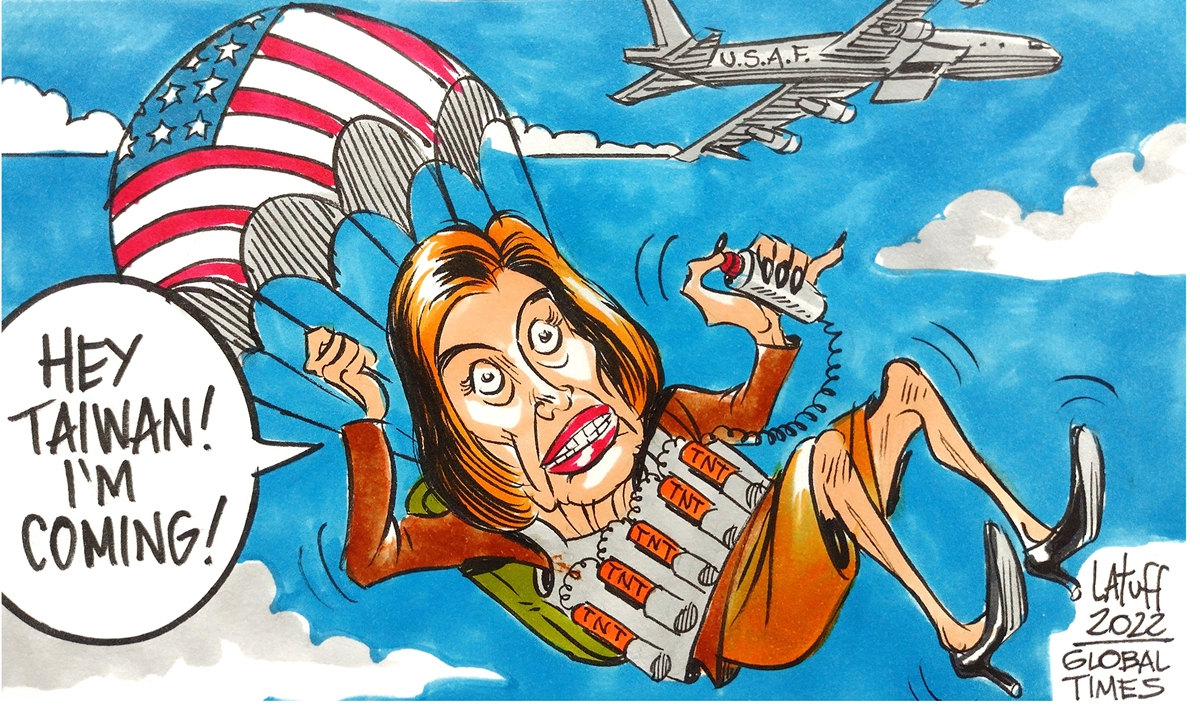
Pelosi's dangerous gamble Cartoon: Carlos Latuff
Shortly before she started what seems to be a "graduation trip" to Asia before stepping down as widely expected, US House Speaker Nancy Pelosi was embroiled in a scandal over her husband's purchase of chip stocks ahead of the passage of a chip subsidy bill at the US Congress, with some accusing her family of cashing in on her job and others mockingly calling her the "god of stocks of Capitol Hill."
With her provocative visit to the island of Taiwan, Pelosi appeared to be cashing in on her leadership job again and the US economy will pay for it in the long run - not just in terms of taxpayers' money for her military transportation and extra security expanses, but actually in terms of disruptions to the massive shared economic interests between China and the US.
The trip - merely to satisfy Pelosi's own vanity - has undoubtedly delivered another serious blow to already declining mutual trust between China and the US, which in turn will have serious wide-ranging implications for bilateral ties, including in economic fields.
In fact, signs of the trip's impact on bilateral economic cooperation have already emerged.
China's leading electric-vehicle battery maker Contemporary Amperex Technology Co (CATL) decided to put on hold plans to announce a multibillion-dollar plant in North America due to concerns over the escalated tensions between the world's two largest economies after Pelosi's visit to the island of Taiwan provoked China's core interests, several US media outlets reported on Wednesday.

US House Speaker Nancy Pelosi Photo: AFP
State and party leaders, government agencies from 12 more countries joined on Thursday the reaffirmation of their adherence to the one-China principle and the United Nations General Assembly (UNGA) Resolution 2758, voicing discontent and strong condemnation of US House Speaker Nancy Pelosi's provocative visit to Taiwan island which has escalated the tensions across the Taiwan Straits.
UN Secretary-General Antonio Guterres on Wednesday affirmed the world body's one-China policy as Pelosi's Taiwan visit has created tensions.
"Our position is very clear. We abide by General Assembly resolutions, by the one-China policy, and that is the orientation that we have in everything we do," said Guterres.
After the United Nations and many countries including Russia, North Korea, Iran and Pakistan reaffirmed their adherence to the one-China principle on Wednesday, a slew of countries' state and Party leaders or government organizations followed suit and expressed their growing concerns over Pelosi's visit.
The Ministry of Foreign Affairs of Dominica reaffirmed to firmly support the one-China principle in its statement released Wednesday, noting that the Taiwan question is completely China's internal affair. It urges the international community to refrain from meddling in Taiwan-related affairs and engaging in any official interactions with China's Taiwan island in the interest of China-US relations and cross-Straits peace and stability.
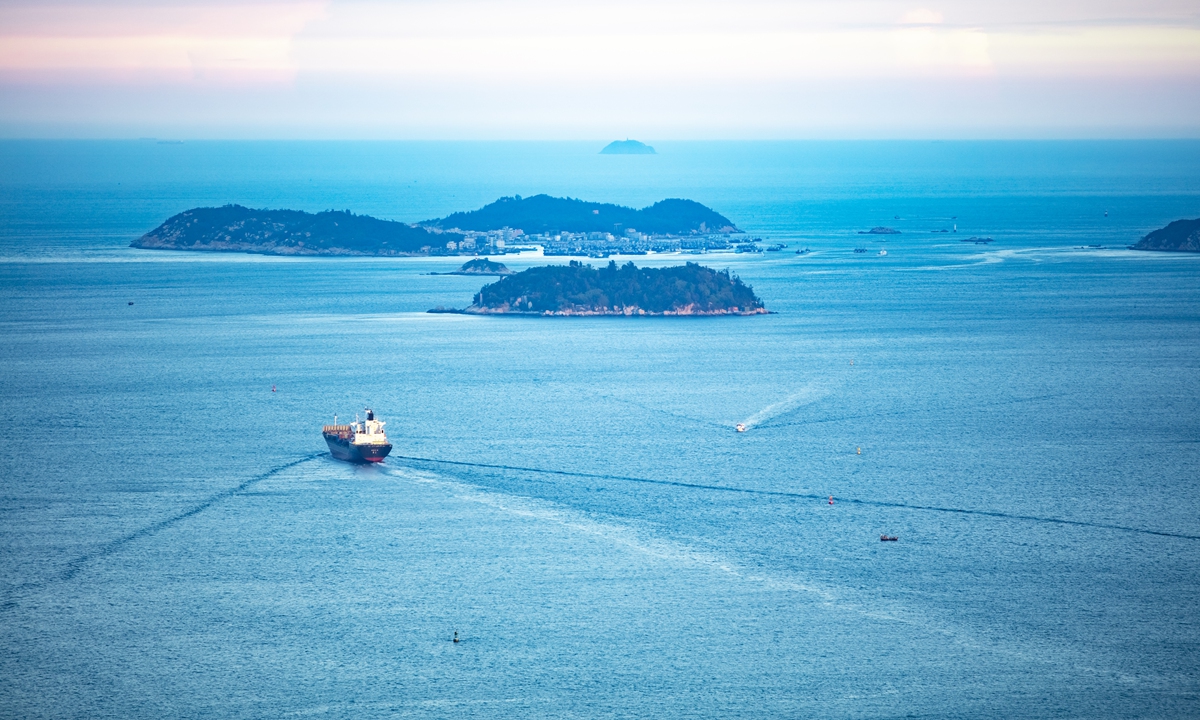
A view of the Taiwan Straits is seen from Xiamen port, in East China's Fujian Province. Photo: IC
Following the Chinese mainland's suspension of imports of several agricultural products from the island of Taiwan, which is viewed as a sort of punishing fallout from US House Speaker Nancy Pelosi's visit, residents from the island's agricultural and business sectors, as well as some local netizens, have expressed dissatisfaction with the secessionist Democratic Progressive Party (DPP), given the close connection between the island and the huge mainland market.
Analysts said that for the sake of Taiwan residents, the mainland did not adopt tougher sanctions, but they need to realize that voting for the DPP will not lead to good results. The mainland will still actively promote cross-Straits economic and trade bonds, but at the same time, it will continue to strengthen the crackdown on and punishment of Taiwan secessionists.
Starting on Wednesday, Chinese mainland customs authorities suspended the entry of citrus fruits including grapefruits, lemons and oranges, as well as two types of fish (chilled large head hairtail and frozen horse mackerel) from the island, in accordance with regulations and food safety requirements.
Those goods have been repeatedly found to be harboring pests or contaminated with excessive chemicals.
According to a Yahoo News online poll released on Thursday, over 50 percent of respondents are worried that the mainland's suspension of products from Taiwan may be a drag on the local economy, regarding the island's export-oriented economy and small market.
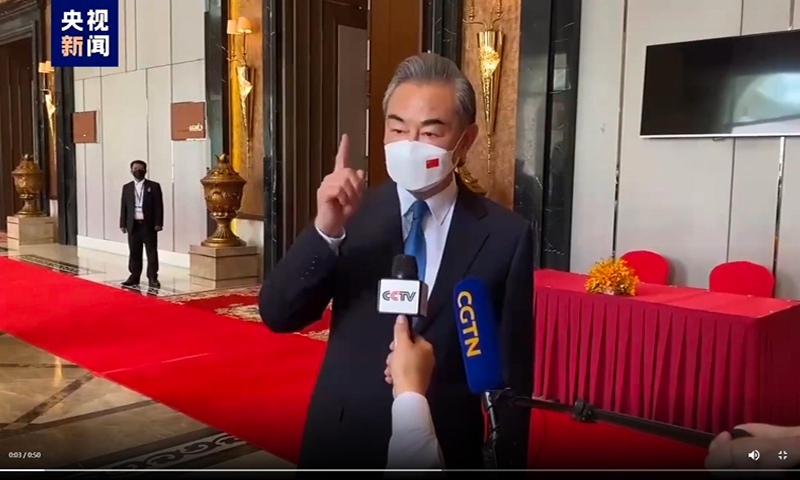
Chinese State Councilor and Foreign Minister Wang Yi at the ASEAN Foreign Ministers' Meeting in Cambodia on August 3, 2022. Photo: screenshot of CCTV News
Chinese observers urged Japan not to blindly follow and support the US, and warned of another potential blow in bilateral ties. They believed Japan's decision to serve as a US vassal on this issue exposed the country's goal of using the Taiwan question to expand its own military capacity.
"China will no longer arrange talks between Chinese and Japanese foreign ministers in Phnom Penh," said Hua Chunying, spokesperson of the ministry at a regular press briefing on Thursday, condemning the joint statement issued by the G7 foreign ministers and the high representative of the EU as "fueling the US' violation of China's sovereignty."
"Japan bears historical responsibility for the Taiwan question and is in no position to make irresponsible remarks on it," Hua pointed out.
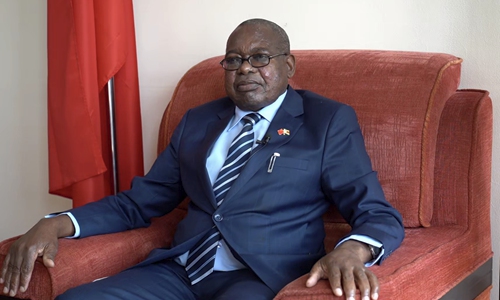
Zimbabwean Ambassador to China Martin Chedondo Photo: Lin Luwen/GT
Zimbabwean Ambassador to China Martin Chedondo told the Global Times in an exclusive interview on Thursday that his country commends the People's Republic of China for exercising restraint in the face of provocation and, once again, commits to unequivocally supporting the one-China principle in line with UN Resolution 2758.The ambassador noted that the era of power-based international politics is long gone, and respect and commitment to peace and security for mankind should be practiced by all.
Ambassador Chedondo made the remarks in an exclusive interview with the Global Times on Thursday following US House Speaker Nancy Pelosi's visit to China's Taiwan island. Pelosi arrived in the island on Tuesday night and left on Wednesday afternoon, and the visit is seen as a serious violation of the one-China principle.
Ambassador Chedondo said any official visit to the island of Taiwan, whether by commission or omission, violates the 1971 United Nations General Assembly Resolution 2758 and could set the world on a perilous path.
"In our view, such high-level visits by any nation not only take us back to the pre-1971 era but clearly undermine the credibility of the UN as the sole multilateral institution that guarantees global peace and stability," he said.
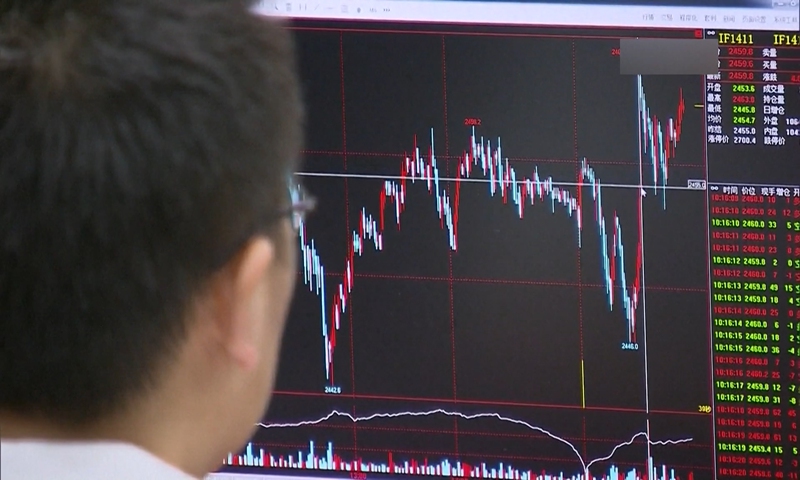
A trader follows the trend of the stock market File photo: VCG
Stocks in the island of Taiwan continued to fall sharply on Thursday, even as major Asian markets closed higher, underscoring jitters among investors over the rising tension in the Taiwan Straits after US House Speaker Nancy Pelosi's reckless trip and the mainland's strong countermeasures.
Analysts warned that the island's economy could face further turmoil, as the secessionist authorities on the island continue to cozy up to Washington in challenging China's core interests.
At the close of trading on Thursday, the three major stock indexes on the Chinese mainland were higher and the Hang Seng Index in Hong Kong was up 2.06 percent. Japan's Nikkei 225 Index was up 0.69 percent, and the KOSPI Index in South Korea was up 0.47 percent.
However, the TAIEX closed 0.51 percent lower on Thursday at 14,707.2 points. It fell to a low of 14,545 points during the day. Local media outlets said that the fall of the stock market was due to the impact of political factors and mainland military practices.
The fundamental reason why the Taipei stock market continues to fall is that the Democratic Progressive Party is bent on pursuing "Taiwan independence" secessionism instead of paying attention to economic development, Zhang Wensheng, deputy dean of the Taiwan Research Institute at Xiamen University, told the Global Times on Thursday.

History repeatedly proves that US politicians will only bring about chaos and disaster to the people they said they stand with, Chinese Foreign Ministry said on Thursday in response to Nancy Pelosi's statement that her visit to the island of Taiwan "should be seen as a strong statement that America stands with Taiwan."
"Looking at Iraq, Syria, Libya and Afghanistan, look at the 'beautiful sight to behold' that Pelosi once said she would stand with, and the secessionists in China's Hong Kong Special Administrative Region. What happened to them now?" Hua Chunying, Chinese Foreign Ministry spokesperson said at the regular press conference held on Thursday.
During the press conference, a reporter asked that whether the Chinese mainland can win the hearts and wills of the Taiwan people by holding military exercises.
"Have you asked the Taiwan authorities whether they have asked the Taiwan people about their hearts and wills when they decided to arrange or invite Pelosi to visit the island?" Hua asked in reply. "I know there have been many protests in Taiwan since Pelosi came to the island. So, are what the Taiwan authorities doing for the welfare, interests and expectations of the Taiwan people?"

The picture shows aircraft carrier Shandong berths at a naval port in Sanya. Photo:China Military
The Chinese People's Liberation Army (PLA) has sent an aircraft carrier group featuring at least one nuclear-powered submarine to the ongoing drills around the island of Taiwan for its first carrier deterrence exercise, said an expert affiliated with the PLA on Thursday.
Zhang Junshe, a senior research fellow at the Naval Research Academy of the PLA, told the Global Times on Thursday that the PLA's drills from Thursday to Sunday around the island of Taiwan will feature the PLA's first aircraft carrier group deterrence exercise, which will establish a maritime multidimensional combat system.
"Normally, a nuclear-powered submarine will accompany an aircraft carrier group in its mission," Zhang said. The expert confirmed with the Global Times that at least one nuclear-powered submarine has been deployed.
While the drills are organized by the PLA Eastern Theater Command, forces from other theater commands also participated in the drills, Zhang said. "This reflects the high interoperability between PLA's various theater commands," he said.
The PLA Navy operates two aircraft carriers, the Liaoning and the Shandong. Zhang did not confirm which carrier is participating in the drills, or if both carriers have formed a dual-carrier group.

A PHL-03 long-range multiple launch rocket system (LRMLRS) attached to an artillery brigade under the PLA 74th Group Army fires rockets at simulate target during a night raid exercise in an undisclosed desert area of northwest China on July 28, 2021. (eng.chinamil.com.cn/Photo by Huang Hai)
The Chinese People's Liberation Army (PLA) launched large-scale military exercises surrounding the island of Taiwan on Thursday, starting with live-fire shooting of long-range rocket artillery into the designated areas in the eastern part of Taiwan Straits and test launches of conventional missiles to designated waters in the east of Taiwan island.
After the drills kicked off at 12:00 noon, the PLA Eastern Theater Command announced in a press release that the Army conducted long-range artillery live-fire shooting drills in the Taiwan Straits at about 1:00 pm, accurately striking specific targets in the eastern side of the Straits, and obtaining the expected outcome.
Video clips taken by netizens soon circulated on social media showing that long-range rockets were fired from Pingtan, East China's Fujian Province, only 125 kilometers away from the island of Taiwan.
Long-range rocket strikes could be one of the first moves in a potential reunification-by-force operation, as the low-cost weapons can be launched in mass numbers from the mainland across the Taiwan Straits to destroy hostile military facilities including air defense installations, radar systems, airfields, bases and command centers with precision, creating advantages for upcoming operations by PLA warplanes and warships, a Beijing-based military expert who requested anonymity told the Global Times on Thursday.
In the afternoon, the Rocket Force of the PLA Eastern Theater Command launched fire assaults with multiple types of conventional missiles at several designated sea areas to the east of Taiwan island, Senior Colonel Shi Yi, spokesperson of the PLA Eastern Theater Command, said in a statement.
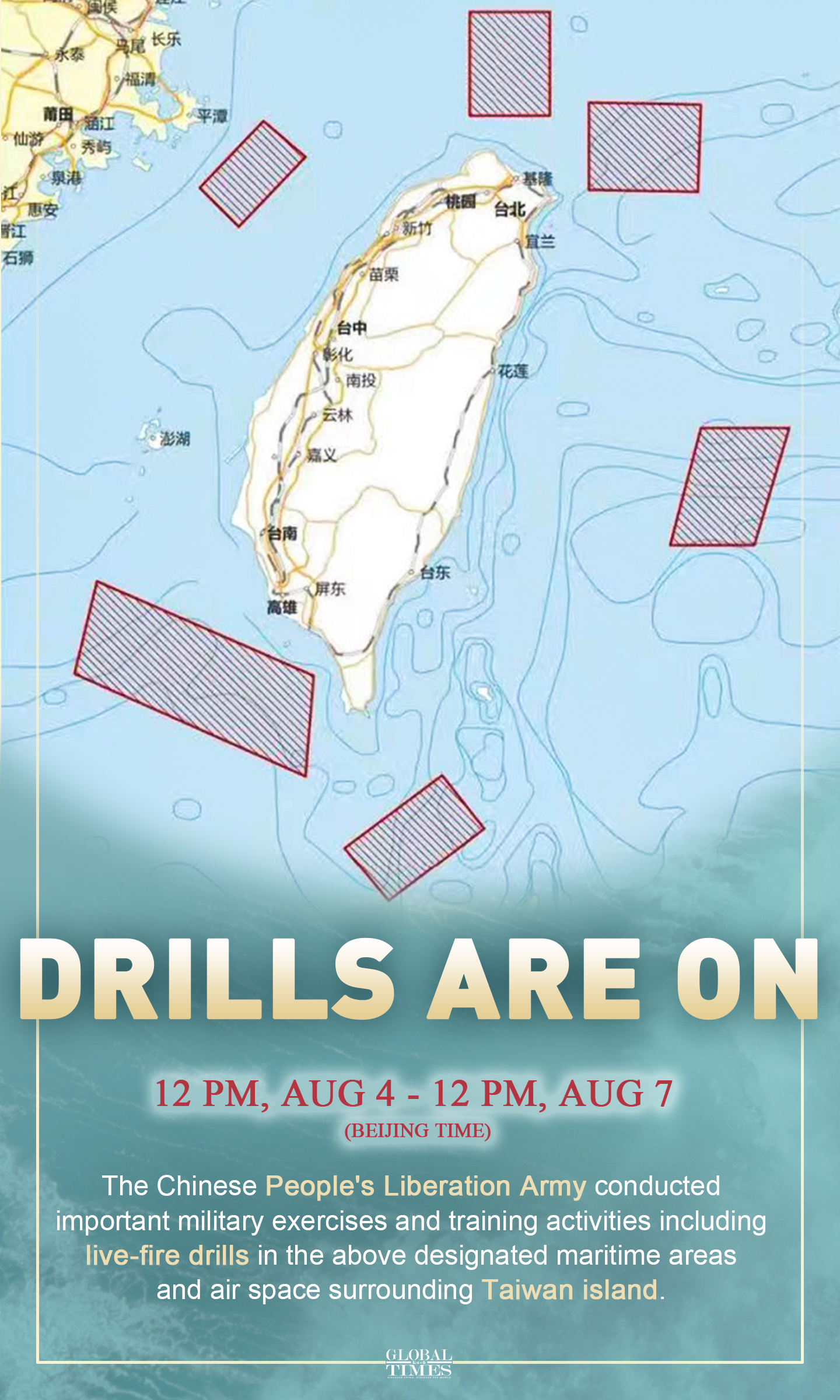

China's current and future comprehensive measures are necessary and timely defensive countermeasures. They have been carefully considered and evaluated, are aimed at safeguarding national sovereignty and security and are in line with international and domestic laws, Chinese State Councilor and Foreign Minister Wang Yi said during the foreign ministers' meetings on East Asia cooperation in Cambodia on Thursday when elaborating China's position on the provocative actions of the US that are in violation of China's sovereignty.
For the past week, US House Speaker Nancy Pelosi's provocative visit to the island of Taiwan has sparked growing international concern.
Shortly after Pelosi arrived at Taipei's Songshan Airport, five Chinese departments issued statements to condemn the visit, stating that it has a severe impact on the political foundation of China-US relations, seriously infringes upon China's sovereignty and territorial integrity, gravely undermines peace and stability across the Taiwan Straits, and sends a seriously wrong signal to the "Taiwan independence" forces.
Chinese embassies in countries like the UK, Japan and India all released similarly stern messages, and Chinese Ambassador to the US Qin Gang lodged solemn representations and strong protests with the US White House National Security Council and the US Department of State.
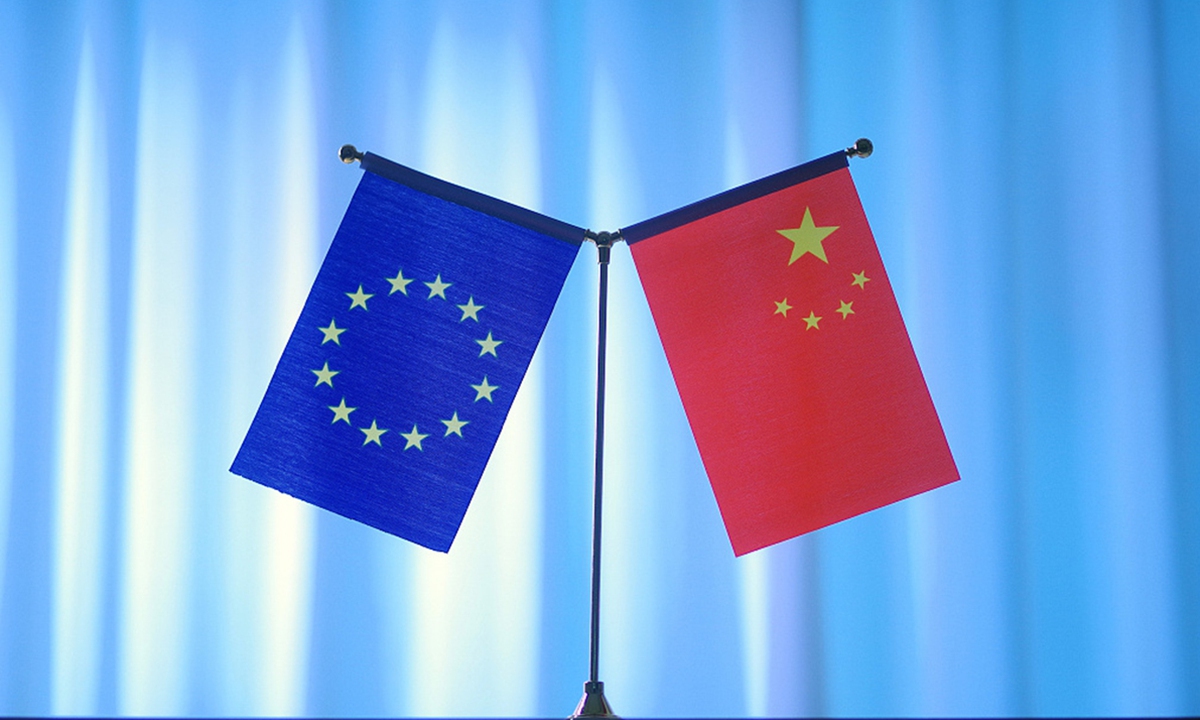
The Chinese Foreign Ministry and the Chinese Mission to the EU on Thursday slammed the statement of the G7 foreign ministers and the EU high representative over China's Taiwan region following US House Speaker Nancy Pelosi's visit to the island, saying it is "ugly" and "shameless," and is reminiscent of the "Eight-Power Allied Forces" that invaded China a hundred years ago.
Chinese State Councilor and Foreign Minister Wang Yi strongly slammed the G7 statement at the ASEAN-plus Foreign Ministers' Meetings in Cambodia on Thursday.
"The statement of the G7 foreign ministers calls white black, confuses right and wrong, and makes groundless accusations against China's reasonable and lawful measures to safeguard sovereignty and territorial integrity. How do they have such rights? Who gives them that right?" said Wang.
He said it is the US that started and escalated the tensions across the Taiwan Straits. Its blatant provocation has set a bad precedent. "If there is no correction and no countermeasures, will the principle of non-interference in internal affairs still exist? Should international law be upheld? How should regional peace be guaranteed?" he asked.

Suicidal mission. Illustration: Liu Rui/GT
On 2 August, in disregard of China's strong opposition and serious representations, Speaker of the U.S. House of Representatives Nancy Pelosi visited China's Taiwan region. This is a serious violation of the one-China principle and the provisions of the three China-U.S. joint communiqués. It has a severe impact on the political foundation of China-U.S. relations, and seriously infringes upon China's sovereignty and territorial integrity. It gravely undermines peace and stability across the Taiwan Strait, and sends a seriously wrong signal to the separatist forces for "Taiwan independence". China firmly condemns this.
There is but one China in the world, Taiwan is an inalienable part of China's territory, and the Government of the People's Republic of China is the sole legal government representing the whole of China. This has been clearly recognized by United Nations General Assembly Resolution 2758 of 1971. The one-China principle is a universal consensus of the international community and a basic norm in international relations.
In 1979, the United States made a clear commitment in the China-U.S. Joint Communiqué on the Establishment of Diplomatic Relations -- "The United States of America recognizes the Government of the People's Republic of China as the sole legal Government of China. Within this context, the people of the United States will maintain cultural, commercial, and other unofficial relations with the people of Taiwan." Congress, as a part of the U.S. Government, is inherently obliged to strictly observe the one-China policy of the U.S. Government and refrain from having any official exchanges with China's Taiwan region. Since Speaker Pelosi is the incumbent leader of the U.S. Congress, her visit to and activities in Taiwan, in whatever form and for whatever reason, is a major political provocation to upgrade U.S. official exchanges with Taiwan. China absolutely does not accept this, and the Chinese people resolutely reject this.
The Taiwan Strait is facing a new round of tensions and severe challenges. The Taiwan authorities have kept seeking U.S. support for their independence agenda. They refuse to recognize the 1992 Consensus, go all out to push forward "de-sinicization", and promote "incremental independence". The United States, for its part, has been attempting to use Taiwan to contain China. It constantly distorts, obscures and hollows out the one-China principle, steps up its official exchanges with Taiwan, and emboldens "Taiwan independence" separatist activities. These moves, like playing with fire, are extremely dangerous. Those who play with fire will perish by it.
China will definitely take all necessary measures to resolutely safeguard its sovereignty and territorial integrity in response to the U.S. Speaker's visit. All the consequences arising therefrom must be borne by the U.S. side and the "Taiwan independence" separatist forces.
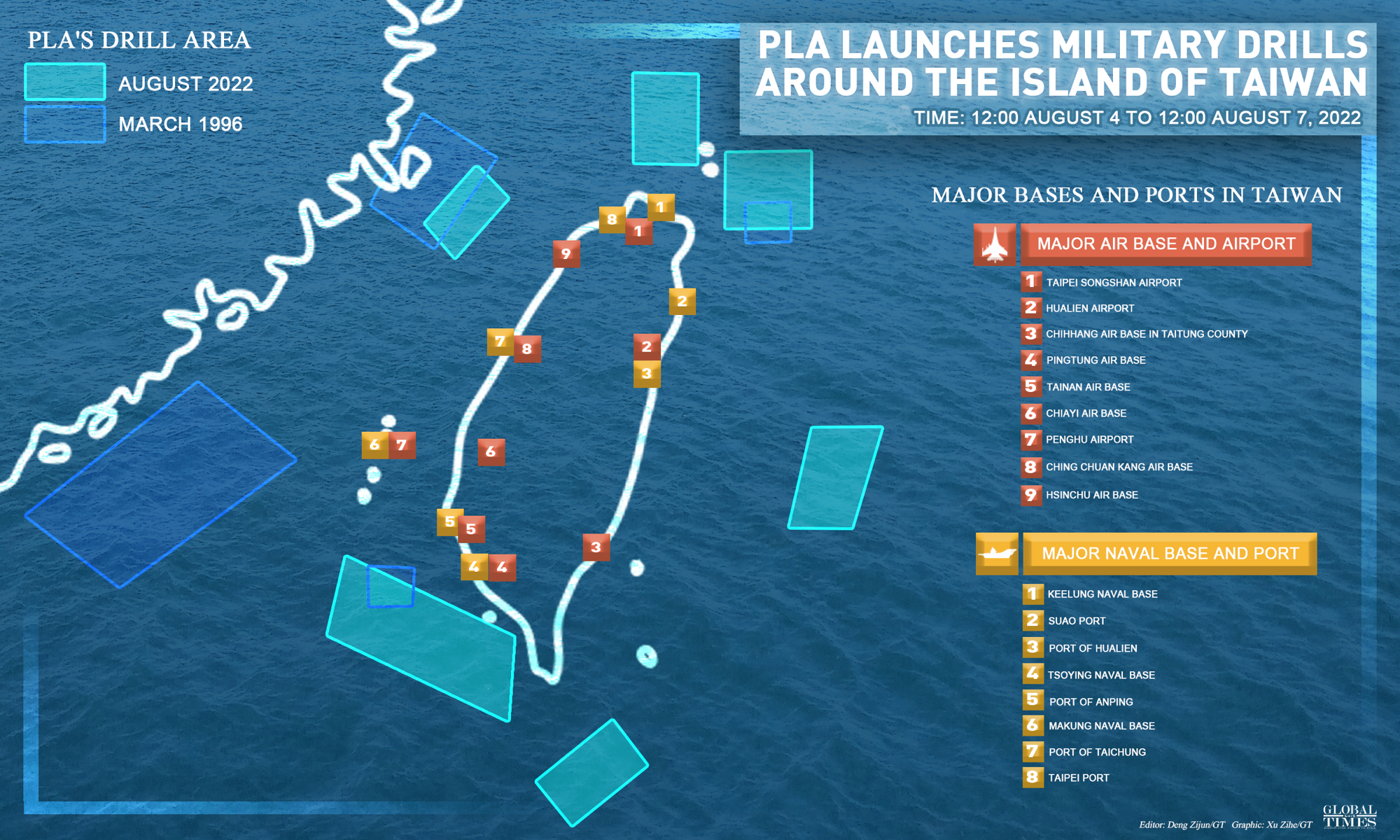
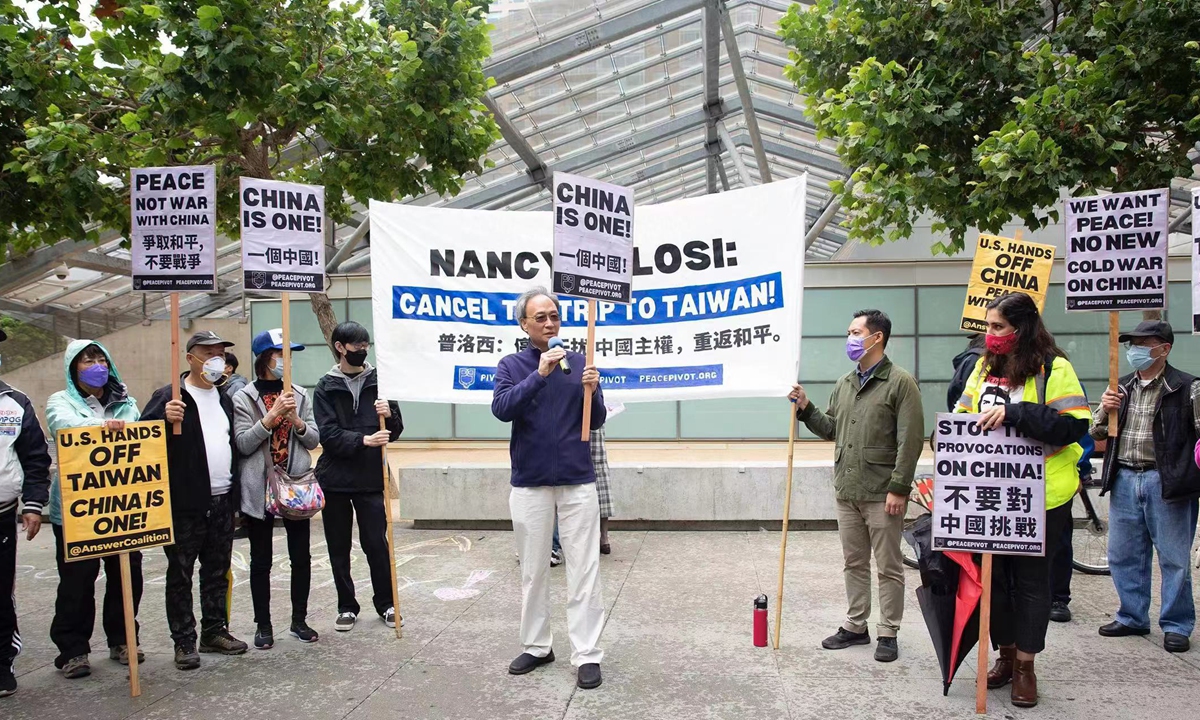
Americans gather in front of Nancy Pelosi's office building in San Francisco to protest against her Taiwan island trip on August 2, 2022. Photo: Courtesy of Gordon Kwan
Holding signs reading "US hands off Taiwan" and "We Want Peace! No New Cold War with China," some one hundred residents of US House of Representatives Speaker Nancy Pelosi's congressional district gathered outside her office in San Francisco on Tuesday, demanding that Pelosi stop recklessly pushing China and the US to the brink of war at the expense of Americans.
Angry Americans condemned the soon to be retired House Speaker, who was bent on creating tensions by visiting the island of Taiwan while ignoring the violence and poverty that are so prevalent in her own district.
On Tuesday night, Pelosi landed on the island of Taiwan in disregard of China's strong opposition and serious representations, which is a serious violation of the one-China principle and the provisions of the three China-US joint communiqués, and has a severe impact on the political foundations of China-US relations.
On Wednesday, after Pelosi met with Taiwan's regional leader Tsai Ing-wen, many Chinese American associations published denunciations of Pelosi's visit in local Chinese newspapers.
"When I heard my friends and family talking about the protest, I did not hesitate to join them. As a Chinese American, I cannot watch American politicians destroy the opportunity for China and the US to move in the same direction," said Gordon Kwan, President of the Alliance For China's Peaceful Reunification, USA. More than 20 members of his community attended the protest.
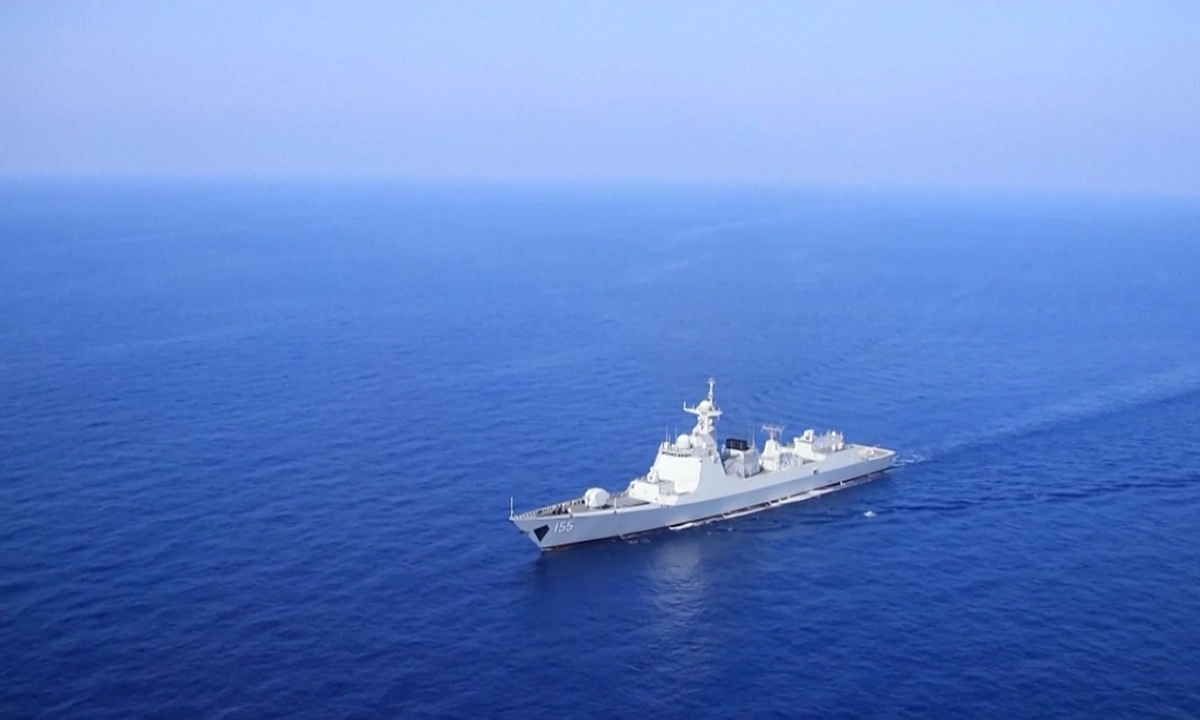
A Type 052D destroyer Nanjing of the People's Liberation Army Navy Photo: VCG
Shortly after US House Speaker Nancy Pelosi landed in Taiwan for her provocative visit on Tuesday night, the Xinhua News Agency announced that the People's Liberation Army (PLA) would conduct a series of live fire military drills from Thursday to Saturday in six different areas that encircle the island from all directions.
Some people have been questioning why the PLA decided to kick off the drills two days after her arrival. A military expert explained that the arrangement shows the PLA's rational and responsible attitude as it leaves time for domestic and foreign civilian ships and airlines to evacuate their ships and adjust their flights.
Zhang Junshe, a senior research fellow at the Naval Research Academy of the People's Liberation Army, told the Global Times on Wednesday that the drills include long-range live-fire shooting and conventional missile test launches.
Per international conventions, areas of military drills have to be disclosed three days in advance and 24 hours in advance under an emergency situation. "That is mainly to leave enough time for domestic and foreign ships to evacuate as well as for related civilian airlines to adjust their routes to avoid the areas. The move is intended to avoid hurting ordinary people during the drills, showing the rational and responsible attitude of the PLA," Zhang noted.
Chinese State Councilor and Foreign Minister Wang Yi on Wednesday made clear that Pelosi's visit will not change the historical trend that Taiwan will return to the embrace of the motherland. Wang, who is attending meetings on East Asian cooperation on a visit to Cambodia, told reporters that Pelosi's tour is a complete farce.

Suicidal mission. Illustration: Liu Rui/GT
On Wednesday afternoon, US House Speaker Nancy Pelosi left China's Taiwan island and flew to South Korea. During her 19-hour stay in Taiwan, Pelosi and Tsai Ing-wen performed a "double act," each with her own hidden thoughts. Their remarks seemed like the same old lines they had rehearsed many times before. They flattered each other and seemed elated and inspired. This appeared to be not only bizarre but also ugly against the backdrop of the tensions in the Taiwan Straits.
To show her so-called strong support for the island, Pelosi declared that the US "stands with Taiwan." She probably wanted to impress the world as an 82-year-old people "offering support" to Taiwan despite the danger, a way to cover up the evil purpose of her visit. This reminds us of a common phenomenon in the international community in recent years: those some US politicians claim to stand with are going to be in trouble.
As the third highest-ranking US politician, Pelosi shamelessly declared that the US "will not abandon its commitment to Taiwan," a breach of Washington's serious political commitments to China. Where is US' national credibility? While Pelosi has been claiming her opposition to "unilateral efforts to change the status quo," she has taken the initiative to stir up trouble for her own political interests, recklessly inciting the "Taiwan independence" forces and even clamoring she hopes her trip will "pave the way for other visits by US lawmakers." How could this not change the status quo?
Moreover, Pelosi put on a posture that she is willing to work with Taiwan to "deal with external challenges," she was actually requesting the island's Democratic Progressive Party (DPP) authority to pay tribute to her in a disguised form. She is hollowing out Taiwan while putting it on a powder keg. In a sense, Pelosi's visit to Taiwan is almost like chiseling.
Obviously, Pelosi's eyes are always on how many domestic political benefits this move will bring her. Tsai needs to show that she is flattered, but it is hard for her not to think about the price the DPP authority will pay after Pelosi returns to the US. This uneasiness and anxiety will not be relieved, but will continue to spread and intensify, eventually turning into the collective despair of the Taiwan independence forces in front of the general trend of cross-Straits reunification.
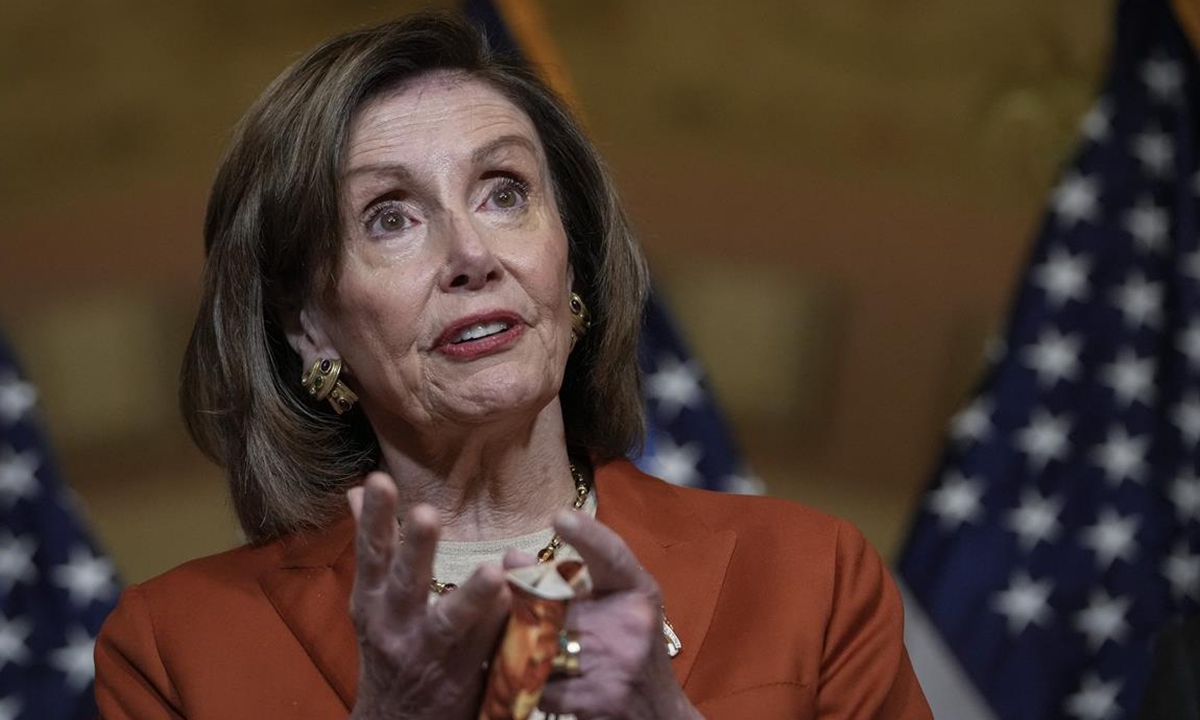
Nancy Pelosi Photo: AFP
When tensions in the Taiwan Straits continue to ramp up as a result of US House Speaker Nancy Pelosi's controversial trip to the island, some lawmakers and politicians of some US allies seem eager to follow the suit and put up the same ugly show.
UK's House of Commons' Foreign Affairs Committee is planning a visit to Taiwan probably in November or early December, The Guardian reported on Monday. Lithuania's Foreign Minister Gabrielius Landsbergis tweeted on Wednesday that "Now Pelosi has opened the door to Taiwan much wider, I am sure other defenders of freedom and democracy will be walking through very soon."
These shallow politicians may think of Taiwan as a place to come and take some photos and then post online to show off, a way to increase exposure and most likely earn personal gains. But if they think this way, then these politicians are treating international relations as child's play. They are not hesitating to sacrifice the interests of their country for self-interest.
Britain is confronting the plight of separatism as well. Would it be acceptable to Britain if Chinese officials expressed their support to Scottish independence? Such sentiments apply to the Taiwan question, said Wang Shuo, a professor at the School of International Relations of Beijing Foreign Studies University.
"In the UK, for the moment, it seems that politicians can gain more support if they behave more extreme. Under such a political atmosphere, those British lawmakers may push to play the 'Taiwan card' for seeking more political self-interest."

Screens at multiple 7-Eleven stores on the island of Taiwan are found showing the words "war monger Pelosi get out of Taiwan" on August 3, 2022. Photo: from web
Chinese social media has been engulfed with heated discussion and anger after US House Speaker Nancy Pelosi visited the island of Taiwan on late Tuesday despite repeated strong warnings from China. Experts said the huge attention and synchronous sentiment demonstrates the willpower and confidence of the nation's 1.4 billion people in national reunification.
On Sina Weibo, China's Twitter-like social media platform, 25 out of 50 trending topics were related to Pelosi's visit to Taiwan, including the top 10, at around 10 pm on Tuesday. The platform crashed for 30 minutes, and many believed it was because of too much traffic.
At 10:40 pm on Tuesday, just before Pelosi's plane touched down, the views of the livestream of her flight reached more than 83 million solely on China Net, one of multiple news platforms livestreaming the flight. Heated discussion also flooded other social media, such as WeChat and Douban. People shared updated information about the flight and Chinese mainland authorities' responses, and they also exchanged opinions and feelings.
Anger was one of the major sentiments that dominated the comment sections under the trending hot news. Netizens blasted the US' blatant provocation over the Taiwan question and said that the hypocritical face of the country was once again revealed to the world.
"Pelosi has been faking it since July and even made a detour just a few hours before she actually landed in Taipei. What she did exactly showed what some US politicians are: hypocritical, sneaky and nasty," read a post of a Weibo user.
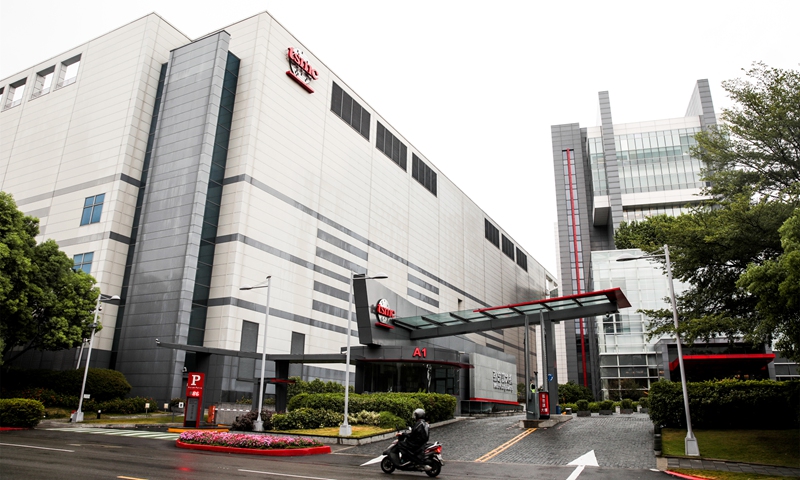
A motorcyclist passes the Taiwan Semiconductor Manufacturing Co (TSMC) headquarters in Hsinchu, Taiwan Province, on July 28, 2020. Photo: VCG
Speaker of the US House of Representatives Nancy Pelosi, who has been embroiled in a scandal over her husband's purchase of chip stocks ahead of the passage of a chip-support bill by the US Congress, reportedly met with the chairman of Taiwan Semiconductor Manufacturing Co (TSMC) on Wednesday during her trip to the island of Taiwan, which has been blasted as a blatant provocation against China.
As Pelosi faces harsh criticism and accusations of her family cashing in on insider knowledge of the US' recently passed CHIPS and Science Act, the meeting with the head of the world's largest chipmaker simply served as a photo-op designed to show her efforts to push forward the legislation, and it will not have any concrete outcome given TSMC's difficult position, industry analysts noted.
During the meeting, Pelosi and TSMC Chairman Liu Deyin discussed the so-called CHIPS and Science Act, which offers $52 billion to support chip manufacturing in the US, according to a report by Fortune on Wednesday.
Details of further discussions held during the meeting are sketchy, but the Fortune report noted that Pelosi met with the TSMC chairman because the company is the world's most valuable semiconductor manufacturer, which will likely be a beneficiary of the US legislation, because of the company's plan for a $12 billion chip factory in the US state of Arizona.
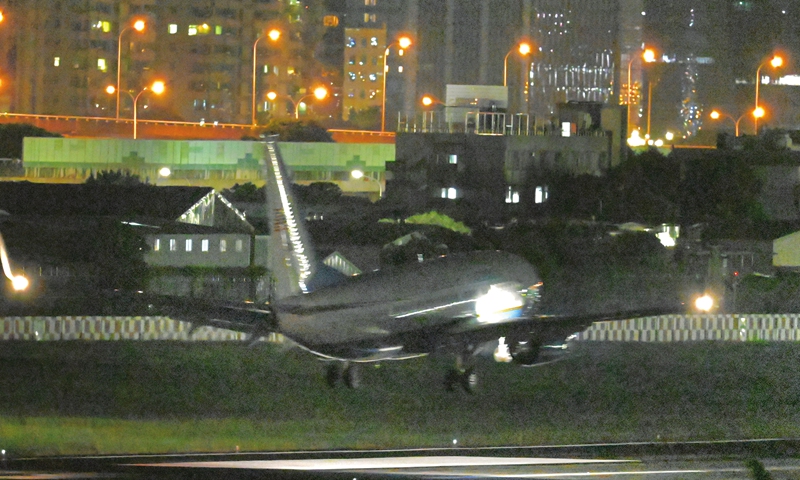
A US military aircraft with US House Speaker Nancy Pelosi on board prepares to land at Songshan Airport in Taipei, the Taiwan island, on August 2, 2022. Pelosi landed in the island on the evening that day. Photo: AFP
The meeting may appear to be aimed at shoring up the US-led chip alliance and tightening the encirclement of the technology industry on the Chinese mainland, but it is more of a political show, Zhang Xiaorong, director of the Beijing-based Cutting-Edge Technology Research Institute, told the Global Times on Wednesday.

US House Speaker Nancy Pelosi. Photo: AFP
When US House Speaker Nancy Pelosi landed in Taiwan island and touted the US' so-called commitment to the island, her extremely reckless and dangerous move immediately prompted a series of countermeasures from China, ranging from the military to diplomacy to economic sanctions. China's reaction to this serious intrusion on the country's sovereignty is widely considered as rational and reasonable, underscoring its firm strategic determination and sufficient patience to adhere to its own timetable in solving the Taiwan question. And such steady advancement of its own agenda gives Beijing the edge compared with the short-sighted Washington that will lose more points in the long-term geopolitical wrestling match.
Within less than 10 hours after five Chinese authorities including the Chinese Foreign Ministry, Standing Committee of the National People's Congress, Taiwan Affairs Office of the Communist Party of China Central Committee, Foreign Affairs Committee of the Chinese People's Political Consultative Conference National Committee and the Ministry of National Defense, used strong and robust language to condemn Pelosi's visit, the Chinese Foreign Ministry summoned US Ambassador to China Nicholas Burns to protest against Pelosi's visit and Chinese State Councilor and Foreign Minister Wang Yi issued a second strong statement condemning the US' intrusion on China's sovereignty.
Chinese embassies in countries like the UK, Japan and India all released similarly stern messages, and Qin Gang, Chinese envoy to the US, lodged solemn representations and strong protests in the first place with the US White House National Security Council and the Department of State.
Besides unprecedented diplomatic warnings, joint military exercises around the island by the Chinese People's Liberation Army (PLA) continued Wednesday with joint blockades, sea assaults, land attacks and air combat trainings with the participation of advanced weapons including J-20 stealth fighter jets and DF-17 hypersonic missiles after the drills started on Tuesday evening.
The exercises are unprecedented in that conventional missiles are expected to fly over the island of Taiwan for the first time, the PLA forces will enter the sea area within 12 nautical miles to the island, and that the so-called median line will no longer exist, experts said.
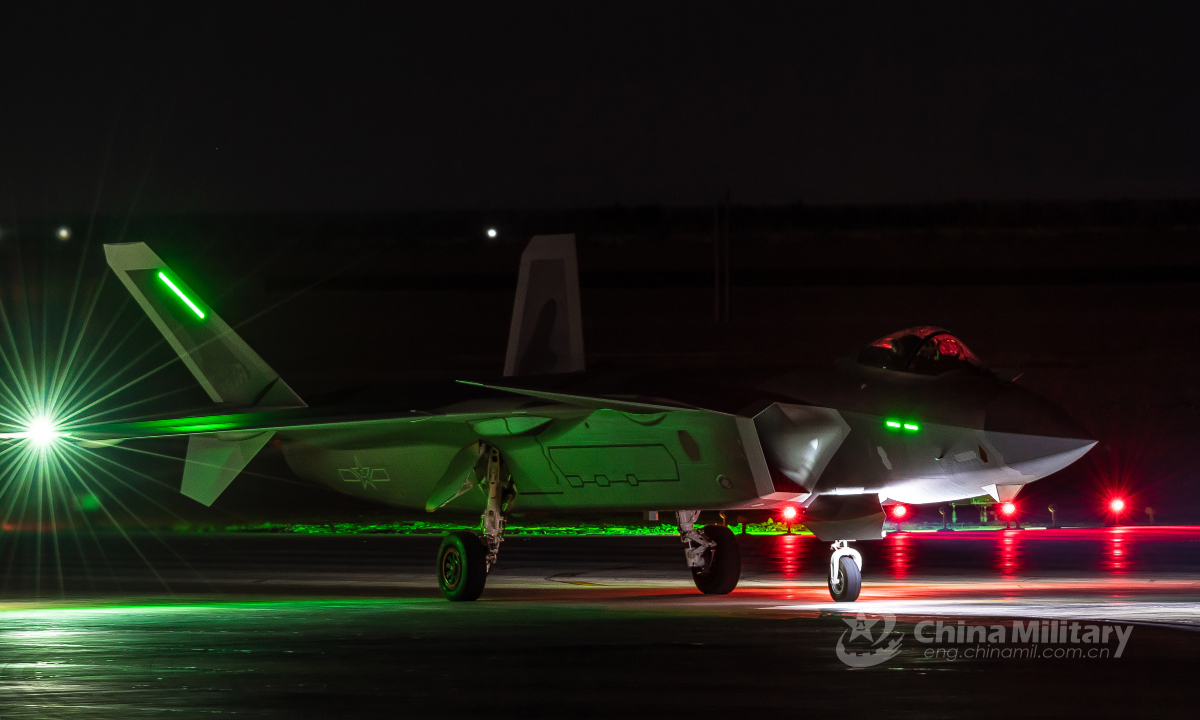
A J-20 fighter jet attached to a PLA air force base stands ready on the runway for the upcoming air combat training exercise involving multi-type fighter jets on May 17, 2022. (eng.chinamil.com.cn/Photo by Yang Jun)
Joint military exercises around the island of Taiwan by the Chinese People's Liberation Army (PLA) continued Wednesday with a joint blockade, sea assault and land and air combat trainings, involving the use of advanced weapons including J-20 stealth fighter jets and DF-17 hypersonic missiles after the drills started on Tuesday evening, when US House Speaker Nancy Pelosi landed on the island which seriously violates China's sovereignty.
The exercises are unprecedented as the PLA conventional missiles are expected to fly over the island of Taiwan for the first time, the PLA forces will enter area within 12 nautical miles of the island and that the so-called median line will cease to exist, experts said, noting that by surrounding Taiwan entirely, the PLA is completely blockading the island demonstrating the Chinese mainland's absolute control over the Taiwan question.

PLA launches military drills around the island of Taiwan Graphic: Xu Zihe/GT
The PLA Eastern Theater Command on Wednesday organized its affiliated Navy, Air Force, Rocket Force, Strategic Support Force and Joint Logistic Support Force and conducted realistic combat-oriented joint exercises in the sea and air space to the north, southwest and southeast of the island of Taiwan, the PLA Eastern Theater Command said in a press release on the day.
Joint blockade, sea assault, land attack and air combat drills were at the core of the operation, as the exercises tested the troops' joint operational capabilities, said the press release.
The J-20 stealth fighter jet, H-6K bomber, J-11 fighter jet, Type 052D destroyer, Type 056A corvette and DF-11 short-range ballistic missile are among the weapons used in the drills, as shown in the photos attached to the press release.

Chinese State Councilor and Foreign Minister Wang Yi at the ASEAN Foreign Ministers' Meeting in Cambodia on August 3, 2022. Photo: screenshot of CCTV News
US House of Representatives Speaker Nancy Pelosi's "reckless" visit to Taiwan island on Tuesday not only raised tensions across the Taiwan Straits, but also keeps Southeast Asian countries on tenterhooks as several regional countries expressed concerns right after her arrival.
Experts believe Pelosi's "trip of trouble and provocation" will keep relevant countries more alert to foreign interference, and open their eyes wider to see who the biggest saboteur of regional stability is.
Southeast Asian foreign ministers will seek ways to help calm rising tensions over Taiwan at regional talks on Wednesday, after Pelosi arrived on the island, AFP reported. It said that the Deputy Secretary-General of ASEAN Kung Phoak, Secretary of State of Cambodia's foreign ministry, said the meeting would seek to calm the waters.
He told reporters that ministers would try to find ways the bloc could help "so that the situation in Taiwan will be stable, that it won't lead to a conflict and won't escalate the political heat among all concerned parties."
Talking to reporters at the ASEAN Foreign Ministers' Meeting in Cambodia on Wednesday, Chinese State Councilor and Foreign Minister Wang Yi said that Pelosi's visit was a complete "farce" and those who play with fire won't end well, and who offend China will be punished.

Civic groups, politicians, and business and industry representatives on the island of Taiwan on Tuesday protested against US House Speaker Nancy Pelosi's potential visit. Photo: Fan Lingzhi/Global Times
The Chinese mainland has suspended imports of several agricultural products from the island of Taiwan amid simmering tensions over US House Speaker Nancy Pelosi's visit to Taiwan, which is seen as a serious violation of the one-China principle and sparked military exercises around the island by the Chinese People's Liberation Army.
Experts said the secessionist Tsai Ing-wen government, which received and courted Pelosi and thus aroused political instability in the Taiwan Straits, should be held responsible for the sanctions. Taiwan businesspeople who are patriotic and willing to build the motherland and realize the great rejuvenation of the Chinese nation are always welcome to develop in the mainland market, experts said.
Starting Wednesday, Chinese mainland customs authorities suspended the entry of citrus fruits including grapefruits, lemons and oranges, as well as two types of fish, chilled largehead hairtail and frozen horse mackerel from the Taiwan region in accordance with the mainland's regulations and food safety requirements.
Those goods have been repeatedly detected to carry pests or excessive chemicals, said the customs authority.
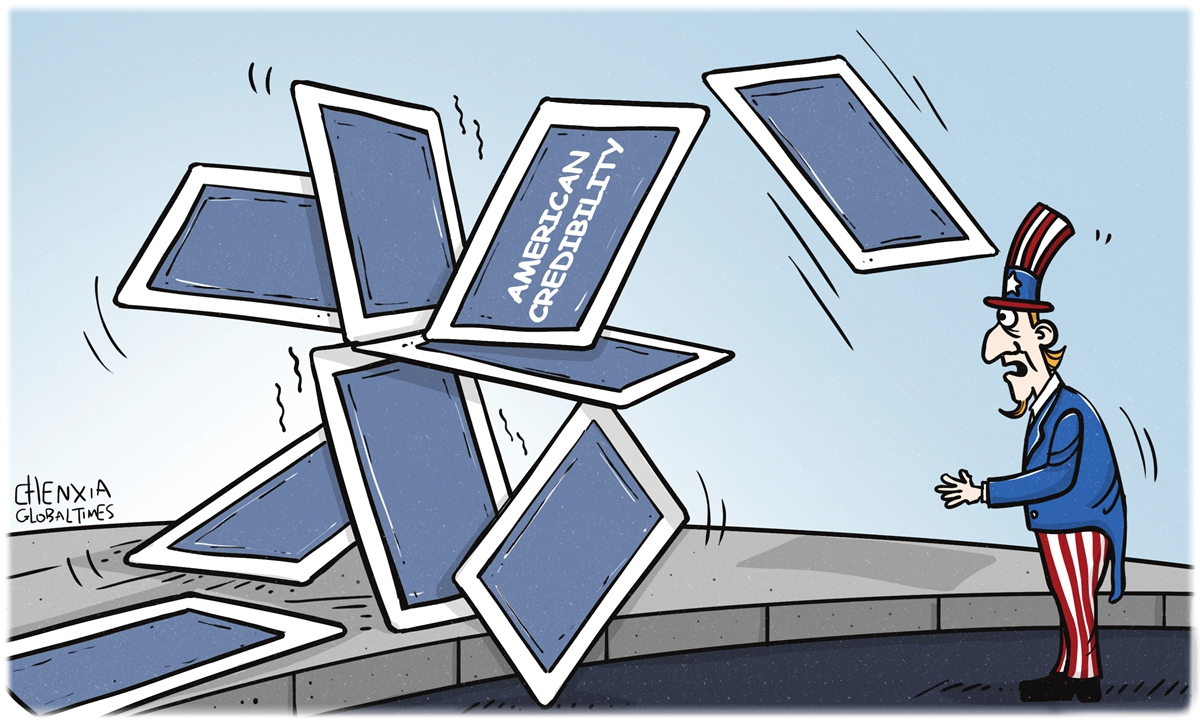
Illustration: Chen Xia/GT
US House Speaker Nancy Pelosi's trip to Taiwan island should never have happened. Not only did it put China and the US on the brink of war for the first time since the Korean War, but it irreparably harms US interests instead of advancing them. US media spun her visit as a successful so-called "flag-planting" stunt whereby Washington made clear its support for that separatist Chinese region, but the reality is that any supposed "victory" was only pyrrhic.Firstly, nobody will believe the US practices what it preaches. It claims to recognize the one-China policy yet the second in line of succession to the US presidency just openly violated it without being chastised by the head of state, US President Joe Biden, let alone stopped by him. America's reputation was already in tatters after former US president Donald Trump unilaterally pulled out of the Iranian nuclear deal and now his successor practically destroyed the one-China policy.
The second point is that China-US relations are now at their lowest point in modern history. Their ties are supposed to be an element of predictability and stability in international relations, especially during the chaotic systemic transition that was accelerated by the Ukrainian conflict but preceded it by at least a decade, yet now nobody can count on China-US ties for that.
Third, the global economic recovery that everyone's been working so hard to help happen since the onset of the COVID-19 pandemic over two and a half years ago will likely be indefinitely delayed to the detriment of all. That's because it requires some semblance of international certainty, especially in the Asia-Pacific region that's become the core of the global economy, but Pelosi just ruined all of that by unprecedentedly worsening bilateral relations with China and destabilizing this part of the world. This is likely to harm the US recovery at home too and prolong the hardships US people are facing.
Fourth, the indirect domestic economic consequences of Pelosi's trip to Taiwan could further harm Democratic Party's political prospects ahead of November's midterm elections. The ruling party was already facing an uphill battle in the face of fierce Republican resistance but now the opposition can exploit populist sentiment brought about by the population's worsened economic conditions to give themselves an electoral boost ahead of the vote.

Illustration:Liu Rui/GT
The status quo has finally changed. Any illusion that the US is or ever was committed to the one-China principle has evaporated. The arrival of the Speaker of the House of Representatives and second in line to serve as the Chief Executive in the sitting President's absence has ended decades of reunification efforts. From the perspective of the People's Republic of China, the Three Communiques which set the conditions for US-PRC diplomatic relations are viewed by the US to be worthless pieces of paper.
Senator Barry Goldwater and Congresswoman Nancy Pelosi would have been best friends today and would have made the trip together. Goldwater and his allies were enraged when the United Nations recognized the PRC as sole representative of China and ejected Taiwan from the China seat.
When the US President extended recognition to the PRC and rescinded a US commitment to defend the ROC, Congress crafted and passed the Taiwan Relations Act (TRA) in retaliation. The TRA was poison pill designed to subvert the conditions underlying US-PRC formal diplomatic relations. It has worked exactly as it was designed. The US is openly committed to defending what it has since unilaterally decided is an independent allied nation of Taiwan.
Anyone in the US government would dismiss that observation as uninformed. The Executive Branch and a few remaining members of Congress robotically insist that the US remains committed to the one-China policy. But the evidence speaks for itself, and the claim is farcical. Since the TRA was signed into law every president has bowed to Taiwan and its fawning champions in the US Congress. Together they have armed Taiwan to the teeth fully conscious that the PRC has always seen the island as one of its provinces. Complementing the US "Porcupine Strategy" to make Taiwan impenetrable is the massive build-up of US forces to contain China and defend Taiwan.
The stage was set for war and the speaker's visit may have lit the fuse, as the PRC has likely lost all faith in the sincerity of the US on any issue. Washington, D.C. is a Byzantine system of competing power centers. The Executive and Congress are in theory not always in synch. So, when President Biden expressed his and the Department of Defense's (DoD) reservations about the speaker's trip, one might consider that to be healthy democratic discord. Still, by flying aboard a US Force-operated passenger jet transport her travel was endorsed by the DoD and ultimately approved by the president. The speaker's visit was clearly performed in her quasi-Executive Branch capacity as the second in line of presidential succession. While disagreement over the visit appeared credible to outsiders, it was in fact a ruse.

Chinese authorities announced Wednesday that a number of diehard "Taiwan secessionist" individuals, two funds, and multiple companies related to secessionist activities will be punished in accordance with the law, after US House Speaker Nancy Pelosi landed in Taiwan island Tuesday night in disregard of stern warnings from China, a visit that has sent a wrong message to "Taiwan independence" forces and has escalated the tension across the Taiwan Straits.
"We warn Tsai Ing-wen and the Democratic Progressive Party (DPP) authorities that they only accelerate their demise and push Taiwan into the abyss of disaster by pursuing 'independence' with provocative acts and linking up with external forces," said Ma Xiaoguang, a spokesperson of the Taiwan Affairs Office of the State Council, on Wednesday.
The authorities will take punitive measures against the "Taiwan Foundation for Democracy" (TFD) and the "International Cooperation and Development Fund" (ICDF), two organizations that have close ties with diehard secessionists, said Ma.
They will be prohibited from cooperating with mainland organizations, enterprises and individuals. Organizations, enterprises and individuals providing financial support or services for them will also be punished.
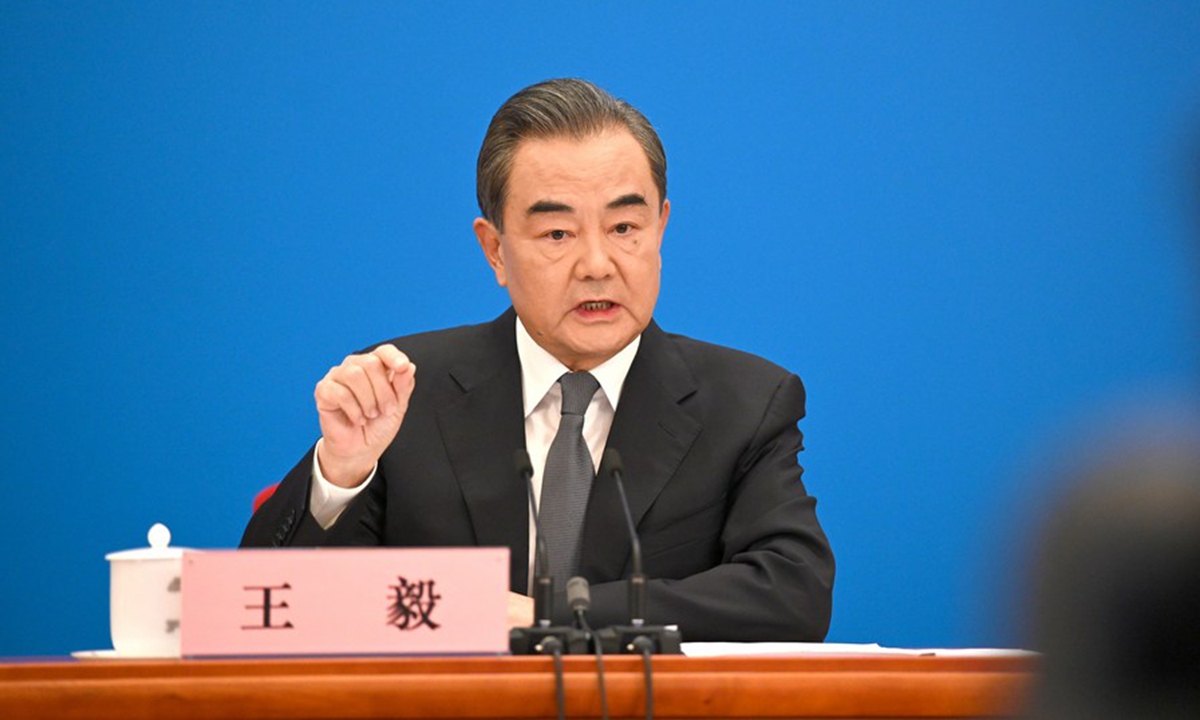
Chinese State Councilor and Foreign Minister Wang Yi. Photo: Xinhua
Amid widespread opposition of the international community to US House Speaker Nancy Pelosi's visit to Taiwan island, Chinese State Councilor and Foreign Minister Wang Yi issued a statement Wednesday morning condemning US' intrusion of China's sovereignty. Pelosi blatantly visited the island in disregard of China's solemn representations, which is a serious violation of the one-China principle and malicious violation of China's sovereignty, Wang said.
Such blatant political provocation aroused the strong indignation of the Chinese people and widespread opposition from the international community. This once again proves that some US politicians have become "troublemakers" in China-US relations, and the US has become the "biggest destroyer" of peace and regional stability in the Taiwan Straits, Wang said.
The statement came after Pelosi landed in Taiwan for her provocative visit which violates the US' promise of opposing "Taiwan independence" secessionism, and the People's Liberation Army launched massive military drills around the island of Taiwan Tuesday night.
Wang urged the US to stop four fantasies, namely the fantasy of interfering in China's reunification process, of sabotaging China's development, of manipulating the geopolitical situation, and of confusing right and wrong. Taiwan is part of China, and realizing the reunification is the historical trend that is inevitable, Wang noted. We will never leave any room for the "Taiwan independence" secessionist forces or for the external forces to interfere.
No matter in what way the US supports and condones "Taiwan independence" secessionists, it will be doomed to fail, and it will only leave more ugly records of the US grossly interfering in other countries' internal affairs, Wang said.
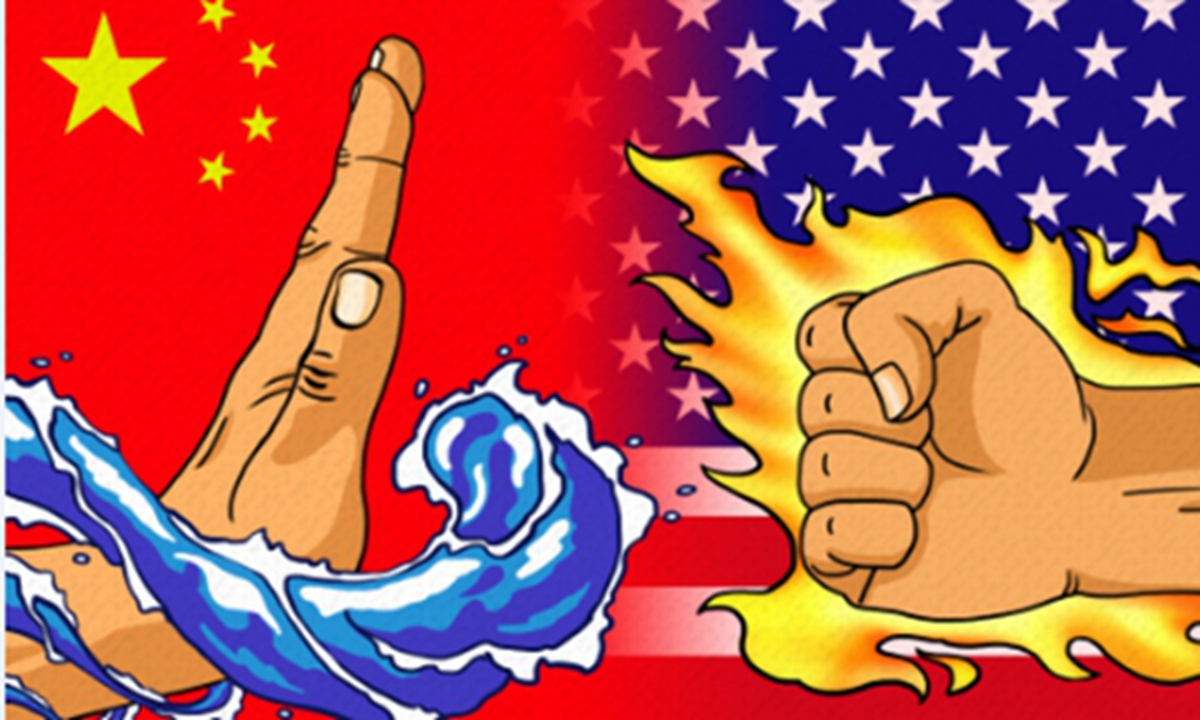
China's Vice Foreign Minister Xie Feng summoned US Ambassador to China Nicholas Burns overnight to protest against US House Speaker Nancy Pelosi's visit to Taiwan island late Tuesday night, stressing that the nature of Pelosi's visit is extremely vicious and the consequence is very grave. The Chinese side will not sit idly by.
Noting that the US government should have restrained Pelosi's unscrupulous move and prevented her from going against the historical trend but instead indulged her and colluded with her, which exacerbates the tension in the Taiwan Straits and seriously damages China-US ties, Xie said the US must pay the price for its own mistake. China will take necessary and resolute countermeasures and we mean what we say.
Shortly after Pelosi arrived at Taipei's Songshan Airport, five Chinese departments issued statements condemning the visit, which has a severe impact on the political foundation of China-US relations, seriously infringes upon China's sovereignty and territorial integrity, gravely undermines peace and stability across the Taiwan Strait, and sends a seriously wrong signal to the "Taiwan independence" forces.
On Tuesday night, the People's Liberation Army (PLA) launched massive military drills around the island of Taiwan, including a long-range live fire drill in the Taiwan Straits and a live fire conventional missile drill to the east of the island.
The PLA will conduct important military exercises and training activities including live-fire drills in six large maritime areas and their air space surrounding the island of Taiwan, in its north, northeast, east, south, southwest and northwest, from Thursday noon to Sunday noon.

A military vehicle affiliated with the Chinese People's Liberation Army Eastern Theater Command moves out at an undisclosed location for joint military exercises around the island of Taiwan on August 2, 2022. Photo: VCG
The Chinese People's Liberation Army (PLA) on Tuesday started to commence joint military exercises surrounding the island of Taiwan, featuring J-20 stealth fighter jets and test firing of conventional missiles that analysts said could fly over the island, right after US House Speaker Nancy Pelosi landed on the island, with additional important drills announced for days to come.
The drills, likely to be larger in scale than the one in the 1996 crisis, serve not only as warnings to the US and "Taiwan independence" secessionists, but also as rehearsals for the PLA to reunify the island by force, experts said.
Immediately after Pelosi's plane landed in Taipei on Tuesday evening, the PLA Eastern Theater Command announced it will start a series of joint military operations around the island of Taiwan starting Tuesday evening.
Joint maritime and air exercises will be held in sea and air spaces to the north, southwest and southeast of the island of Taiwan, long-range live-fire shooting will be held in the Taiwan Straits, and conventional missile test launches will be held to the east of the island of Taiwan, Senior Colonel Shi Yi, a spokesperson at the PLA Eastern Theater Command, said in a statement on Tuesday.
This means the island of Taiwan will be surrounded by PLA drills in five directions.
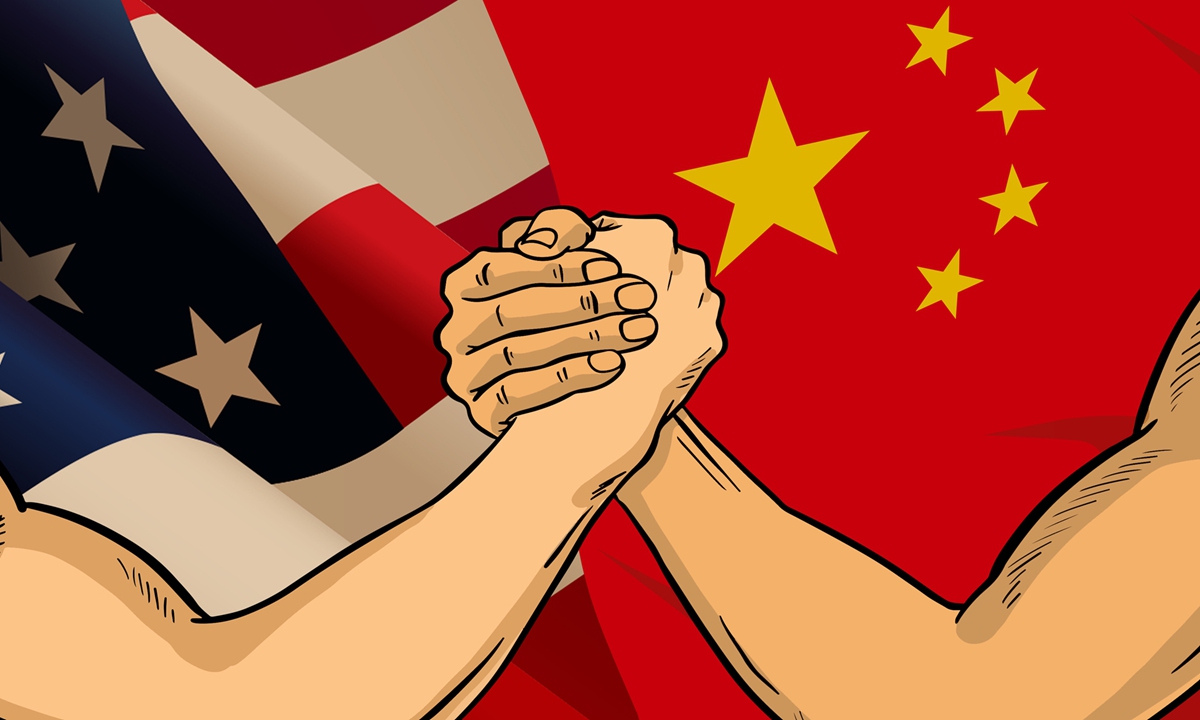
China-US relations Photo: GT
The People's Liberation Army (PLA), on the night that US House Speaker Nancy Pelosi landed in Taiwan for her provocative visit that violates the US promise of opposing "Taiwan independence" secessionism, launched massive military drills around the island of Taiwan, including a long-range live fire drill in the Taiwan Straits and a live fire conventional missile drill to the east of the island, with analysts saying China is not merely targeting a visiting 82-year-old US politician, but is eyeing the anti-secession campaign against the secessionist Taiwan authorities and is to concretely speed up the reunification process.
The PLA will also conduct a series of live fire military drills from August 4 to 7 in six different areas that encircle the island of Taiwan from all directions, according to the Xinhua News Agency after Pelosi landed at the Taipei airport. Analysts said there are many options on the table for China to speed up the reunification process. Apart from military drills, the options could include striking Taiwan military targets, just as the PLA did in the previous Taiwan Straits crisis, pushing new legislation for national reunification, sending military aircraft and vessels to enter the island's "airspace" and "water areas" controlled by the Taiwan authorities and ending the tacit cease-fire with the Taiwan military.
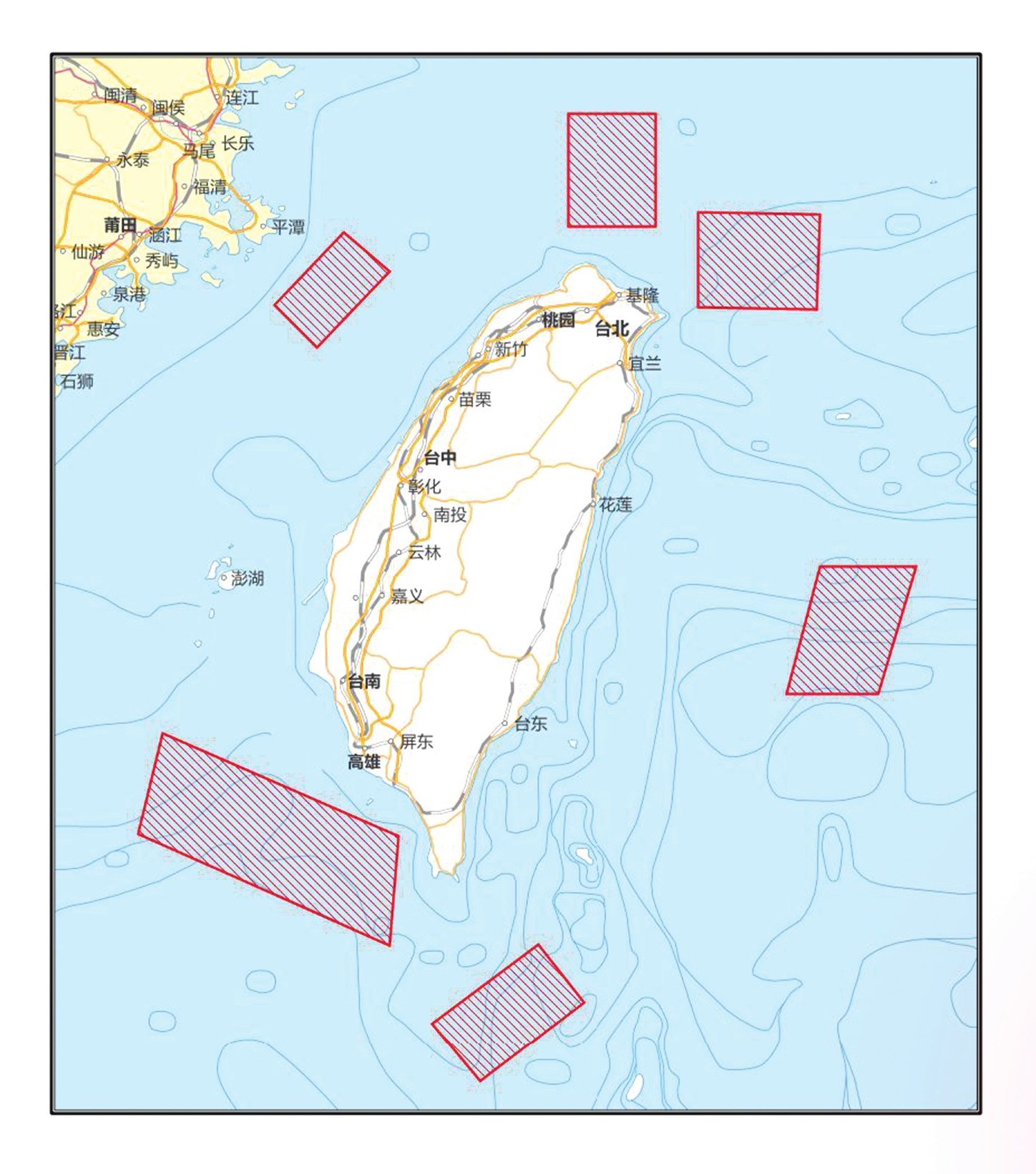
A sketch map shows the six regions where the People's Liberation Army will conduct important military exercises and training activities including live-fire drills surrounding the Taiwan island from August 4 to 7, 2022. Photo: Xinhua

A US military aircraft with US House Speaker Nancy Pelosi on board prepares to land at Songshan Airport in Taipei, the Taiwan island, on August 2, 2022. Pelosi landed in the island on the evening that day. Photo: AFP
Participating in the drills, J-20 stealth fighter jets took off from an airfield on Tuesday evening, with launchers of rockets and missiles also mobilizing under shades of the night, a report by China Central Television showed.
US House Speaker Nancy Pelosi Photo: AFP
US House Speaker Nancy Pelosi is expected to arrive on the island of Taiwan on Tuesday night according to foreign media reports, with rising concerns and opposition over her trip within the island and increasing military activities by the Chinese mainland, the Taiwan authorities and the US military in the region. Analysts from both sides of the Taiwan Straits said this risky move will totally change the situation in the region, while the mainland will more actively dominate and speed up the reunification process with comprehensive measures including military and political actions, and these actions will let the US and the secessionist Democratic Progressive Party (DPP) authorities feel the pain.
There are many options on the table for China to speed up the reunification process. These could include striking Taiwan military targets, just as the PLA did in the previous Taiwan Straits crisis, pushing new legislation for national reunification, sending military aircraft and vessels to enter the island's "airspace" and "water areas" controlled by the Taiwan authorities and ending the tacit cease-fire with the Taiwan military.
Whether Pelosi can make her trip to Taiwan happen or not, there is no reason for China to be nervous, because such a political show will not change the overwhelming advantages, especially the military one, held by the mainland against the Taiwan authorities and the US in the region. Nor will the trip provide any possibility of "Taiwan independence," and it cannot change the unshakable hard fact that Taiwan is part of China, said experts, noting that what China needs to do is to use this incident to maximize its advantage and keep pushing the reunification process.
Hua Chunying, a spokesperson of the Ministry of Foreign Affairs, said at a routine press conference on Tuesday that "it was the US who takes the provocative action first and has caused the escalation of Taiwan Straits tension. The US should and must take full responsibility for this."
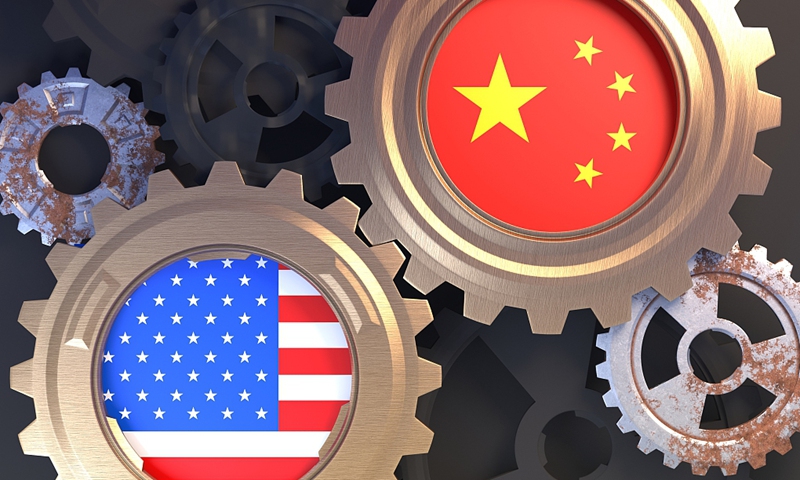
China-US Photo: VCG
As the world closely followed the visit of US House of Representatives Speaker Nancy Pelosi to Taiwan on Tuesday evening that is widely described as provocative and dangerous, the Biden administration gave more chicanery in distancing itself by stressing it was her personal choice and continued hollowing out the one-China principle that serves as the foundation of China-US relations. Chinese officials and experts warned that all the consequences of this highly dangerous and provocative move will be borne by Washington, and such visit will also forever change the cross-Straits situation and deliver a destructive impact on the already-difficult China-US relations.
Chinese Vice Foreign Minister Xie Feng summoned US Ambassador to China Nicholas Burns on early Wednesday morning to protest against Pelosi's visit to Taiwan island. The nature of Pelosi's visit is extremely vicious and the consequence is very grave. The Chinese side will not sit idly by, Xie told Burns.
Shortly after Pelosi arrived at the Taipei's Songshan airport, five Chinese authorities including the Chinese Foreign Ministry, Standing Committee of the National People's Congress, Taiwan Affairs Office of the Communist Party of China Central Committee, Foreign Affairs Committee of the Chinese People's Political Consultative Conference National Committee and the Ministry of National Defense issued statements condemning the visit, noting it seriously damages the political foundation of China-US relations and sends a wrong message to "Taiwan independence"forces.
On Tuesday evening just a few hours ahead of the planned arrival time of Pelosi in Taiwan, Chinese State Councilor and Foreign Minister Wang Yi stressed China's solemn position, warning that some US politicians who selfishly play with fire on the Taiwan question will become the enemies to 1.4 billion Chinese people, and won't meet with a good end. This serves as a final warning to the US to stop it from falling to the cliff, experts said.
On Aug. 2, in disregard of China's solemn representations and firm opposition, U.S. House Speaker Nancy Pelosi went ahead with her visit to China's Taiwan region. The move has gravely violated the one-China principle and the stipulations of the three China-U.S. joint communiques, gravely undermined China's sovereignty and territorial integrity, gravely impacted the political foundation of China-U.S. relations, and sent a seriously wrong signal to "Taiwan independence" separatist forces. China's NPC firmly opposes and strongly condemns the move.
There is only one China in the world, and Taiwan is an inalienable part of China's territory. The Government of the People's Republic of China is the sole legal government representing the whole of China. The one-China principle is the premise for the establishment of diplomatic relations between China and the United States, and is also the political foundation of China-U.S. relations. The United States has made solemn commitment to China on the Taiwan question, but in real action, it has constantly upgraded substantive relations and official exchanges with Taiwan, emboldened and supported "Taiwan independence" separatist forces, attempted to use Taiwan to contain China, and severely undermined the peace and stability across the Taiwan Strait. The Chinese government and the Chinese people have taken and will continue to take resolute and forceful measures to firmly safeguard China's sovereignty, security and development interests.
The Taiwan question bears on China's sovereignty and territorial integrity. For China, there is zero room for compromise and not an inch to give. The Anti-Secession Law has made clear stipulations on major issues including upholding the one-China principle, deterring separatist moves toward "Taiwan independence" and opposing interference in the Taiwan question by external forces. The stance of the Chinese government and the Chinese people on the Taiwan question has been consistent. It is the firm will of over 1.4 billion Chinese people to resolutely safeguard China's national sovereignty and territorial integrity. Any attempt to obstruct China's complete reunification and great national rejuvenation is doomed to fail.
U.S. House Speaker Nancy Pelosi visited China's Taiwan region on Tuesday, marking an escalation in the collusion between the United States and Taiwan. The move is of egregious nature and has serious consequences. It gravely infringes on China's sovereignty and territorial integrity, severely violates the one-China principle and the three China-U.S. joint communiques, seriously tramples on international law and the basic norms governing international relations, breaks the serious political commitment the United States has made to China, and sends a seriously wrong signal to forces seeking "Taiwan independence." We firmly oppose the move and express our strong condemnation and protest.
There is only one China in the world and Taiwan is part of China. The one-China principle is a widely recognized norm of international relations and a consensus accepted by the international community. The Taiwan question is a matter of China's internal affairs and allows no external interference. For some time, the U.S. government has repeated wrong acts and remarks regarding the Taiwan question, continued to upgrade the levels of official exchanges with Taiwan, intensified their military collusion, and continued arms sales to Taiwan to support Taiwan's attempt to "resist reunification by the use of force." The U.S. Congress has repeatedly made false remarks on Taiwan, put forward, deliberated and passed multiple negative bills regarding Taiwan. Such U.S. moves attempt to distort and hollow out the one-China principle, play "the Taiwan card," "contain China with Taiwan," and obstruct China's complete reunification and the rejuvenation of the Chinese nation. The current U.S. administration has not fixed the grave mistakes made by the previous administration. Instead, it has moved further to get allies on board and gang up with them to play "the Taiwan card," flagrantly attack the United Nations General Assembly Resolution 2758, and spread the erroneous "uncertain status of Taiwan" theory in an attempt to internationalize the Taiwan question.
The separatist attempt seeking "Taiwan independence" is the biggest obstacle to the reunification of the motherland, and a serious potential danger to China's national rejuvenation. The Democratic Progressive Party (DPP) authorities have entrenched themselves in the erroneous position of "Taiwan independence," served as a tool for anti-China forces in the United States to contain China, and become even more utterly brazen in the provocative attempt to seek "independence." This is a total misjudgment and miscalculation of the situation. Out of their selfish motives, the DPP authorities have been headstrong in challenging the one-China principle, refused to recognize the 1992 Consensus, ignited cross-Strait confrontation, and clung to U.S. support to seek "independence." The DPP authorities' separatist actions and collusion with the United States which betrays China's national interests, will only plunge Taiwan into the abyss of disaster, and bring great suffering to Taiwan compatriots.
The reunification of the motherland and the rejuvenation of the Chinese nation have become a historical inevitability. China must be and will surely be reunified. This will not change regardless of the will of some die-hard anti-China forces from the U.S. side or the illusion of separatist forces seeking "Taiwan independence." The time and tide of achieving the reunification of the motherland have always been held firmly in our hands. The fact that Taiwan is part of China will not be changed no matter what actions are taken by the anti-China forces in the United States and by the DPP authorities. The historical process of China's reunification will not be stopped no matter how Nancy Pelosi and her likes attempt to "contain China by supporting Taiwan."
Following is the full text of the statement:
On Aug. 2, in disregard of the Chinese side's firm opposition, Speaker of the U.S. House of Representatives Nancy Pelosi visited China's Taiwan region. The move gravely violates the one-China principle and the stipulations in the three China-U.S. joint communiques, gravely violates the basic norms governing international relations, gravely undermines the political foundation of China-U.S. relations, gravely damages China-U.S. relations, and is a major political provocation against the Chinese side. The CPPCC National Committee firmly opposes and strongly condemns the visit.
There is only one China in the world. Taiwan is an inalienable part of China's territory. The Government of the People's Republic of China is the sole legal government representing the whole of China. The Taiwan question is China's internal affairs. We firmly oppose any attempt and act aiming to split China, firmly oppose interference by any external forces in the peaceful reunification of China, and allow no country to meddle with the Taiwan question in any form. China must and will be reunified; this is an unstoppable trend of history. No one should underestimate the strong resolve, will and ability of the Chinese people to defend national sovereignty and territorial integrity.
The Taiwan question is the most important and sensitive core issue in China-U.S. relations. Regarding the Taiwan question, the current U.S. administration has on multiple occasions made the commitment to adhering to the one-China policy and not supporting "Taiwan independence." However, some recent remarks and actions by the U.S. side are in stark contrast to the commitment. We urge the U.S. side to honor its words, cease any kind of official exchanges with China's Taiwan region, stop interfering in China's internal affairs, stop sending any wrong signal to "Taiwan independence" separatist forces, and not to go further down the dangerous path. Any erroneous act that goes against the historical trend, aims to make an issue out of the Taiwan question and undermines China's sovereignty and territorial integrity is doomed to fail, and will boomerang in the end.
On 2 August, in disregard of China's strong opposition and serious representations, Speaker of the U.S. House of Representatives Nancy Pelosi visited China's Taiwan region. This is a serious violation of the one-China principle and the provisions of the three China-U.S. joint communiqués. It has a severe impact on the political foundation of China-U.S. relations, and seriously infringes upon China's sovereignty and territorial integrity. It gravely undermines peace and stability across the Taiwan Strait, and sends a seriously wrong signal to the separatist forces for "Taiwan independence". China firmly opposes and sternly condemns this, and has made serious démarche and strong protest to the United States.
There is but one China in the world, Taiwan is an inalienable part of China's territory, and the Government of the People's Republic of China is the sole legal government representing the whole of China. This has been clearly recognized by United Nations General Assembly Resolution 2758 of 1971. Since the founding of the People's Republic of China in 1949, 181 countries have established diplomatic relations with China on the basis of the one-China principle. The one-China principle is a universal consensus of the international community and a basic norm in international relations.
In 1979, the United States made a clear commitment in the China-U.S. Joint Communiqué on the Establishment of Diplomatic Relations -- "The United States of America recognizes the Government of the People's Republic of China as the sole legal Government of China. Within this context, the people of the United States will maintain cultural, commercial, and other unofficial relations with the people of Taiwan." Congress, as a part of the U.S. Government, is inherently obliged to strictly observe the one-China policy of the U.S. Government and refrain from having any official exchanges with China's Taiwan region. China is all along opposed to the visit to Taiwan by U.S. congressional members, and the U.S. executive branch has the responsibility to stop such visit. Since Speaker Pelosi is the incumbent leader of the U.S. Congress, her visit to and activities in Taiwan, in whatever form and for whatever reason, is a major political provocation to upgrade U.S. official exchanges with Taiwan. China absolutely does not accept this, and the Chinese people absolutely reject this.
The Taiwan question is the most important and most sensitive issue at the very heart of China-U.S. relations. The Taiwan Strait is facing a new round of tensions and severe challenges, and the fundamental cause is the repeated moves by the Taiwan authorities and the United States to change the status quo. The Taiwan authorities have kept seeking U.S. support for their independence agenda. They refuse to recognize the 1992 Consensus, go all out to push forward "de-sinicization", and promote "incremental independence". The United States, for its part, has been attempting to use Taiwan to contain China. It constantly distorts, obscures and hollows out the one-China principle, steps up its official exchanges with Taiwan, and emboldens "Taiwan independence" separatist activities. These moves, like playing with fire, are extremely dangerous. Those who play with fire will perish by it.

Civic groups, politicians, and business and industry representatives on the island of Taiwan on Tuesday protested against US House Speaker Nancy Pelosi's potential visit. Photo: Fan Lingzhi/Global Times
Civic groups, politicians, and business and industry representatives on the island of Taiwan on Tuesday protested against US House Speaker Nancy Pelosi's potential visit, amid drastically escalating military tension across the Taiwan Straits after US- and Taiwan-based media on Monday disclosed that the 82-year-old No.3 US official is expected to visit the island on Tuesday night.
The Taipei-based Chinese Patriotic Concentric Association took to the street at a site near the Grand Hyatt hotel in the Xinyi district, where Pelosi is reportedly to stay. The crowd ranged from a few hundred to about 1,000 people from various civic groups.
Gu Xijun, the vice president of the above group, told the Global Times that the protests and boycotts "will accompany Pelosi wherever she appears in Taiwan."
Zhang Xiuye, another Taiwan resident who has participated in the rally, told the Global Times that US politicians constantly create cross-Straits tensions and use Taiwan as their ATM.
"If we don't warn the Yanks in Taiwan, then we will be like Tsai Ing-wen who is acquiescing to the Yanks," she said. "Both sides of the Taiwan Straits are one family, and we can sit down and talk without the Yanks interfering. We sincerely hope for early reunification."
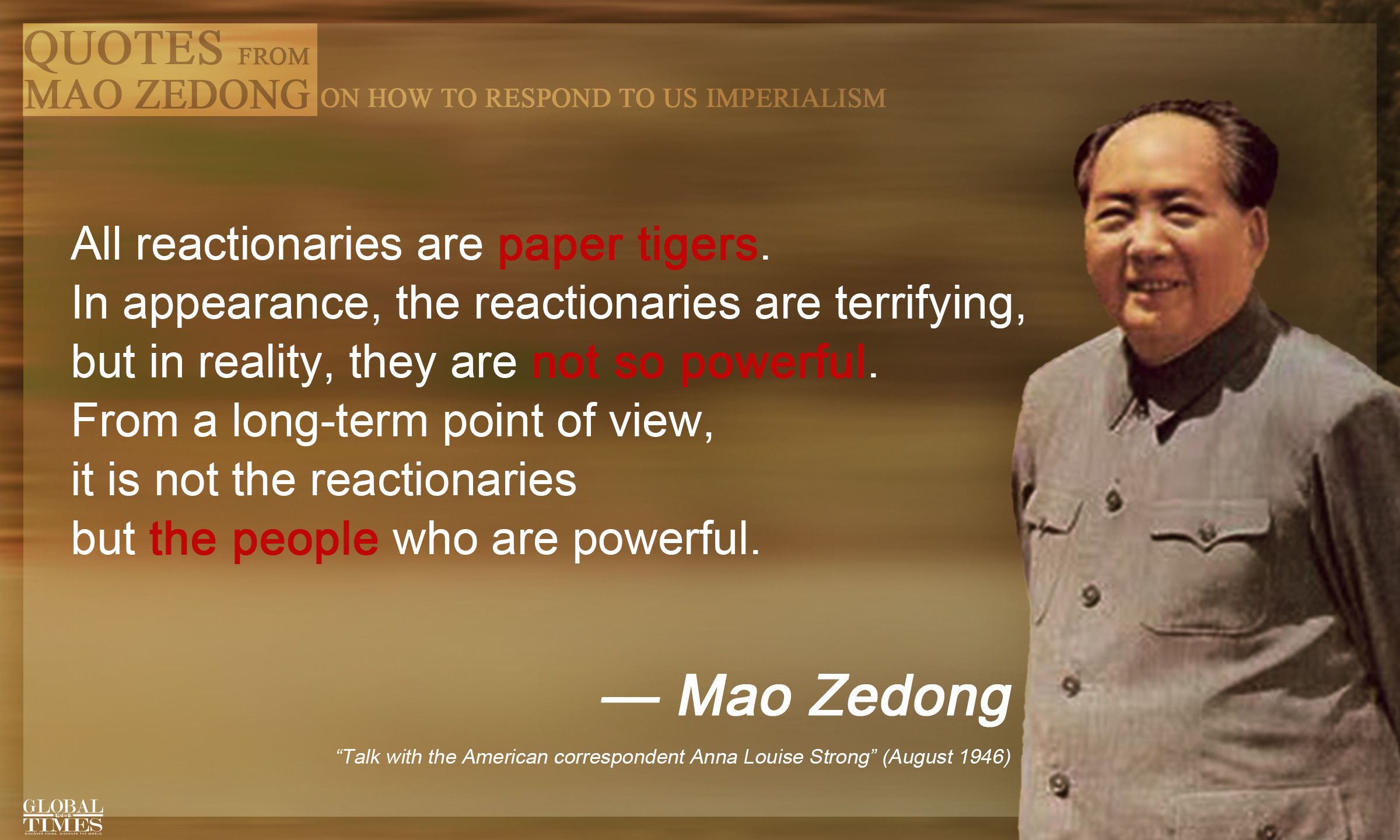
Quotes from Mao Zedong on how to respond to US imperialism Editor: Feng Qingyin/GT Graphic: Xu Zihe/GT
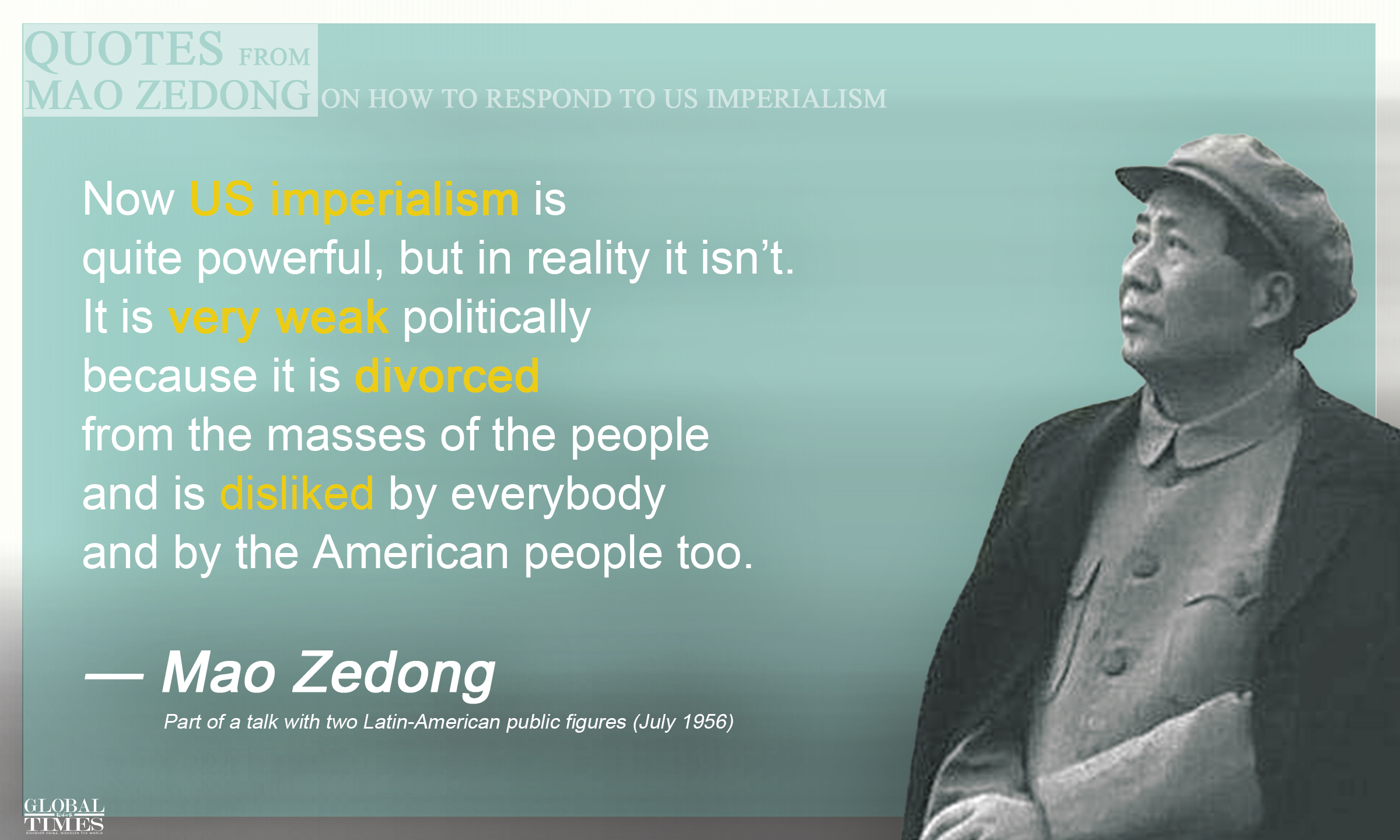
Quotes from Mao Zedong on how to respond to US imperialism Editor: Feng Qingyin/GT Graphic: Xu Zihe/GT
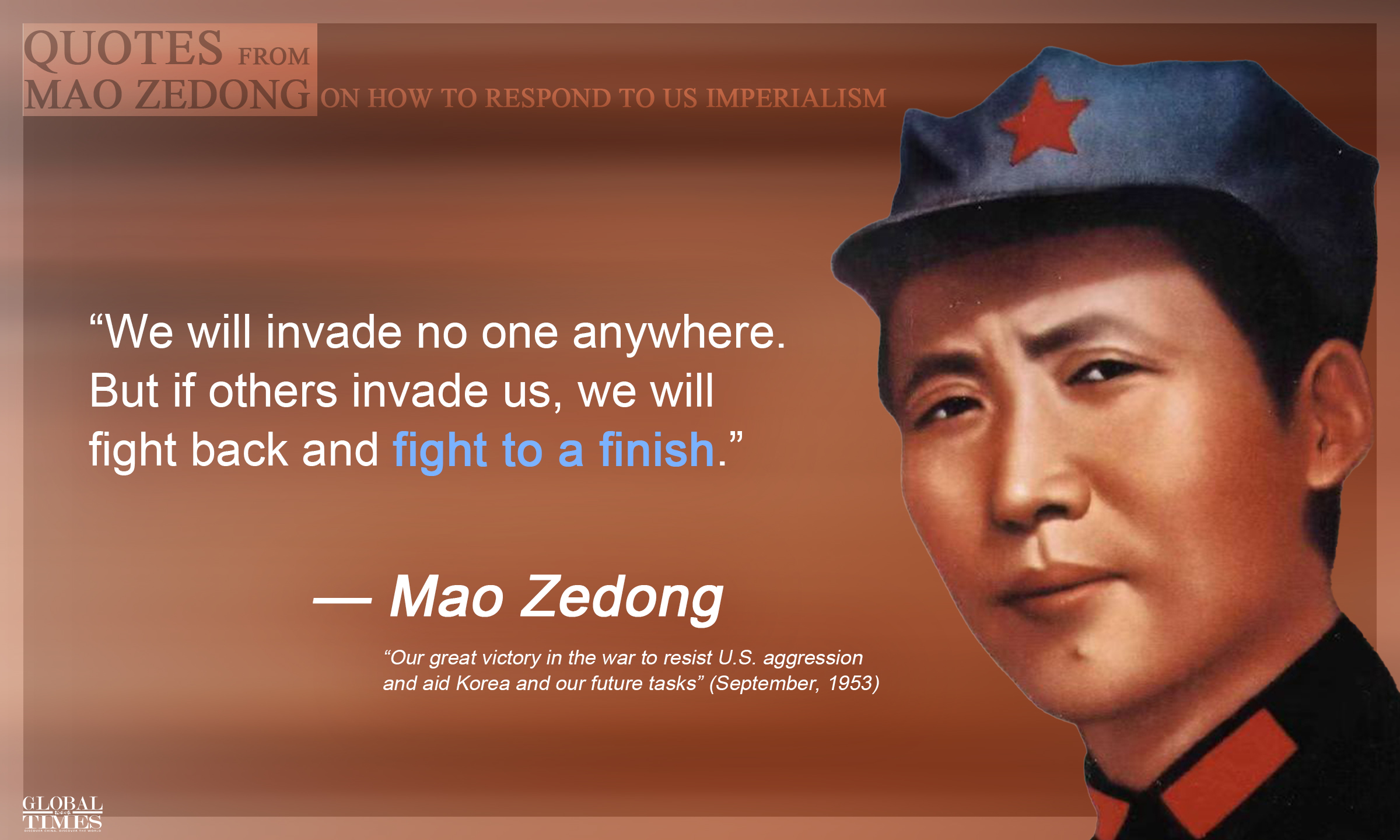
Quotes from Mao Zedong on how to respond to US imperialism Editor: Feng Qingyin/GT Graphic: Xu Zihe/GT
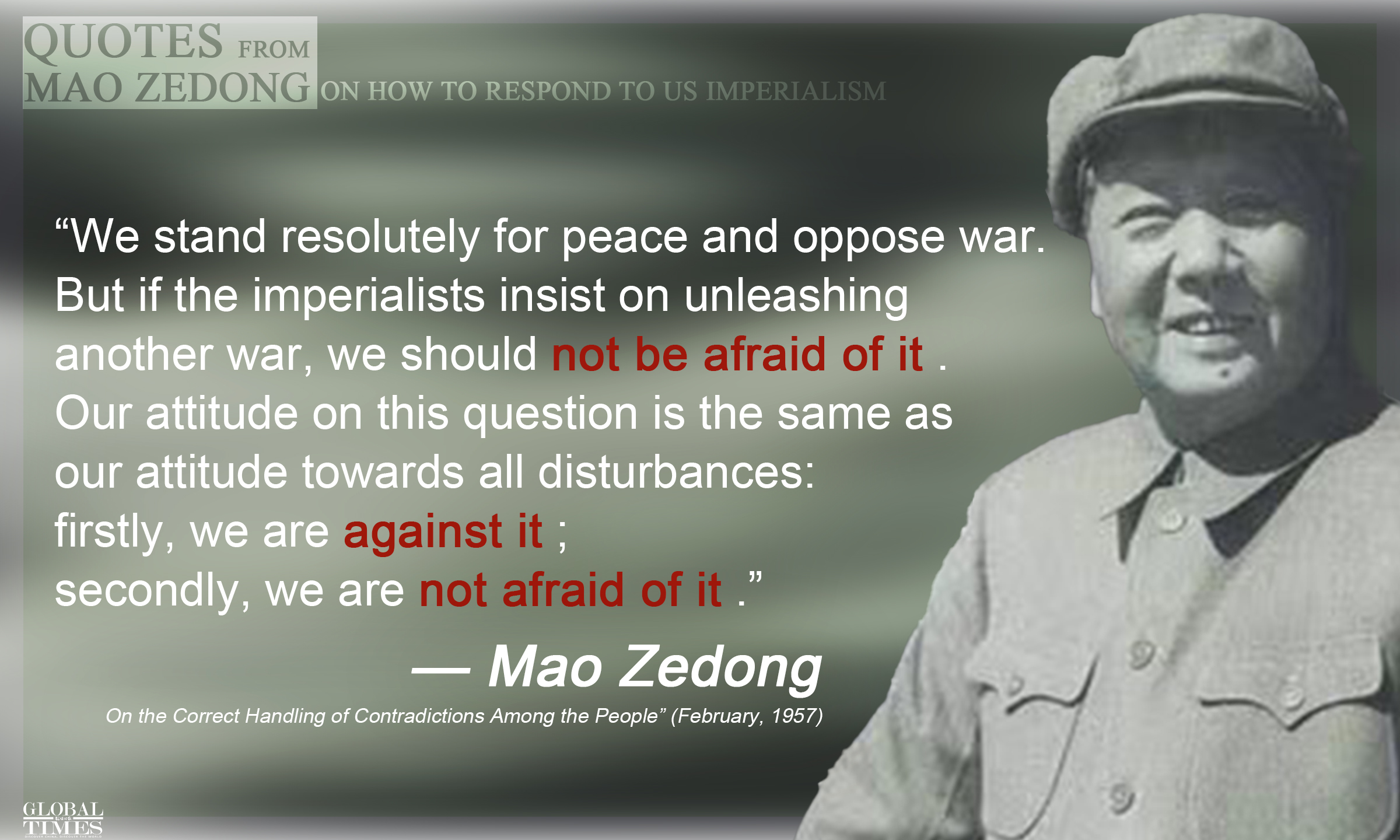
Quotes from Mao Zedong on how to respond to US imperialism Editor: Feng Qingyin/GT Graphic: Xu Zihe/GT

Taiwan Photo: Unsplash
The intensity of the situation across the Taiwan Straits has drastically escalated as the military deployment from the Chinese mainland, US and the island of Taiwan continues creeping up, after US and Taiwan-based media disclosed that US House Speaker Nancy Pelosi is expected to visit the island on Tuesday night, a serious provocation and violation to China's sovereignty and territorial integrity which would be met with severe countermeasures from the Chinese military.
According to the website of China's Maritime Safety Administration, the Shandong Maritime Safety Administration issued a navigation warning, saying that the Weifang port in Bohai Sea will conduct live fire from 15:00 to 24:00 on August 3. The Qinglan Maritime Safety Administration of South China's Guangdong Province also issued a navigation warning due to conducting military training in parts of the South China Sea from Tuesday to Saturday.
Citing "officials", Taiwan-based media on Monday said Pelosi is expected to land in Taipei on Tuesday evening and stay in Taipei overnight at the Grand Hyatt hotel in Xinyi district. CNN also released similar information, saying that "Pelosi is expected to visit Taiwan as part of her tour of Asia."
The Fujian Provincial Military Command neighboring Taiwan posted videos and pictures on Tuesday about a live-fire exercise, which aims to "test overall combat capability under complex conditions." It said that the minuteman missile unit, anti-aircraft artillery unit, radar unit and other combat units participated in the exercise, the first time in recent years that a provincial military command has organized a multi-branch and multi-professional militia to conduct live fire

Pelosi's dangerous gamble Cartoon: Carlos Latuff
Donald Trump's election as US president in November 2016 marked the end of over four decades of relative stability in US-China relations. Ever since, it has been downhill all the way with barely a pause. Five years have passed and we have seen two US presidents. It would be an exaggeration to suggest that relations are in freefall, but the relationship is patently now unhinged. Predictability has been replaced by uncertainty. Trust has evaporated. It is impossible to predict what the state of the relationship will be after the US congressional elections in November, or after the next presidential election in 2024. The huge uncertainty surrounding the much-mooted visit by Nancy Pelosi to Taiwan this week summed up the present highly charged and intensely volatile nature of US-China relations. It is a salutary fact that neither President Xi Jinping nor even President Joe Biden knew whether that visit would actually go ahead.This is a very dangerous situation. The relationship has lost all predictability. Where previously the US-China relationship was based on a well-established and deep mutual understanding and respect for each other's position, now there is very little, at times seemingly none. The guardrails that prevented the relationship suddenly swerving off course are no longer in place, as we have seen so dramatically over the last week or so. What makes the situation even more dangerous, frightening in fact, is the growing power vacuum in the US. Biden, up until the last minute, did not appear to know whether fellow-Democrat Pelosi would go to Taiwan. As we have seen, on two different occasions his aides intervened to reassure the media that had to reinterpret his suggestion that the US would come to Taiwan's defence in the event of Chinese military action.
It is impossible to predict who might be US president in 2024. It is not difficult, for example, to imagine the return of Trump or someone even worse. Meanwhile, driving the process of polarisation and fragmentation in the US is American decline. It is this, above all, which is responsible for the growing breakdown of the global order. We have entered the age of disorder and instability, both in the US itself and, of course, in the wider world. It represents a mortal threat to global peace. In just a few short years, the language of war, conquest and conflict has replaced the language of cooperation and peace. The idea of war is becoming progressively normalised. That means there is a rising likelihood of it actually happening.
It is no accident that the flashpoint is Taiwan. One of Trump's first actions as president was to take a call from Tsai Ing-wen, the first time since 1979 that a US president had spoken with a Taiwanese regional leader. He even began to question the One-China policy, although he was dissuaded from pursuing this by wiser heads. One of the great achievements of the Nixon-Mao rapprochement was a series of understandings that for the next 40 years would inform and underpin the US-China relationship on Taiwan question. Once the US-China relationship began to unravel after 2016, it was inevitable that Taiwan question would once again become a hot-button issue.
For China, nothing is more important than the return of the lost territories and the reunification of China. For China this is an existential question. Notwithstanding this, the PRC has shown great patience ever since the illegal occupation of the island by Chiang Kai-shek in 1949. Mao made it clear to Kissinger that China would be patient providing the One-China policy was strictly observed and the Taiwanese government did not declare independence. According to Kissinger, Mao said, "We can do without Taiwan for the time being, and let it come after 100 years."

The picture shows aircraft carrier Shandong berths at a naval port in Sanya. China's first domestically-made aircraft carrier Shandong (Hull 17) was officially commissioned to the PLA Navy at a military port in Sanya, South China's Hainan Province, on the afternoon of December 17, 2019, making China one of the few countries in the world that have multiple carriers. Photo:China Military
Both of aircraft carriers of the Chinese People's Liberation Army (PLA) Navy have reportedly moved out from their homeports respectively amid US House Speaker Nancy Pelosi's possible visit to the island of Taiwan, which media reported could happen Tuesday evening.
The aircraft carrier Liaoning on Sunday embarked on a voyage from its homeport in Qingdao, East China's Shandong Province, and the aircraft carrier Shandong on Monday set out from its homeport in Sanya, South China's Hainan Province, accompanied by a Type 075 amphibious assault ship, media on the island of Taiwan reported on Tuesday.
Foreign commercial satellite imageries obtained by the Global Times on Tuesday also show that the aircraft carrier Liaoning was not in its homeport on Sunday, a Type 075 amphibious assault ship was sailing in the South China Sea on Sunday, and the aircraft carrier Shandong was sailing in the South China Sea on Monday.
A report by state broadcaster China Central Television (CCTV) on Monday shows that the Liaoning was sailing at sea when sailors aboard celebrated the Army Day.
Xu Ying, executive officer of the Shandong, said in a separate CCTV report on Monday that the Shandong was conducting regular training mission at the time.
The PLA will conduct more dual aircraft carrier training in the future, Xu said.
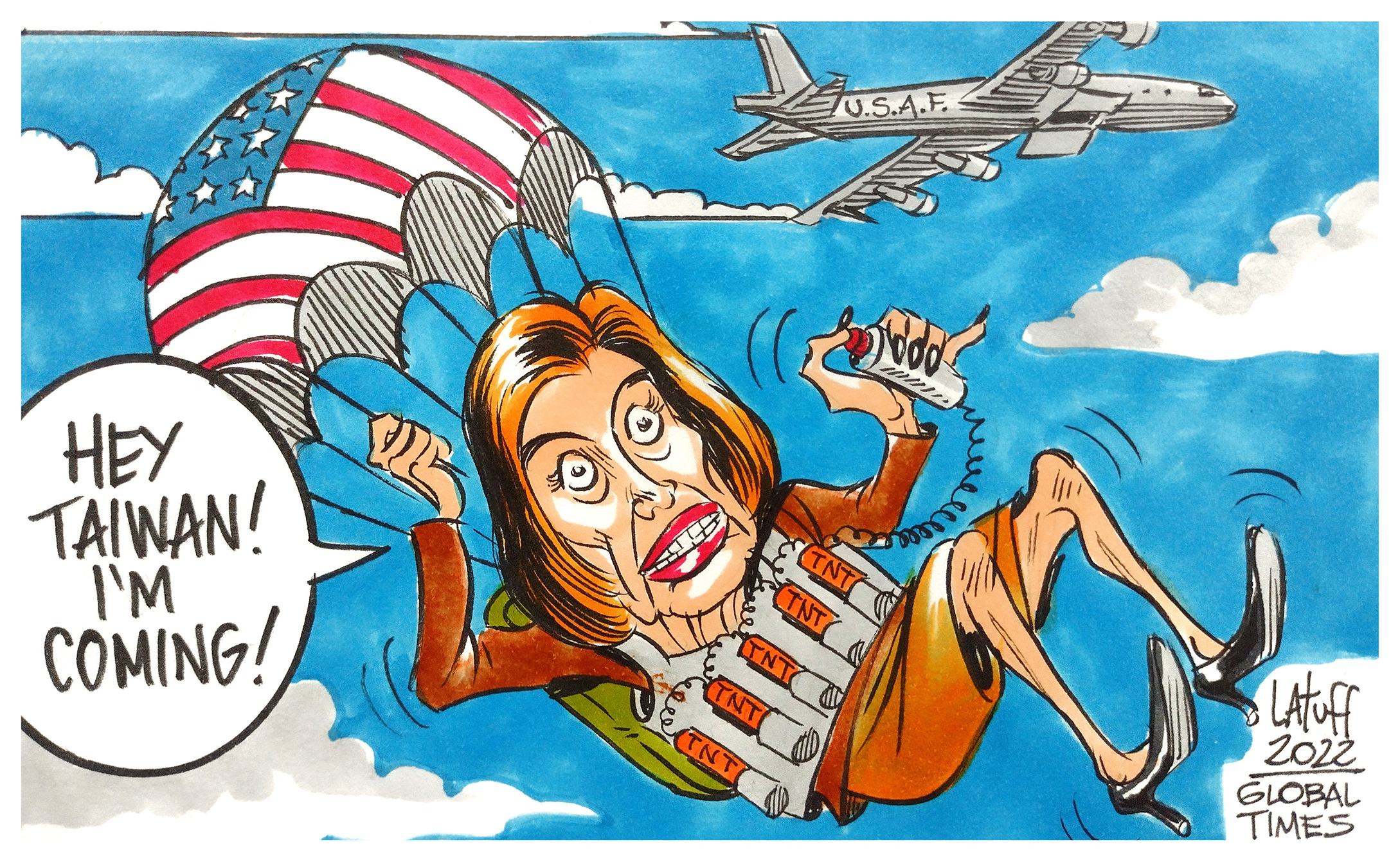
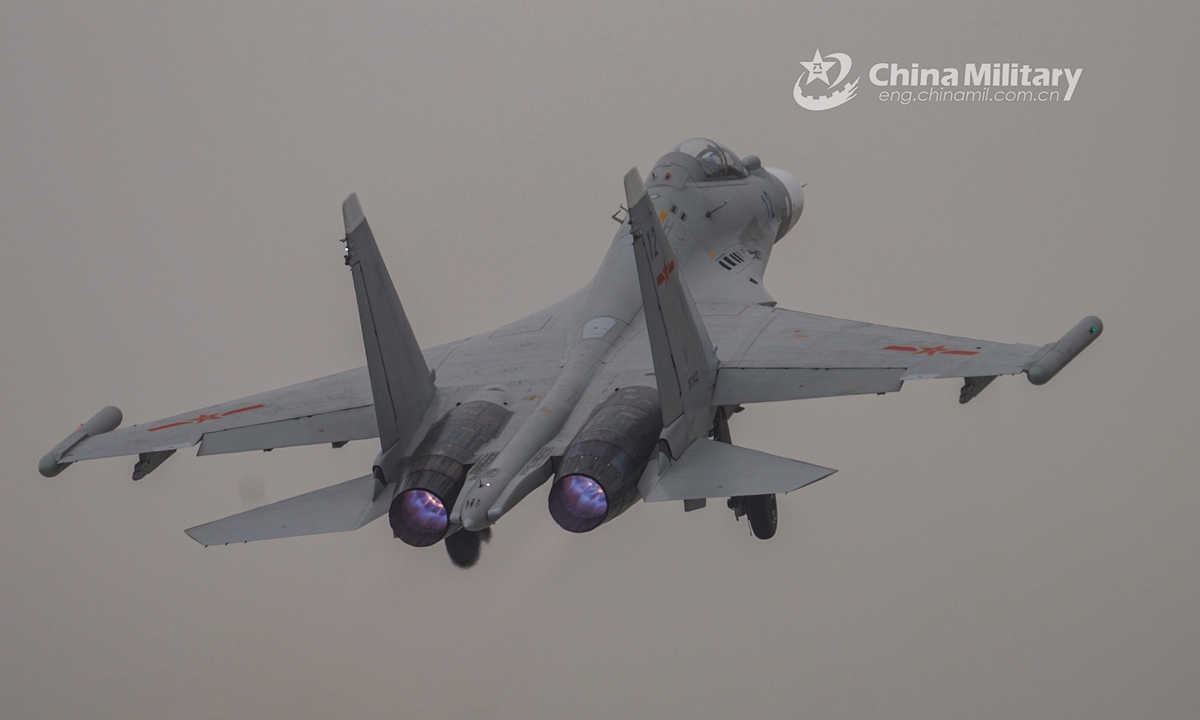
A fighter jet attached to a naval aviation brigade under the PLA Eastern Theater Command soars into the sky during a flight training mission on December 16, 2021. Photo:China Military
Chinese mainland defense stocks finished higher on Tuesday, buoyed by the People's Liberation Army (PLA)'s preparations and drills amid the possible visit of US House Speaker Nancy Pelosi to the island of Taiwan.
Amid growing geopolitical tensions, Chinese mainland stocks weakened on Tuesday. The benchmark Shanghai Composite Index dropped by 2.26 percent, while the smaller Shenzhen index down 2.37 percent. A total of 4,400 stocks fell, with shares related to metals, securities and real estate leading the drop. In Hong Kong, the Hang Seng Index slid 2.65 percent by 3:30 Tuesday.
However, Chinese defense stocks saw a strong performance in Tuesday's market, with Anhui Great Wall Military Industry Co reaching its daily cap of 10 percent to close at 13.37 yuan ($1.98), Bestway Marine & Energy Technology Co trading on Nasdaq-like ChiNext board up 15.09 percent and Guangzhou Hangxin Aviation Technology Co up 14.07 percent.
Amid a tense geopolitical atmosphere, the weighted stock index of Taiwan stock market fell 1.57 percent by 3:30 pm Tuesday, extending Monday's losses.
Asian markets also tumbled on Tuesday. Japan's Nikkei 225 was down by 1.42 percent while MSCI's broadest index of Asia-Pacific shares retreated 1.46 percent.
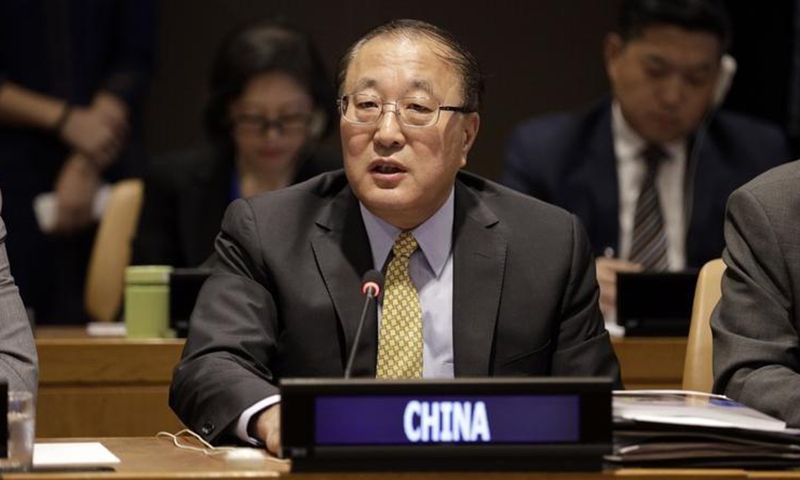
Zhang Jun Photo: Xinhua
Amid escalating cross-Straits tensions due to possible visit of US House Representatives Speaker Nancy Pelosi, China's top official to the UN warned that the visit is dangerous and provocative, as the one-China principle is a red line in China's relations with other countries, and China allows no one to cross this red line.
Zhang Jun, permanent representative of China to UN, further elaborated on China's positions on the Taiwan question and Pelosi's potential visit at a press briefing on Monday as China assumes the rotating presidency of the Security Council in August. Taiwan is an inalienable part of China's territory. The one-China principle is a red line in China's relations with other countries, and we allow no one to cross this red line, he said.
"China firmly opposes any separatist move toward 'Taiwan Independence' and any interference by external forces, and allows no room for 'Taiwan Independence' in whatever form," he said.
The Chinese official also pointed out that China has repeatedly made clear to the US its serious concerns over Speaker Pelosi's potential visit to Taiwan as well as China's firm opposition to it. Such a visit is apparently dangerous and provocative. It will send a seriously wrong signal to the separatist elements seeking "Taiwan Independence," undermine the one-China principle, undermine China's sovereignty and territorial integrity, undermine the peace and stability in the Taiwan Straits, and undermine the relationship between China and the US.
During a closely-watched trip to Asia, Pelosi is reportedly expected to visit the island, several US media reported on Monday, citing unnamed US officials, despite that China has sent out stern warnings to the Biden administration with the People's Liberation Army being fully prepared for any eventuality.

A naval fleet comprised of the guided-missile destroyers Ningbo (Hull 139) and Taiyuan (Hull 131), as well as the guided-missile frigate Nantong (Hull 601), steams in astern formation in waters of the East China Sea during a maritime training drill. Photo:China Military
The Chinese Foreign Ministry and the People's Liberation Army (PLA) are keeping up the pressure on the US over House Speaker Nancy Pelosi's potential visit to the island of Taiwan, urging the US to honor US President Joe Biden's promise to not support "Taiwan independence," while media outlets from the US and Taiwan reported that Pelosi is expected to visit the island shortly.
In celebration of the 95th anniversary of the founding of the PLA, the PLA Eastern Theater Command on Monday released a video on social media, along with the message "We are fully prepared for any eventuality. Fight upon order, bury every intruder, move toward joint and successful operation!" The video has become one of the hottest topics on Sina Weibo, China's Twitter-like social media platform. The hashtag on the topic has received at least 42.5 million views, with many netizens seeing it as a clear warning to Pelosi, who could make a surprise and provocative trip to China's Taiwan island.
Citing "officials", Taiwan-based Next TV on Monday said Pelosi is expected to stay in Taipei overnight at the Grand Hyatt hotel in Xinyi district, but it's unclear exactly when she will arrive. CNN also released similar information, saying that "Pelosi is expected to visit Taiwan as part of her tour of Asia," according to a senior official from the Taiwan authorities and a US official.
Chinese Foreign Ministry spokesperson Zhao Lijian also said at a routine Monday press conference, "If you play with fire, you will get burned. I believe the US is fully aware of the strong and clear message delivered by China."
If Pelosi visits the island of Taiwan, "the PLA will not sit idly by" and will take "resolute and strong countermeasures" to protect China's sovereignty and territorial integrity. As to what these measures are, Zhao said "if she dares to go, let's wait and see."
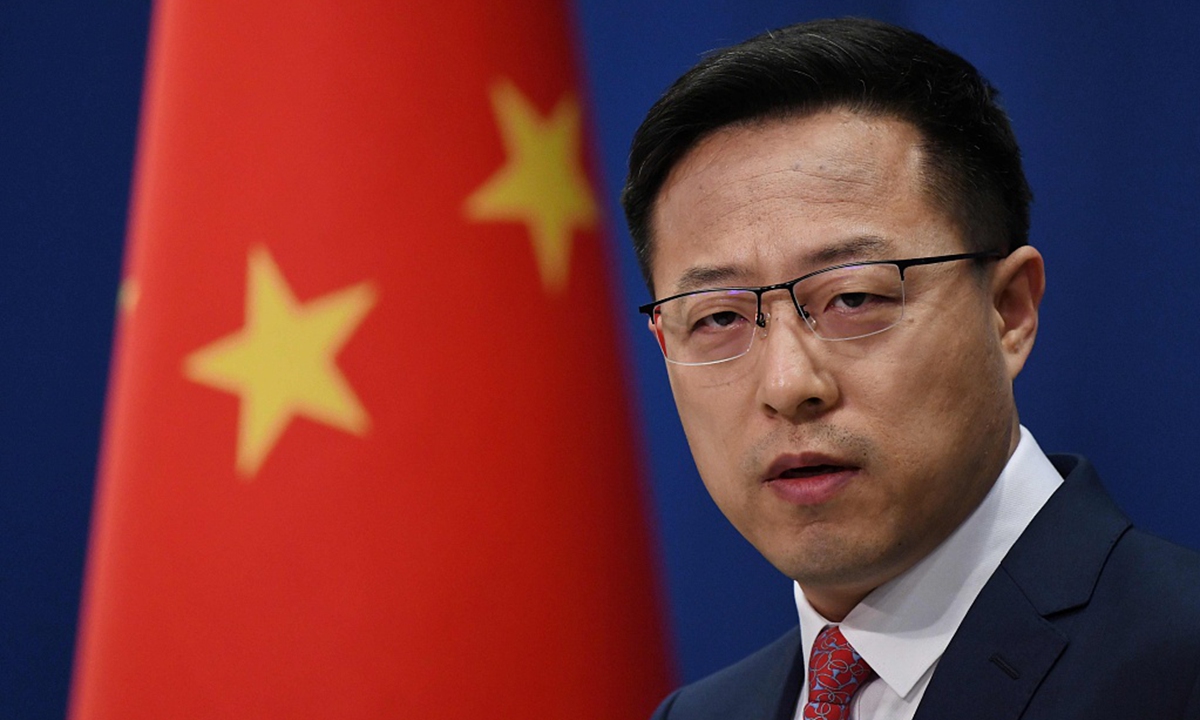
Chinese Foreign Ministry spokesperson Zhao Lijian on Monday reiterated a warning that the US should not arrange a visit by US House Speaker Nancy Pelosi to the island of Taiwan, stressing that it would lead to serious consequences.
Pelosi's status as the No. 3 politician in the US means that her visit to the island of Taiwan would be highly sensitive, Zhao said, highlighting that no matter when or how she goes to the island, it will seriously violate the one-China principle and the three China-US joint communiqués, and thus seriously undermine bilateral relations and have a negative political impact.
The Chinese Foreign Ministry, China's Ministry of National Defense, and the Taiwan Affairs Office of the State Council have spoken out six times in nine days, urging Pelosi to abandon the trip to the island, which would be a serious provocation of China's bottom line.
Pelosi arrived in Singapore on Monday after a weekend stopover in Hawaii to consult with American commanders responsible for the Indo-Pacific, the New York Times reported, noting that Pelosi said in a statement that she was planning to travel on with a congressional delegation for high-level meetings in Malaysia, South Korea and Japan, without mentioning the island of Taiwan.
It would not be unusual to omit Taiwan from an announcement given the security concerns, and Pelosi was expected to proceed with the plan for the highest-level visit by an American official to the island in 25 years, media reports quoted US President Biden's aides as saying.
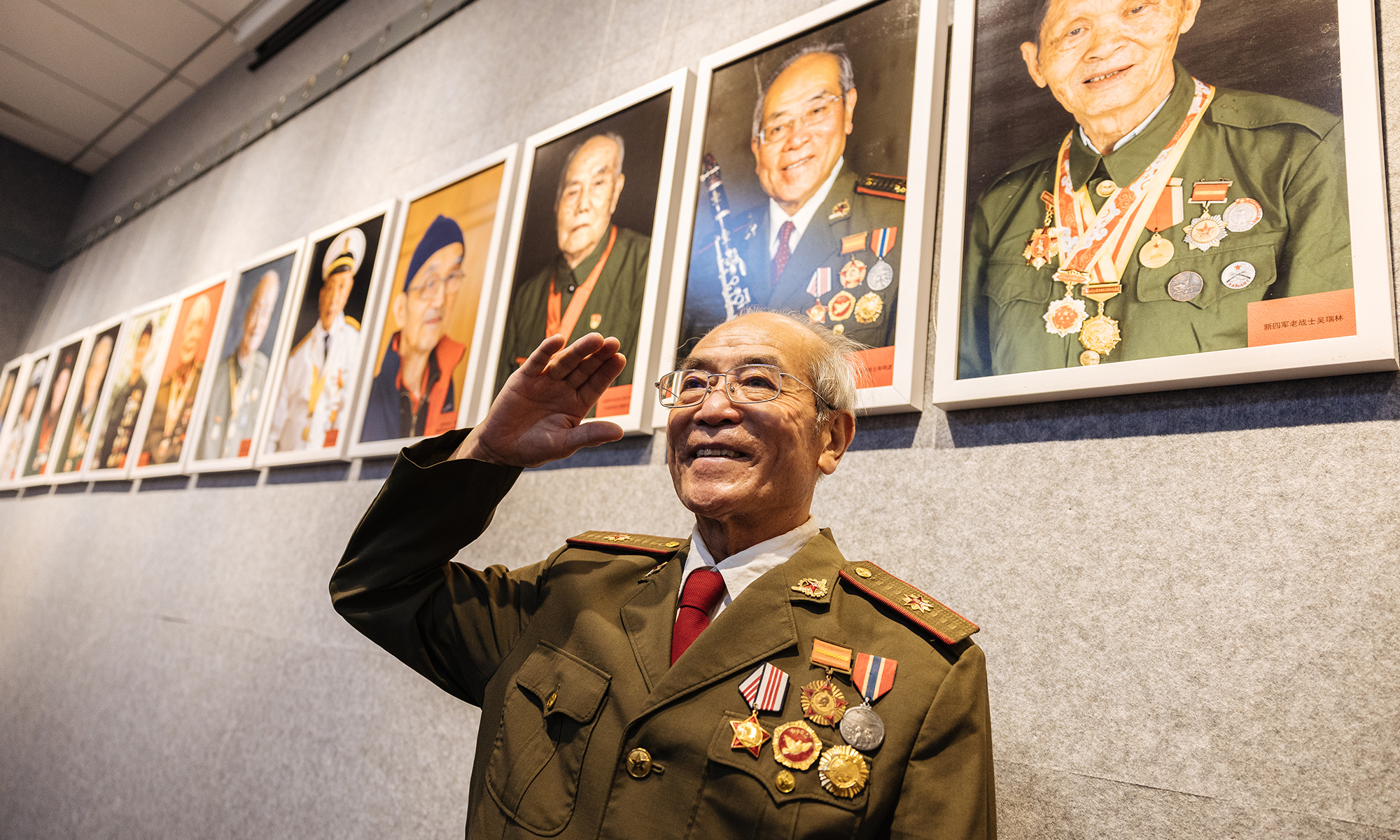
Photo: Li Hao/GT
At a time when tension is rising in the Taiwan Straits amid US House Speaker Nancy Pelosi's possible visit to the island of Taiwan, Chinese soldiers and people celebrated the special anniversary of the founding of the Chinese People's Liberation Army (PLA) on Monday, the Army Day, with a strong passion to demonstrate that whether they are soldiers or not, Chinese people always have the faith and spirit of the PLA in their hearts to firmly safeguard national sovereignty and territorial integrity.
Starting on Monday morning, China's national flags were raised in multiple military camps and cities from the northernmost city Mohe to the southern Yongshu Reef to commemorate the 95th anniversary of the founding of the PLA.
The video of guards raising the national flag at Tiananmen Square in Beijing went viral on China's Twitter-like Sina Weibo, with many netizens saying that they were impressed and touched by the strong sound of the footsteps of the flag guards, which reminded them of the firm steps of the PLA, from where China was faced with enduring impoverishment and long-standing debility to where it is now.
"We guard the flight of 'Flying Sharks' in the Bohai Bay. Please rest assured, the Party and the people!" Standing next to the "Flying Sharks" (China's J-15 fighter jets), several PLA Navy officers and soldiers vowed to protect the country and the people in a video released by military.cnr.cn on Monday.
The Eastern Theater Command also released a video on Monday showing advanced weapons and hot-blooded scenes of its training.
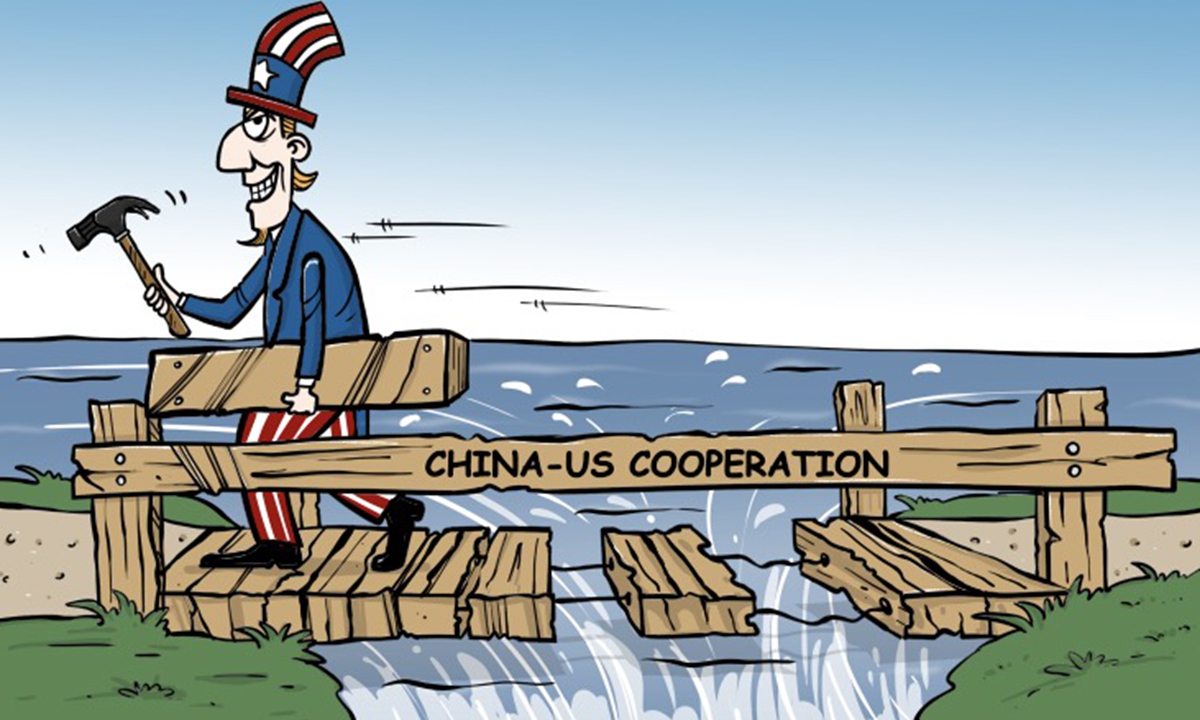
Illustration: Chen Xia/GT
A new Taiwan Straits crisis could break out. If Nancy Pelosi, speaker of the US House of Representatives, finally decides to visit Taiwan island during her official trip to Asia, or citing any private reasons, it will definitely have a huge impact on the remaining foundation of cooperation in China-US relations. This could also firm up China's determination to fight against US provocations and make the US pay the bitter price it deserves. To a certain extent, it will also accelerate the process of China's reunification.An old Chinese saying goes "avoid being too pushy to avoid being pushed aside." The US should learn from it. The US in recent years has been making waves, which, I believe, has made it increasingly impossible for China to help and cooperate with US interests on issues such as trade, manufacturing, debt, and anti-terrorism, if the US has such demands in future.
Pelosi should abandon any potential Taiwan trip. This is what she is supposed to do. If she gives up, that means the US still has a clear estimation of itself and it would also remind the US that this is a completely unnecessary diplomatic event. The US government should understand that repeatedly playing tricks and especially playing with fire over the Taiwan question won't bring the US benefits, but losses.
The US should know that China is not a country to be trifled with. There is room for negotiations over some ordinary issues. But when key issues and China's core interests are concerned, the Chinese people will definitely fight to the end. The Taiwan question is now more and more like the "gray rhino" in China-US relations. Once a crisis breaks out, the US is sure to be the first one to be hit by the "gray rhino."
There is possibility of a Taiwan Straits crisis breaking out. But China is not afraid of such a crisis and is confident in managing it. China has gradually become familiar with the US approaches against China over the past 40 years, especially in the past four or five years. From the trade war, to Xinjiang and South China Sea issues, to Hong Kong and human rights affairs, and now to the Taiwan question, China has been more adept and powerful in counterattacking US provocations.

A fighter jet attached to a naval aviation brigade under the PLA Eastern Theater Command soars into the sky during a flight training mission on December 16, 2021. Photo:China Military
The People's Liberation Army (PLA) Eastern Theater Command has recently organized naval aviation force to conduct mock air combat training after midnight, aiming to promote the pilots' ability to quickly enter combat status for abnormal situations at any time.
The drills came amid a possible Taiwan visit of US House Speaker Nancy Pelosi, who had reportedly arrived in Singapore late on Sunday night, with analysts suggesting that the PLA could send warplanes to intercept her plane should she attempt to land in Taiwan.
The Eastern Theater Command also released a video on Monday showing advanced weapons and hot-blooded scenes of its training.
"We are fully prepared for any eventuality. Fight upon order, bury every intruder, and move toward joint and successful operations! We are PLA soldiers, we swear to defend the motherland to the death," soldiers from the command said in the video.
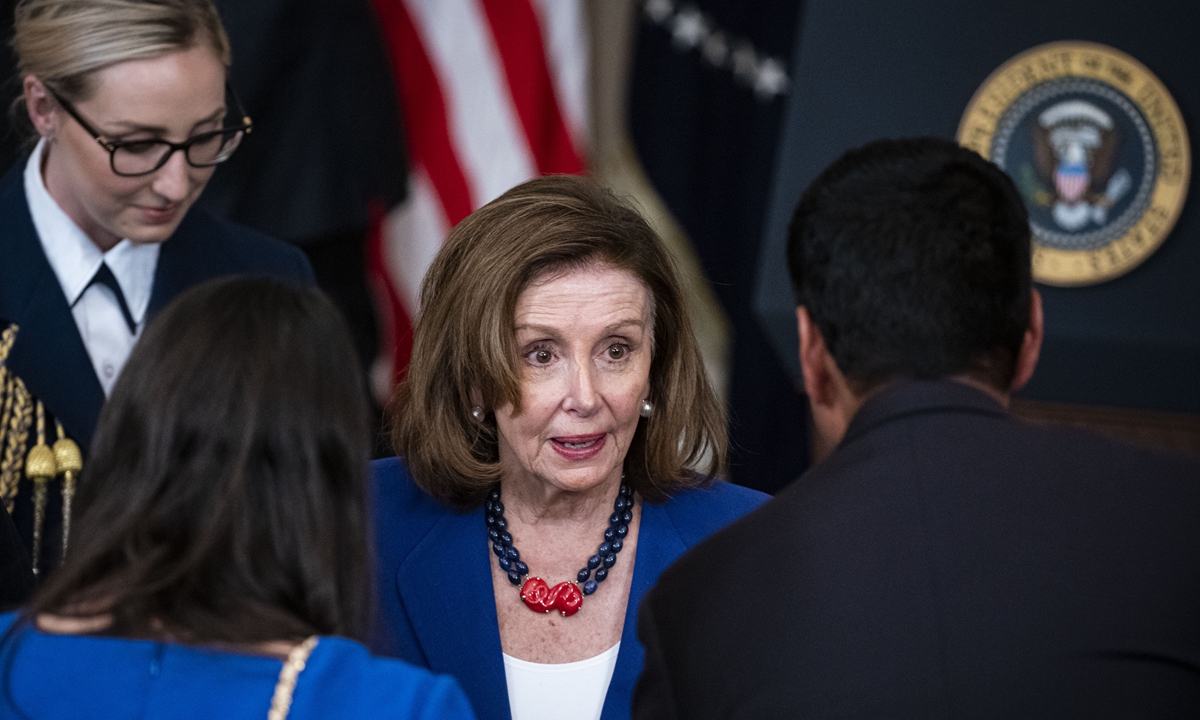
US House Speaker Nancy Pelosi. Photo: VCG
US House Speaker Nancy Pelosi has finally announced her Asia trip plan on Sunday that includes Singapore, Malaysia, South Korea and Japan with no mention of Taiwan, but this is still far from being able to give a sigh of relief and the potential danger still exists, said experts, as she might also try to make surprise visit to the island during her Asia trip, noting that no matter what happens, China will keep high alert to be fully prepared for military conflict.Efforts from relevant parties should continue and be strengthened until the crisis is totally averted after Pelosi finishes her trip to Asia amid China's powerful military determination, diplomatic efforts and clear warning signals, as well as persuasion from the White House, the Pentagon, rational US scholars and politicians including former US president Donald Trump, as well as Russian Foreign Ministry Spokesperson Maria Zakharova, Chinese experts said.
It is still possible that Pelosi wants to make a risky and dangerous move by trying to land at a Taiwan airport with emergency excuses like an aircraft fault or refueling, so the Chinese military patrols, radar detections and relevant drills should still keep at high alert in coming days, said analysts.
If Pelosi's plane really has emergency problems during her trip around China, the People's Liberation Army (PLA) aircraft can provide protection to her plane and let her land at airports in China's Sansha city, Hainan Province in the South China Sea, or other airports in the Chinese mainland which could provide professional services and assistance, as long as the speaker's plane stays away from China's Taiwan.
According to a press release by the website of the House Speaker, Pelosi is leading a "Congressional delegation to the Indo-Pacific region, including visits to Singapore, Malaysia, South Korea and Japan. The trip will focus on mutual security, economic partnership and democratic governance in the Indo-Pacific region."

Amphibious armored infantry fighting vehicles (IFV) of an army brigade under the PLA Eastern Theater Command form battle formations in waves during a maritime combat training exercise on June 30, 2022. Photo:China Military
At a time when US House Speaker Nancy Pelosi is reportedly planning a trip to the island of Taiwan in a very provocative and risky move that could escalate tension in the Taiwan Straits to a conflict, the Chinese People's Liberation Army (PLA) is getting ready to celebrate the August 1 Army Day by not only revealing some of its latest achievement in weaponry and equipment development, but also with concrete and realistic combat preparations to warn off "Taiwan independence" secessionist and external interfering forces, who are just like what Chairman Mao Zedong once said, all reactionaries are paper tigers.Shortly prior to Army Day, which falls on August 1, the PLA revealed new progress made in its advanced weaponry and equipment including its hypersonic missile, amphibious assault ship, aerial tanker and large destroyers, all of which are described by military analysts as having important roles to play if a conflict breaks out in the Taiwan Straits.
State broadcaster China Central Television (CCTV) on Saturday released a video titled "The capabilities of the Chinese troops shown in 81 seconds", celebrating the upcoming Army Day. A scene in the video showed the launch of what seems to be a DF-17 hypersonic missile from a transporter erector launcher on a highway in a desert, with observers saying that this could be the first time the PLA has revealed a footage on the live-fire launch of the DF-17, which is highly mobile, impossible to intercept, and can hit stationary and moving targets in the South China Sea, the Taiwan Straits and Northeast Asia, including aircraft carriers.
A separate report by CCTV on Friday showed a scene in which the Z-20 utility helicopter was in an integration training with the Type 075 amphibious assault ship at sea. This is also the first time an official report has confirmed the Z-20 has started training on the Type 075, with the combination believed by military observers as an important tactic in amphibious landing missions on locations like the island of Taiwan, as helicopters can provide another, vertical dimension in such operations. The Z-20s can carry aerial assault troops and land in terrains ships cannot reach, while a Type 075 can carry dozens of such helicopters, according to reports.
At a press conference on Sunday, Senior Colonel Shen Jinke, a spokesperson of the PLA Air Force, announced that the YU-20 aerial tanker has started to join combat readiness training. He also said the encirclement flights of the PLA Air Force's multiple types of warplanes around the island of Taiwan have enhanced the PLA's capabilities to safeguard national sovereignty and territorial integrity. Experts said that the YU-20 can boost other warplanes' long-range operational capabilities, including to the east side of the island of Taiwan, giving Taiwan secessionists no ability to hide while also intercepting foreign forces that might wish to interfere.
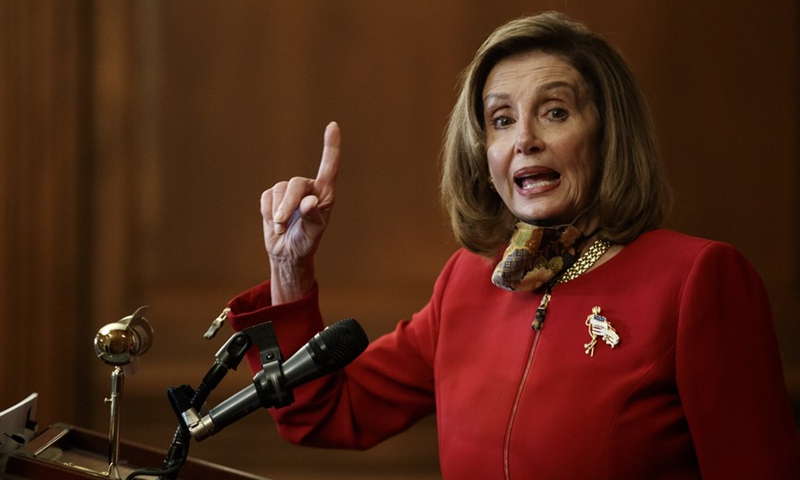
US House Speaker Nancy Pelosi speaks during a press conference on Capitol Hill in Washington, D.C., the United States, on Sept. 17, 2020. (Photo by Ting Shen/Xinhua)
In response to US House Speaker Nancy Pelosi's possible visit to the island of Taiwan, China conducted military exercises Saturday off its coast opposite Taiwan island. A media of the island said on Friday that the live-fire drills near Pingtan in Fuzhou, East China's Fujian Province on Saturday, would be "a strong warning." Some media from the West and the island of Taiwan reported that between July 29 to August 2, China would have at least five military drills in its surrounding waters.
Some media from the West and the island of Taiwan reported that that between July 29 to August 2, China would have at least 5 military drills in its surrounding waters.
The Chinese government has repeatedly expressed its strong opposition to Pelosi's potential visit in recent days. In the telephone call with US President Joe Biden on Thursday, Chinese President Xi Jinping said that "Those who play with fire will perish by it." Tan Kefei, a spokesperson for China's Ministry of National Defense, warned on Tuesday that if the US side insists on making the visit, the Chinese military will take strong actions to thwart any external interference or "Taiwan independence" separatist scheme, and will be resolute in safeguarding China's national sovereignty and territorial integrity. It can be said these were China's most strong-worded remarks against the US on the Taiwan question in recent years.
For the moment, what is being paid most attention, whether at home or abroad, is what kind of firm and strong measures China will take, especially in military, to safeguard China's national sovereignty and territorial integrity.
The US military is considering "moving aircraft carriers or sending fighter planes for close air support" as a measure to protect Pelosi's delegation, said Washington Post on July 23. China and the US are actually nearly at swords' points.
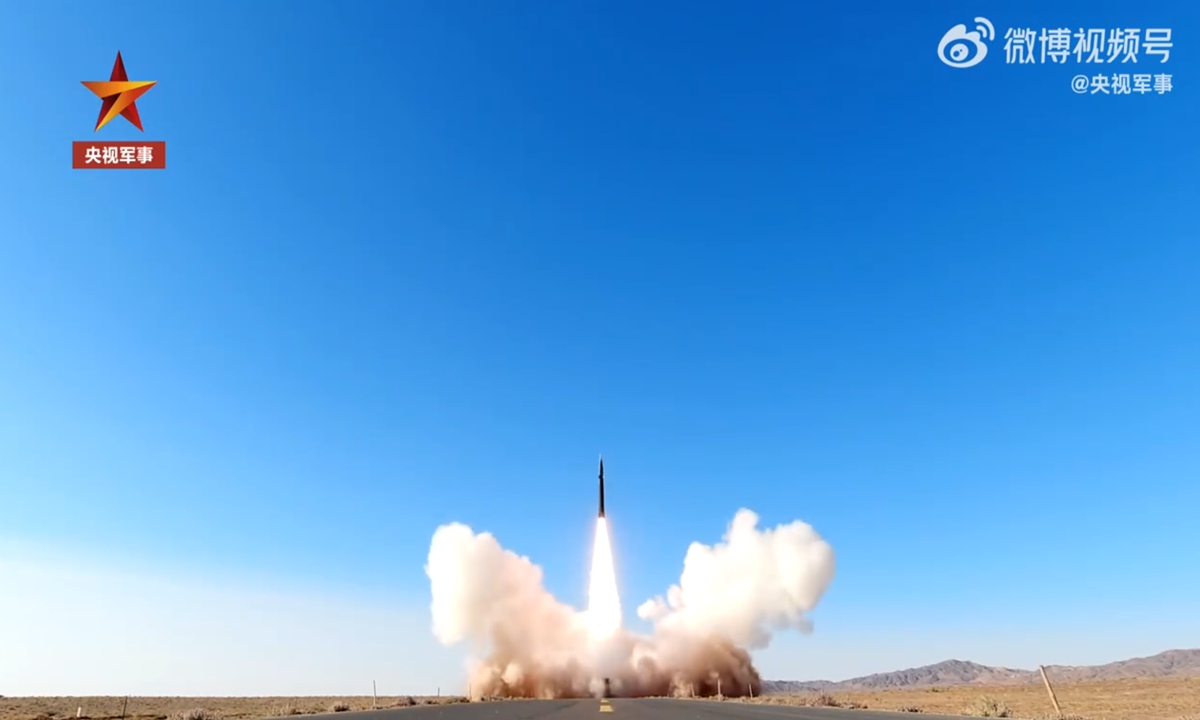
A video celebrating August 1, the 95th anniversary of the founding of the Chinese People's Liberation Army, released by China Central Television on July 30, 2022, displays the live-fire launch of a missile from a transporter erector launcher on a highway in a desert. The missile resembles the DF-17 hypersonic missile, which is publicly displayed at the National Day military parade on October 1, 2019 in Beijing. Photo: Screenshot from China Central Television
Shortly prior to the 95th founding anniversary of the Chinese People's Liberation Army (PLA) on Monday, China for the first time revealed a video featuring the launch of what resembles a DF-17 missile, in a move experts said on Sunday displayed the flexibility of the "aircraft carrier killer" hypersonic weapon that is almost impossible to intercept, at a time when tension is rising in the Taiwan Straits amid US House Speaker Nancy Pelosi's possible visit to the island of Taiwan.
State broadcaster China Central Television on Saturday released a video titled "The capabilities of the Chinese troops shown in 81 seconds", celebrating the upcoming China's Army Day, which falls on August 1.
A scene in the video, showing live-fire launch of a missile from a transporter erector launcher on a highway in a desert, attracted particular attention by military enthusiasts, who said the missile resembles the DF-17 hypersonic missile, which has been publicly displayed at the National Day military parade on October 1, 2019 in Beijing.
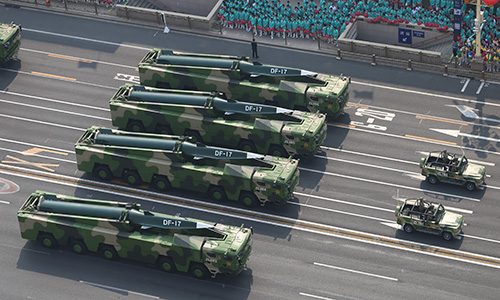
Making their debut in the general public for the first time, DF-17 missiles join the National Day parade held in Beijing on October 1, 2019. Photo: Fan Lingzhi/GT
If the missile shown in the video is indeed a DF-17, this would be the first time China has publicly revealed a footage on the DF-17's live-fire launch, observers said.
Being able to launch on a highway in a desert demonstrated that the new-type missile does not require a preset launch position to launch, Song Zhongping, a Chinese military expert and TV commentator, told the Global Times on Sunday.
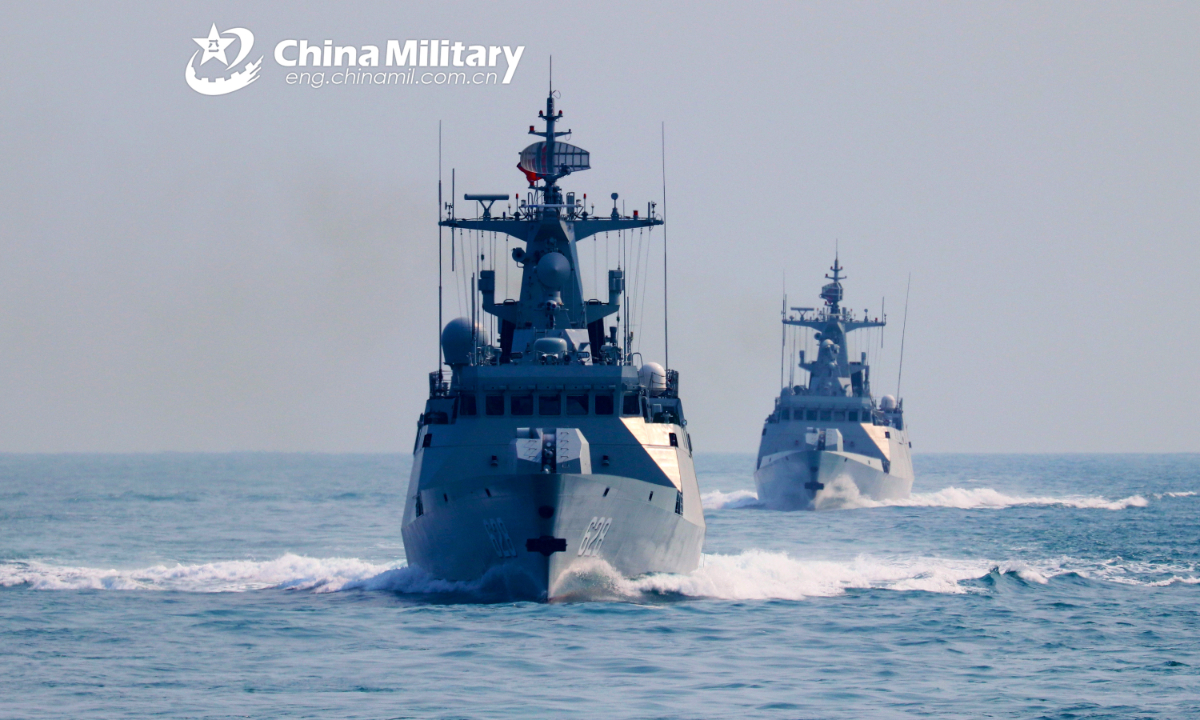
Led by the guided-missile frigate Yongzhou (Hull 628), a frigate flotilla with the navy under the PLA Southern Theater Command steams in formation in an undisclosed sea area during a maritime training exercise in early December 2020. Photo: China Military
"Don't say we didn't warn you!" - a phrase that was used by the People's Daily in 1962 before China was forced to fight the border war with India and ahead of the 1979 China-Vietnam War, was frequently mentioned during a forum held Friday by a high-level Chinese think tank, as analysts warned that open military options and comprehensive countermeasures ranging from the economy to diplomacy from China await if US House Speaker Nancy Pelosi gambles with a visit to the Taiwan island during her Asia tour.
On Thursday night, Chinese President Xi Jinping held a phone conversation with US President Joe Biden, during which he once again warned the US about the seriousness and significance of the Taiwan question and said, "Public opinion cannot be defied. Those who play with fire will perish by it. It is hoped that the US will be clear-eyed about this."
In the recent week, in response to Pelosi's potential visit to the island of Taiwan, a string of warnings have also been made by different ministries and departments of China. On Friday, the Institute of Taiwan Studies in Chinese Academy of Social Sciences - the highest-level think tank - held a forum with analysts and discussed the damage of Pelosi's possible Taiwan island visit to the China-US relations, cross-Straits stability and regional and global peace, and China's countermeasures.
Sending fighter jets to intercept Pelosi's plane, declaring air and maritime zones around the island of Taiwan as restriction zones for military exercises … China's responses will be systematical and not limited to small scale given the severity of Pelosi's move and the damage to the political trust of China-US relations, Yang Mingjie, head of the Institute of Taiwan Studies in Chinese Academy of Social Sciences, told the Global Times.

US House Speaker Nancy Pelosi speaks on women's healthcare issues inside the US Capitol in Washington, DC on July 28, 2022. Pelosi led a delegation to Japan, South Korea, Malaysia and Singapore the following day while it is unclear whether she will make a stop in the island of Taiwan. Photo: AFP
Pelosi is leading an official congressional delegation to Japan, South Korea, Malaysia and Singapore in Asia starting Friday and it is unclear whether the trip will include a stop in the island of Taiwan, US media reported.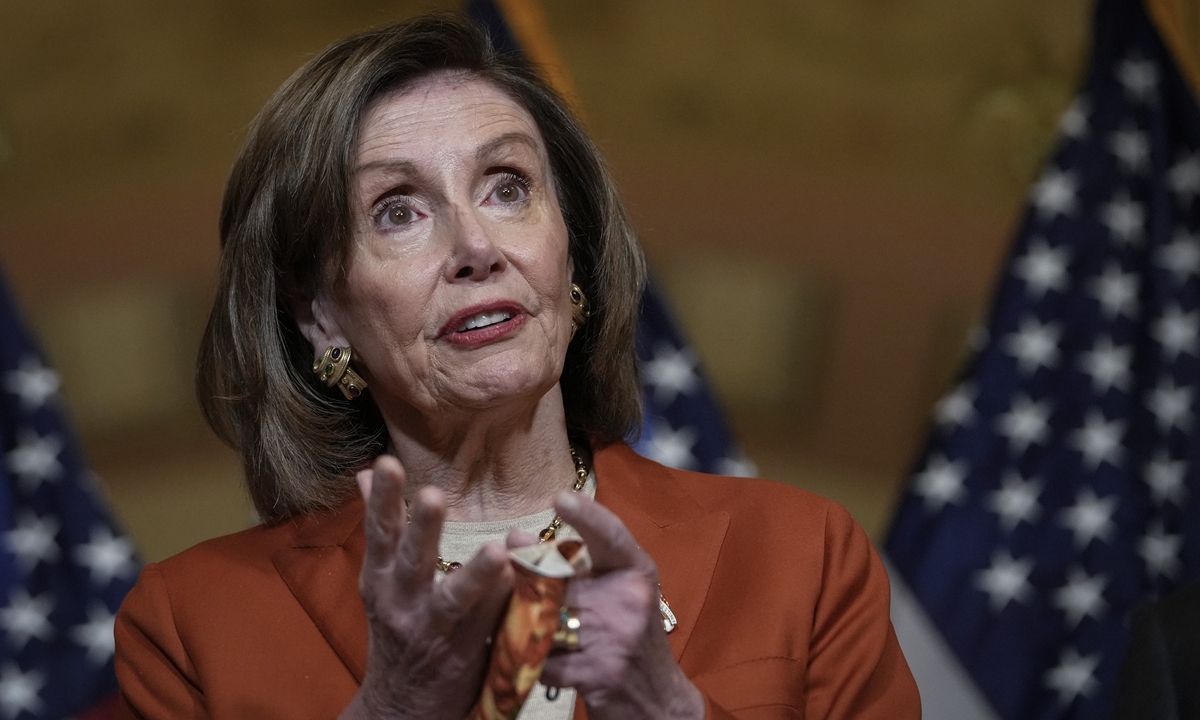
Nancy Pelosi Photo: AFP
US House Speaker Nancy Pelosi has laid a mine where China-US relations and the situation around the Taiwan Straits converge. She lit the match, but it remains uncertain whether she will truly ignite the mine. According to the itinerary of Pelosi's Asia trip as reported by US media, her trip includes Japan, South Korea, Malaysia and Singapore, and the island of Taiwan was listed as "tentative." Many believe this is a trick by Pelosi, who is very likely to fly to Taiwan island from Japan and make a sudden visit.
This kind of sneaky trick is indeed difficult to predict, but one thing is certain: China will take strong measures to resolutely respond and counteract, and it will let the huge risk created by Pelosi have an impact on herself. This is not only a firm and clear attitude, but will certainly be accompanied by a strong and concrete course of action plan.
China's response has been clear, as always. "Those who play with fire will perish by it." This was said to Pelosi and the Taiwan secessionist forces that support her. A White House official called it a metaphor that China regularly tends to use. He completely misread and misjudged the essence and weight of this sentence. Any act of stepping on the red line will surely hit the iron wall of China's counterattack. China's repeated public warnings are by no means jokes. Washington should turn to history to see that China has always kept its word.
No matter from the perspective of international law or international morality, it is legitimate and necessary for China to safeguard its national sovereignty and territorial integrity from provocation. Today, China's will and ability in this regard is without doubt. US President Joe Biden has reiterated that he adheres to the one-China policy and does not support "Taiwan independence." What kind of behavior is a visit to Taiwan island by Washington's "No.3 figure"? If you come to offend me, I will make you bear the consequences. This is not China threatening or intimidating anyone, but safeguarding and defending its own core interests.
It must be pointed out that the current understanding of this serious situation is very inadequate in the political circles of Washington, and some wrong views are circulating, misleading public opinion. Those anti-China politicians and media are fanning the flames. On the one hand, they say that if Pelosi really visits Taiwan island, it will be the "peak of her political career." On the other hand, if she doesn't go, she will "hand China some kind of victory" and she cannot let China decide where she can go. The issue is, Taiwan is China's territory, not a place where people can come and go at will. If you come uninvited with malice, of course we have the right and necessity to deal with you.

US House Speaker Nancy Pelosi. Photo:Xinhua
US House Speaker Nancy Pelosi reportedly kicked off her Asia trip on Friday with a "tentative" itinerary for Taiwan island, and Chinese observers said the key to whether Pelosi would actually visit the island lies with the Biden administration, warning US President Joe Biden to make the right choice from the perspective of national security and the fast-shrinking economy that has fallen into recession.
If Pelosi visits the island, it would be a slap in the face to the incapable Biden administration, which will have to face declining credibility and endure unprecedented and unbearable diplomatic and military consequences, and these consequences are real, especially after the stern warning from Chinese President Xi Jinping, who spoke with Biden on the phone late on Thursday, observers said.
Several US media outlets cited sources who claimed that Pelosi is leading an official congressional delegation to Asia on Friday, with destinations including Japan, South Korea, Malaysia and Singapore, and the itinerary listed a Taiwan visit as "tentative."
Pelosi also invited several senior lawmakers to join her on the trip, including House Foreign Affairs Committee Chairman Gregory Meeks and Veterans Affairs Committee Chairman Mark Takano, NBC News reported on Friday.
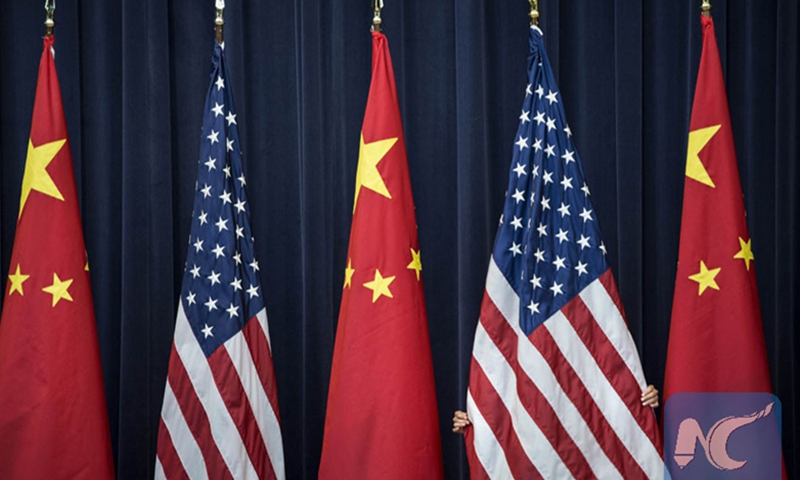
Photo:Xinhua
Chinese President Xi Jinping and US President Joe Biden spoke via telephone for over two hours on Thursday at a juncture of increased tension between China and the US due to the security situation around the Taiwan Straits and US House Speaker Nancy Pelosi's reported plan to visit the island of Taiwan.During the conversation with Xi, Biden reiterated that the one-China policy of the US has not changed and will not change, and that the US does not support "Taiwan independence."
Experts said the Xi-Biden talk is significant for the two great powers to manage their differences amid the serious tension, while it also sends a positive signal to the world that the two countries are still willing to cooperate with each other.
On the evening of July 28, Xi spoke with Biden on the phone at the request of the latter. The two presidents had a candid communication and exchange on China-US relations and issues of mutual interest, the Xinhua News Agency reported late Thursday evening.
Analysts said that according to the official information released about the Xi-Biden conversation, it is impressive that the Chinese leader is being very candid to directly criticize US policy on China, including its strategy that sees China as a "primary rival" and the US actions to push decoupling with China, and he also reaffirmed China's bottom line on Taiwan question. Xi warned Biden "those who play with fire will perish by it." Chinese experts said that the US politicians who intended to "play with fire" on the Taiwan question will sense great pressure after the conversation.

China US Illustration: Liu Rui/GT
On July 19, 2022, the Financial Times, using "six sources familiar with the situation" as an anonymous source, released the news that the US House of Representatives Speaker Nancy Pelosi was planning to visit Taiwan region sometime in August, arousing great concern from all sides. The Ministry of Foreign Affairs of the People's Republic of China gave a clear response to this issue at four press conferences on July 19, July 21, July 25, and July 27, expressing that China firmly opposes and is seriously concerned about it. China takes it in a very serious way and is ready to take all means to launch a counter action if necessary. If the US insists on going its own way, China will take firm and powerful measures to safeguard national sovereignty and territorial integrity, and the US should be responsible for all serious consequences. Chinese Ministry of National Defense spokesman Tan Kefei said in response to an inquiry on July 26 that China requires the United States to take concrete actions to fulfill its commitment not to support "Taiwan independence" and not to arrange for Pelosi to visit Taiwan region. If the US insists on going its own way, the Chinese military will never sit idly by, and will take powerful and strong measures to thwart any external interference and separatist plans for "Taiwan independence", and resolutely defend national sovereignty and territorial integrity. The meaning of these statements is crystal clear. If the United States insists on pushing forward the visit, then China will use all kinds of means, including the use of military force when necessary, to resolutely fight back.
The Ministry of Foreign Affairs and the Ministry of National Defense clearly expressed China's solemn position on Pelosi's planned visit to Taiwan region from both the dimensions of foreign affairs and national defense in an unprecedented way. From the perspective of the Chinese government, the Chinese side's remarks on countering Pelosi's possible visit to Taiwan region have reached the level of "wu wei yan zhi bu yu," which means the highest level of warning. In practical preparations, for the Chinese side, all options, including the military ones, are already on the table.
The public abhors the false signals that US politicians and the political institutions marked by the US Congress continue to release on the Taiwan question, as well as the various actions that have been and may be taken to step on the bottom line of China's territorial and sovereign integrity. The general aspiration of the people is to firmly support the Chinese government in taking practical and effective measures and give resolute countermeasures, so that those who repeatedly provoked the Taiwan question and harmed the core interests of the Chinese nation suffered substantial punishment.
From the perspective of interpretation by all parties, it is crucial to accurately understand and interpret China's remarks against Pelosi's possible visit to Taiwan region. Judging from the existing reactions of the United States and the West, there are three significant misunderstandings that need to be avoided:
Firstly, avoid misjudging the nature and consequences of stepping on China's bottom line, or interpreting China's restraint and caution as weakness, and believing that the so-called salami-slicing tactic of pressing step by step can be adopted, and China's goodwill can be arbitrarily used to gain interests for some politicians and individual political parties and minority interest groups. The Taiwan question involves China's territorial and sovereign integrity, which is the bottom line of China's national interests. Unlike the US and Western countries, which are accustomed to using major strategic issues as a bargaining chip for politicians, political parties and interest groups to seek their own interests, China has always adhered to the attitude of being responsible to the country, the nation, and the world in handling the Taiwan question and China-US relations. Therefore, China's wording is cautious, its position is restraint, but its actions must be resolute. What China is trying to show is a high sense of responsibility for the country, the nation, regional security and global strategic stability, rather than being what some Western media, research institutions and individual politicians understand as "show" or "for face". Unfortunately, the United States and Western countries have not responded to this restraint and responsibility. On the contrary, China's restraint has been reciprocated by the United States and the West with salami-slicing tactic. Pelosi is the third-ranked political figure in the US political sequence. She is not a normal member of the US Congress in the ordinary sense. The US Congress is not a roadside stall, not an NGO, but an integral part of the US government. The Speaker of the House of Representatives visiting Taiwan regions, no matter what means of transportation, no matter what name it uses, no matter what content it contains, at the moment in 2022, it will inevitably be interpreted by the Taiwan independence forces on Taiwan Island as the major political support of the US government for it. An extremely wrong signal will stimulate the Taiwan independence forces to take more provocative actions. The Chinese government will not sit idly by and let this happen. The reason why it continues to use restrained and cautious diplomatic language is to maintain the most basic decency and etiquette between China and the United States, and it does not want to imitate the ugly face of the United States wielding big stick policy of military strikes all day long. To avoid this misunderstanding, in slang terms, it means Washington should not treat Beijing's politeness as a blessing (bu yao ba ke qi dang fu qi).

Nancy Pelosi Photo: AFP
China and the US are locked in an intense clash over US House Speaker Nancy Pelosi's possible visit to the island of Taiwan. Two of the expressions used by China to describe the country's attitude are very rare, namely: "We are fully prepared for any eventuality," and "PLA will not sit idly by if Pelosi visits Taiwan island."Let me interpret what these words mean.
The second line was delivered by Tan Kefei, a spokesperson of China's Ministry of National Defense, on Tuesday. China does not utter such words lightly. On October 3, 1950, when former Chinese Premier Zhou Enlai called an emergency meeting with the Indian ambassador to China and asked the latter to convey China's strong warning to the US, Zhou said that US troops were trying to cross the 38th parallel and to expand the war, and if the US military really wanted to do this, China would not sit idly by but it would be forced to act. Later that month, the Chinese government fulfilled its warning and sent Chinese People's Volunteers army to participate in the war in North Korea.
In 1964, in the aftermath of the Gulf of Tonkin incident, the Chinese government issued a solemn statement that aggression by the US against the Democratic Republic of Vietnam means aggression against China, and the Chinese people would by no means sit idly by. In April 1965, Zhou warned the US through then Pakistani president, asking the US troops not to cross the 17th parallel (the military boundary between North Vietnam and South Vietnam) otherwise, the Chinese people would not sit idly by the Democratic Republic of Vietnam. Because of the lessons of the Korean War, the US accepted the warning from China and did not dare to cross the 17th parallel on the ground until the US troops withdrew from Vietnam.
Another example is the 1958 Taiwan Straits Crisis, which was widely interpreted as a declaration that the Chinese mainland would never sit idly by in response to the US attempt to split Taiwan from China and promote "two Chinas." The shelling of the Kinmen lasted for 21 years.

Wu Qian. Photo: CFP
Action is the most powerful language, said the Chinese Defense Ministry on Thursday as its spokesperson stressed the sensitivity of the Taiwan question again after China issued six warnings against US House Speaker Nancy Pelosi's potential visit to Taiwan island over the past few days.
The frequency of Chinese warnings and the remarks different departments use fully demonstrate China's determination to take any necessary military measures to counter US provocations and safeguard national sovereignty and territorial integrity, analysts said.
The People's Liberation Army (PLA) will not tolerate any "Taiwan independence" moves or interference from external forces, and will resolutely stop such attempts, Wu Qian, spokesperson for the Defense Ministry, said at Thursday's press briefing.
The root cause of a turbulent Taiwan Straits is the collusion between "Taiwan independence" forces and external interfering forces, Wu said, urging relevant parties to learn to adapt to the new reality (PLA operations near the Straits), to reflect on their own deeds and "most importantly, to pull back from the brink."
Though Wu was responding to a question about PLA operations on the Taiwan Straits, analysts interpreted Wu's words as another stern warning against the US government and some US politicians who are pushing Pelosi's possible visit to Taiwan island.

Chinese Ambassador to the US Qin Gang Photo:VCG
If anyone tries to separate the island of Taiwan from the country, if anyone wants to challenge China's bottom line, Chinese military will take forceful measures to firmly safeguard national sovereignty and territorial integrity, Chinese Ambassador to the US told at a recent event.
These remarks were made by Qin Gang, the Chinese envoy to the US, at the reception marking the 95th anniversary of the founding of the People's Liberation Army of China. The Taiwan question has always been the most important and sensitive core issue in China-US relations, he said, noting that the Chinese government values peace and stability across the Taiwan Straits, and has been making utmost efforts for peaceful reunification.
However, the "Taiwan independence" separatist forces and their activities pose the biggest threat to cross-Straits peace and stability, the Chinese official said. "If anyone tries to separate Taiwan from China, if anyone wants to challenge China's bottom line, Chinese military will take forceful measures to firmly safeguard national sovereignty and territorial integrity," he said.
The tensions over the question have been escalating in recent days as China has issued six warnings in the past few days on the US House Speaker Nancy Pelosi's unconfirmed plan of a trip to the island. The Chinese Defense Ministry on Tuesday vowed that if the US insists on interfering, the Chinese military will by no means sit by idly and strong measures will be taken to thwart any external interference and "Taiwan independence" separatist attempts.

Illustration:Liu Rui/GT
A so-called cross-party delegation of Japanese lawmakers cobbled together with two former Japanese defense ministers, a former vice defense minister, and an incumbent member of the House of Councillors arrived in Taiwan on Wednesday to begin a four-day visit. Before them, the former US defense secretary, former secretary of state, members of Congress, and some anti-China politicians from European countries visited Taiwan one after another. US Speaker of the House Nancy Pelosi is restless and about to make trouble, tentatively revealing twice that she wants to visit Taiwan.
These anti-China politicians use Taiwan as an "Instagram-worthy location" for "political influencers." They come over for a few meals and a free trip, chant slogans and pose for a show, and then simply return to their home countries to exchange the trip for political gains. Without taking responsibility and without any scruples, this seems to be a "no-lose deal" for them personally, and the Democratic Progressive Party (DPP) authority serves them as they would a master. This is a temptation for politicians in the US and West who are politically utilitarian and have no bottom line. Meanwhile, the DPP authority is willing to receive them out of a similar dark and despicable mindset.
Some DPP members of the legislative authority boasted that US and Japanese defense officials went to Taiwan in succession, highlighting "the importance of Taiwan's strategic position." We have to say, this kind of "self-complacency" is really stupid, if not vicious. Today the situation in the Taiwan Straits is serious and complicated, the root cause of which is that the DPP is stirring up trouble by soliciting foreign support. The fawning DPP authority has added fuel to the "mania to visit Taiwan" by US and Japanese politicians, which is "decent" superficially, but will actually put the island in multiple dilemmas and ultimately harm the people on the island.
In recent years, despite the various thwarts of the DPP authority, with the joint efforts of people on both sides of the Straits, exchanges and cooperation continue to advance, and integrated development continues to deepen as well. In the first quarter of this year, the cross-Straits trade increased to $82.58 billion despite the pandemic, a year-on-year increase of 15.2 percent, Taiwan's exports to the Chinese mainland rose by 17.8% year-on-year, accounting for 40.9 percent of Taiwan's total exports. When it comes to the US and Japan, apart from supplying arms, US pork and beef containing ractopamine, and nuclear food to Taiwan, when have they really cared about Taiwan? Now, whenever foreign lawmakers visit Taiwan, netizens in Taiwan would ask, "What do they want Taiwan to buy from them this time?"
What's worst is that all these anti-China politicians operate under the banner of "supporting Taiwan," but they are clearly harming Taiwan. Their "support" is directed at the DPP authority and the "Taiwan independence" forces, yet it is just symbolical and empty support. But the damage to Taiwan triggered by their moves is real. As a matter of fact, it is not that anti-China politicians do not believe that China's reunification is unstoppable. They just intend to ramp up the cost of China's continued development and growth, and the safety and well-being of Taiwan society is one of the "costs" in their plan.
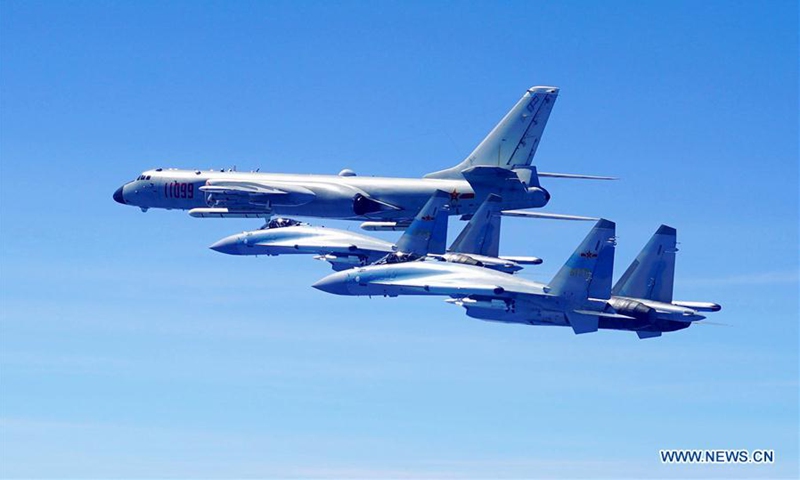
Two Su-35 fighter jets and a H-6K bomber fly in formation on May 11, 2018. The People's Liberation Army (PLA) air force conducted patrol training over China's island of Taiwan on Friday.(Photo: Xinhua)
US House Speaker Nancy Pelosi's unconfirmed plan of a trip to the island of Taiwan keeps troubling the US as Pelosi, US President Joe Biden and Democrats are now facing pressure instead of "encouragements" from the Republicans on the matter, with Chinese experts warning that if the US eventually let the partisan struggle and internal politics hijack its strategic decision-making, it would definitely bring a new crisis in the Taiwan Straits.Republicans knew that Democrats, especially Pelosi and Biden, are now facing a dilemma - visiting the island may prompt China's military reaction and a serious geopolitical crisis will emerge and Pelosi will be in danger as well. According to analysts, canceling the trip will benefit Republicans, as they can say that Democrats are being too weak and dare not to challenge China. The Biden administration and Pelosi still have a chance to keep the mistake from becoming a much bigger one, and if they - both Democrats and Republicans - underestimate China's warning, it would be extremely dangerous.
China has issued six warnings in the past few days and has stressed the danger of the US provocations, including those coming from the Ministry of Foreign Affairs, the Ministry of National Defense and the Taiwan Affairs Office of the State Council.
On Tuesday, China's top political advisor Wang Yang stressed the importance of upholding the one-China principle and the 1992 Consensus, and called for jointly striving to achieve the reunification of the motherland, the Xinhua News Agency reported.
Wang, at a meeting in Beijing marking the 30th anniversary of the 1992 Consensus, said the Taiwan authorities' denial of the 1992 Consensus, along with certain countries' connivance and instigation of the secessionists' provocation, will only plunge Taiwan into catastrophe, and cause misery for Taiwan people.
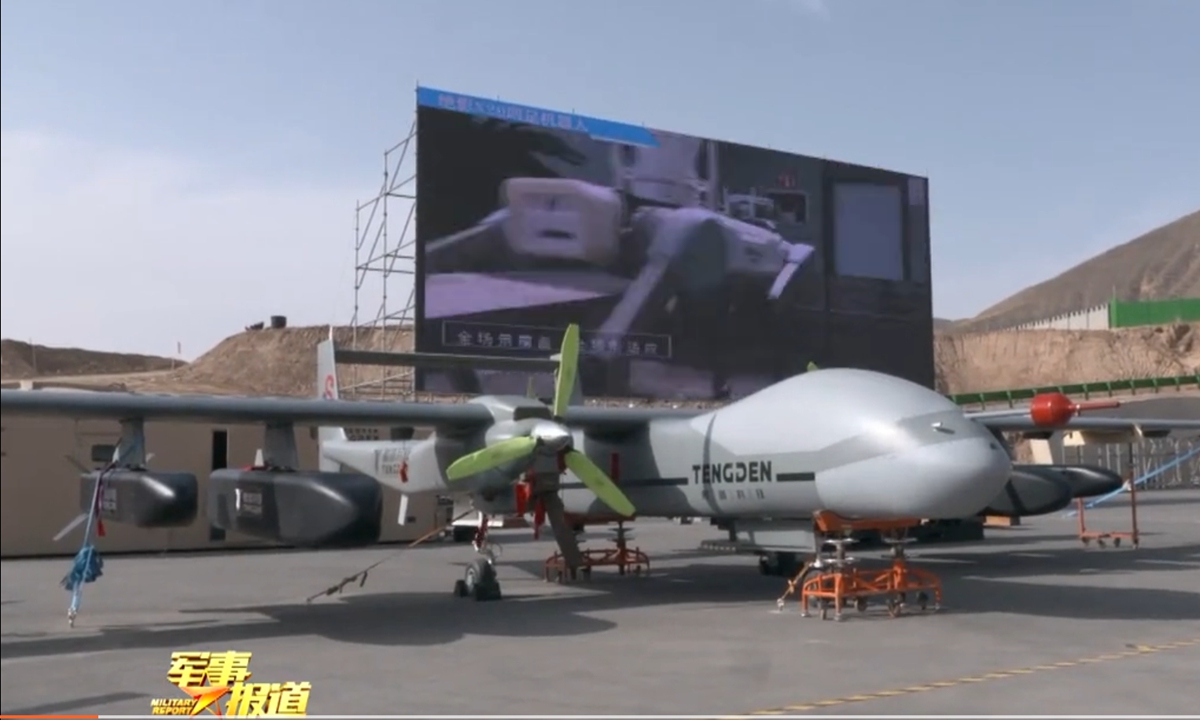
After the Japanese Defense Ministry spotted an armed reconnaissance drone of the Chinese People's Liberation Army (PLA) flying above waters to the east side of the island of Taiwan on Monday, Taiwan media reported that the PLA aircraft went and made a full circle flight around the island of Taiwan for the first time.
Chinese mainland analysts said on Wednesday that Taiwan's defense authority's failure to report the drone's activity exposed the island's defense vulnerabilities against drones, a great vulnerability the PLA can abuse in a possible cross-Straits conflict.
A TB-001 drone of the PLA flew to the eastern side of the island of Taiwan, crossed the Bashi Channel and continued to fly along the alleged median line of the Taiwan Straits, marking that the drone made a clockwise circle around the island on Monday, the first day of Taiwan's annual Han Kuang military drills, media on the island reported on Tuesday.
This is also the first time a PLA drone has made a full circle flight around the island of Taiwan, the report said.
The report came after Japan's Ministry of Defense Joint Staff said in a press release that a TB-001 armed reconnaissance drone of the PLA flew across the Miyako Strait and to the eastern side of the island of Taiwan on Monday.
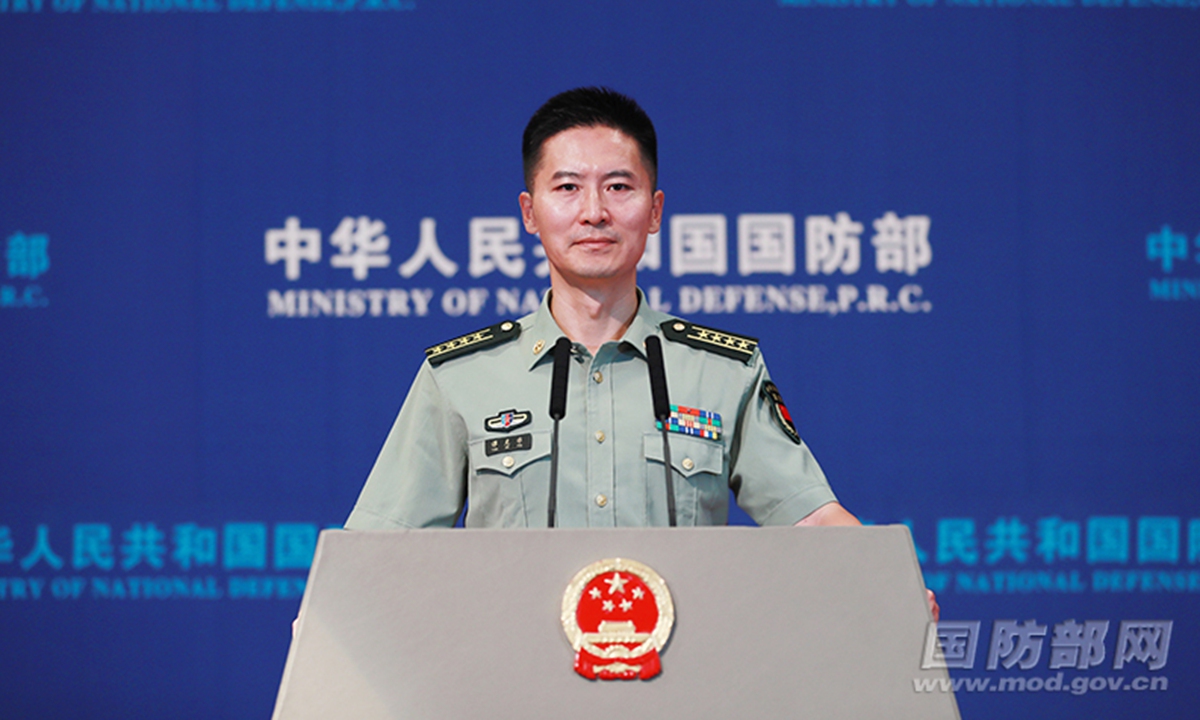
Tan Kefei Photo:mod.gov.cn
After the Chinese Foreign Ministry stressed that China had made sterner warnings to US officials and China is fully prepared for any eventuality over US House Speaker Nancy Pelosi's planned Taiwan trip on Monday, the Chinese Defense Ministry on Tuesday vowed that if the US insists, the Chinese military will by no means sit idly by and strong measures will be taken to thwart any external interference and "Taiwan independence" separatist attempts.
Chinese analysts said the strong warnings from the Chinese military meant that the Chinese People's Liberation Army (PLA) is well prepared for all the possible challenges if Pelosi visits the island, and they advised the PLA Rocket Force to conduct drills with new missiles targeting any possible US aircraft carriers and other large military vessels that may be involved in Pelosi's visit.
Tan Kefei, a spokesperson of China's Ministry of National Defense, said on Tuesday that if Pelosi, as the No.3 US politician, visits Taiwan, it will be a serious violation of the one-China principle and the three China-US joint communiqués, and it will seriously damage China's sovereignty and territorial integrity as well as the political basis for China-US relations. It would certainly cause severe damage to bilateral military relations and lead to escalating tensions across the Taiwan Straits.
China demands the US to fulfill its commitment of not supporting Taiwan secessionism and not arrange Pelosi's visit to Taiwan, Tan said, noting that if the US persists, the Chinese military will by no means sit idly by and will take strong measures to thwart any external inferences and "Taiwan independence" secessionist attempts and resolutely safeguard national sovereignty and territorial integrity.
Tan's remarks indicate that PLA is fully prepared for all responses if she does visit the island," Song Zhongping, a Chinese military expert told the Global Times on Tuesday.
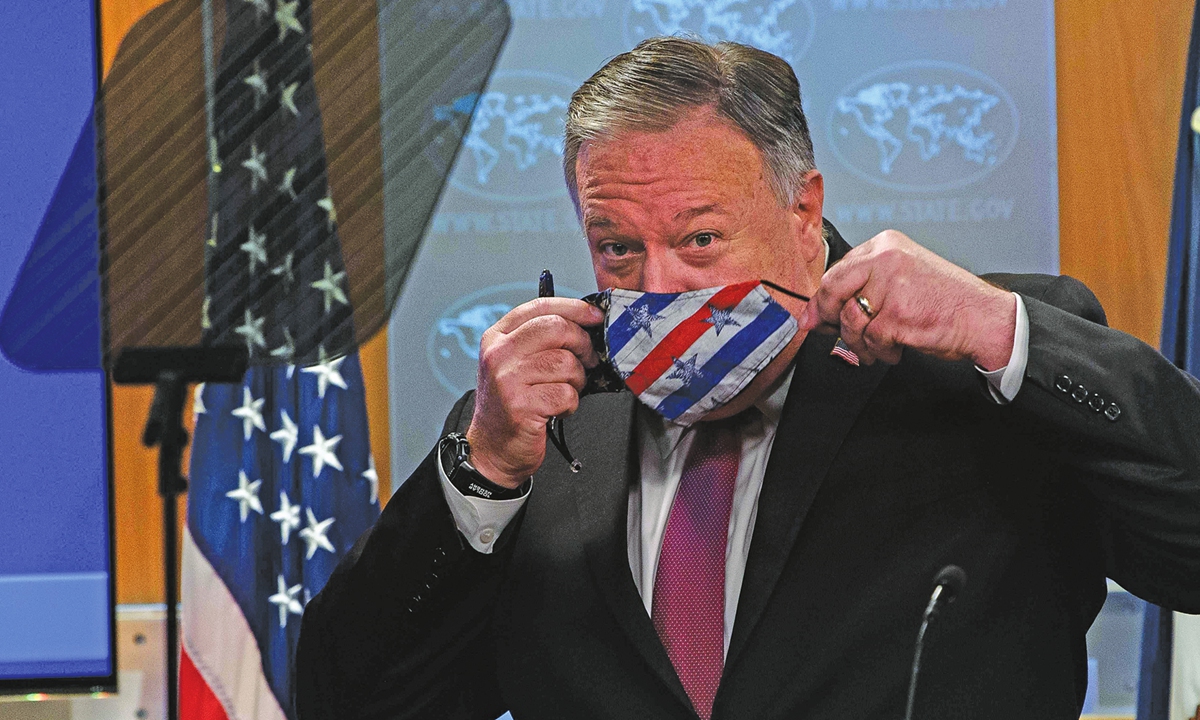
Mike Pompeo. Photo: VCG
While US government officials remain divided over the still unannounced Taiwan trip by US House Speaker Nancy Pelosi, former US secretary of state Mike Pompeo said he would visit the island with her. Chinese observers believe that Pompeo is pinning his hopes on "making a mess" and fanning the flames of Pelosi's unannounced visit in order to politically rise again for the 2024 presidential election, but as the two are completely opposed on most domestic issues, it's impossible for Pompeo and Pelosi to visit Taiwan island together.
A week after media reported Pelosi was about to visit Taiwan, Pompeo, deemed by American media as the "worst secretary of state ever," tweeted on Monday, "Nancy, I'll go with you. I'm banned in China, but not freedom-loving Taiwan. See you there!"
In the commentary section of his tweet, some people from Taiwan island welcomed the pair's plan to visit, including Democratic Progressive Party (DPP) lawmaker Wang Ting-yu who tweeted that "we are looking forward to seeing you both here in Taiwan."
Meanwhile, some netizens mocked Pompeo. A commenter named "Pars" said "cute that Pompeo thinks he's still relevant."
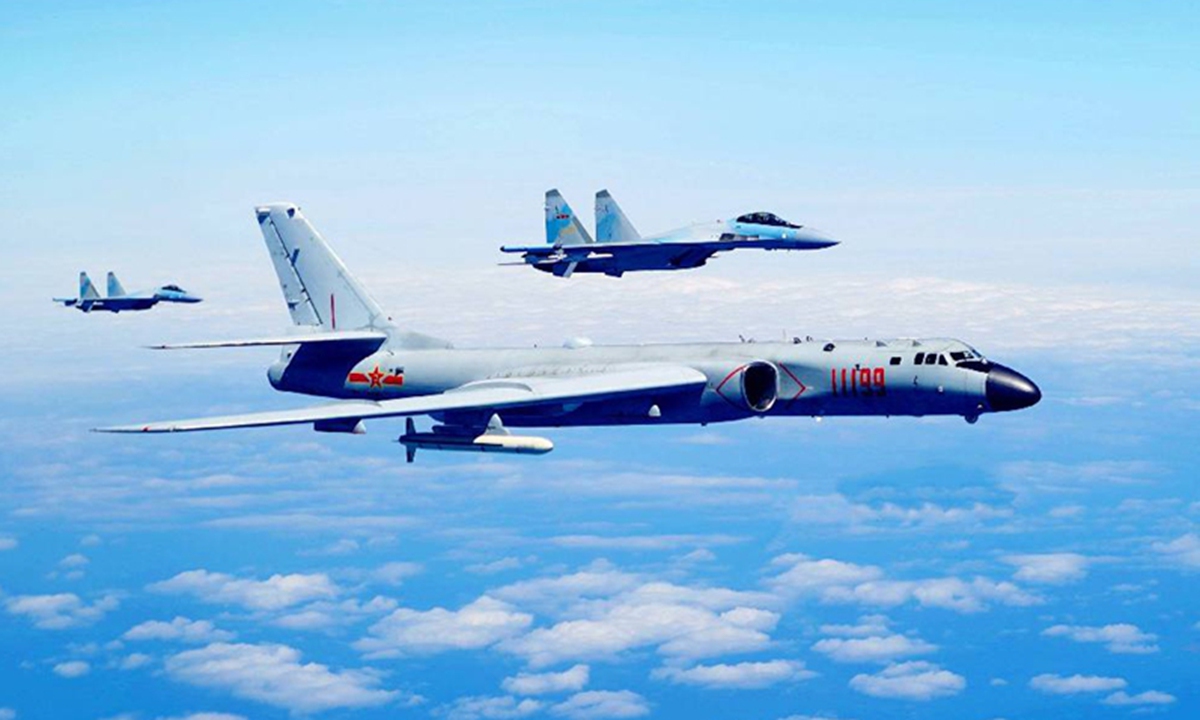
Photo: China military
Editor's Note:
China has warned of "strong and resolute measures" against US House Speaker Nancy Pelosi's planned trip to Taiwan island in August. If she does make the visit, what will it mean for the situation in the Taiwan Straits? What short-term and long-term impact will it have on China-US relations? What measures should China take? Zheng Yongnian (Zheng), professor at the Chinese University of Hong Kong, Shenzhen, and president of the Institute for International Affairs, Qianhai, talked with Global Times (GT) reporters Wang Wenwen over these issues.
GT: In response to Pelosi's planned visit, US President Joe Biden said in response that the US military thinks Pelosi's trip is "not a good idea right now," adding that "I don't know what the status of it is." How would you interpret Biden's words?
Zheng: The current US government is generally semi-paralyzed and divided. As US House speaker, Pelosi has not coordinated with the president, and many things that the president aims to do would be vetoed by the Congress. The US government is not an example of checks and balances right now, with every one doing their own thing without any coordination.
Pelosi reportedly planned to visit Taiwan in April, but the trip was cancelled after she tested positive for COVID-19. There were speculations saying it was due to the pressure from the US military. This time, according to Biden's words, the US military also has different opinions and claims it is "not a good idea right now." This shows that the US is very divided internally.
GT: Pelosi's visit to Taiwan is believed to have considerations of mid-term elections, trying to save some momentum for the Democratic Party. US domestic politics is increasingly overwhelming rational foreign relations. To what extent will domestic affairs of the US affect its actions regarding Taiwan?
Zheng: Biden and Pelosi share political interests in visiting Taiwan, as mid-term elections are coming. After Biden came into power, the Democratic Party has made no achievements in internal affairs. Although Biden has acted tough toward China and Russia diplomatically and reached some bipartisan consensus on the Taiwan question, these did not help him much. Biden's approval rating is even lower than Donald Trump's. Trump took the populist line and was not supported by elites. But when Biden just took office, some Republican elites were optimistic about him. Now that Biden's performance is sluggish, how should the Democratic Party deal with such a situation? Only by playing with diplomatic issues.

US House Speaker Nancy Pelosi departs the White House in Washington DC following a signing event for a postal service reform act on April 6, 2022. Pelosi tested positive for COVID-19 on April 7 and postponed her Asia trip and reported visit to the island of Taiwan. Photo: VCG
After the US government received an unprecedentedly strong message from the Chinese side regarding US House Speaker Nancy Pelosi's planned visit to the island of Taiwan, the Biden administration appears to be increasingly concerned that the visit could lead to catastrophic consequences for China-US relations. Although the two top Democratic leaders share the same interest in using Taiwan question to serve their political goals ahead of the midterm elections, they are apparently not on the same page on how to play the Taiwan card.
Unlike US lawmakers who only take into account domestic political demands, the White House has to consider broader security concerns and the danger of miscalculation, as an escalating confrontation with the Chinese government over the Taiwan question will only hurt US own interests, experts said.
By using the excuse of separation of powers, the Biden administration reportedly hinted at the inability to control fellow Democrat Pelosi regarding trips she would undertake. Some Chinese experts said that if the Biden administration is determined to oppose it, the trip can't be made as such high-level visit needs the coordination with the administration in terms of security.
It is time to see if US President Joe Biden can fulfill his promises on US-China relations especially on the Taiwan question by dissuading this visit, which is widely seen as a severe provocation that could trigger an overwhelming response from the Chinese side, some experts warned, and the reaction of the Chinese side could become a game-changer for cross-Straits relations.

US House Speaker Nancy Pelosi departs the White House in Washington DC following a signing event for a postal service reform act on April 6, 2022. Pelosi tested positive for COVID-19 on April 7 and postponed her Asia trip and reported visit to the island of Taiwan. Photo: VCG
After China warned of "strong and resolute measures" over US House speaker Nancy Pelosi's planned Taiwan trip, US President Joe Biden on Wednesday hinted the Pentagon opposed Pelosi's trip. Chinese observers believe that Biden administration has clearly received China's message about a possible diplomatic and military response, which could be something the US is not able to afford.Amid risks of aggravating ties with China and a 40-year high inflation, the Biden administration urgently needs to seek high-level engagement with China, but Chinese observers warn that Biden may use this engagement to trade for China's compromise in future bilateral trade arrangements or China's stance on Russia-Ukraine conflict, not out of intention to sincerely correct its mistakes, and China does not buy such a trick.
When asked whether it's a good idea for Pelosi to visit Taiwan this summer, Biden said "The military thinks it's not a good idea right now, but I don't know what the status of it is."
In response to Biden's latest remarks, Wang Wenbin, spokesperson of the Chinese Foreign Ministry, said at media briefing Thursday that if Pelosi visits Taiwan, it would seriously violate the one-China principle and harm China's sovereignty and territorial integrity and the political foundation of China-US relations.
"If the US insists on going its own way, China will take strong countermeasures. We mean what we say," Wang stressed.

The picture shows aircraft carrier Shandong berths at a naval port in Sanya. China's first domestically-made aircraft carrier Shandong (Hull 17) was officially commissioned to the PLA Navy at a military port in Sanya, South China's Hainan Province, on the afternoon of December 17, 2019, making China one of the few countries in the world that have multiple carriers. Photo:China Military
The aircraft carrier Shandong of the Chinese People's Liberation Army (PLA) Navy reportedly sailed through the Taiwan Straits on Tuesday, the same day a US destroyer also made a transit in the region, with experts saying on Wednesday that the US warship's provocative move, which came right after its consecutive trespasses in Xisha and Nansha islands in the South China Sea last week, is a desperate and cost-saving attempt to hype tensions and contain China as the US faces China's growing capabilities, while the Chinese carrier was just returning to base after a regular maintenance.
The PLA Eastern Theater Command organized naval and air forces to track and monitor the USS Benfold destroyer through its entire course when it sailed through the Taiwan Straits on Tuesday, Senior Colonel Shi Yi, a spokesperson at the PLA Eastern Theater Command, said in a statement on Wednesday.
Frequent provocations and shows by the US clearly demonstrated that the US is the destroyer of peace and stability and risk creator in the Taiwan Straits, Shi said. He noted that the troops of the PLA Eastern Theater Command will always stay on high alert and firmly safeguard national sovereignty and territorial integrity.
It is the third provocative maritime activity by the USS Benfold near China in just one week. On July 13, the US vessel was driven away by the PLA Southern Theater Command from Chinese territorial waters off the Xisha Islands in the South China Sea, then on Saturday, it claimed to have sailed near the Nansha Islands, also in the South China Sea.
It is rare that a US warship would consecutively sail into waters off the Xisha Islands, Nansha Islands and then through the Taiwan Straits, this is a new kind of provocation, Zhang Xuefeng, a Chinese military expert, told the Global Times on Wednesday.

Nancy Pelosi Photo: AFP
Once again, media has reported that US House Speaker Nancy Pelosi plans to visit Taiwan in August after an aborted April visit to Asia that might include a trip to China's island due to testing positive for COVID-19, with analysts saying that if she intends to make a blatant provocation against China, she would spark a much more dangerous incident than the Taiwan Straits Crisis in 1996, and it would cause a huge setback for China-US ties.According to the Financial Times on Tuesday, "six people familiar with the situation said Pelosi would take a delegation to Taiwan in August." Just as in April, Pelosi did not make an official response to the media report as of press time, while the external affairs authority of Taiwan island said on Tuesday that they have not received relevant information about this.
But the Chinese Foreign Ministry made a serious response to warn the US. Zhao Lijian, Chinese Foreign Ministry spokesperson, said at a routine press conference on Tuesday that China firmly opposes official exchanges between the US and Taiwan authorities in any form. "As an integral part of the US government, the US Congress should strictly abide by the one-China policy pursued by the US. If House Speaker Pelosi visits Taiwan, it will be a serious violation of the one-China principle and the provisions of the three China-US joint communiqués," Zhao said.
"China urged the US to not arrange the visit and stop official exchanges, stop creating tensions across the Taiwan Straits, and take concrete actions to fulfill the US commitment of 'not supporting Taiwan secessionism.' If the US insists on going its own way, China will take firm and forceful measures to firmly safeguard national sovereignty and territorial integrity. The US must bear all the consequence of the visit," Zhao said.
Zhu Fenglian, spokesperson for the Taiwan Affairs Office of the State Council, also said on Tuesday that the Democratic Progressive Party's (DPP) authorities' attempt to collude with foreign forces to seek secession, no matter in what form, will only end in failure.
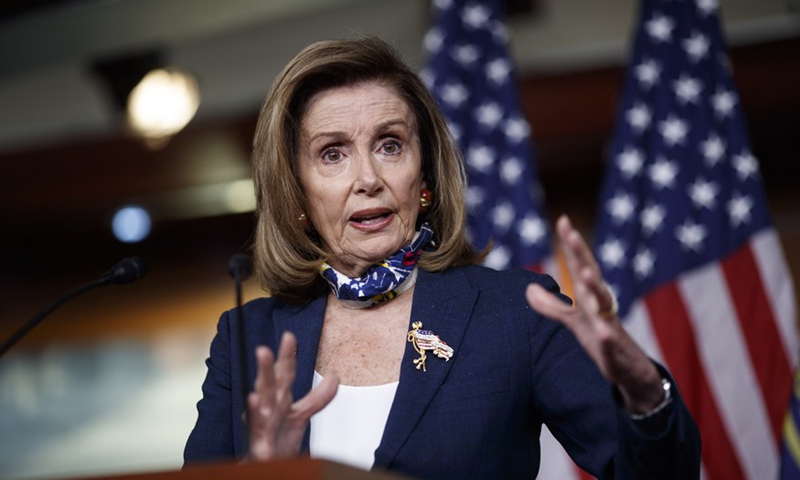
US House Speaker Nancy Pelosi speaks during a press conference on Capitol Hill in Washington, D.C., the United States, on Sept. 10, 2020. (Photo by Ting Shen/Xinhua)
An exclusive report in the Financial Times on Tuesday quoted multiple sources as saying Nancy Pelosi, Speaker of the US House of Representatives, will visit Taiwan in August amid her trip to Japan, Singapore, Indonesia and Malaysia.If Pelosi, a fellow Democrat with US President Joe Biden, visits Taiwan, no one will believe it is because Biden "cannot control her". People are more likely to believe that her visit is part of Washington's tactic of "good cop/bad cop."
As the Speaker of the House, Pelosi is second in the US presidential line of succession according to the US Constitution. Her visit to Taiwan is not only an escalation of US support for "Taiwan independence," but a major incident. It was reported in April that Pelosi would make the visit, but the planned trip to Asia was canceled because she tested positive for COVID-19 then.
It has been proven that the US will not be reasonable on the Taiwan question, and the only way for China to respond to Washington's provocation is to use resolute countermeasures to make it clear the cost of playing the Taiwan card, which is the only language the US understands.
Although then-Speaker of the House Newt Gingrich visited Taiwan in 1997, the travel was seen more as an outward manifestation of the US domestic political bad blood, since Gingrich was a Republican, opposite of then-president Bill Clinton. Pelosi's visit to Taiwan, if takes place, however, would be a blatant challenge to China by the US as a whole.

Illustration:Liu Rui/GT

Nancy Pelosi Photo: AFP
The Financial Times on Tuesday said US House Speaker Nancy Pelosi would take a delegation to Asia in August including the Taiwan island, citing the so-called people familiar with the situation. If the news is true and the trip happens, it will be one of the most egregious provocations by the US to China on the Taiwan question since the establishment of diplomatic relations between China and the US.This April, Pelosi already staged a farce of "visiting Taiwan." First, she released the trial balloon through media, but she was suddenly infected with COVID-19 before her departure and postponed the plan. At that time, some netizens sarcastically called it "tactical positive." The Democratic Progressive Party (DPP) and the US Congress kept a low profile both times. Obviously, the US and Taiwan authorities are not completely ignorant of the tempest that may be triggered by their wantonly playing with fire in the Taiwan Straits, but it is evident that they do not have a deep enough understanding or they want to take their chance.

Illustration:Liu Rui/GT
It must be clearly pointed out that there is no room for ambiguity and deception in regard of the one-China principle. Chinese State Councilor and Defense Minister Wei Fenghe's lines in this respect at the Shangri-La Dialogue in Singapore last month are still powerful and ringing: "China will definitely realize its reunification," and those who pursue "Taiwan independence" in an attempt to split China will definitely come to no good end, and foreign interference is doomed to fail. He also warned that "If anyone dares to secede Taiwan from China, we will not hesitate to fight, and we will fight at all costs." It would be a huge historic mistake for Washington to let these words fall on deaf ears.Pelosi, 82, once said she has been considered the most disliked person in China for over 30 years. She should be ashamed of that apt label. Over the years, Pelosi has never been absent from the areas where troubles could be made in China-US relations. On the Taiwan question in particular, she was one of the first US congressional leaders to call to offer congratulations when Chen Shui-bian was elected as the regional leader in the island of Taiwan back in 2000. Just earlier this year, she also met via video with the island's vice leader Lai Ching-te, who was on his trip to the US. The US will hold midterm elections later this year, and the Democratic Party is at a disadvantage. Pelosi's focus on the Taiwan Straits at this moment seems to be a desperate attempt to take another chance.
However, visiting Taiwan is definitely a red line that Pelosi must never cross. China is resolute in defending national sovereignty and territorial integrity, and has the right to take forceful measures against "Taiwan independence" secessionist forces and extraterritorial forces at any time in accordance with changes in the situation, including against the trip and Pelosi herself. China has asked the US side not to arrange Pelosi's visit to Taiwan, and stressed that "the US must be fully responsible for all consequences caused by this." It must be noted that if some US politicians want to use the Taiwan question to make political capital, they will certainly have a deeper understanding and feeling of the old Chinese saying, "he who plays with fire will get burned."

US House Speaker Nancy Pelosi departs the White House in Washington DC following a signing event for a postal service reform act on April 6, 2022. Pelosi tested positive for COVID-19 on April 7 and postponed her Asia trip and reported visit to the island of Taiwan. Photo: VCG
China urges the US to not arrange US House of Representatives Speaker Nancy Pelosi to visit the Taiwan island and to stop creating tensions over the Taiwan Straits, or China will take forceful countermeasures to safeguard its national sovereignty and territorial integrity, Chinese Foreign Ministry Spokesperson Zhao Lijian said at a routine press conference on Tuesday.
China has already reiterated its stance on the issue on many occasions. China firmly opposes any form of official exchanges between the US and the Taiwan island. The House of Representatives is part of the US administration, so it should abide by the one-China principle upheld by the US, Zhao said.